Bayview Elementary Family Dinner
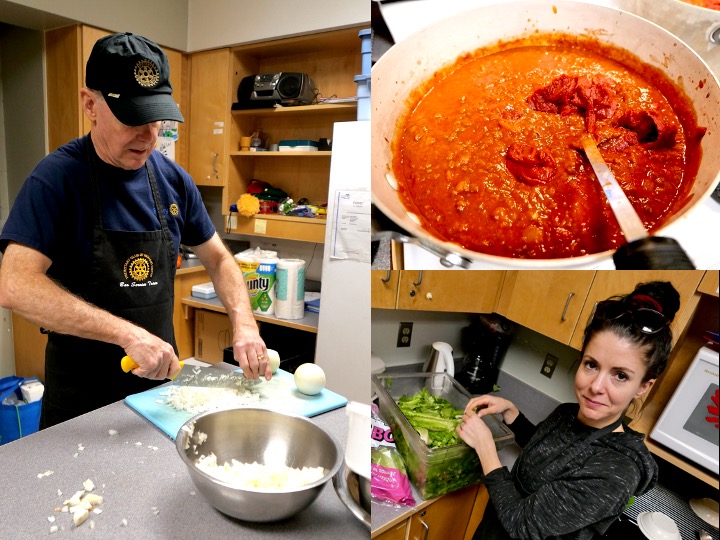




Bayview Elementary Family DinnerFollowing a few months hiatus when our efforts failed to restart a monthly community breakfast, we came up with the idea of putting on a family dinner at one of the south end elementary schools. With the help of Michelle Swecera, Community Schools Coordinator with SD68, we came up with Bayview Elementary. The principal, Sue Derosa, welcomed us with open arms, and the first Bayview Family Dinner was served on Dec 12th to 70 students and family members. A great success, with more to follow.    |
Bayview Elementary Family Dinner | Rob Waine | 2023-12-17 08:00:00Z | 0 | |||||||||||||||||||||||||||||||||||||||||||||||||||||||||
Installation of 2023-24 PresidentWith the new Rotary year starting on July 1st we installed our new club president and executive at the final meeting of the 2022-23 Rotary year on June 20th. Incoming President Bill Grace received the clock from outgoing president Perry Williams. [The clock was a gift from the Rotary Club of Akita East, Japan presented to our club in the 1980's.] Larry Rumming was awarded the Bruce Coleman Rotarian of the Year trophy. 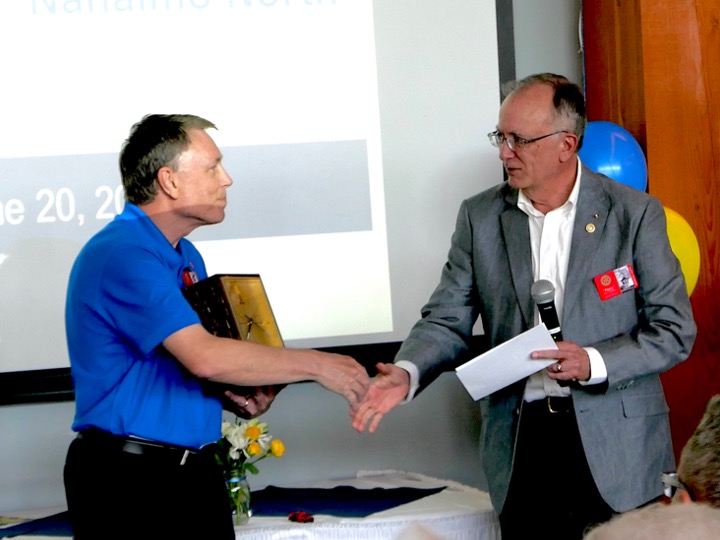 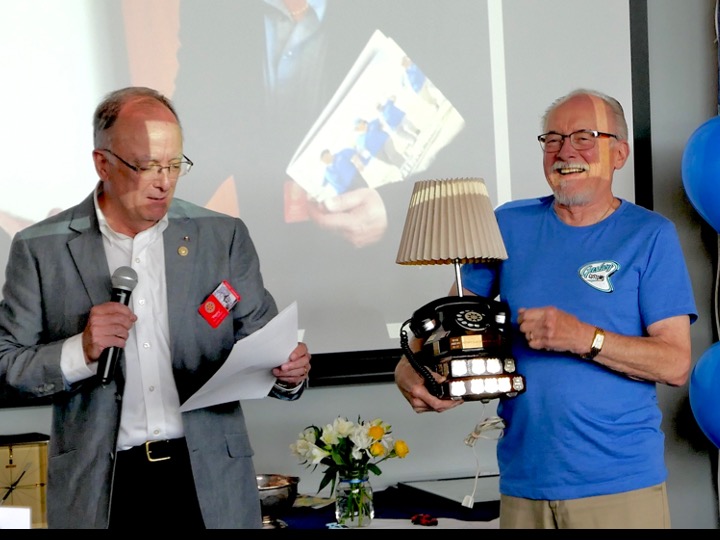 |
Installation of 2023-24 President | Rob Waine | 2023-07-04 07:00:00Z | 0 | |||||||||||||||||||||||||||||||||||||||||||||||||||||||||
And the Community Breakfast continuesThis month we served 175 meals - not quite a record for us (last month it was 205!) - but significant all the same. We had the pleasure of having three inbound Rotary Youth Exchange Students help us with the serving: Veera from Finland, Luzzia from Austria, and Simon from France. A busy time, but satisfying to know the we've helped lots of folks who were in need of a hearty meal. 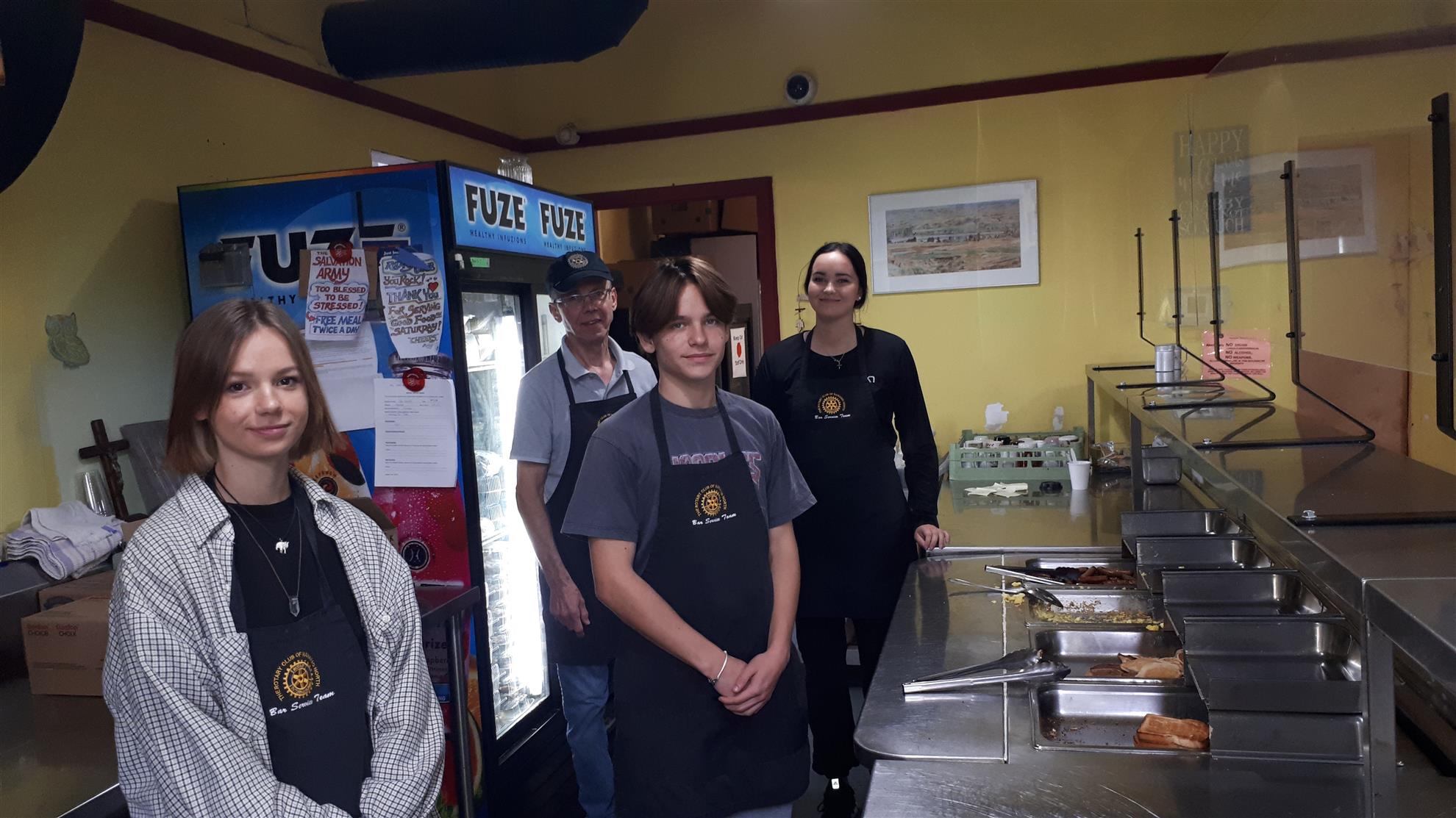 |
And the Community Breakfast continues | Rob Waine | 2022-09-19 07:00:00Z | 0 | |||||||||||||||||||||||||||||||||||||||||||||||||||||||||
|
Rotary Community Breakfast is back | 2021-11-27 08:00:00Z | 0 | ||||||||||||||||||||||||||||||||||||||||||||||||||||||||||
Garage Sale Trail a successDespite steady rains and gusty winds, Rotarians braved the elements to ensure the 2021 Garage Sale Trail was up and running and.... a success. All six locations on the trail did a brisk but moderate business on the October 16 trail day and even though crowds weren't as robust as anticipated, the club did manage to bring in well over $3,000. Everything but the kitchen sink seemed to make its way into the mix and whether it was tools, books, storage containers, furniture, clothing or nick-nacks --- there was something for everyone. Hats off to the volunteers who made this a learning experience, a 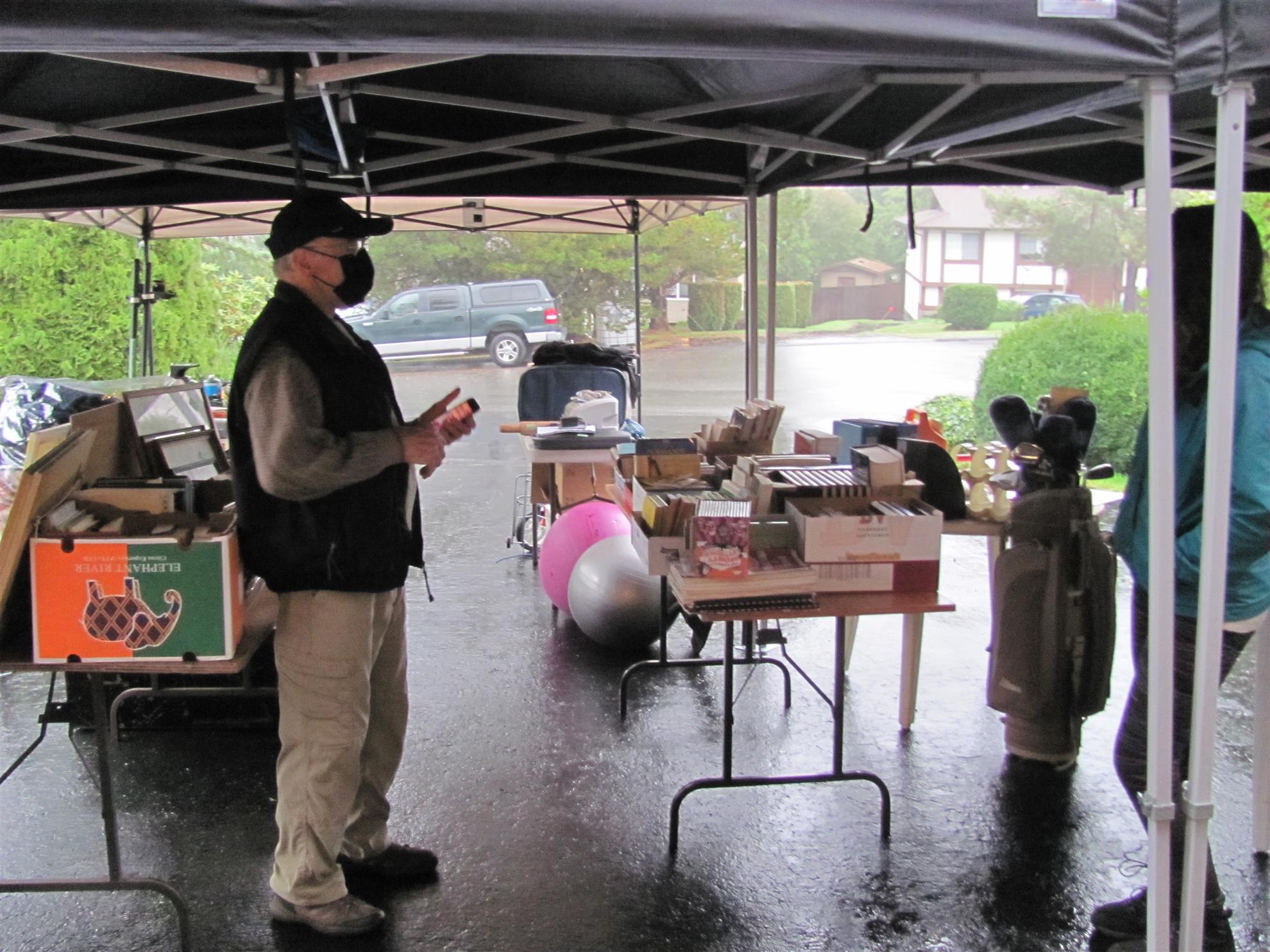  financial success and fun. financial success and fun. |
Garage Sale Trail a success | Rob Waine | 2021-11-06 07:00:00Z | 0 | |||||||||||||||||||||||||||||||||||||||||||||||||||||||||
Preparations for Garage Sale Trail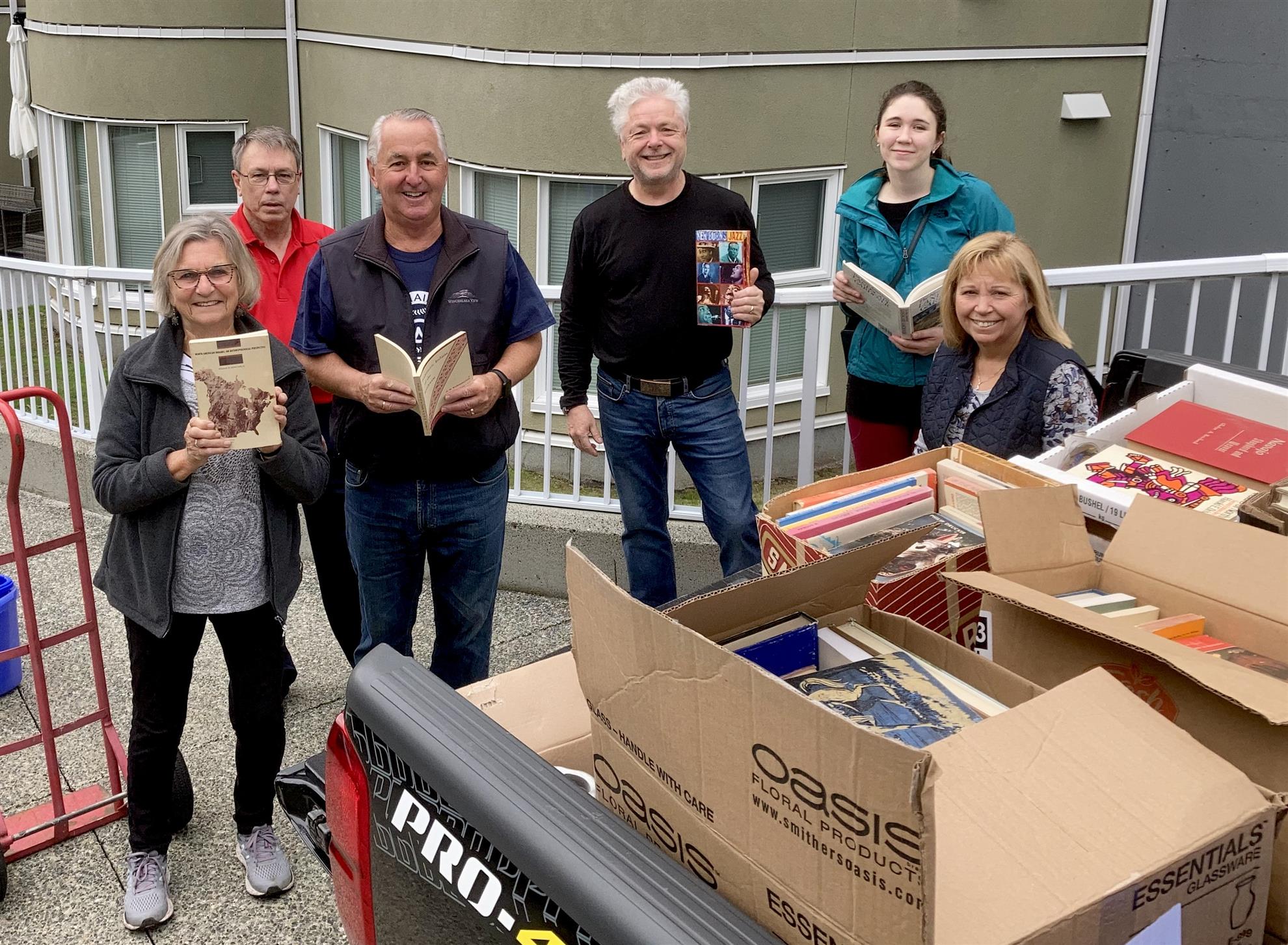 More than a dozen Rotarians and friends turned up Oct 2 for the 'big book pick up' organized by Ian Thompson and literally thousands of books were transported by eager volunteers. The books, from an estate sale, will be used at various locations on the upcoming Rotary Garage Sale Trail on October 16. Everything from art, history, geography, arts and crafts to fiction and non-fiction was in the mix. The donation of books will be a treasure trove for anyone who likes books and reading. The lady who passed was a librarian and so, the extensive collection of literature from coffee table books to hardcover and paperbacks, as well as bound collections, is sure to be a gold mine for readers, scholars and collectors. Eight SUVs, trucks and vans were used to move the scores of boxes and everything was removed from the home in under an hour. Hats off to the crew who stepped up and helped pave the way for a great Garage Sale Trail event. |
Preparations for Garage Sale Trail | Rob Waine | 2021-10-03 07:00:00Z | 0 | |||||||||||||||||||||||||||||||||||||||||||||||||||||||||
Installation - June 2021With Island Health's continued recommendation for no group meetings our club's installation meeting took place via zoom - with a tropical theme. No masks needed, Mai Tai's were abundant, but not mandatory! The new executive and new president, Cara Klein, were installed by incoming Assistant Governor Ken Hammer. Outgoing president Glynis Hayes presented the President's Citation to Don Dempson, and the Bruce Coleman Rotarian of the Year award was presented to Ian Thompson. Best wishes to our rookie Pres! 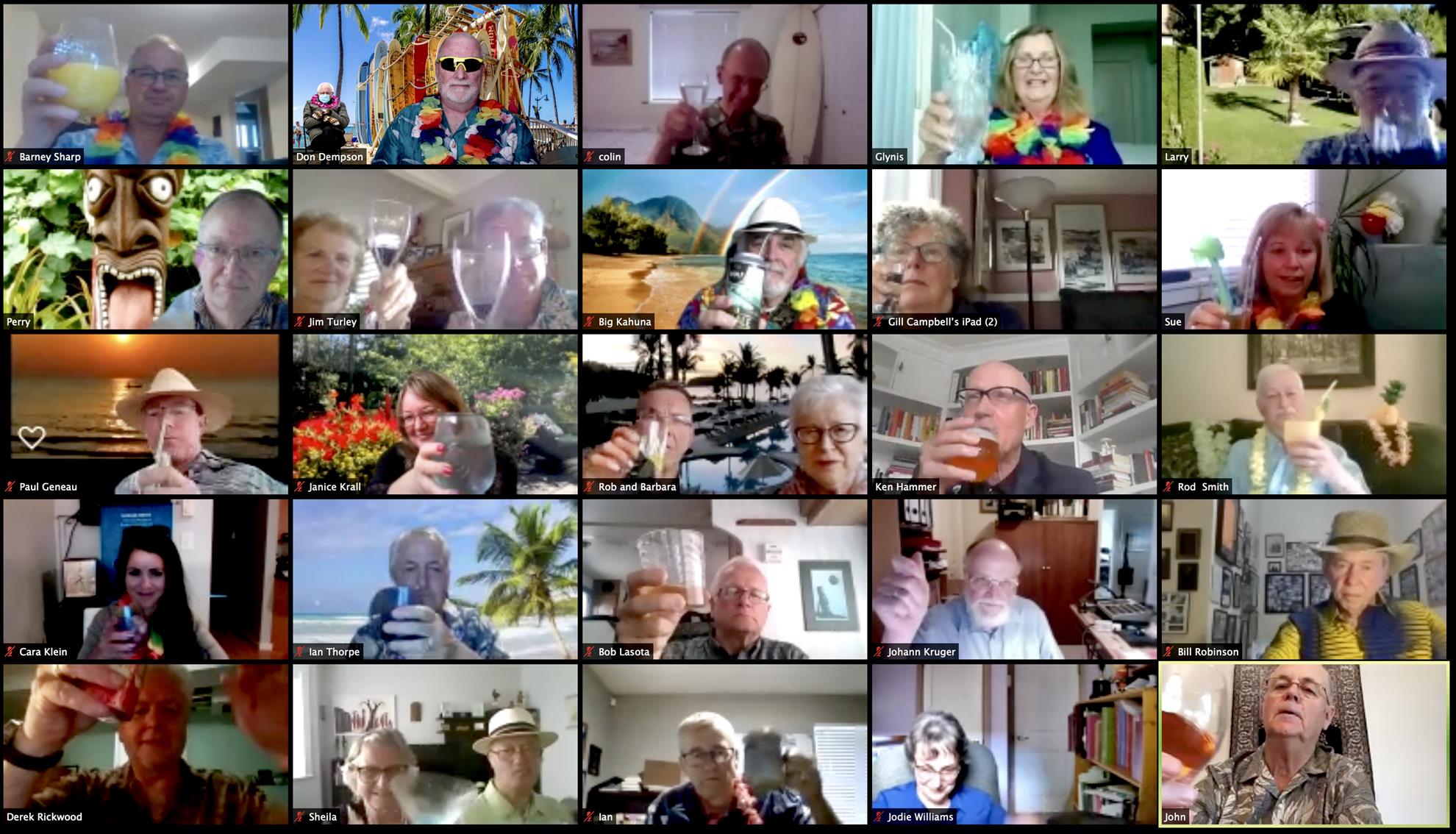 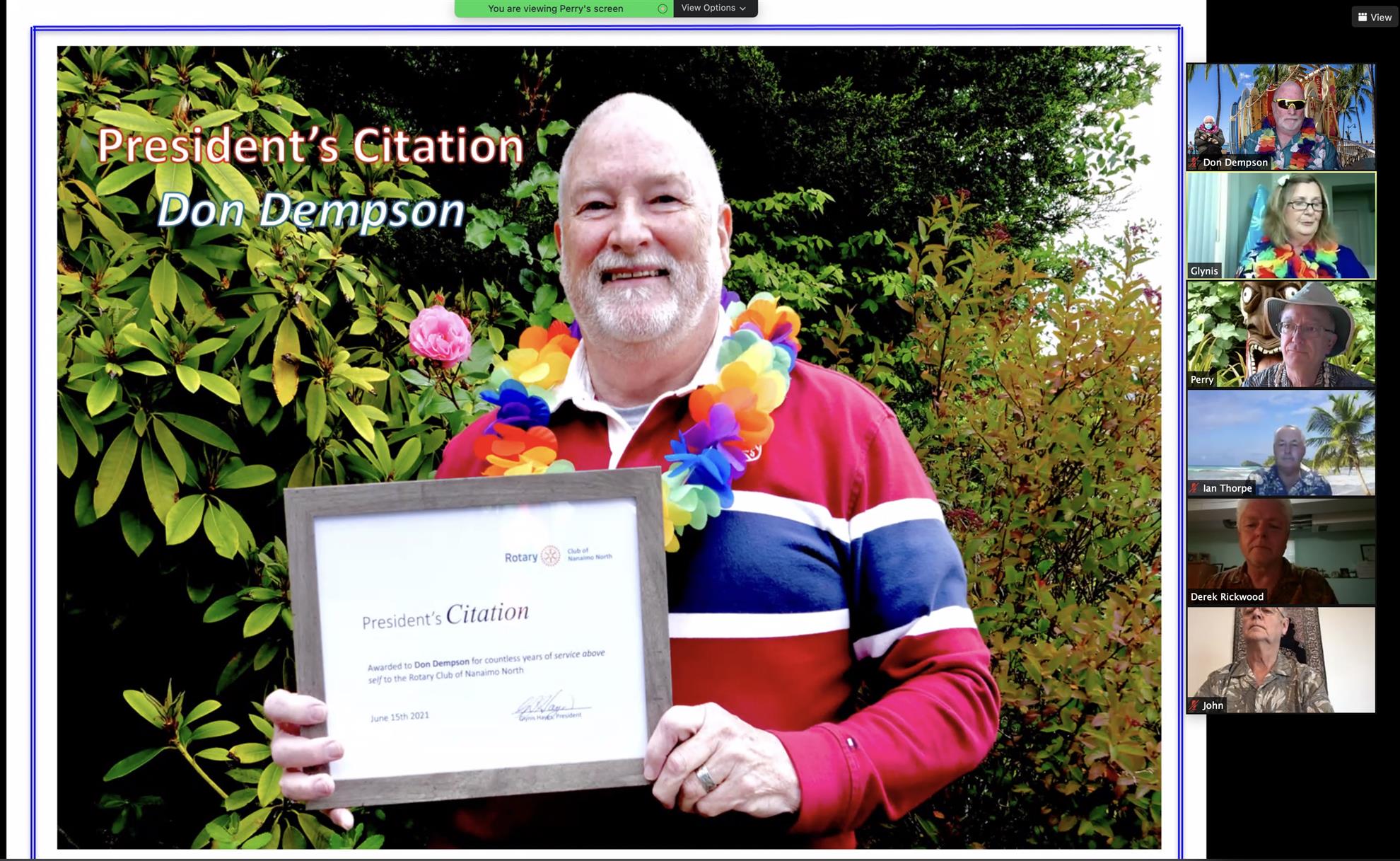 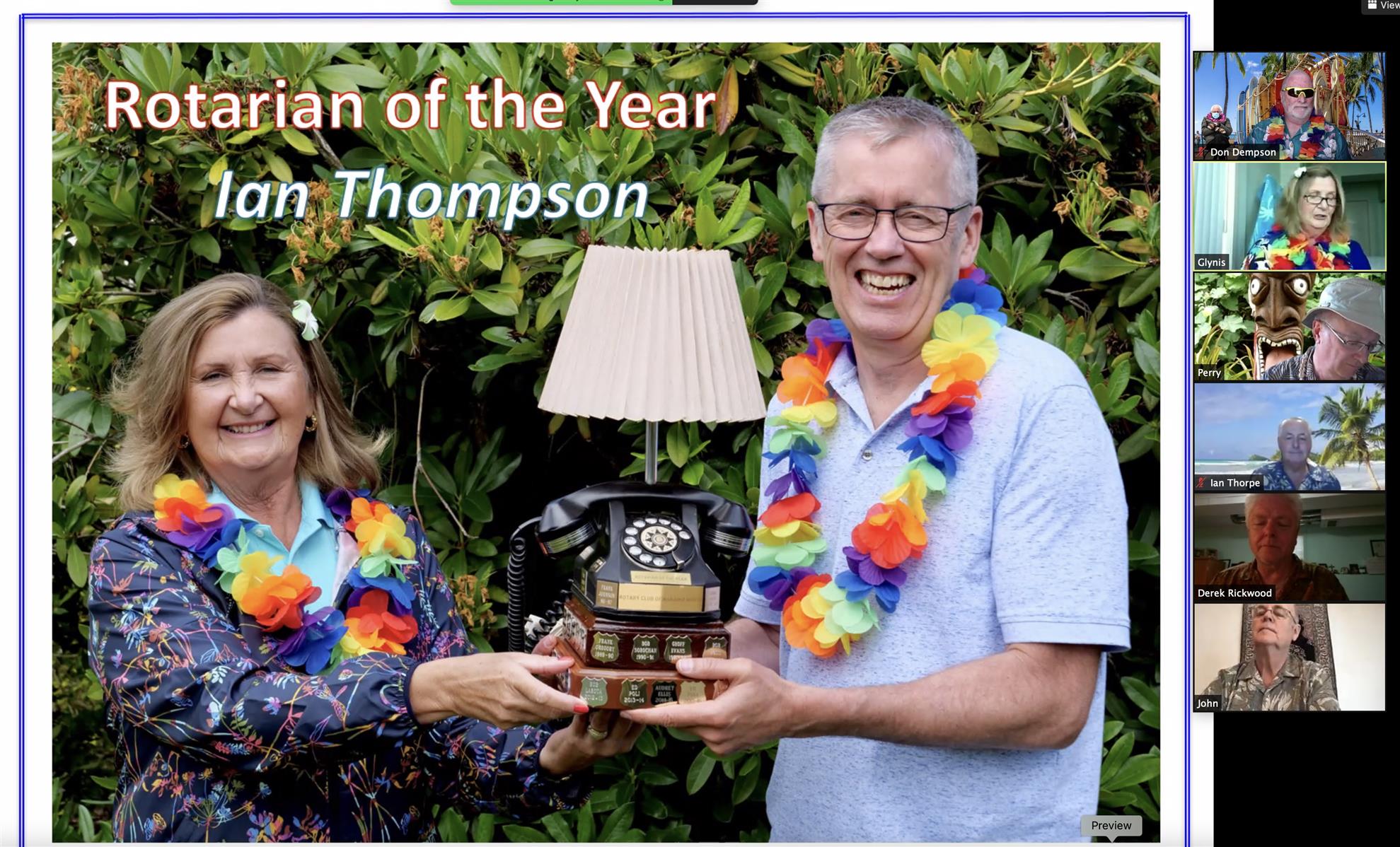 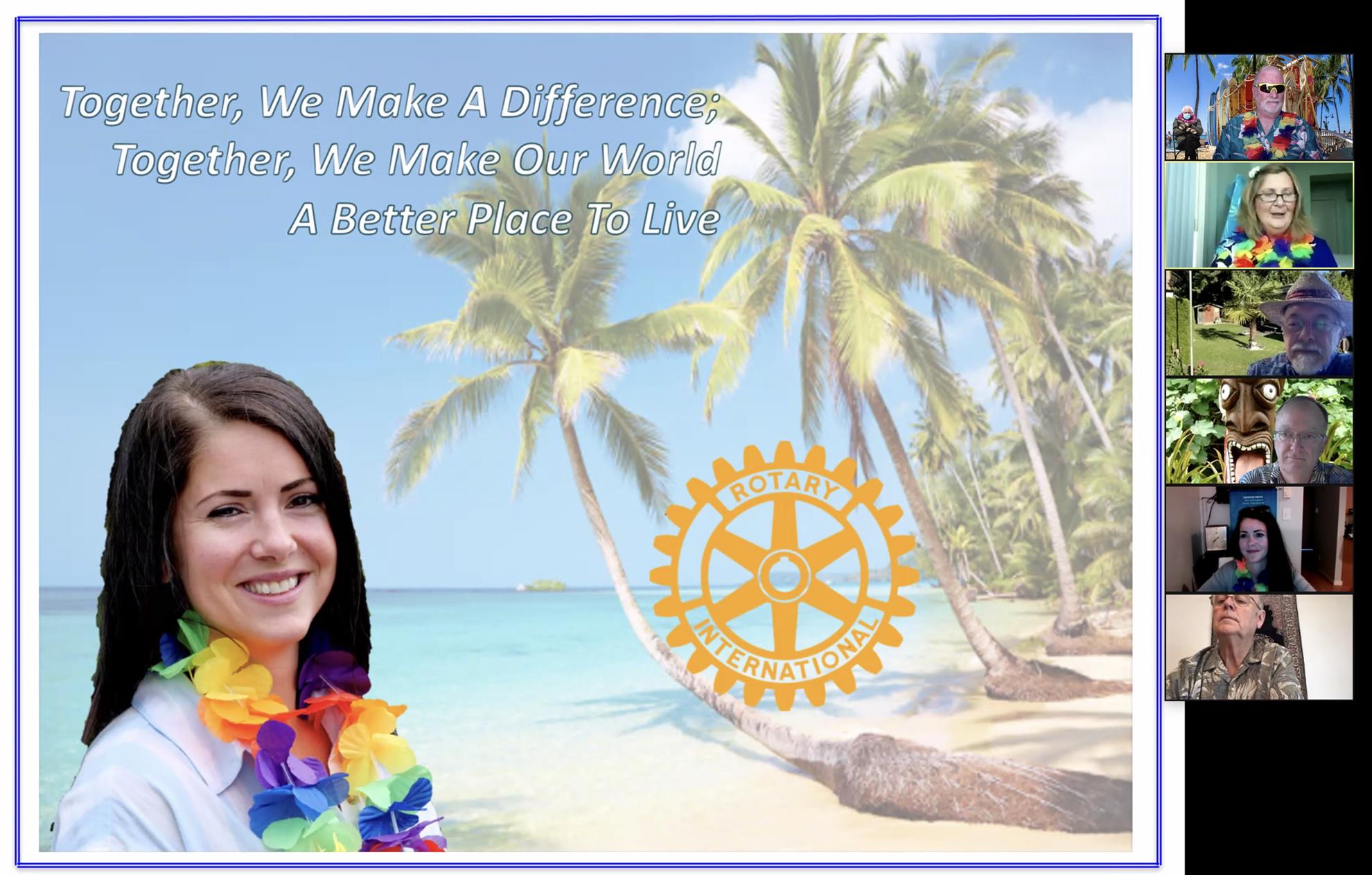 |
Installation - June 2021 | Rob Waine | 2021-07-06 07:00:00Z | 0 | |||||||||||||||||||||||||||||||||||||||||||||||||||||||||
Community Breakfast suspendedRegrettably we've deemed it necessary to suspend the breakfast until such time as in-door dining is possible again. Back in November and December the Nanaimo North’s Rotary team of volunteers (although fewer because of the pandemic’s and personal restrictions) went in early on the 2nd Saturday of each month and prepared breakfast for the scores of homeless and working poor in our city’s downtown. Instead of serving in the Salvation Army’s dining area, w 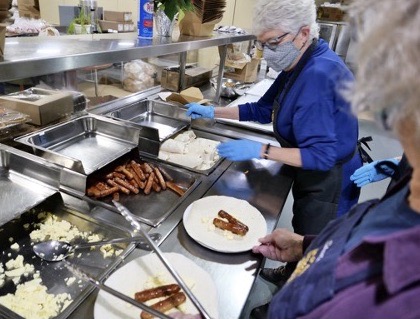 e prepared “to go” boxes which were handed out via their mobile Emergency Services truck. e prepared “to go” boxes which were handed out via their mobile Emergency Services truck. |
Community Breakfast suspended | Rob Waine | 2020-12-14 08:00:00Z | 0 | |||||||||||||||||||||||||||||||||||||||||||||||||||||||||
Food Bank service project continuesOnce protocols had been established for volunteers at the Loaves & Fishes Community Food Bank we re-commenced our monthly shifts. We are only allowed up to 8 volunteers, socially distanced and masked, so it's a different experience, but non-the-less rewarding. On Sep 29th, just 5 of us (Bill McK, Barney, Rob, Sheila, and Bill G) worked the shift and managed to sort three pallets of dry goods!
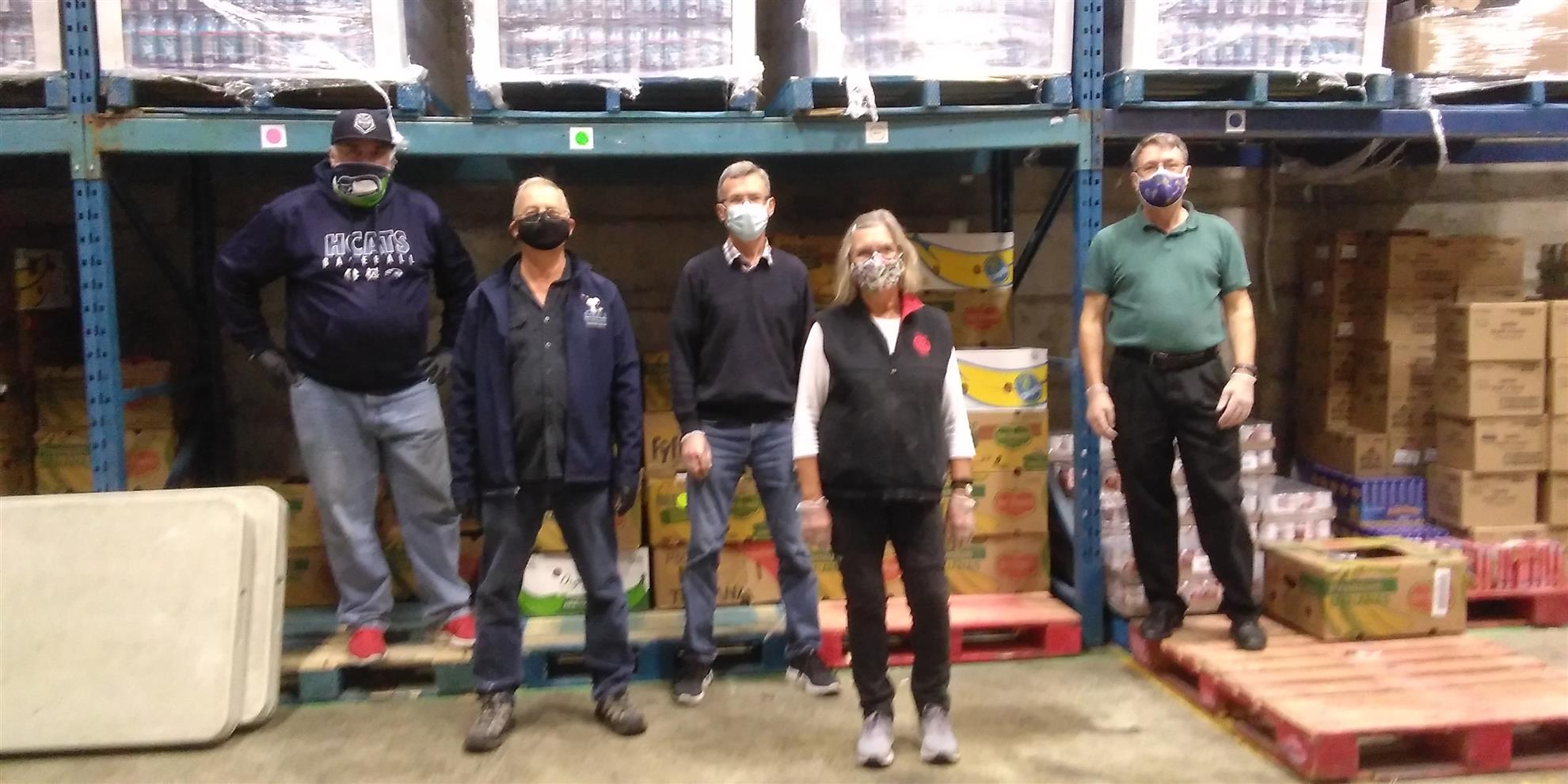 |
Food Bank service project continues | Rob Waine | 2020-10-05 07:00:00Z | 0 | |||||||||||||||||||||||||||||||||||||||||||||||||||||||||
New President installedOn June 17th we were pleased to install our new president for Rotary year 2020-21: Glynis Hayes 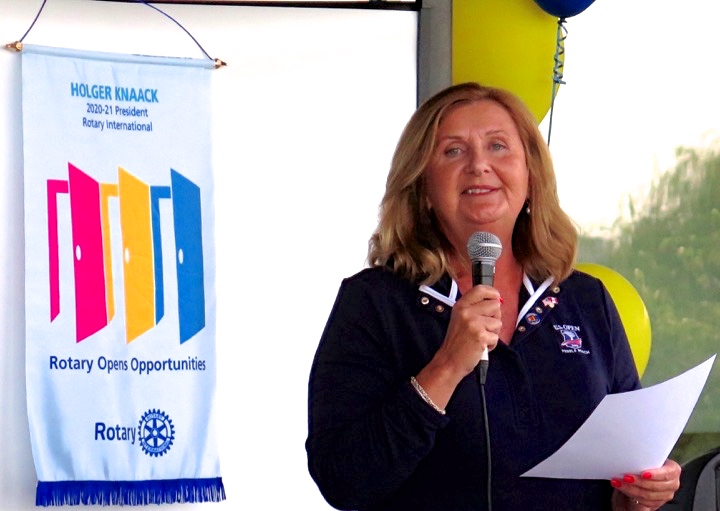 |
New President installed | Rob Waine | 2020-06-20 07:00:00Z | 0 | |||||||||||||||||||||||||||||||||||||||||||||||||||||||||
On-line meetingsAs on-line meetings become the new, albeit temporary, normal, we're beginning to get the hang of it! Click on "read more" to hear about our last two meetings.
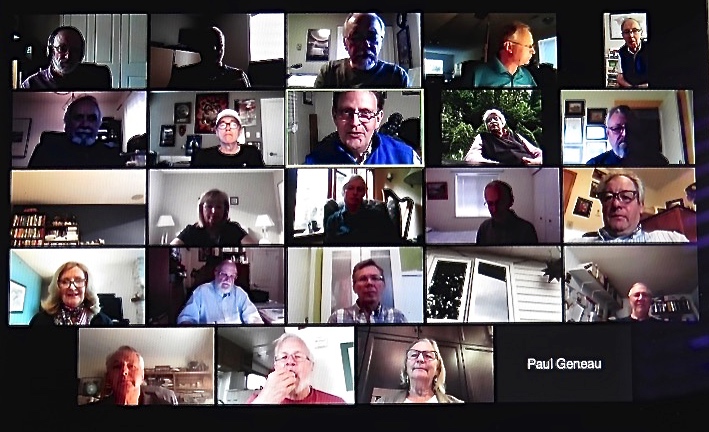 |
On-line meetings | Rob Waine | 2020-05-20 07:00:00Z | 0 | |||||||||||||||||||||||||||||||||||||||||||||||||||||||||
Craft Beer Crawl Fundraising ProjectIf you enjoy craft beer and you missed the launch of our latest fundraising project, here’s the scoop: Purchase our Craft Beer Crawl pass (app or gift card) for only $25 and save money with over $200 worth in offers when you visit one of the 22 participating breweries on Vancouver Island, the Sunshine Coast, and the Sea to Sky corridor. For full details go to www.circlealetrail.com  |
Craft Beer Crawl Fundraising Project | 2020-02-03 08:00:00Z | 0 | ||||||||||||||||||||||||||||||||||||||||||||||||||||||||||
District Governor Maureen Fritz-Roberts
Posted by Craig Clarke on Jul 12, 2019
Click here for a profile of our new District Governor, Maureen Fritz-Roberts.
|
District Governor Maureen Fritz-Roberts | Craig Clarke | 2019-07-12 07:00:00Z | 0 | |||||||||||||||||||||||||||||||||||||||||||||||||||||||||
Earth Day Event April 27 2019
Posted by Craig Clarke on May 13, 2019
|
Earth Day Event April 27 2019 | Craig Clarke | 2019-05-13 07:00:00Z | 0 | |||||||||||||||||||||||||||||||||||||||||||||||||||||||||
Service Project at Loaves & Fishes Jan 22nd
Posted by Craig Clarke on Jan 31, 2019
 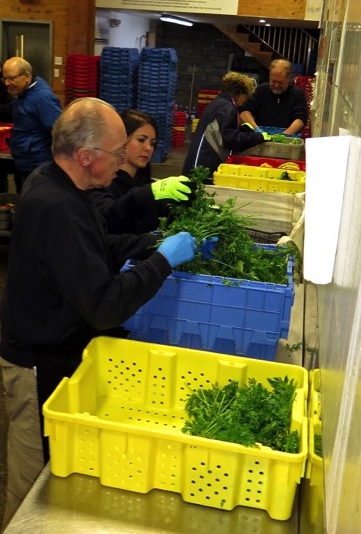 |
Service Project at Loaves & Fishes Jan 22nd | Craig Clarke | 2019-01-31 08:00:00Z | 0 | |||||||||||||||||||||||||||||||||||||||||||||||||||||||||
December round-up
Posted by Craig Clarke on Jan 19, 2019
Our volunteers were busy at the Brechin School pancake breakfast Breakfast December 14th 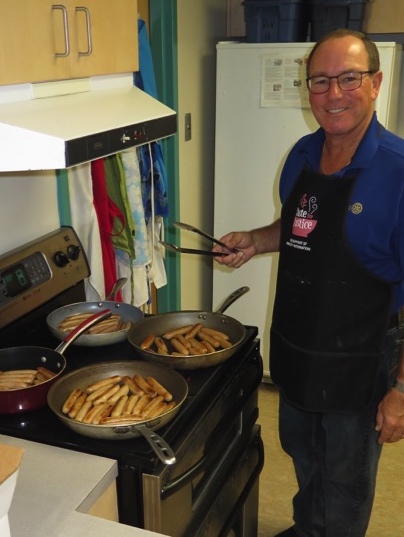 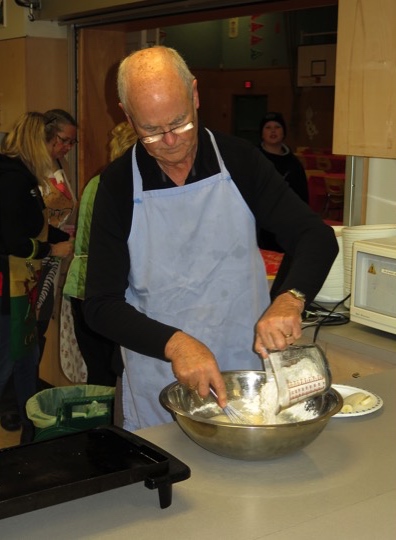 We were also working at the Christmas Craft Market at Nanaimo North Town Centre  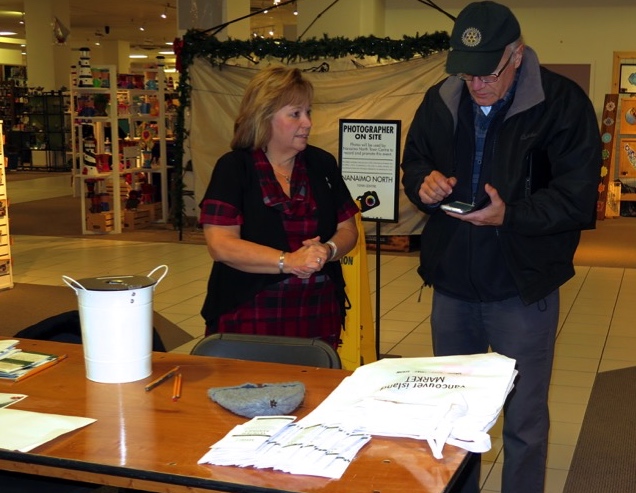 |
December round-up | Craig Clarke | 2019-01-19 08:00:00Z | 0 | |||||||||||||||||||||||||||||||||||||||||||||||||||||||||
End Polio Days in NanaimoThe Rotary Clubs of Nanaimo/Lantzville are hosting a ROTARY AWARENESS EVENT - End Polio Now VIU Malaspina Theatre - Building 310 Guest Speaker Joan Toone - Rotarian and Polio Survivor Learn why it’s so important that Polio be eradicated from the world and how Rotary is contributing to that goal Please join us for the evening. Please pass the word far and wide. Please bring a friend who might want to learn a little bit more about Rotary. Tickets, only $10, are available on line: https://www.eventbrite.ca/e/rotary-awareness-event-end-polio-now-tickets-51211008505?aff=ebdssbdestsearch In addition, we're going to have a flag raising (Rotary flag) on November 8th at city hall to kick-off End Polio Now Days in Nanaimo at 9:00 AM with the new mayor and council. |
End Polio Days in Nanaimo | Craig Clarke | 2018-11-01 07:00:00Z | 0 | |||||||||||||||||||||||||||||||||||||||||||||||||||||||||
Tree Planting Day at Beban Park
Posted by Craig Clarke on Sep 26, 2018
On Sunday September 23rd, our volunteers along with those from other clubs in area 4 marked the beginning of National Forest Week by planting trees on the bank below Merle Logan Fields (2253 Dorman Road). Planning was started in the previous Rotary year under Jim Turley, but the project was postponed by request of Nanaimo Parks. Thanks to city parks staff for their support; they dug many of the holes, delivered the trees, provided mulch and symbiotic mycorrhizae for the roots. 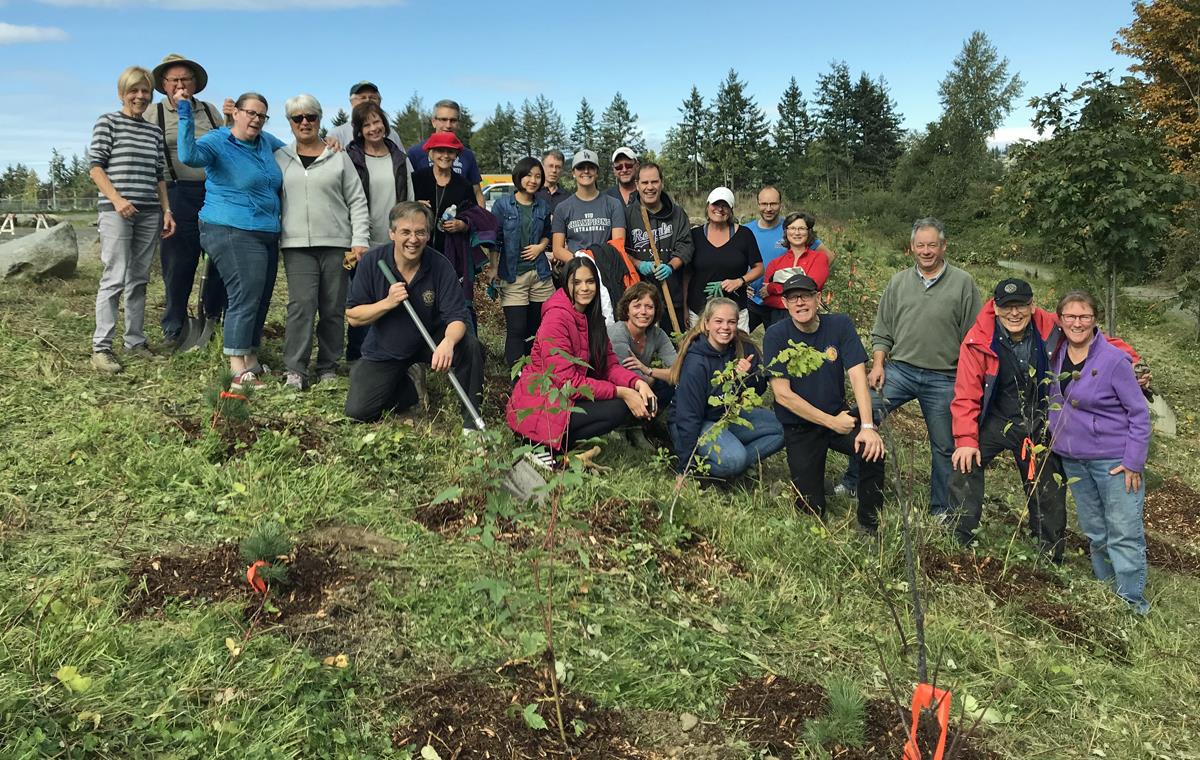 |
Tree Planting Day at Beban Park | Craig Clarke | 2018-09-26 07:00:00Z | 0 | |||||||||||||||||||||||||||||||||||||||||||||||||||||||||
New Zealand Friendship Exchange
Posted on Sep 17, 2018
by Gill Campbell 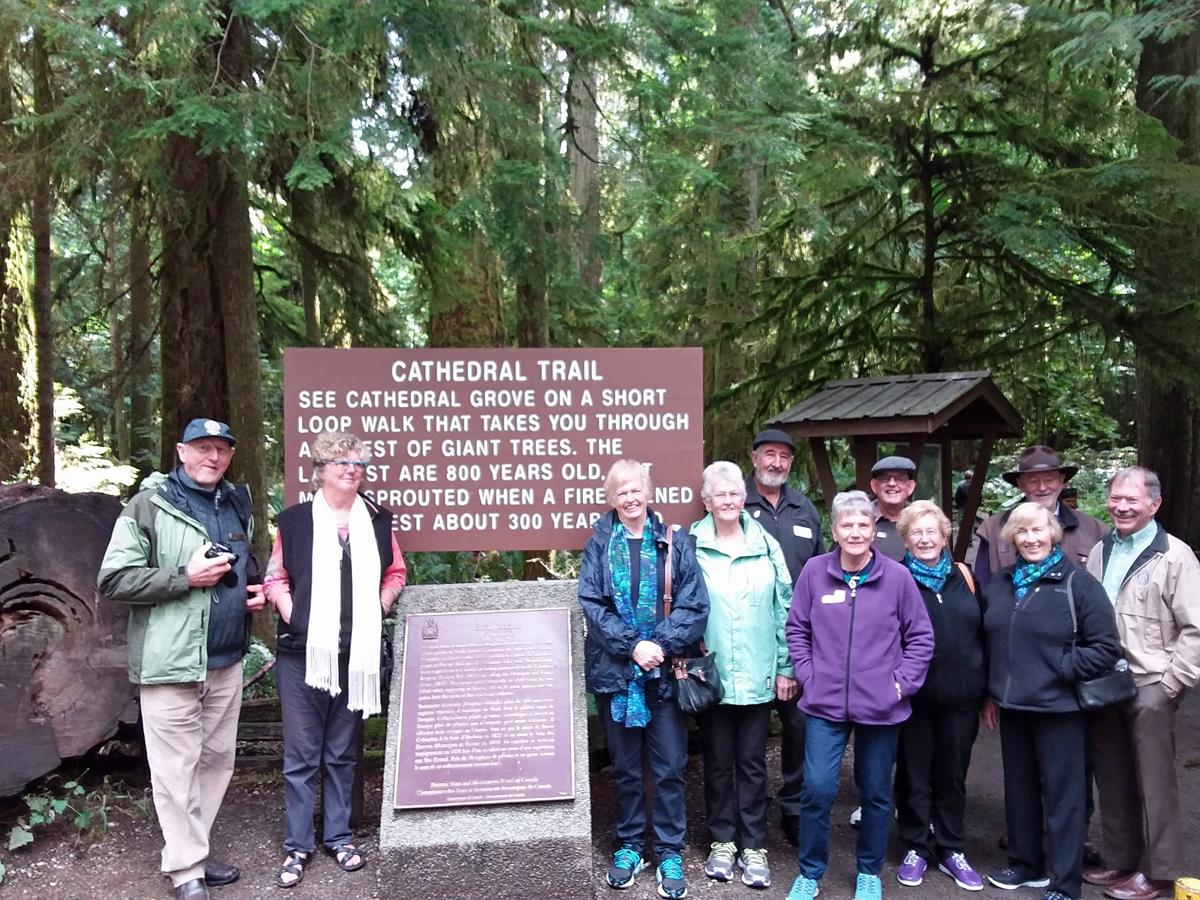 Peter Lillico, Gill, Sandra Kyle, Raewyn & David Lusk, David Baker, Bev Lillico, Christine Meredith, Anne Abbott, Robert Kyle, DG Craig Gillis. When nine New Zealanders (D9940) arrived at Departure Bay on 11 September, it kicked off the 2018/19 Rotary Friendship Exchange that will see Port Hardy, Nanaimo and Victoria Rotarians join our US partners in Wellington on March 15! |
New Zealand Friendship Exchange | Craig Clarke | 2018-09-17 07:00:00Z | 0 | |||||||||||||||||||||||||||||||||||||||||||||||||||||||||
Fresh roasted coffee from Rotary
Posted on Aug 15, 2018
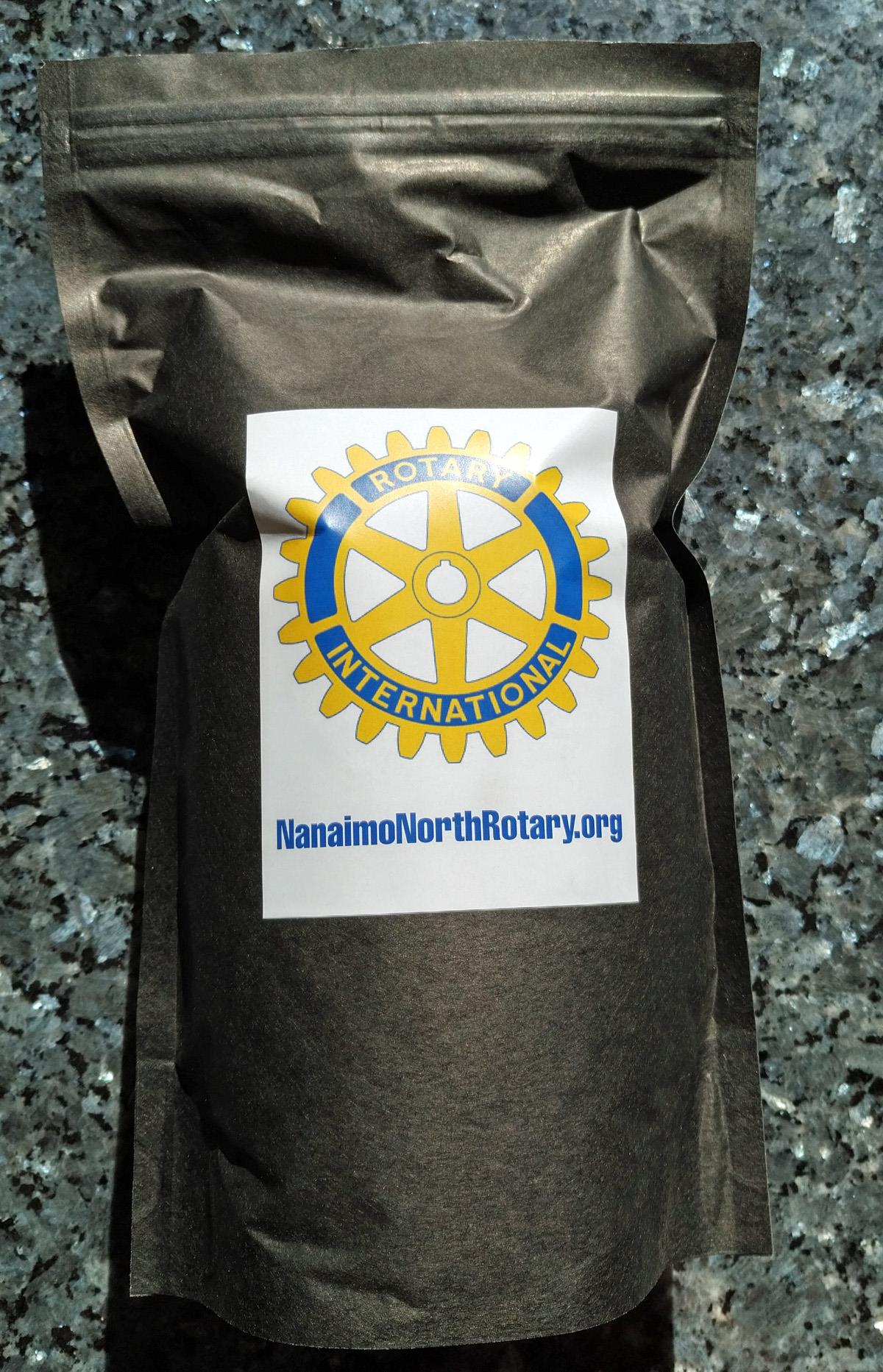 Organic, fairly traded beans, roasted locally on the Mid Island in a convenient re-sealable bag. Nanaimo North Rotary has three coffee bean products available to purchase. Decaf (Swiss Water Process) for $16 per 400g bag. Medium Roast for $15 per 400g bag Dark Roast for $15 per per 400g bag. Place your order online today and you will receive it next week. Click here to go to our order page; there you can enter the amount of your purchase and specify the products in the comments section.
|
Fresh roasted coffee from Rotary | Craig Clarke | 2018-08-15 07:00:00Z | 0 | |||||||||||||||||||||||||||||||||||||||||||||||||||||||||
Visit of Governor Craig Gillis
Posted on Aug 01, 2018
Dear President Paul and Nanaimo North Club Members..... We are well into a new Rotary year! I am honoured to have the opportunity to visit your impressive Rotary club on Tuesday evening at the Nanaimo Golf Club. I had the pleasure of attending one of your meetings last year and felt a tremendous sense of welcome. I'm back for a second helping! I will be excited to share the ‘launch’ of this new year with you. The Nanaimo North Rotary Club has a well earned reputation for ‘service above self’ and a proven history of community and global projects. Your support of the Rotary Youth Exchange programs annually helps young ambassadors experience a remarkable exchange year. You have district leaders who give so generously of their time. I look forward to seeing you on Tuesday as we support the 2018-2019 Rotary International theme: Be the Inspiration! Craig Gillis District Governor 2018-2019 |
Visit of Governor Craig Gillis | 2018-08-01 07:00:00Z | 0 | ||||||||||||||||||||||||||||||||||||||||||||||||||||||||||
Tour of Longwood Brewery July 31
Posted on Aug 01, 2018
by Don Dempson The original song talked about “I like bread and butter” (the Newbeats 1992) but after a recent tour of the Longwood Brewery the words could now be, “I love hops and barley”. Nineteen Rotarians, spouses and friends had an enjoyable tour of the brewery July 31 and they didn't come away disappointed. The group had the opportunity to sample six beers from light IPA style all the way to the brewery’s award winning black Russian Imperial Stoutnik. Those in attendance also had the opportunity to learn about the history of the brewery, how they source almost exclusively local ingredients and how their market has grown and become more and more accepted in the trendy and competitive craft brew market. 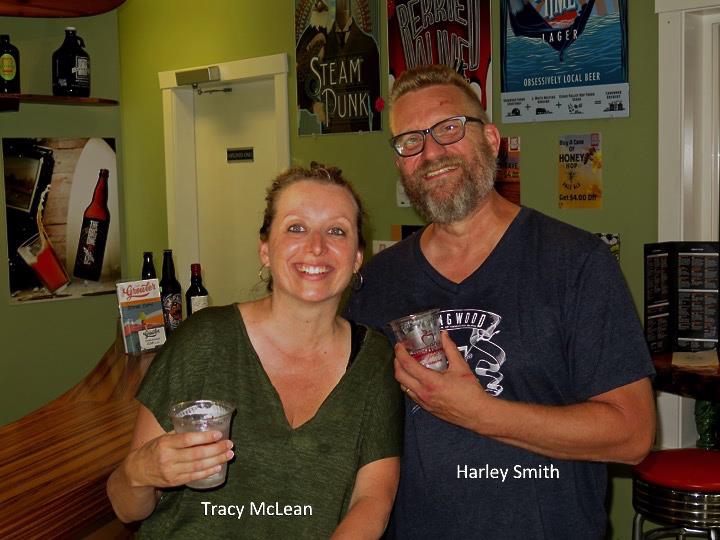 |
Tour of Longwood Brewery July 31 | Craig Clarke | 2018-08-01 07:00:00Z | 0 | |||||||||||||||||||||||||||||||||||||||||||||||||||||||||
Rotary Club of Nanaimo North Rotary Promotional Fine Art Exhibit
Posted on Jul 16, 2018
 Multi-media, 6’ X 6’ X 7’, Created by Derek Rickwood, BFA My New Rotary Story by Derek Rickwood On Saturday, June 23rd I was excited to share my first fine art exhibit designed to help promote Rotary with so many Rotarians and other humanitarians from around the world at our recent RI convention in House of Friendship at the Toronto Metro Convention Centre.
|
Rotary Club of Nanaimo North Rotary Promotional Fine Art Exhibit | Craig Clarke | 2018-07-16 07:00:00Z | 0 | |||||||||||||||||||||||||||||||||||||||||||||||||||||||||
BREW uses fellowship to help provide clean water
Posted by Craig Clarke on Jul 10, 2018
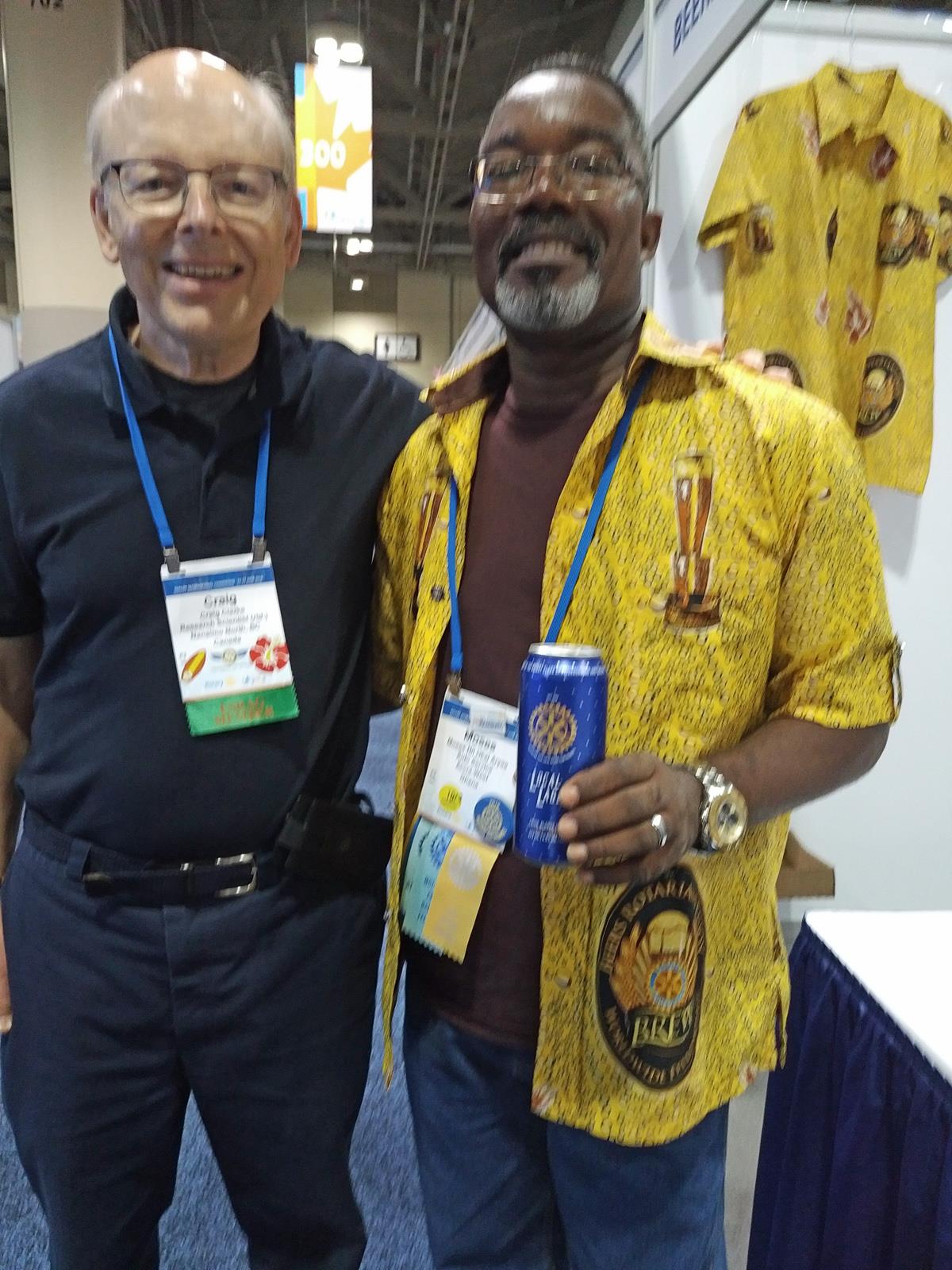 With Moses Aryee, Past President of the Rotary Club of Accra-West Ghana & president of the BREW (Beers Rotarians Enjoy Worldwide) Fellowship.
|
BREW uses fellowship to help provide clean water | Craig Clarke | 2018-07-10 07:00:00Z | 0 | |||||||||||||||||||||||||||||||||||||||||||||||||||||||||
More pictures from Installation 2018
Posted by Craig Clarke on Jun 08, 2018
|
More pictures from Installation 2018 | Craig Clarke | 2018-06-08 07:00:00Z | 0 | |||||||||||||||||||||||||||||||||||||||||||||||||||||||||
May Community Breakfast
Posted by Craig Clarke on Jun 03, 2018
|
May Community Breakfast | Craig Clarke | 2018-06-03 07:00:00Z | 0 | |||||||||||||||||||||||||||||||||||||||||||||||||||||||||
Interview with Michele Guy, co-chair of Toronto 2018 HOC
Posted on Mar 12, 2018
|
Interview with Michele Guy, co-chair of Toronto 2018 HOC | Craig Clarke | 2018-03-12 07:00:00Z | 0 | |||||||||||||||||||||||||||||||||||||||||||||||||||||||||
25 years ago: President Jim presents $10k to Port Theatre 1993
Posted on Mar 03, 2018
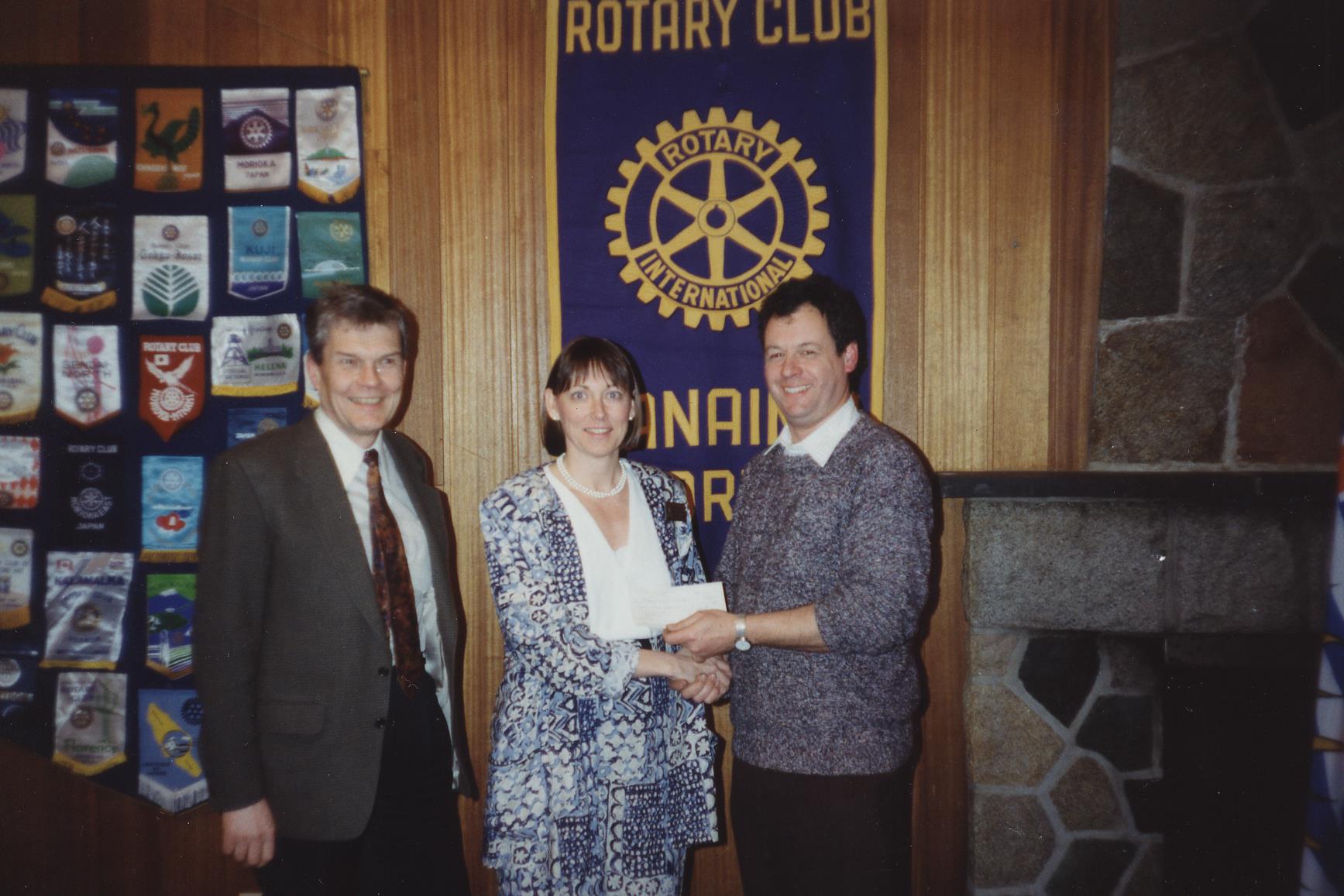 President Jim hands a cheque for $10,000 to Sandra Thompson & Michael Stebbings for the theatre building fund. The image is courtesy of Sandra. She says: Rotary Club of Nanaimo North was the leadership gift of $10,000 that started the other three Rotary clubs to match them - (Oceanside and Daybreak didn't exist back then!). So it was an important step in the Service Club campaign which eventually saw every type of club in the region contribute over $200,000! Ian Niamath, a former member of the club was very actively involved in the fundraising campaign. Sandra Thompson started working for the Harbourfront Centre Society in 1990 as development officer. Michael Stebbings was project manager from 1993-96. The official opening of the Theatre was on September 16, 1998. |
25 years ago: President Jim presents $10k to Port Theatre 1993 | Craig Clarke | 2018-03-03 08:00:00Z | 0 | |||||||||||||||||||||||||||||||||||||||||||||||||||||||||
Glen Raynor spoke at Rotary Peace Conference
Posted on Mar 02, 2018
by Mary Coward District 5020 Peace Fellow Glenn Raynor speaks at Rotary Peace Conference in Vancouver – and his sponsor club in Victoria Glenn Raynor recently traveled from the Democratic Republic of the Congo, where he’s serving as Executive Director of the Jane Goodall Institute, to Vancouver to speak at the Presidential Peacebuilding Conference on Feb. 9-11, 2018 where over 800 Rotarians gathered to discuss a range of topics themed around Environmental Sustainability and Peace. Photo Caption: Glenn Raynor |
Glen Raynor spoke at Rotary Peace Conference | Craig Clarke | 2018-03-02 08:00:00Z | 0 | |||||||||||||||||||||||||||||||||||||||||||||||||||||||||
Presidential Peacebuilding Conference Vancouver Feb 9_11 2018
Posted by Craig Clarke on Feb 26, 2018
This was the first of six Presidential Peacebuilding Conferences in 2018 which link Rotary International’s five other areas of focus including, Disease Prevention and Treatment, Water and Sanitation, Maternal and Child Health, Basic Education and Literacy, and Economic and Community Development, with Peace. Derek & Craig attended the conference along with Frank Shoemaker from the downtown club, DG Tom Carroll, DG elect Craig Gillis, DG nominee Maureen Fritz-Roberts and 800 Rotarians from around the world. 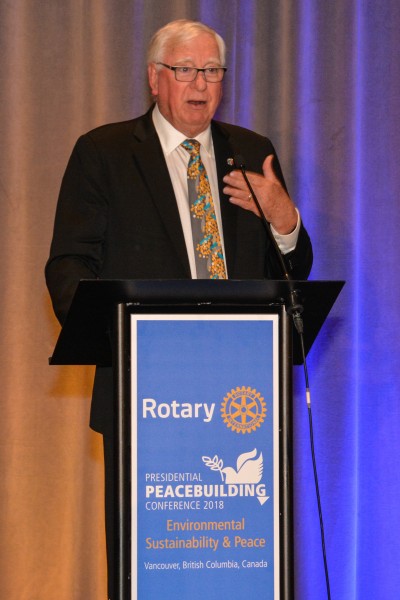 |
Presidential Peacebuilding Conference Vancouver Feb 9_11 2018 | Craig Clarke | 2018-02-26 08:00:00Z | 0 | |||||||||||||||||||||||||||||||||||||||||||||||||||||||||
Recent meetings
Posted by Craig Clarke on Jan 31, 2018
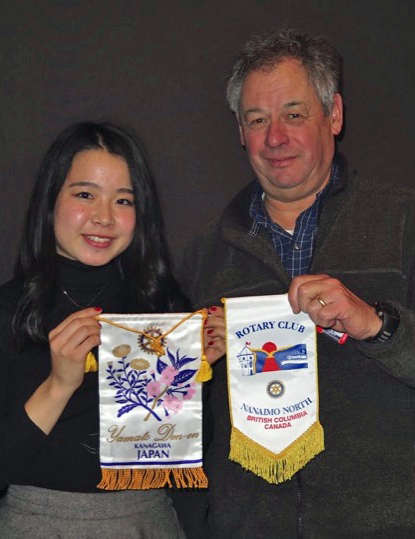 Dec 5 2017: Hikaru Nakamura presents Pres. Jim with a banner from District 27890 in Japan. She is a business student at VIU Thanks to Don Dempson for providing photos & some humorous captions from our recent meetings.
|
Recent meetings | Craig Clarke | 2018-01-31 08:00:00Z | 0 | |||||||||||||||||||||||||||||||||||||||||||||||||||||||||
President Riseley's tree planting challenge
Posted by Craig Clarke on Jan 31, 2018
 President Riseley challenged every Rotary club to make a difference by planting a tree for each of its members between the start of the Rotary year on 1 July and Earth Day on 22 April 2018. Trees remove carbon dioxide and other greenhouse gases from the air, which slows global warming. “It is my hope that the result of that effort will be far greater than the environmental benefit that those 1.2 million new trees will bring,” Riseley said. “I believe the greater result will be a Rotary that recognizes our responsibility not only to the people on our planet, but to the planet itself.” Link to tree planting brochure: https://www.esrag.org/sites/default/files/imce/ESRAG_Tree%20challenge%20brochure_ff.pdf Click here for Youtube video of President Riseley issuing the challenge at last year's convention.
|
President Riseley's tree planting challenge | Craig Clarke | 2018-01-31 08:00:00Z | 0 | |||||||||||||||||||||||||||||||||||||||||||||||||||||||||
New Theme for Club Website
Posted by Craig Clarke on Nov 26, 2017
If you are wondering why the appearance of our website has changed, we are using a new theme. ClubRunner is discontinuing our old theme as of November 30th. The advantage of the new themes without a banner image is that they are more compatible with mobile devices. Please direct comments or suggestions to Craig.
|
New Theme for Club Website | Craig Clarke | 2017-11-26 08:00:00Z | 0 | |||||||||||||||||||||||||||||||||||||||||||||||||||||||||
November 11 Community Breakfast
Posted by Craig Clarke on Nov 19, 2017
Thanks to Don Dempson for the photos.     |
November 11 Community Breakfast | Craig Clarke | 2017-11-19 08:00:00Z | 0 | |||||||||||||||||||||||||||||||||||||||||||||||||||||||||
Video on the 100th anniversary of Rotary Foundation
Posted on Oct 14, 2017
Video by Shaw TV in Nanaimo featuring Frank Shoemaker, Rotary Club of Nanaimo and Patrick Maguire, Nanaimo Daybreak Rotary. Click here to view.
|
Video on the 100th anniversary of Rotary Foundation | Craig Clarke | 2017-10-14 07:00:00Z | 0 | |||||||||||||||||||||||||||||||||||||||||||||||||||||||||
Why the Rotary year begins 1 July
Posted on Sep 21, 2017
The international convention initially played a key role in determining the start date of our fiscal and administrative year. Click here for story on Rotary website.
|
Why the Rotary year begins 1 July | Craig Clarke | 2017-09-21 07:00:00Z | 0 | |||||||||||||||||||||||||||||||||||||||||||||||||||||||||
Harewood Family Fun Night Aug 31
Posted by Craig Clarke on Sep 08, 2017
Club members prepared burgers, hot dogs & popcorn at Harewood Centennial Park last week. Thanks to Country Grocer for donation of hamburgers, hot dogs, buns & condiments. 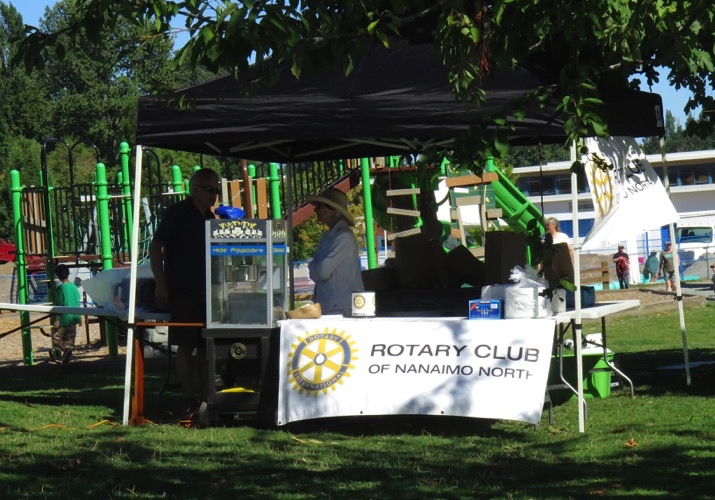  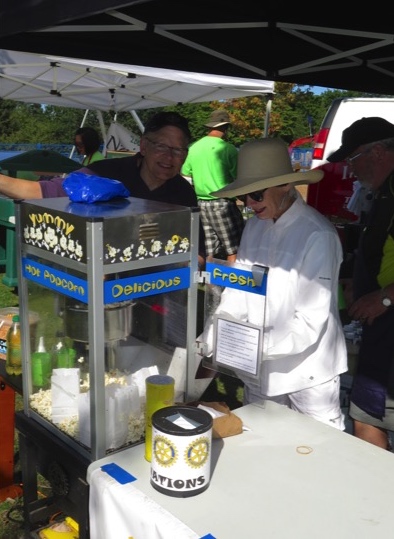  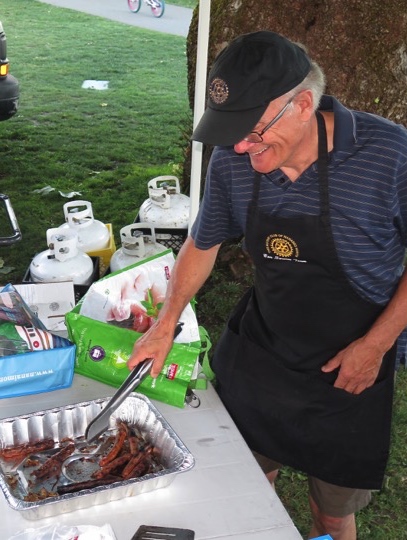 |
Harewood Family Fun Night Aug 31 | Craig Clarke | 2017-09-08 07:00:00Z | 0 | |||||||||||||||||||||||||||||||||||||||||||||||||||||||||
Disaster AID USA responds to Hurricane Harvey
Posted on Aug 30, 2017
|
Disaster AID USA responds to Hurricane Harvey | Craig Clarke | 2017-08-30 07:00:00Z | 0 | |||||||||||||||||||||||||||||||||||||||||||||||||||||||||
Symphony in the Harbour
Posted by Craig Clarke on Aug 12, 2017
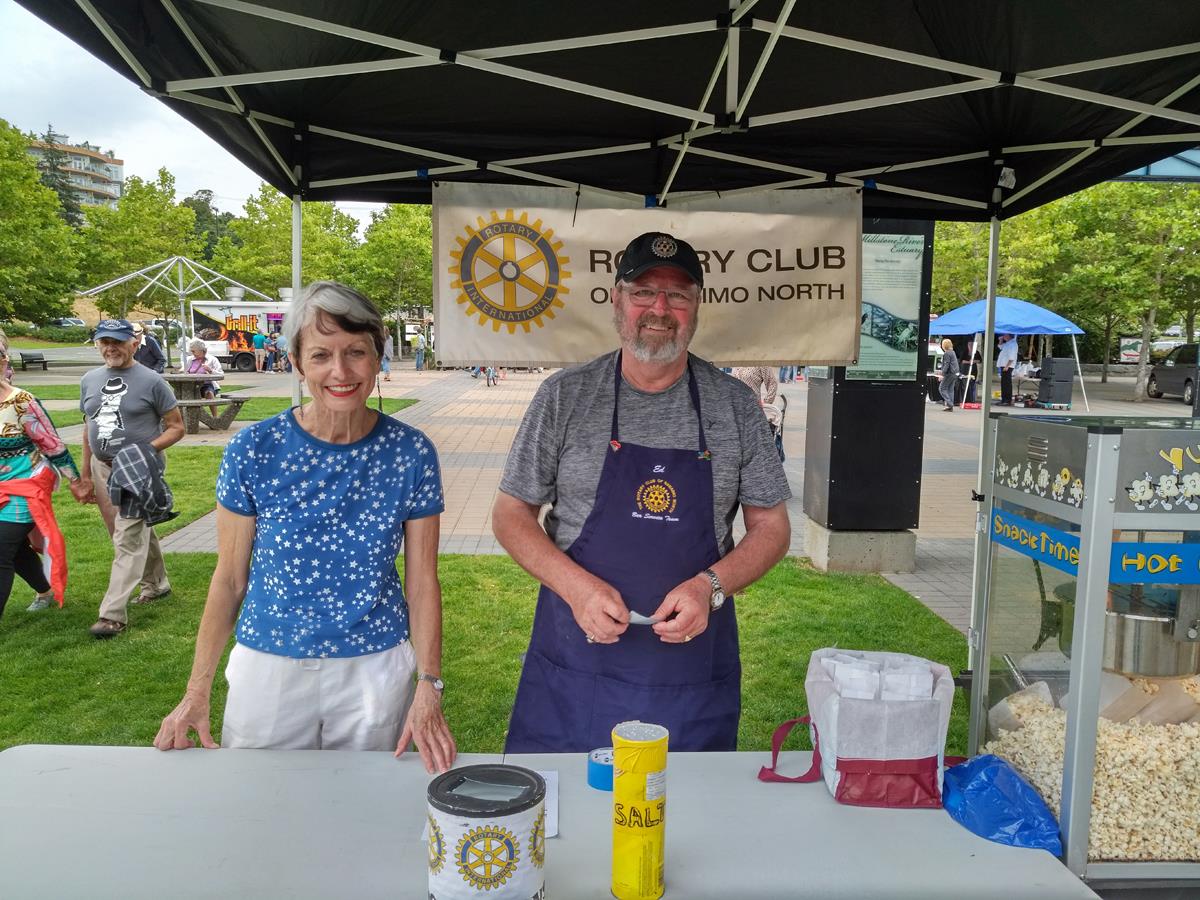 Anne Marie & Ed ready to serve popcorn to the audience   |
Symphony in the Harbour | Craig Clarke | 2017-08-12 07:00:00Z | 0 | |||||||||||||||||||||||||||||||||||||||||||||||||||||||||
Barry Rassin nominee for RI President 2018_19
Posted on Aug 08, 2017
Barry Rassin, of the Rotary Club of East Nassau, New Providence, Bahamas, is the selection of the Nominating Committee for President of Rotary International for 2018-19. He will be declared the president-elect on 1 September if no challenging candidates have been suggested. As president, Rassin aims to strengthen our public image and our use of digital tools to maximize Rotary’s reach. 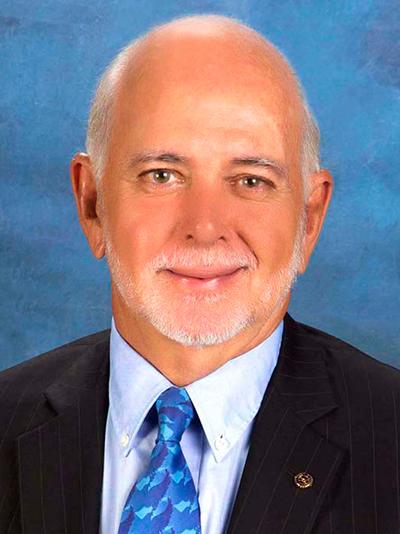 Click here for full story on the RI webpage |
Barry Rassin nominee for RI President 2018_19 | Craig Clarke | 2017-08-08 07:00:00Z | 0 | |||||||||||||||||||||||||||||||||||||||||||||||||||||||||
Excerpts from RI Convention in Atlanta
Posted on Aug 05, 2017
|
Excerpts from RI Convention in Atlanta | 2017-08-05 07:00:00Z | 0 | ||||||||||||||||||||||||||||||||||||||||||||||||||||||||||
Presidential Conference on Sustainability Feb 2018
Posted by Craig Clarke on Aug 04, 2017
An Opportunity for Rotary, the Environment, and Peace RI President Ian Riseley has made environmental sustainability a major focus for his year. 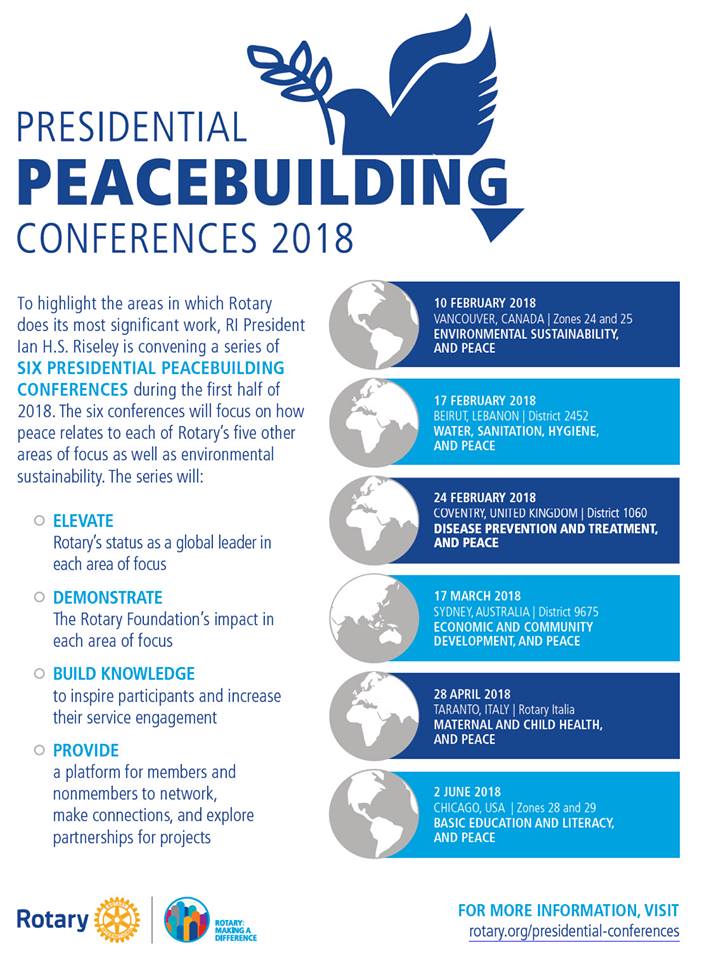 Click here to see President Riseley's invitation to his Presidential Conference on Environmental Sustainability and Peace in Vancouver on the weekend of February 9 - 11, 2018. As members of the Rotary Family who understand the central role that environmental sustainability plays in the long term success of all that Rotary does, we urge you to join us at this conference. Keynote speakers: Ian Riseley, RI President 2017-2018. Chartered accountant. Paul Netzel, Rotary Foundation Trustee Chair. Management Consultant. Dr. Jonathan Patz, Director, Global Health Institute, University of Wisconsin Jess Housty, Heiltsuk First Nation, tribal councillor & chair of the lands portfolio. David Suzuki. Prof. Emeritus, UBC, Companion to the Order of Canada, recipient of the UN Environment Program Medal. Douglas Justice, University of BC Botanical Gardens, Associate Director of Horticulture. Linda Low, Rotary Peace Fellow at Duke/University of North Carolina Rotary Peace Center. Schedule Registration & opening reception Friday evening. Plenary sessions & breakouts on Saturday Hands-on project TBA on Sunday morning. Venue - Hyatt Regency, Vancouver. Click here to go to conference website Click here to read the article in Rotary Leader on Presidential Conferences on Peace & Areas of Focus |
Presidential Conference on Sustainability Feb 2018 | Craig Clarke | 2017-08-04 07:00:00Z | 0 | |||||||||||||||||||||||||||||||||||||||||||||||||||||||||
RI President Elect Sam Owori 1941_2017
Posted on Jul 29, 2017
 |
RI President Elect Sam Owori 1941_2017 | Craig Clarke | 2017-07-29 07:00:00Z | 0 | |||||||||||||||||||||||||||||||||||||||||||||||||||||||||
Collection at Nanaimo North Town Centre July 29
Posted by Craig Clarke on Jul 29, 2017
|
Collection at Nanaimo North Town Centre July 29 | Craig Clarke | 2017-07-29 07:00:00Z | 0 | |||||||||||||||||||||||||||||||||||||||||||||||||||||||||
Disaster Aid Collection for fire evacuees July 29 -31
Posted on Jul 27, 2017
|
Disaster Aid Collection for fire evacuees July 29 -31 | Craig Clarke | 2017-07-27 07:00:00Z | 0 | |||||||||||||||||||||||||||||||||||||||||||||||||||||||||
Canada announced $100M over three years for polio eradication
Posted on Jun 15, 2017
The Honourable Marie-Claude Bibeau, Minister of International Development and La Francophonie, announced at the Rotary Convention in Atlanta that Canada will contribute $100 million over three years to the Global Polio Eradication Initiatives’ Endgame Strategic Plan, which seeks to wipe polio out for good by 2020. Canada has been a significant supporter of the fight against polio from the very beginning, having contributed over $600 million to eradication efforts since 2000. With only three polio-endemic countries remaining in the world, and only five new cases so far in 2017, global polio eradication is closer than ever.
|
Canada announced $100M over three years for polio eradication | Craig Clarke | 2017-06-15 07:00:00Z | 0 | |||||||||||||||||||||||||||||||||||||||||||||||||||||||||
Bill Gates Keynote on Polio eradication at Atlanta Convention
Posted on Jun 14, 2017
By Ryan Hyland and Teresa Schmedding Bill Gates, speaking on 12 June at the Rotary International Convention, highlighted the extraordinary progress that’s been made toward a polio-free world, along with challenges ahead. Speaking at the Georgia World Congress Center in Atlanta, Georgia, USA, Gates reminded the audience of more than 22,000 attendees, who were given LED bracelets to wear, that the effort must continue and be strengthened before polio cases can be reduced to zero. Click here for video clip of Gates address |
Bill Gates Keynote on Polio eradication at Atlanta Convention | Craig Clarke | 2017-06-14 07:00:00Z | 0 | |||||||||||||||||||||||||||||||||||||||||||||||||||||||||
Community Breakfast May 2017
Posted by Craig Clarke on May 17, 2017
 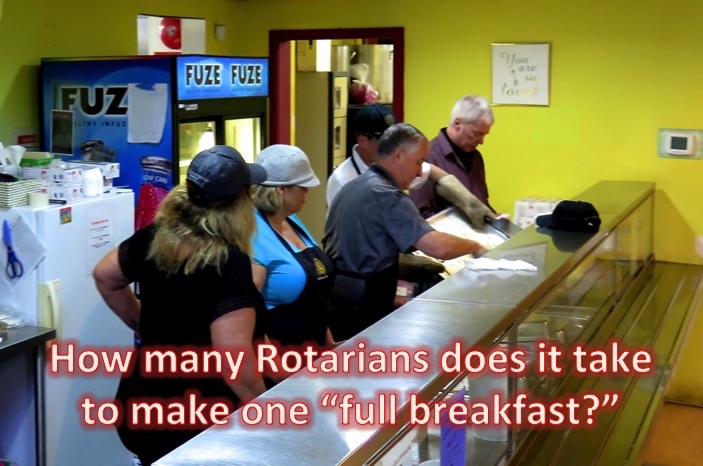 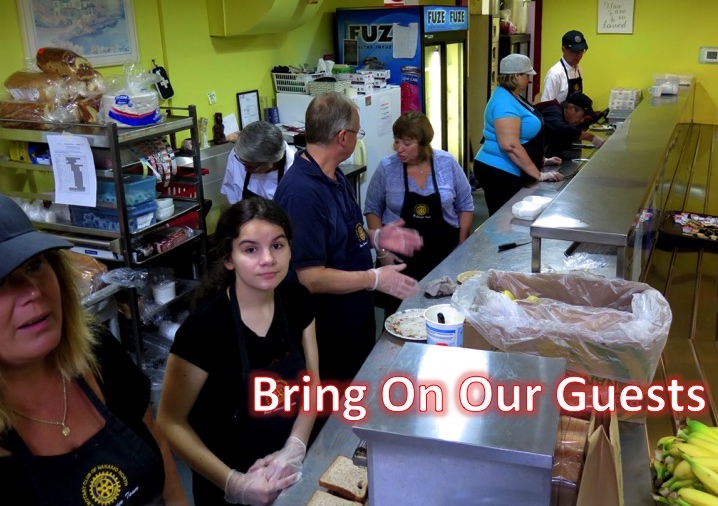 Another successful breakfast May 13th
|
Community Breakfast May 2017 | Craig Clarke | 2017-05-17 07:00:00Z | 0 | |||||||||||||||||||||||||||||||||||||||||||||||||||||||||
Jack (John Edward) Vallance 1926 - 2017
Posted by Craig Clarke on May 13, 2017
Jack died last Saturday at age 91. He was a charter member and past president (1974-75) of our club. We offer our condolences to his family. A memorial service will be held at St Andrew's Presbyterian Church at 1:30 PM on Tuesday May16th.
|
Jack (John Edward) Vallance 1926 - 2017 | Craig Clarke | 2017-05-13 07:00:00Z | 0 | |||||||||||||||||||||||||||||||||||||||||||||||||||||||||
Doug Greer 1922 - 2017
Posted by Craig Clarke on Apr 28, 2017
DOUGLAS M. GREER 1922—2017 With regret we report the passing of Rotarian Doug Greer on April 7th. Doug was a member of Nanaimo Rotary club since 1978 and was President in 1995 -96, a Paul Harris Fellow and an Honorary Member. He joined our club in November 2009 sponsored by Mike Mah. Doug attended our meetings while he lived at Kiwanis Village. He returne  d to the Nanaimo Rotary Club October 2010 when he moved downtown. d to the Nanaimo Rotary Club October 2010 when he moved downtown.Doug served in the RCAF in WWII and upon his return from the war he attended UBC law and had a long and distinguished career retiring as a provincial court judge. He was not only active in Rotary, but was active in Ashlar Lodge, Shriners and a number of societies in Nanaimo. In his youth Doug enjoyed flying, boating and spending summers with his family on Long Lake. A private Celebration of Life will be held at a later date
|
Doug Greer 1922 - 2017 | Craig Clarke | 2017-04-28 07:00:00Z | 0 | |||||||||||||||||||||||||||||||||||||||||||||||||||||||||
We’re so close to eradicating polio. Here’s why we need $1.5 billion more to finish the job.
Posted on Apr 17, 2017
By Ryan Hyland and Erin Biba When was polio last in Europe? If you guessed 2002, the year the region was certified polio-free, you’re wrong. The last time polio affected a child in Europe was 2015. Two Ukrainian children were diagnosed with paralytic polio, and that likely means that many more were infected and didn’t show symptoms. At least one Western news outlet deemed the outbreak “crazy” — but the reality is that no place on Earth is safe from polio until the disease is eradicated everywhere. Ukraine had fully vaccinated only 50 percent of its children against polio, and low immunization rates are a recipe for an outbreak. In this case, a rare mutation in the weakened strain used in the oral polio vaccine was able to spread because so many children had not been vaccinated. To stop it from progressing, the country needed to administer 6 million vaccines through an emergency program. Click here to go to full article on Rotary website.
|
We’re so close to eradicating polio. Here’s why we need $1.5 billion more to finish the job. | Craig Clarke | 2017-04-17 07:00:00Z | 0 | |||||||||||||||||||||||||||||||||||||||||||||||||||||||||
Rotary Foundation Centennial Celebration April 1
Posted by Rob Waine on Apr 06, 2017
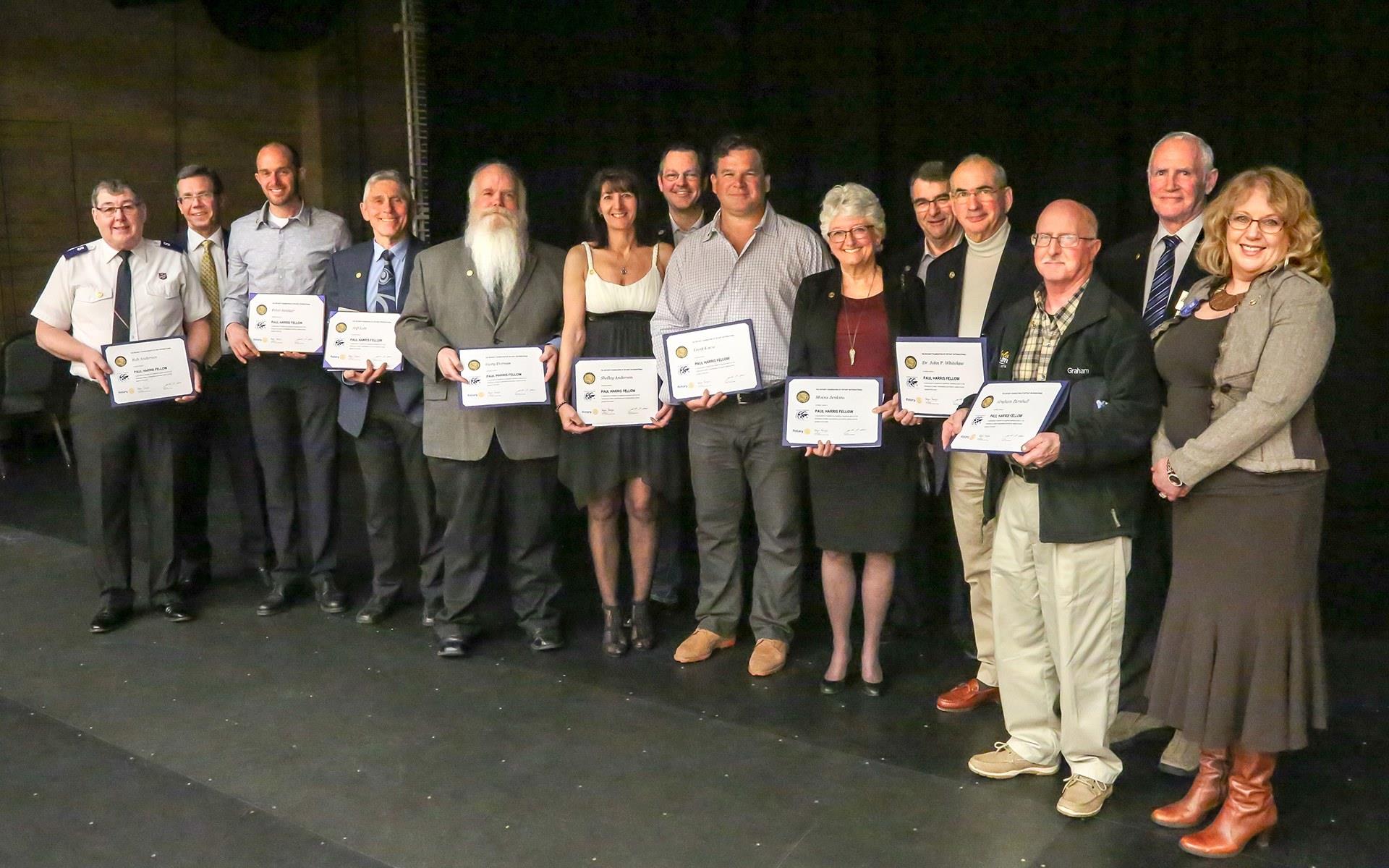 On Saturday April 1st the 5 Nanaimo and Lantzville Rotary Clubs hosted a successful celebration of the Rotary Foundation's Centennial at Beban Auditorium. The event was attended by members and partners from each club, as well as scores of prominent community members. The organizing committee, headed by our very own Derek Rickwood did a fine job in putting together an informative and positive program featuring greetings from Snuneymuxw First Nation and Nanaimo mayor Bill Mackay, information on Rotary's youth programs, and, of course, The Rotary Foundation.
Ten Paul Harris Fellow Awards were presented to some exceptional community members. Our club's awards went to Deborah Marshall - Principal of John Barsby Community School - and to Rob Anderson - Director of Community Ministries at Salvation Army. We partner with the school at several events a year, and with Salvation Army's New Hope Centre monthly when we put on our community breakfast. Congratulations to Derek and his committee, and to Deb and Rob - our award recipients! |
Rotary Foundation Centennial Celebration April 1 | Rob Waine | 2017-04-06 07:00:00Z | 0 | |||||||||||||||||||||||||||||||||||||||||||||||||||||||||
Medical equipment for Ghana
Posted by Craig Clarke on Mar 23, 2017
Our club executive approved a $500 contribution to this US$100,500 project to supply blood fridges & medical equipment in the Brong-Ahafo region of Ghana. (Brong-Ahafo is in south Ghana west of Lake Volta; it surrounds the towns of Sunyani and Techiman.) Bev Hilton & the Oceanside Rotary Club will administer the project. How did this project come to be? There is a 10-year history behind this project: The evolution of the Rotary World Community Service Mid-Island Group since 2007 has brought us to the point of being able to jointly plan, develop and implement a major project of this type. The leveraged funding and sharing of expertise of MIG will allow us to make larger contributions and more significant impacts on our world communities. |
Medical equipment for Ghana | Craig Clarke | 2017-03-23 07:00:00Z | 0 | |||||||||||||||||||||||||||||||||||||||||||||||||||||||||
D5020 Foundation Centennial Dinner
Posted by Craig Clarke on Mar 22, 2017
Craig attended the first Centennial Celebration for D5020 in Victoria March 18th. An enjoyable event complete with a surprise appearance by Floyd the Nerd who joked with DG Joanne Croghan, DG Nominee Designate Tom Carroll & Rotary VP Jennifer Jones. Jennifer Jones gave a masterful presentation on the core values of Rotary. 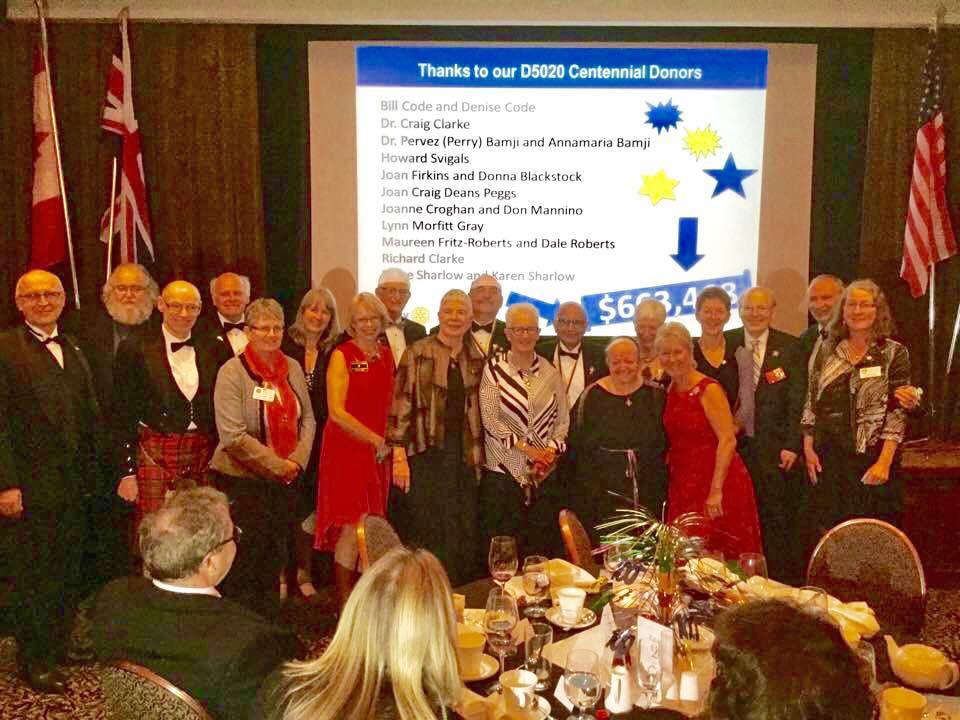 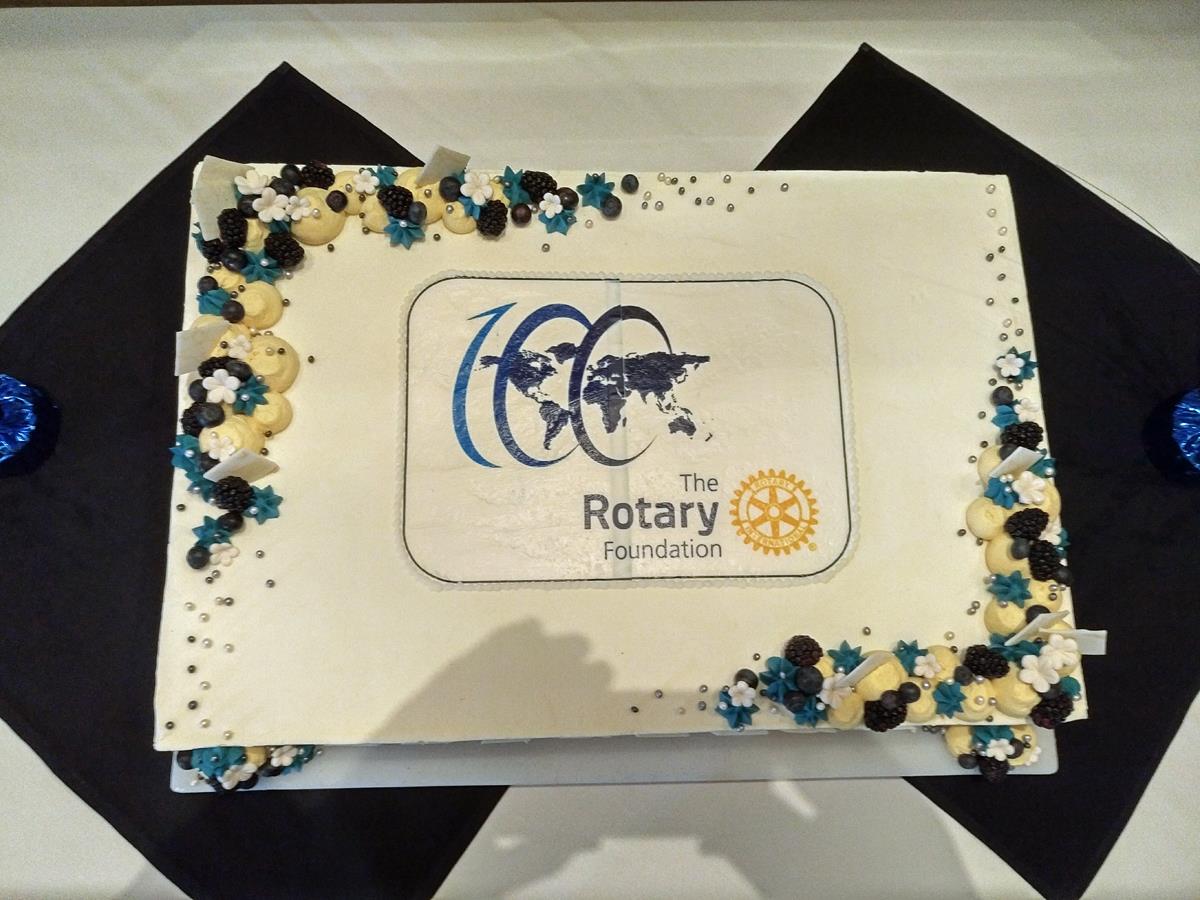 Generous Centennial donors from D5020 added $683,648 to the Rotary Foundation! |
D5020 Foundation Centennial Dinner | Craig Clarke | 2017-03-22 07:00:00Z | 0 | |||||||||||||||||||||||||||||||||||||||||||||||||||||||||
Outstanding Rotary Youth Exchange award for D5020
Posted on Mar 22, 2017
At the recent NAYEN (North American Youth Exchange Network) Conference hosted in Calgary, Alberta, the Rotary Youth Exchange Program of District 5020 was honoured with the Dr. Abe Kuttothara Award as the “outstanding Rotary Youth Exchange District in North America”. The award is given annually to a District from Canada, the U.S., or Mexico that exemplifies the ideals of Rotary Youth Exchange fostered by a North American Youth Exchange Network pioneer, Dr. Abe Kuttothara. 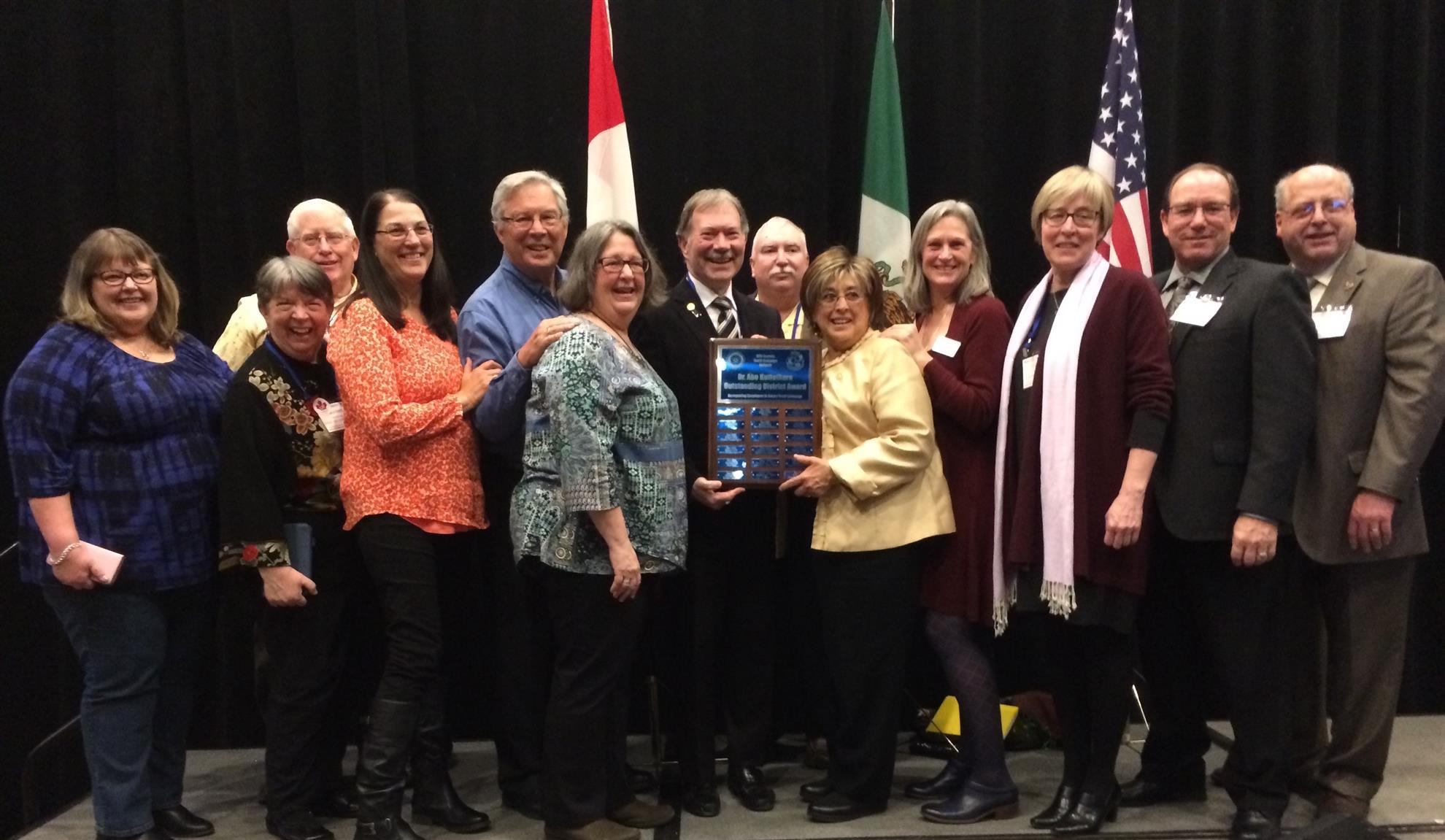 Craig Gillis holding the plaque, Paul Geneau second from right In accepting the award on behalf of District 5020, District Chair Craig Gillis acknowledged the tremendous ‘team’ effort of the District 5020 Youth Exchange Committee, a group of dedicated volunteers who give tirelessly of their time and talents to provide a remarkable opportunity for students who immerse themselves in the world of youth exchange. “We view our students as peace ambassadors, individuals who have are able to transform our world through understanding and acceptance, bringing us closer to global peace one student at a time”. In presenting the award Sofia Sotomayor, Chair of RYE District 4100 in Mexico, noted the award acknowledges the longevity of the District 5020 program, its exceptional training for both inbound and outbound students, its efforts to create opportunities for both long term and short term exchanges, its blend of U.S. and Canadian clubs and its commitment to innovative programs that support and encourage a successful exchange year for all participants. Recently all inbound students attended the five day Comox Rendezvous, a series of winter activities sponsored by the four Rotary clubs in the Comox Valley. It is also noteworthy that several members of the committee provide leadership beyond the district level. District 5020 is so proud of the commitment of district Rotary clubs dedicated to sponsoring and hosting students year after year. An amazing group of clubs annually welcome students to their club and give them experiences and opportunities they will carry with them for a lifetime. That is at the heart of what truly makes this an ‘outstanding’ Rotary Youth Exchange District. The District Committee wish to thank all of those Youth Exchange Officers, Counsellors, Youth Protection Officers and Rotarians who truly believe in this life changing program. |
Outstanding Rotary Youth Exchange award for D5020 | Craig Clarke | 2017-03-22 07:00:00Z | 0 | |||||||||||||||||||||||||||||||||||||||||||||||||||||||||
We were at John Barsby School for Northern Games
Posted by bill robinson on Mar 17, 2017
Thanks to Ed, Anne Marie, Jim, Ian, Derek, Rob ... We served hamburgers to 1000 students at the Northern Games event at Barsby. We were an awesome team and much appreciated by the students and their teachers. Click here for a Youtube video of the event.
|
We were at John Barsby School for Northern Games | bill robinson | 2017-03-17 07:00:00Z | 0 | |||||||||||||||||||||||||||||||||||||||||||||||||||||||||
Beer 'n Burger Feb 23
Posted by Craig Clarke on Mar 11, 2017
Thanks to Don Dempson for these pictures at the event.
.jpg) .jpg)  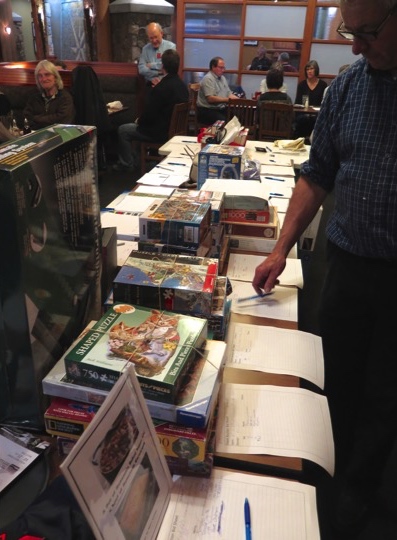 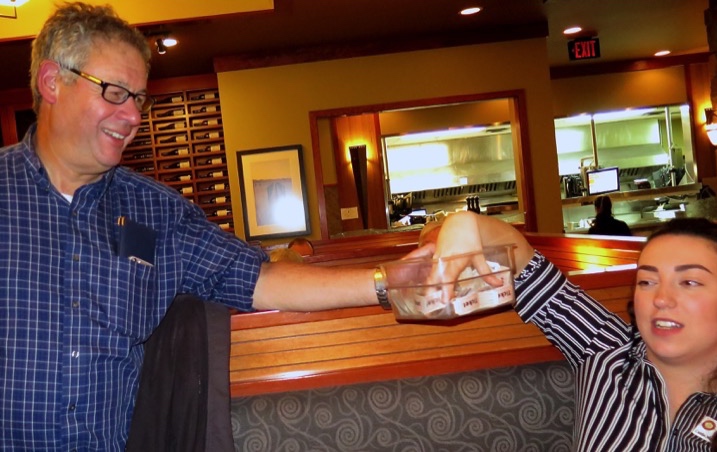 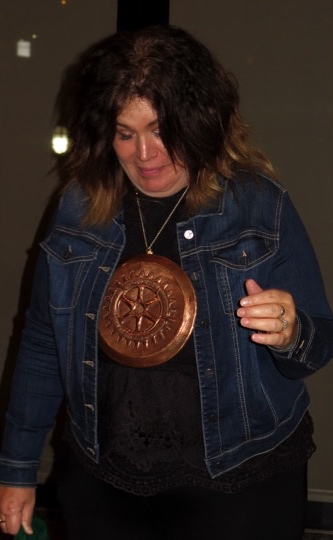 .jpg) |
Beer 'n Burger Feb 23 | Craig Clarke | 2017-03-11 08:00:00Z | 0 | |||||||||||||||||||||||||||||||||||||||||||||||||||||||||
RIP Bob Fenty
Posted by Craig Clarke on Feb 23, 2017
 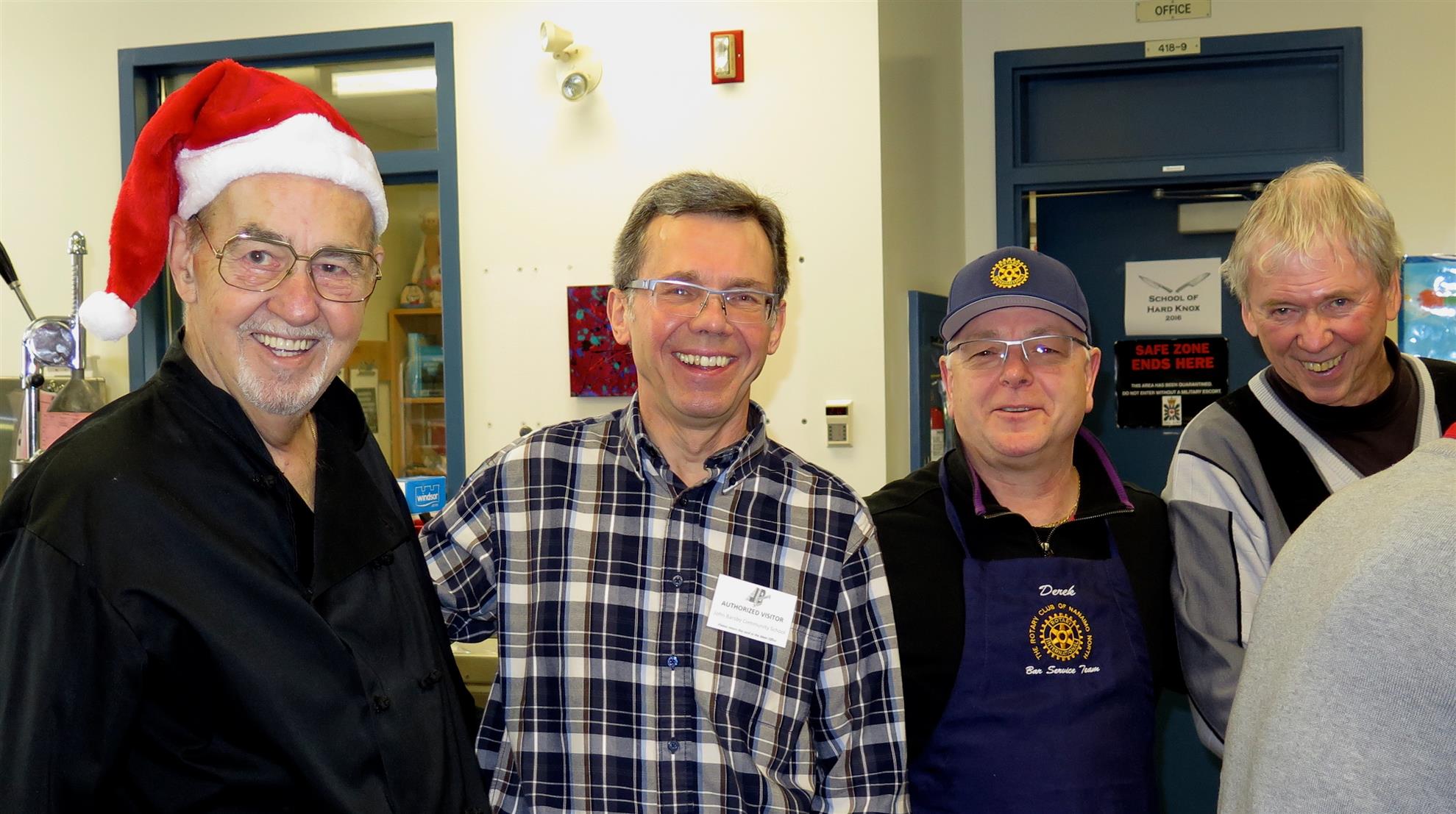 Don Dempson provided these images from an event at John Barsby School last December.
Bob died on February 18th . A member of the Nanaimo Rotary Club for 30 years, Bob was an enthusiastic promoter of Rotary.
There will be a Celebration of Life on Sunday, March 5th from1:00 to 3:00 PM at the Coast Hotel. All members of Rotary are invited.
|
RIP Bob Fenty | Craig Clarke | 2017-02-23 08:00:00Z | 0 | |||||||||||||||||||||||||||||||||||||||||||||||||||||||||
Loaves & Fishes Service Project Jan 24 2017
Posted by Craig Clarke on Jan 26, 2017
|
Loaves & Fishes Service Project Jan 24 2017 | Craig Clarke | 2017-01-26 08:00:00Z | 0 | |||||||||||||||||||||||||||||||||||||||||||||||||||||||||
Rotary International VP Jennifer Jones is keynote speaker at the Centennial Dinner on March 18
Posted by Craig Clarke on Jan 20, 2017
District 5020 will celebrate 100 Years of The Rotary Foundation ‘doing good in the world’ at a special Centennial Celebration Dinner in Victoria B.C. on Saturday, March 18, 2017. The keynote speaker is Rotary International (RI) Vice-President Jennifer Jones.
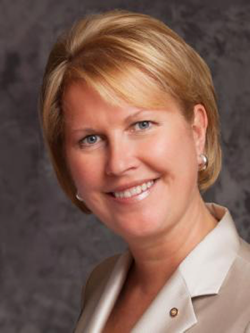 |
Rotary International VP Jennifer Jones is keynote speaker at the Centennial Dinner on March 18 | Craig Clarke | 2017-01-20 08:00:00Z | 0 | |||||||||||||||||||||||||||||||||||||||||||||||||||||||||
The Rotary Foundation ranked in list of top charities
Posted on Jan 13, 2017
CNBC has ranked The Rotary Foundation No. 3 in its annual list of Top 10 Charities Changing the World in 2016. The list includes some of the largest and highest-rated charities that help women, children, the poor, and the environment throughout the world, according to Charity Navigator, and that maintain high standards of financial health, accountability, and transparency of reporting. The Foundation was noted for connecting 1.2 million members from more than 200 geographic areas to tackle the world's most pressing humanitarian challenges, including projects that focus on disease prevention, water and sanitation, and maternal and child health. The ranking also recognized Rotary's role in the effort to eradicate polio.
The Foundation ranked No. 5 on CNBC's list in 2015.
9-Dec-2016
|
The Rotary Foundation ranked in list of top charities | Craig Clarke | 2017-01-13 08:00:00Z | 0 | |||||||||||||||||||||||||||||||||||||||||||||||||||||||||
Pancake Breakfast at Brechin School
Posted by Craig Clarke on Dec 22, 2016
Members provided a pancake breakfast at Brechin School this morning.
Images courtesy of Don Dempson.
 |
Pancake Breakfast at Brechin School | Craig Clarke | 2016-12-22 08:00:00Z | 0 | |||||||||||||||||||||||||||||||||||||||||||||||||||||||||
Eden Gardens Landscaping December 3 2016
Posted by Craig Clarke on Dec 04, 2016
On Saturday morning a number of Rotarians from local clubs arrived at Eden Gardens construction site. They were tasked with planting landscape materials in the courtyard & around the parking lot as well as staining wooden benches. After the work was completed, more people arrived and there was a guided tour of the innovative facility.
 Craig planting. Image by Derek.
|
Eden Gardens Landscaping December 3 2016 | Craig Clarke | 2016-12-04 08:00:00Z | 0 | |||||||||||||||||||||||||||||||||||||||||||||||||||||||||
TRF given outstanding Foundation Award for 2016
Posted on Nov 28, 2016
Rotary News November 15 2016
 The Association of Fundraising Professionals has recognized The Rotary Foundation with its annual Award for Outstanding Foundation.
The award honors organizations that show philanthropic commitment and leadership through financial support, innovation, encouragement of others, and involvement in public affairs. Some of the boldest names in American giving — Kellogg, Komen, and MacArthur, among others —are past honorees.
|
TRF given outstanding Foundation Award for 2016 | Craig Clarke | 2016-11-28 08:00:00Z | 0 | |||||||||||||||||||||||||||||||||||||||||||||||||||||||||
Brechin School Ski Swap
Posted by Craig Clarke on Nov 28, 2016
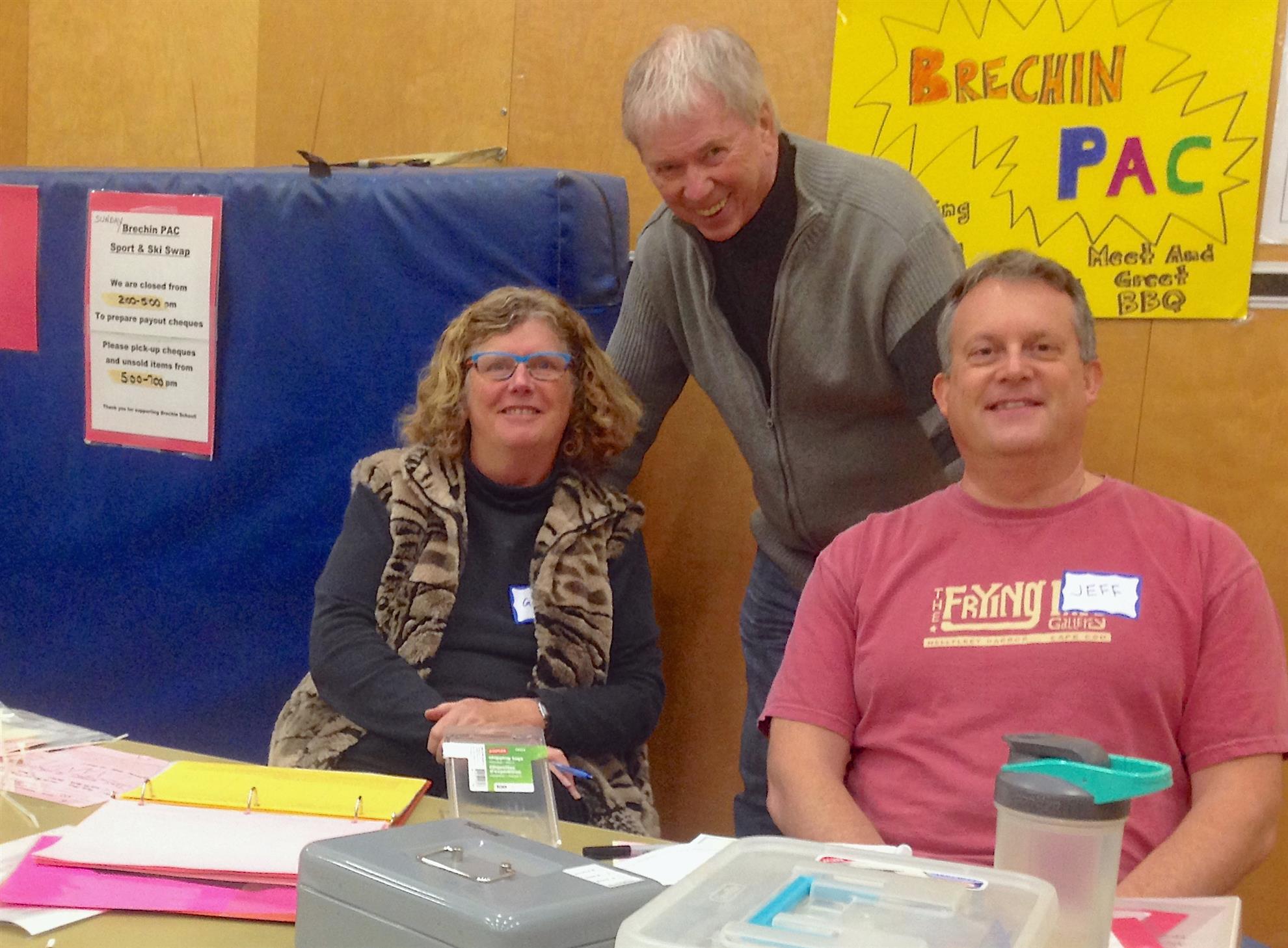 Bill Robinson, Gill Campbell and Jeff Tomlinson help out at the Brechin School Ski Swap. Another huge event that brings the community together and helps out the school, while encouraging activity for kids. Nanaimo North Rotary club also supported the Ski Swap last year and always puts Service before Self when it comes to lending a helping hand
|
Brechin School Ski Swap | Craig Clarke | 2016-11-28 08:00:00Z | 0 | |||||||||||||||||||||||||||||||||||||||||||||||||||||||||
Service at Loaves & Fishes October 25 2016
Posted by Craig Clarke on Nov 04, 2016
Our hardworking crew at the warehouse in October. Images by Don Dempson.
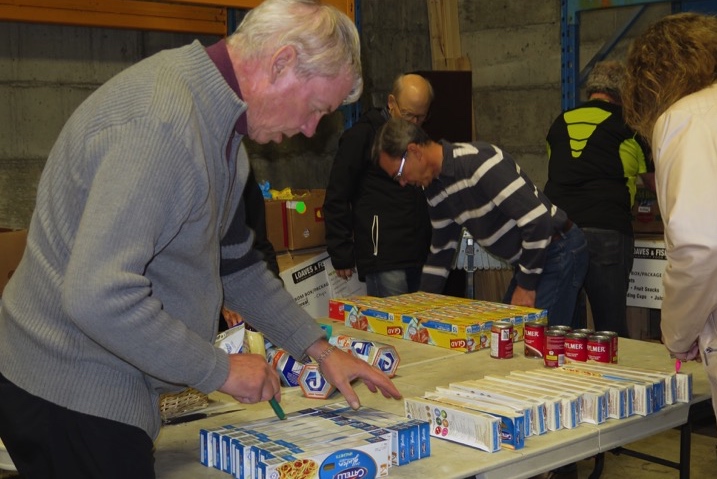 Bill cancelling bar codes
|
Service at Loaves & Fishes October 25 2016 | Craig Clarke | 2016-11-04 07:00:00Z | 0 | |||||||||||||||||||||||||||||||||||||||||||||||||||||||||
Take part in World Polio Day
Posted on Oct 21, 2016
Join us on 24 October for World Polio Day and share your voice that we are closer than ever to creating a polio-free world. Rotary will host its fourth annual World Polio Day: Making History live stream event at 18:00 EDT (UTC-4) from the headquarters of the U.S. Centers for Disease Control and Prevention in Atlanta, Georgia, USA. The event brings together the biggest names in the global fight to eradicate polio. Watch live on Endpolio.org .
|
Take part in World Polio Day | Craig Clarke | 2016-10-21 07:00:00Z | 0 | |||||||||||||||||||||||||||||||||||||||||||||||||||||||||
2016 The State of Food and Agriculture_FAO
Posted by Craig Clarke on Oct 20, 2016
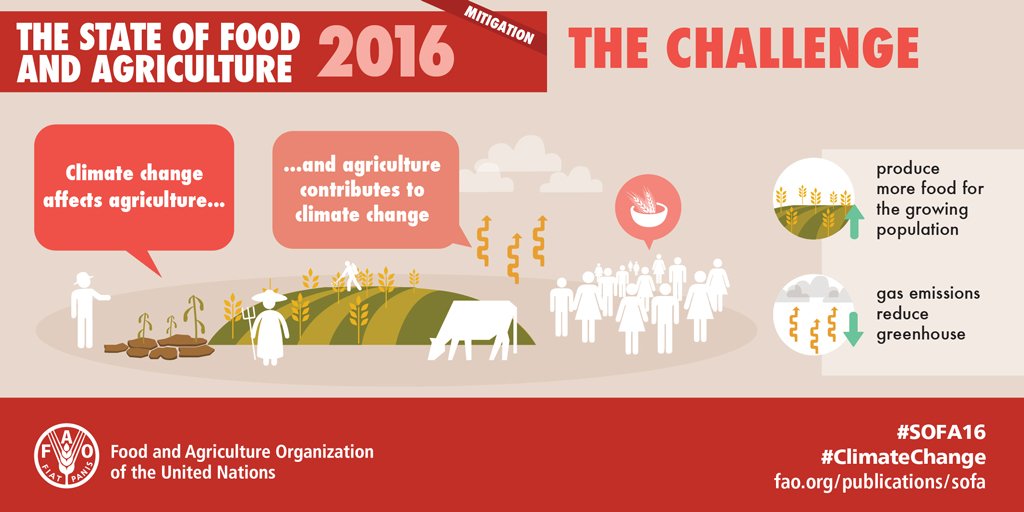 The world faces an unprecidented double challenge: to eradicate hunger and poverty and to stabilize the global climate before it is too late.
Click here to read 2016 FAO report
|
2016 The State of Food and Agriculture_FAO | Craig Clarke | 2016-10-20 07:00:00Z | 0 | |||||||||||||||||||||||||||||||||||||||||||||||||||||||||
ROTARY AND SHELTERBOX ON THE GROUND IN HAITI
Posted on Oct 15, 2016
By Maureen Vaught, Rotary News 14-Oct-2016
|
ROTARY AND SHELTERBOX ON THE GROUND IN HAITI | Craig Clarke | 2016-10-15 07:00:00Z | 0 | |||||||||||||||||||||||||||||||||||||||||||||||||||||||||
|
CHARITY NAVIGATOR UPGRADES ROTARY FOUNDATION’S RATING | Craig Clarke | 2016-09-13 07:00:00Z | 0 | |||||||||||||||||||||||||||||||||||||||||||||||||||||||||
|
Purchase of new grill at Salvation Army | Craig Clarke | 2016-09-10 07:00:00Z | 0 | |||||||||||||||||||||||||||||||||||||||||||||||||||||||||
|
Ironman triathelete challenges world to end polio | Craig Clarke | 2016-09-10 07:00:00Z | 0 | |||||||||||||||||||||||||||||||||||||||||||||||||||||||||
|
In memoriam - Suzanne Benoit | Craig Clarke | 2016-08-29 07:00:00Z | 0 | |||||||||||||||||||||||||||||||||||||||||||||||||||||||||
|
DisasterAid appeal for donations to assist Louisiana | Craig Clarke | 2016-08-18 07:00:00Z | 0 | |||||||||||||||||||||||||||||||||||||||||||||||||||||||||
Update on Sihlengeni High School
Posted by Craig Clarke on Aug 01, 2016
Bill Robinson first visited Zimbabwe in 2002 and was introduced to Head Master Jimmy Nioni of Sihlengeni School.
With $1,000 from our club and another $1,300 raised privately, he initiated a cooperative project with the school which ultimately invested $30,000 improving the facilities for its students.
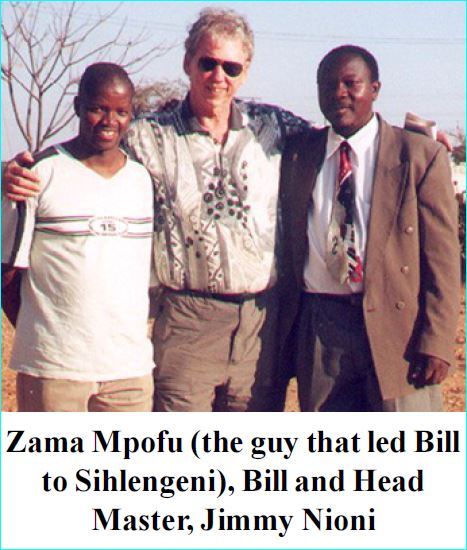 This photo was published in the October 2002 issue of the District 5020 Governor's Newsletter.
|
Update on Sihlengeni High School | Craig Clarke | 2016-08-01 07:00:00Z | 0 | |||||||||||||||||||||||||||||||||||||||||||||||||||||||||
Sustainable development: a new kind of globalization
Posted on Aug 01, 2016
By Jeffrey Sachs
Around the world, people are calling for a new kind of globalization. The current version, once called the Washington Consensus, has delivered economic growth but at enormous cost: rising inequalities of income, massive environmental destruction, and growing lawlessness. The search is on for a new approach, sometimes called sustainable development, to ensure that economic growth is also socially just and environmentally sustainable.
Click here to go to rest of story in the Boston Globe.
Jeffrey D. Sachs is director of the Earth Institute at Columbia University and author of “The Age of Sustainable Development.”
|
Sustainable development: a new kind of globalization | Craig Clarke | 2016-08-01 07:00:00Z | 0 | |||||||||||||||||||||||||||||||||||||||||||||||||||||||||
COO at World Bank explains work to end poverty by 2030
Posted on Jul 20, 2016
by Sri Mulyani Indrawati, Managing Director - COO at The World Bank
For the first time in history, the number of people living in extreme poverty has fallen below 10%. The world has never been as ambitious about development as it is today. After adopting the Sustainable Development Goals and signing the Paris climate deal at the end of 2015, the global community is now looking into the best and most effective ways of reaching these milestones. In this five-part series I will discuss what the World Bank Group is doing and what we are planning to do in key areas that are critical for ending poverty by 2030: good governance, gender equality, conflict and fragility, preventing and adapting to climate change, and, finally, creating jobs.
Click here to go to full article on LinkedIn. |
COO at World Bank explains work to end poverty by 2030 | Craig Clarke | 2016-07-20 07:00:00Z | 0 | |||||||||||||||||||||||||||||||||||||||||||||||||||||||||
Scenes from Dragon Boat 2016
Posted by Craig Clarke on Jul 19, 2016
|
Scenes from Dragon Boat 2016 | Craig Clarke | 2016-07-19 07:00:00Z | 0 | |||||||||||||||||||||||||||||||||||||||||||||||||||||||||
Changes for the new Rotary year
Posted on Jul 10, 2016
The council on legislation met in April and voted to grant greater flexibility to clubs.
Clubs are now free to vary their meeting days & times, as long as they meet a minimum of 2 times per month.
Attendance reports are still required by the District.
Click here to go to story in Rotary Leader
|
Changes for the new Rotary year | Craig Clarke | 2016-07-10 07:00:00Z | 0 | |||||||||||||||||||||||||||||||||||||||||||||||||||||||||
Latest project at St. Hubert's School in Ghana is complete
Posted by Craig Clarke on Jun 22, 2016
Doug Pearson announced at our June 21st meeting that the final report detailing completion of the project at St. Hubert’s basic school has been accepted by the District 5020 Foundation Committee. Foundation Chair, Bill McCarthy wrote: “congratulations! You have made education safer through the provision of the basics; water, electricity, etc. for students at St. Hubert’s. Your partnerships and “boots on the ground” mad this possible. Further, the Mid Island Group enabled this project to be adequately funded.”
|
Latest project at St. Hubert's School in Ghana is complete | Craig Clarke | 2016-06-22 07:00:00Z | 0 | |||||||||||||||||||||||||||||||||||||||||||||||||||||||||
Disaster Aid International Ecuador Appeal
Posted by Craig Clarke on Jun 22, 2016
Editor: Katherine Carver Disaster Aid UK/Ireland The earthquake that hit Ecuador on 16 April resulted in 660 deaths and injured approximately 4,600 people. The most severe damage was concentrated in the North west; in Manabí Province and the canton of Muisne in neighboring Esmeraldas Province. Ecuador has appealed to the international community for help for the estimated 720,000 people in need of humanitarian assistance; 72,000 of whom have been displaced.
First response aid has been provided and is still being provided. However, many of the displaced are in emergency camps and many of these are reported to be of very low standard. Unicef have identified an urgent need to facilitate the relocation of those displaced back to the vicinity of their original communities so that they can start to rebuild their original homes. Those familiar with International Disaster Aid will know that this is just the type of work we specialise in.
Accordingly, Steve Lister and Craig Roberts, both from the UK, have been sent by Disaster Aid International to undertake the assessment visit. They arrived on 6 June with the objective of understanding the socio-political environment, developing partnerships on the ground, identifying communities that can be supported effectively, identifying the precise requirements for those communities and then drawing up a delivery plan that is acceptable to all the relevant stakeholders.
Click here to see detailed description.
|
Disaster Aid International Ecuador Appeal | Craig Clarke | 2016-06-22 07:00:00Z | 0 | |||||||||||||||||||||||||||||||||||||||||||||||||||||||||
June 7 2016 Meeting
Posted by Craig Clarke on Jun 15, 2016
 Patrick Maguire & Ron Blank from Nanaimo Daybreak Rotary Club spoke about the Prevent Alcohol and Risk Related Trauma in Youth Program. It is offered to grade 10 students who tour the hospital to learn about real life physical trauma. Volunteers are needed to guide the students to the various stations in the hospital.
|
June 7 2016 Meeting | Craig Clarke | 2016-06-15 07:00:00Z | 0 | |||||||||||||||||||||||||||||||||||||||||||||||||||||||||
Ghana Rotary Mission 2016
Posted on Jun 14, 2016
GHANA ROTARY MISSION TO CANADA 2016
PROPOSED GOALS AND ITINERARY
JUNE 12, 2016 (latest edition)
Mission Goals
Mission Objectives
Organizing Team (with help from many other Rotarians)
|
Ghana Rotary Mission 2016 | Craig Clarke | 2016-06-14 07:00:00Z | 0 | |||||||||||||||||||||||||||||||||||||||||||||||||||||||||
Exchange students prom night
Posted by Craig Clarke on Jun 12, 2016
 photo by Don Dempson
Daniel and Saeko attended the Dover Bay prom. They will finish school, attend the District Convention later this month and return home in July.
|
Exchange students prom night | Craig Clarke | 2016-06-12 07:00:00Z | 0 | |||||||||||||||||||||||||||||||||||||||||||||||||||||||||
Global movement needed to reverse water crisis
Posted on Jun 02, 2016
by Ryan Hyland 27-May-2016
This year's World Water Summit on 27 May in Seoul highlighted the progress being made:
But for the 1.8 billion people whose drinking water remains contaminated and the 2.4 billion without access to proper sanitation, progress is still too slow, said Vanessa Tobin, director of water and sanitation for Catholic Relief Services and one of the event's main speakers.
Mirroring the polio eradication movement"We need a movement," Tobin declared, saying it should follow Rotary's polio eradication model. "Polio was universal and everyone had one aim: eliminate every case in the world. We need to set a goal that by 2030 every child has safe water and sanitation for life.
"Water and sanitation must be at the top of each country's development agenda," she said.
Gary White, chief executive and co-founder of Water.org, agreed and told attendees that charity alone won't solve the global water crisis. White said that it would take five years and $1 trillion to provide and maintain safe water access for all, but international aid totals only $8 billion each year. His organization is making it possible for people in need to help pay for their own clean water and sanitation.
"People who live in poverty or are coming out of it in developing countries want to pay for water security, not just for practical purposes, but for social and financial purposes," White said.
His organization established WaterCredit, a microfinance program that offers loans to families in need of water connections or toilets. The program's repayment rates exceed 99 percent.
"Giving people the capital to ensure water security gives them the dignity they want and need," he added.
Matching expertise with actionThe water summit, the eighth convened by the Water and Sanitation Rotarian Action Group, seeks to match industry expertise with Rotary service projects.
Francis Barram, a member of the Rotary Club of Centurion in South Africa, came to the water summit to find partners for a project to clean up sewage-filled rivers in Johannesburg.
"People here [at the water summit] are passionate about finding solutions for clean water. And more importantly, they know what they're doing," said Barram, who joined the Rotarian Action Group last year. "Our club found the need, and we can pull together the support, but we need the technical know-how. This event can help me find that."
Breakout sessions focused on sustainable strategies for getting clean water and sanitation in schools, partnerships, financing, climate change, and safe drinking water systems. Other speakers included Deuk-Mo Chung, director general of the Seoul Water Institute, and Sanjay Wijesekera, chief of Water, Sanitation, and Hygiene for UNICEF.
|
Global movement needed to reverse water crisis | Craig Clarke | 2016-06-02 07:00:00Z | 0 | |||||||||||||||||||||||||||||||||||||||||||||||||||||||||
Don Hubbard wins provincial volunteer award
Posted by Craig Clarke on May 16, 2016
Don Hubbard, a past member of our club has been notified that he will be a recipient of the 2016 B.C. Community Achievement Award.
Click here to go to story in Nanaimo News Bulletin.
|
Don Hubbard wins provincial volunteer award | Craig Clarke | 2016-05-16 07:00:00Z | 0 | |||||||||||||||||||||||||||||||||||||||||||||||||||||||||
District 5370 sets up Fort McMurray Fire Relief Fund
Posted by Craig Clarke on May 11, 2016
Click here for details about the Fort McMurray Fire Relief Fund that Doug Pearson told us about at the May 10th meeting:
|
District 5370 sets up Fort McMurray Fire Relief Fund | Craig Clarke | 2016-05-11 07:00:00Z | 0 | |||||||||||||||||||||||||||||||||||||||||||||||||||||||||
Pope welcomes Rotary to Jubilee audience
Posted on May 06, 2016
By Ryan Hyland, Rotary News 2-May-2016
 Pope Francis greets Rotary International President K.R. Ravindran at a Jubilee audience at the Vatican on 30 April, where 9,000 Rotary members were special guests of the pontiff.
Photo Credit: Courtesy of the Vatican
Thousands of Rotary members, motivated by a special invitation from Pope Francis, gathered at the Vatican in Rome on Saturday to celebrate a message of compassion, inclusiveness, and service to humanity.
At midmorning, the group -- numbering some 9,000 members from 80 countries -- made its way through the congested streets of Rome, past the tight security surrounding St. Peter's Square, and settled into the area reserved for Rotary in front of St. Peter's Basilica for the Jubilee audience.
Francis, a 79-year-old Argentine, urged the crowd of more than 100,000, which included members of the police and armed forces from around the world, "to build a culture of peace, security, and solidarity around the world."
His message of peace resonated with Rotary members, including R. Asokan from Tamil Nadu, India. "His message about peace is about accepting. Rotary, which accepts all walks of life, can carry his message to all our clubs, therefore carrying his message to all our communities," says Asokan.
Though Francis is the leader of the Roman Catholic Church, his words often reach a wider audience. A poll published earlier this year found him to be one of the most liked and trusted world leaders.
That's what made this event at the Vatican so appealing, says Adriana Lanting, who traveled from California, USA, to attend. "To have such a transcending figure together with a transcending organization like Rotary in the same place is something I just couldn't miss," says Lanting, a member of the Rotary Club of Long Beach.
Madrid Zimmerman, another Long Beach member, isn't Catholic but says Francis has a knack for touching people's hearts regardless of where they're from. "Rotary has the same effect," she adds. "We may have different ways of expressing it, but our [Rotary] action in helping others comes from the same place.
"This event is a reminder that we only have one goal and that's to give service to those who need it. I think that's the message I want to bring back to my club," Zimmerman says.
After the Jubilee audience, Francis met with a small delegation of Rotary members led by RI President K.R. Ravindran. The pope spoke to Ravindran about the importance of vaccinating children against polio and encouraged Rotary to continue its efforts against this disease.
"I have been honored and deeply touched to have had the opportunity to meet Pope Francis earlier today, and to have heard him tell us to continue our fight toward polio eradication," says Ravindran, who is Hindu. "It has given me even more pride in Rotary's past, even more faith in its present, and even more optimism about its future, than ever before."
Mitigating the migrant crisisOn Friday, Rotary hosted a panel discussion in Rome to highlight efforts to alleviate the plight of refugees from Syria, Iraq, and Afghanistan. More than 60 million people, including 11 million Syrians, have been displaced by war and violence over the last four years. Such extensive displacement has not been seen since World War II.
In the discussion, moderated by Vatican Radio, experts from the World Food Programme, the Jesuit Refugee Service, and UNHCR (UN Refugee Agency) talked about ways to help migrants start over in their new countries.
Rotary General Secretary John Hewko, speaking on the panel, pointed to several initiatives Rotary clubs have undertaken to integrate refugees into society, including computer coding schools and a vocational training project in Rimini, Italy.
"The plight of today's refugees is really a litmus test for today's compassion," Hewko said.
He encouraged audience members and panelists to use their connections to provide the resources and funding needed to address the humanitarian crisis.
After the panel discussion, Bonaventure Fohtung, a member of the Rotary Club of Upper Blue Mountains Sunrise in New South Wales, Australia, said that Rotary and the pope have the same agenda when it comes to helping migrants. Recently Francis took 12 Syrian migrants, three families including six children, back with him to the Vatican after visiting a camp on the Greek island of Lesbos.
"We need to go home from this event and set an example. Each club should do something. Just one thing to help these refugees can make a remarkable difference," he added.
The two-day Rotary event in Rome, tied to the Vatican's Jubilee of Mercy and dubbed the Jubilee of Rotarians by organizers from District 2080 (Italy), also included benefit concerts and three fundraising dinners for polio eradication.
|
Pope welcomes Rotary to Jubilee audience | Craig Clarke | 2016-05-06 07:00:00Z | 0 | |||||||||||||||||||||||||||||||||||||||||||||||||||||||||
Volunteers at Warehouse for Loaves & Fishes Foodbank
Posted by Craig Clarke on Apr 28, 2016
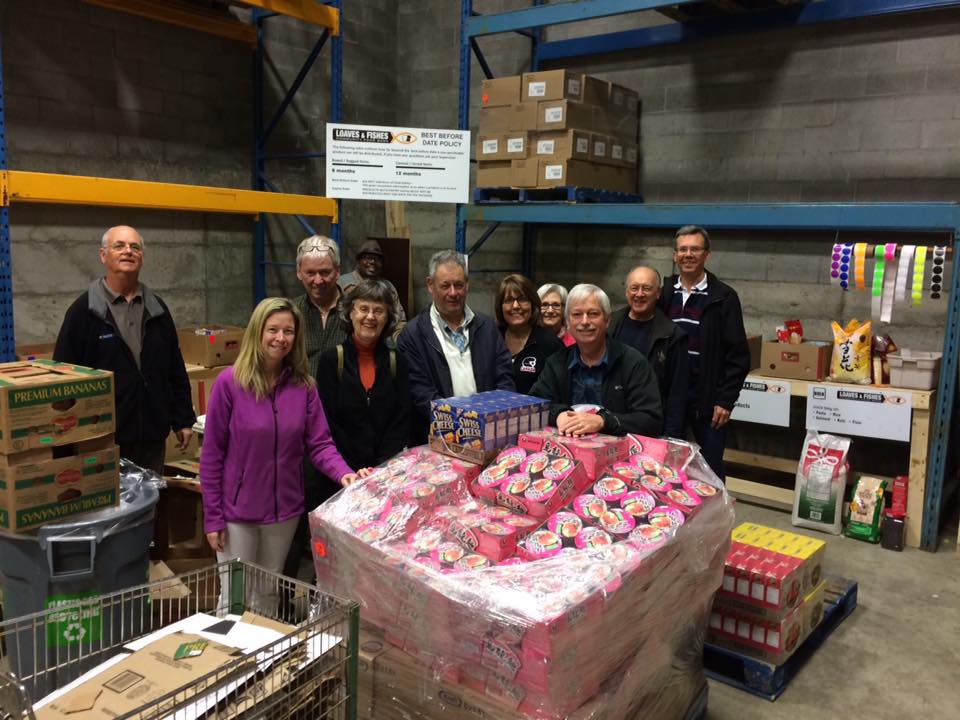 Instead of a meeting, members volunteered at Loaves & Fishes on April 26. Thanks to President elect Rob for making the arrangements.
|
Volunteers at Warehouse for Loaves & Fishes Foodbank | Craig Clarke | 2016-04-28 07:00:00Z | 0 | |||||||||||||||||||||||||||||||||||||||||||||||||||||||||
Council on Legislation Grants Clubs More Flexibility
Posted on Apr 22, 2016
By Arnold Grahl, Rotary News 18-Apr-2016
The 2016 Council on Legislation may well be remembered as one of the most progressive in Rotary history.
Not only did this Council grant clubs more freedom in determining their meeting schedule and membership, it also approved an increase in per capita dues of $4 a year for three years. The increase will be used to enhance Rotary’s website, improve online tools, and add programs and services to help clubs increase membership.
The Council is an essential element of Rotary’s governance. Every three years, members from around the world gather in Chicago to consider proposed changes to the policies that govern the organization and its member clubs. Measures that are adopted take effect 1 July.
The tone for this year was set early, when the RI Board put forth two proposals that increase flexibility. The first measure allows clubs to decide to vary their meeting times, whether to meet online or in person, and when to cancel a meeting, as long as they meet at least twice a month. The second allows clubs flexibility in choosing their membership rules and requirements. Both passed.
Representatives also approved removing six membership criteria from the RI Constitution and replacing them with a simple requirement that a member be a person of good character who has a good reputation in their business or community and is willing to serve the community.
The $4 per year dues increase was based on a five-year financial forecast that predicted that if Rotary didn’t either raise dues or make drastic cuts, its reserves would dip below mandated levels by 2020. The yearly per capita dues that clubs pay to RI will be $60 in 2017-18, $64 in 2018-19, and $68 in 2019-20. The next council will establish the rate after that.
“We are at a moment in time when we must think beyond the status quo,” said RI Vice President Greg E. Podd. “We must think about our future.”
Podd said the dues increase will allow RI to improve My Rotary, develop resources so clubs can offer a better membership experience, simplify club and district reporting, improve website access for Rotaractors, and update systems to keep Rotary in compliance with changing global regulations.
Also because of this Council’s decisions:
Learn more about the Council on Legislation
|
Council on Legislation Grants Clubs More Flexibility | Craig Clarke | 2016-04-22 07:00:00Z | 0 | |||||||||||||||||||||||||||||||||||||||||||||||||||||||||
Shop and dine downtown for charity
Posted by Jim Turley on Apr 20, 2016
|
Shop and dine downtown for charity | Jim Turley | 2016-04-20 07:00:00Z | 0 | |||||||||||||||||||||||||||||||||||||||||||||||||||||||||
April 5 Meeting
Posted by Craig Clarke on Apr 06, 2016
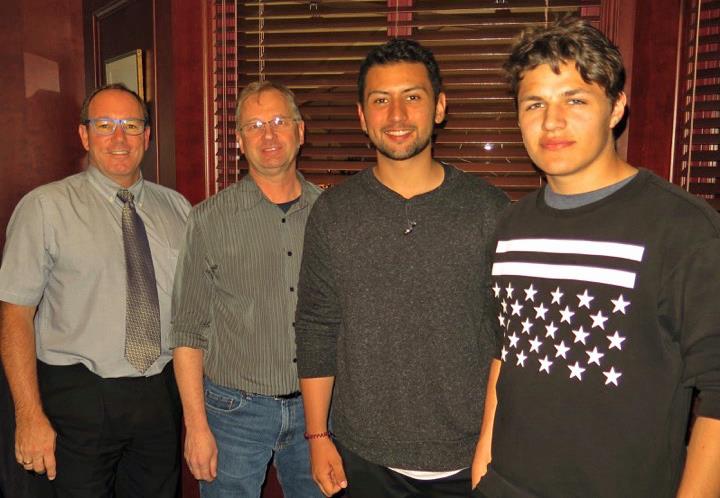 Paul, Barney with exchange student Daniel and visiting student Tim.
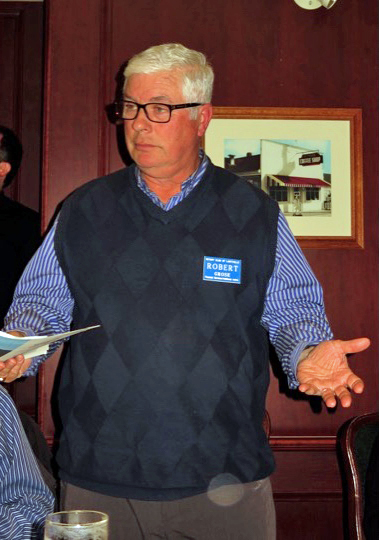 Robert Grose presentation on Eden Gardens a new facility for Compassionate Dementia Care
Thanks to Don Dempson for the images.
|
April 5 Meeting | Craig Clarke | 2016-04-06 07:00:00Z | 0 | |||||||||||||||||||||||||||||||||||||||||||||||||||||||||
Government of Canada announces new support to fight polio in Pakistan
Posted on Apr 05, 2016
April 4, 2016 - Ottawa, Ontario - Global Affairs CanadaThe Honourable Marie-Claude Bibeau, Minister of International Development and La Francophonie, today announced new programming to help stop the transmission of polio in Pakistan.
Minister Bibeau made the announcement following her first meeting with Tariq Azim Khan, High Commissioner of Pakistan in Canada.
Canada is contributing $40 million over three years toward two initiatives by UNICEF and by the World Health Organization (WHO).
The Building Community Support for Polio Eradication project, implemented by UNICEF, will increase community acceptance of polio vaccination team workers through local language media campaigns, the delivery of health information packages, and the recruitment and training of community-based vaccinators.
The WHO’s Improving Surveillance to End Polio Transmission project will improve the detection and tracking of polio, as well as improve the monitoring of all polio eradication efforts.
|
Government of Canada announces new support to fight polio in Pakistan | Craig Clarke | 2016-04-05 07:00:00Z | 0 | |||||||||||||||||||||||||||||||||||||||||||||||||||||||||
Trades Information Evening
Posted on Apr 04, 2016
Come and meet the panelists from Vancouver Island University, School District 68, Skilled Trades Employment Program (STEP), Industry Training Authority, and more at out trades information evening.
If you or anyone you know would like to know more on employment in the trades please pass along this information. Whether you are in high school, a parent of a high school student, unemployed, or wishing to change careers, this is an opportunity to explore the option of a career in the trades!  |
Trades Information Evening | Craig Clarke | 2016-04-04 07:00:00Z | 0 | |||||||||||||||||||||||||||||||||||||||||||||||||||||||||
Successful women mentor youth through Rotary
Posted on Mar 16, 2016
By Arnold R. Grahl, Rotary News 8-Mar-2016
When Clara Montanez was a student, she never heard the word mentoring. The idea of having a role model help you pursue your ambitions was unfamiliar to her.
"You basically chose your career based on personal interest and hoped you could find a job," says Montanez, senior director of investment for Oppenheimer & Co., Inc. "I went the route of getting married and having children first, and started my career later in life. I had no model for how to do that."
That changed for Montanez the day a friend invited her to join Rotary.
"Frankly, I was dragged into Rotary. I didn't see a connection at first," says Montanez, who's been a member of the Rotary Club of Washington, D.C., since 2003. "But then I met several women, including Doris Margolis, who took me under her wing and started mentoring me on how to get more involved. I began seeing the value in having someone I could count on as a mentor, and I have become more of a leader in our club, in my community, and at work."
Rotary's mentoring opportunities motivated Montanez, Rotary's alternate representative to the Organization of American States, to help organize an event for International Women's Day, 8 March. The event, to be held at the World Bank Group headquarters in Washington, will feature Deepa Willingham and Marion Bunch, both previously honored as Rotary Women of Action. Rotary International Director Jennifer Jones will moderate the event, which will be streamed on World Bank Live.
Montanez says Rotary has given her a platform to mentor young women as they balance career and family, as well as manage the challenge of repaying student loans. According to a recent study by the American Association of University Women, the student loan debt burden weighs more heavily on women because of the persistent gap in pay between women and men.
"I think Rotary has given me access to young people, like Rotaractors, and they are ready to accept guidance because Rotary is a safe place to reach out and get advice," says Montanez.
|
Successful women mentor youth through Rotary | Craig Clarke | 2016-03-16 07:00:00Z | 0 | |||||||||||||||||||||||||||||||||||||||||||||||||||||||||
Member's tokens for meals project gets great community response
Posted by Craig Clarke on Feb 19, 2016
 One of the tokens made for the program.
One of our members, Liz Kawahara, partnered with Cheryl Prince, owner of a biodynamic farm in Lantzville to create the program. |
Member's tokens for meals project gets great community response | Craig Clarke | 2016-02-19 08:00:00Z | 0 | |||||||||||||||||||||||||||||||||||||||||||||||||||||||||
District leaders are preparing to celebrate centennial of the Rotary Foundation
Posted on Jan 29, 2016
By Ryan Hyland, Rotary News 22-Jan-2016
Rotary Foundation Trustee Chair Ray Klinginsmith asked district governors in training at the International Assembly to lead the celebration of the Foundation's centennial year, 2016-17.
"You are the primary contacts between the Foundation and our 34,000 Rotary clubs in the world. The success of the centennial celebration is largely in your hands," said Klinginsmith at a 19 January general session. "Catch the spirit and spread the word about the importance of celebrating our success."
Since the Foundation was established in 1917, it has spent more than $3 billion on programs and projects to improve the lives of millions worldwide, said Klinginsmith.
The centennial celebration officially kicks off in May at the Rotary Convention in Korea and culminates at the 2017 convention in Atlanta.
District plans for the centennialGovernor-elect Tom James Markos of District 5100 in Oregon, USA, says he is proud to be serving during such a historic year. He plans to promote the centennial not only to his district's members, but also through local media.
"We need the public to be aware of what we've accomplished," says Markos, who has set a district goal of raising $1 million for the Foundation during the centennial year.
Bill Proctor, incoming governor of District 7080 in Ontario, Canada, believes the centennial year is an opportunity to "refocus and reeducate" members on the importance the Foundation's work.
"We have so many accomplishments to celebrate," said Proctor. "We need to use the momentum of the celebration to strengthen the Foundation's future."
Share your centennial photos and stories on social media using #TRF100.
|
District leaders are preparing to celebrate centennial of the Rotary Foundation | Craig Clarke | 2016-01-29 08:00:00Z | 0 | |||||||||||||||||||||||||||||||||||||||||||||||||||||||||
In a majority of countries, more women than men work without pay in family-run businesses: World Bank
Posted on Jan 22, 2016
The World Bank Group has just launched a new gender data portal
Gender data are one of the most visited parts of our data site, and these new resources make it easier than ever to see our data’s gender dimensions. The country and topic dashboards give an overview of the distribution and trends in data across important themes, and the online tables and book are a useful reference for the most commonly accessed data. Below I’ve picked a few charts from the new portal related to the four pillars of the Bank Group’s new gender equality strategy. These aims focus on improving human endowments, through better access to health, education, and social protection; opening up more and better jobs by tackling issues such as skills gaps and care arrangements; expanding women’s access to and control over assets; and enhancing women’s voice and agency, meaning their ability to make themselves heard and exert control over key aspects of their own lives. Click here to read full story on World Bank website.
|
In a majority of countries, more women than men work without pay in family-run businesses: World Bank | Craig Clarke | 2016-01-22 08:00:00Z | 0 | |||||||||||||||||||||||||||||||||||||||||||||||||||||||||
New online process makes it easy to follow up on prospective members
Posted on Jan 15, 2016
Rotary News 7-Dec-2015
Tracking your membership leads is easier than ever. District leaders and club officers can now review inquiries from prospective, referred, and relocating or returning members -- all in one place. Sign in to My Rotary and visit the Club and District Administration pages to discover how easy it is to manage your online membership leads and review reports. You’ll also find guides to help walk you through the new process.
To refer a member or begin the process of changing clubs, visit the Member Center. If you’re not a Rotary member but are interested in joining us, you can learn more about club membership.
Download the Connect to Membership Leads
Learn about the membership process
|
New online process makes it easy to follow up on prospective members | Craig Clarke | 2016-01-15 08:00:00Z | 0 | |||||||||||||||||||||||||||||||||||||||||||||||||||||||||
US Senate unanimously passes electrify Africa Bill
Posted on Jan 02, 2016
In sub-Saharan Africa, more than 620 million people do not have access to electricity. Thirty seven countries in sub-Saharan Africa have a national electrification rate of below 50 percent. These endemic power shortages affect all aspects of life. Energy access is one of the most urgent priorities for people in sub-Saharan Africa with one in five Africans citing infrastructure – including electricity – as their most pressing concern.
The lack of electricity impacts people’s lives, with a disproportionately negative impact on girls and women.
The legislation will leverage private sector resources through loan guarantees to help 50 million Africans access electricity for the first-time and add 20,000 megawatts of electricity to the grid by 2020. Providing access to electricity will stimulate economic growth while also improving access to education and public health.
The bill requires the president to create a comprehensive strategy for United States’ engagement with sub-Saharan Africa in developing a broad mix of power solutions to increase electricity access and reliability. It encourages the Overseas Private Investment Corporation (OPIC), USAID, the U.S. Department of Treasury, U.S. Trade and Development Agency, World Bank, and African Development Bank to prioritize loans, grants, and technical support that promote private investment in projects designed to increase electricity access and reliability.
|
US Senate unanimously passes electrify Africa Bill | Craig Clarke | 2016-01-02 08:00:00Z | 0 | |||||||||||||||||||||||||||||||||||||||||||||||||||||||||
Bozeman Home repair project
Posted on Dec 23, 2015
Posted on by Rotary International Click here for 4 minute YouTube video
By Gregg Alexander, Rotary Club of Bozeman Sunrise, Montana, USA
For six years now, my Rotary Club has provided home repair assistance to local residents through the Bozeman Fix-Up Festival. Giving preference to elderly and disabled homeowners, we strive to provide home improvements to low-income residents who either can’t afford them or are physically unable to complete the work themselves. The impact of this one-day event stretches far beyond just benefits to the homeowners: The festival touches many lives and brings the community together.
Finding homeowners in need
We begin planning in January and wrap up in mid-November. We begin by developing a budget and conducting outreach to find applicants. We partner with local nonprofits to educate and identify homeowners who may be in need of assistance. We do require that they own their home and that they fall below the state of Montana’s poverty level. We publicize the project on the radio, through TV interviews, and social media marketing to drive interested people to our website, where they can fill out an application. Once the April application deadline is past, our committee members conduct interviews, go on home visits, and verify applicants’ income.
Over the last five years, we’ve completed work on almost 60 homes.
|
Bozeman Home repair project | Craig Clarke | 2015-12-23 08:00:00Z | 0 | |||||||||||||||||||||||||||||||||||||||||||||||||||||||||
Rotary & UN Climate Change Conference in Paris
Posted on Dec 23, 2015
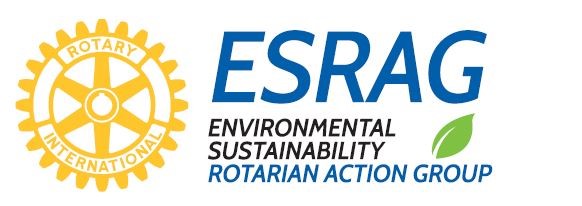 Purpose: Assist Rotarians in implementing service projects, building awareness, and inspiring action toward environmental sustainability -- particularly reducing greenhouse gas emissions to mitigate the global warming humanitarian crisis.
It was a significant moment in world history Saturday 12th December, when the Paris Agreement on Climate Change was signed. 195 countries were united in addressing what many believe is the greatest moral challenge of our time. If it turns out to be a catalyst for transformation, then it will be recognized as a critical moment indeed.
The Agreement is an inclusive, ambitious commitment to tackle climate change and parts are legally binding:
It addresses the need for a financial package of at least $100 billion from developed countries, for developing countries. This will aid both mitigation and adaptation and assist the vulnerable communities around the world most threatened by climate change, such as Pacific Island nations.
The Agreement is seen as a breakthrough and catalyst for new climate action. It imposes on many nations the need to increase their own specific climate commitments (up to 2030) as soon as possible, so they are sufficient for the world to at least meet the 2degC target. It encourages all countries to adopt tougher emission cuts over time in light of their differing national circumstances - there will be another stock take on how the world is doing in 2019. Many countries came to Paris two weeks before with strategies and pledges that were estimated to limit warming to 3degC. However, with great leadership from the French and after night-long negotiations, the Agreement was signed saying that a limit of 1.5degC in world temperature increases was the needed target. This is ambitious and a huge step for the world community to take. The reduction in emissions to zero by 2100 is less ambitious compared to the date of 2050 (desired by many). But it is still a significantly better outcome than was expected. Overall, the Agreement signals a great start, into an era where the science of Climate Change is now acknowledged, and action - with the help of new science - is seen as essential. And the different perspectives between developed and developing countries, between the large continental states and small threatened islands, are all now more keenly recognized. The impact on all of us will be changes to the way we source and use energy – especially with a new long-term goal for full decarbonisation. There will certainly be more carbon-pricing mechanisms, more opportunities for renewables, and there needs to be much less land clearing and deforestation. Meanwhile, we will have more severe weather patterns, more glaciers melting and communities that are devastated by the changes already underway in the world’s weather. However, the world has come together – uniquely – with a clear commitment to tackle the problem. Optimism reigns for the moment; now attention turns to HOW best to meet these targets. ESRAG is gearing up to lend the power of Rotary to this challenge. Stay tuned and in the meantime, please ask friends and family to join ESRAG at our 'placeholder' website, www.esrag.org. Thank you. Jeremy Wright Communications and Marketing Committee Chair, ESRAG |
Rotary & UN Climate Change Conference in Paris | Craig Clarke | 2015-12-23 08:00:00Z | 0 | |||||||||||||||||||||||||||||||||||||||||||||||||||||||||
5 reasons to give to The Rotary Foundation
Posted on Dec 19, 2015
Posted on by Rotary International
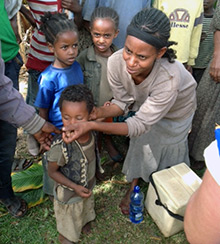
Polio immunization in Ethiopia. Your generous giving supports our work to rid the world of polio.
By Rotary Voices staff
When you make a donation to The Rotary Foundation, you are helping Rotary members make a difference in the lives of millions of people around the world, by promoting peace, preventing disease, bolstering economic development, and providing clean water and sanitation.
Here are just a few ways your generosity is changing lives.
Thanks to you, we are closer than ever to ending polio. In September, the World Health Organization removed Nigeria from the list of polio endemic countries after going a year without a reported case of the wild poliovirus. It has also been more than a year since the last case of the wild poliovirus anywhere on the African continent. Yet it’s no time to let up on our efforts. Keeping children protected from this virus and building on these achievements will require continued commitment and funding. And every dollar Rotary commits to polio eradication is matched 2 to 1 by the Bill & Melinda Gates Foundation, tripling your impact. Watch our World Polio Day Livestream update, and give to end polio.
Rotary’s most significant effort to promote peace is the Rotary Peace Centers program, established in 2002. Each year, the program trains some of the world’s most dedicated and brightest professionals, preparing them to promote national and international cooperation and to resolve conflict. They include graduates of a two-year master’s degree program and a three-month professional certificate program at Rotary’s partner universities. Watch a video highlighting Rotary Peace Fellows at work.
Through a Foundation grant and in partnerships with the Organization of American States, Rotary members in Maryland, USA, provided a training program for teachers in Quito, Ecuador, which included the use of new technology. At the conclusion of the program, each school selected one story written by a second, third, or fourth-grade student to include in a book illustrated with student art. Read more about the project, and browse other education projects on Rotary Showcase.
In Tamil Nadu, India, two doctors, both members of the Rotary Club of Srirangam, discovered an alarming trend in the remote city outskirts of Trichy, women dying of breast cancer. They partnered with Rotary members in Maryland, USA, to purchase a large van, with the help of a Foundation global grant, and equip it with X-ray equipment. The “mammobus” has administered more than 2,500 free breast cancer screenings, and detected and treated early stage cancer in six women. Read more of the story and browse health-related projects on Rotary Showcase.
In Seattle, Rotary members are diverting millions of pounds of fruit and vegetable from food waste into the hands of those who need it through Rotary First Harvest, a program of Rotary District 5030 (Washington, USA). Watch a video about the program, and browse other hunger projects on Rotary Showcase.
|
5 reasons to give to The Rotary Foundation | Craig Clarke | 2015-12-19 08:00:00Z | 0 | |||||||||||||||||||||||||||||||||||||||||||||||||||||||||
RI Directors approve new ESRAG
Posted on Nov 12, 2015
Environmental Sustainability Rotarian Action Group (ESRAG)
The Environmental Sustainability RAG will assist Rotary clubs, districts and multi-districts in planning, implementing and evaluating service projects, building awareness, and inspiring action. These projects will promote environmental sustainability, awareness of climate change, and actions to reduce greenhouse gas emissions to mitigate climate disruption. ESRAG will promote educational resources, initiate dialogue about environmental sustainability, and use best practices in models and assessments for both projects and daily choices.
Click here to go to webpage.
|
RI Directors approve new ESRAG | Craig Clarke | 2015-11-12 08:00:00Z | 0 | |||||||||||||||||||||||||||||||||||||||||||||||||||||||||
Derek Rickwood did Mt Benson Hike in support of Nepal Earthquake Victims
Posted by Craig Clarke on Nov 11, 2015
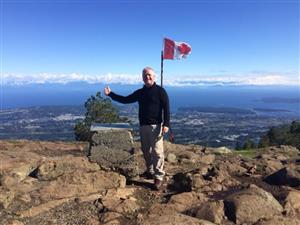
Congratulations to Derek Rickwood for hiking to the summit of Mt Benson on Saturday September 26th. Derek collected pledges for the project supporting earthquake victims in Nepal. The hike was organized by Dr. San Mahara of the Nanaimo Daybreak Rotary Club.
 Derek at the summit. Photo by Derek.
|
Derek Rickwood did Mt Benson Hike in support of Nepal Earthquake Victims | Craig Clarke | 2015-11-11 08:00:00Z | 0 | |||||||||||||||||||||||||||||||||||||||||||||||||||||||||
World Polio Day update from Rotary International
Posted on Nov 02, 2015
|
World Polio Day update from Rotary International | Craig Clarke | 2015-11-02 08:00:00Z | 0 | |||||||||||||||||||||||||||||||||||||||||||||||||||||||||
The grant for our newest project in Ghana has been approved
Posted on Sep 24, 2015
Our club together with Nanaimo Daybreak Rotary Club developed a grant proposal for the project. The district community grant application was approved by D5020 in the amount of US$3,500; this will be matched by contributions from the Mid Island Group, area clubs and the Techiman Rotary Club. The project will be administered by the Techiman club. The grant will fund construction of a well and installation of electricity for the St. Hubert's basic school in Akrofrom, a community about 70 km NE of Sunyani.
When the project is completed, it will give the children in St Hubert’s Basic School and the community access to clean drinking water as well as electricity. It should take six months to complete
The school was chosen because the community is expanding very quickly increasing the school population but the school lacks basic facilities like water and electricity. We therefore decided to use this grant to provide these basic facilities, to help improve their way of life thereby improving education and literacy.
|
The grant for our newest project in Ghana has been approved | Craig Clarke | 2015-09-24 07:00:00Z | 0 | |||||||||||||||||||||||||||||||||||||||||||||||||||||||||
September 12th Community Breakfast
Posted by Suzy Depledge on Sep 18, 2015
|
September 12th Community Breakfast | Suzy Depledge | 2015-09-18 07:00:00Z | 0 | |||||||||||||||||||||||||||||||||||||||||||||||||||||||||
Making a difference through Rotary Youth Exchange
Posted on Sep 06, 2015
|
Making a difference through Rotary Youth Exchange | 2015-09-06 07:00:00Z | 0 | ||||||||||||||||||||||||||||||||||||||||||||||||||||||||||
Symphony by the Sea
Posted on Aug 13, 2015
 Picture by Margo Holmes.
While out collecting donations before the concert Suzy & Craig met a visiting Rotarian from Lyon.
His name was Denis Cante, President of Club Lyon - Tassin Ecully.
|
Symphony by the Sea | Craig Clarke | 2015-08-13 07:00:00Z | 0 | |||||||||||||||||||||||||||||||||||||||||||||||||||||||||
Dragon Boat Saturday July 11 2015
Posted on Jul 25, 2015
A festive crowd on Saturday despite cooler weather & scattered showers.
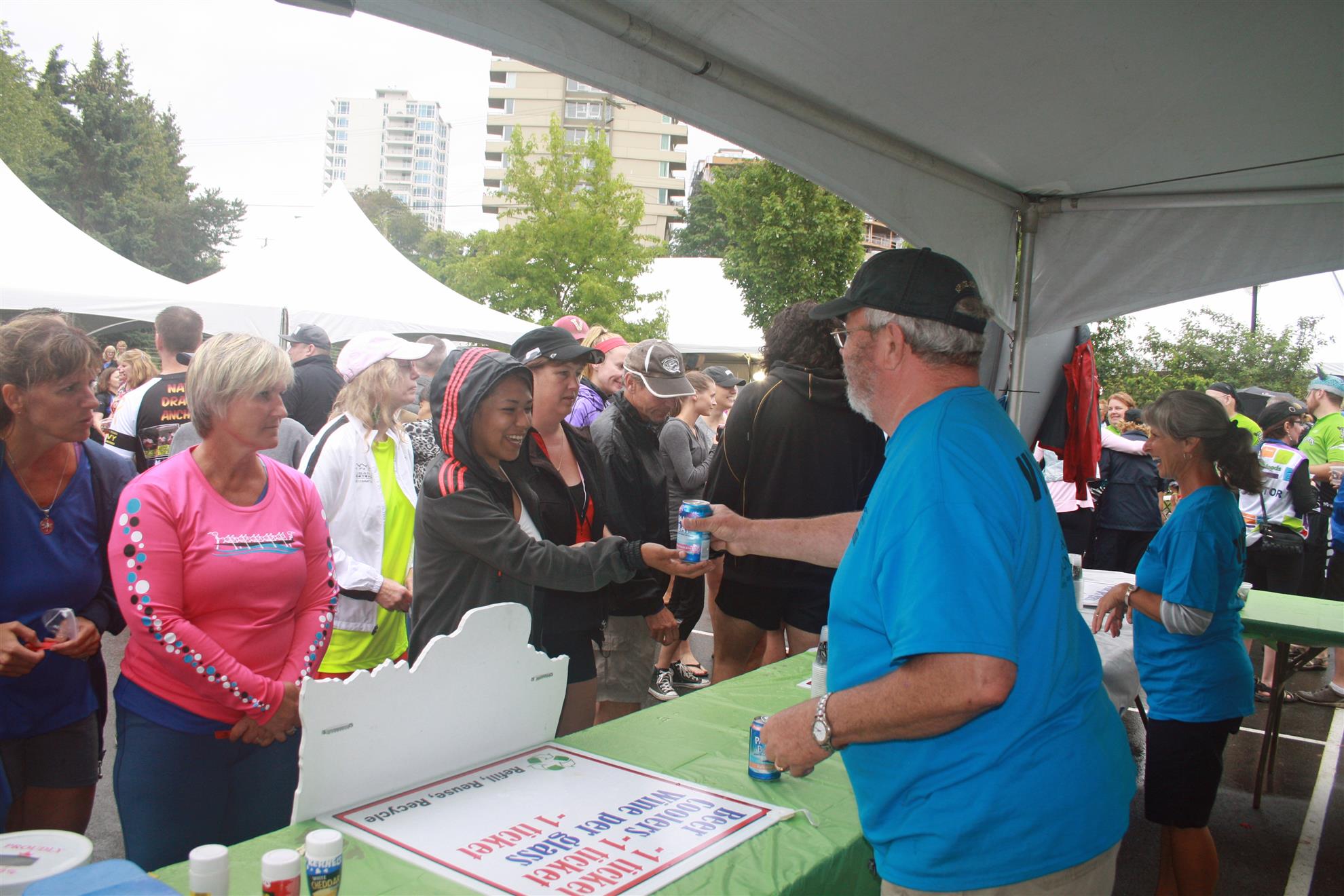 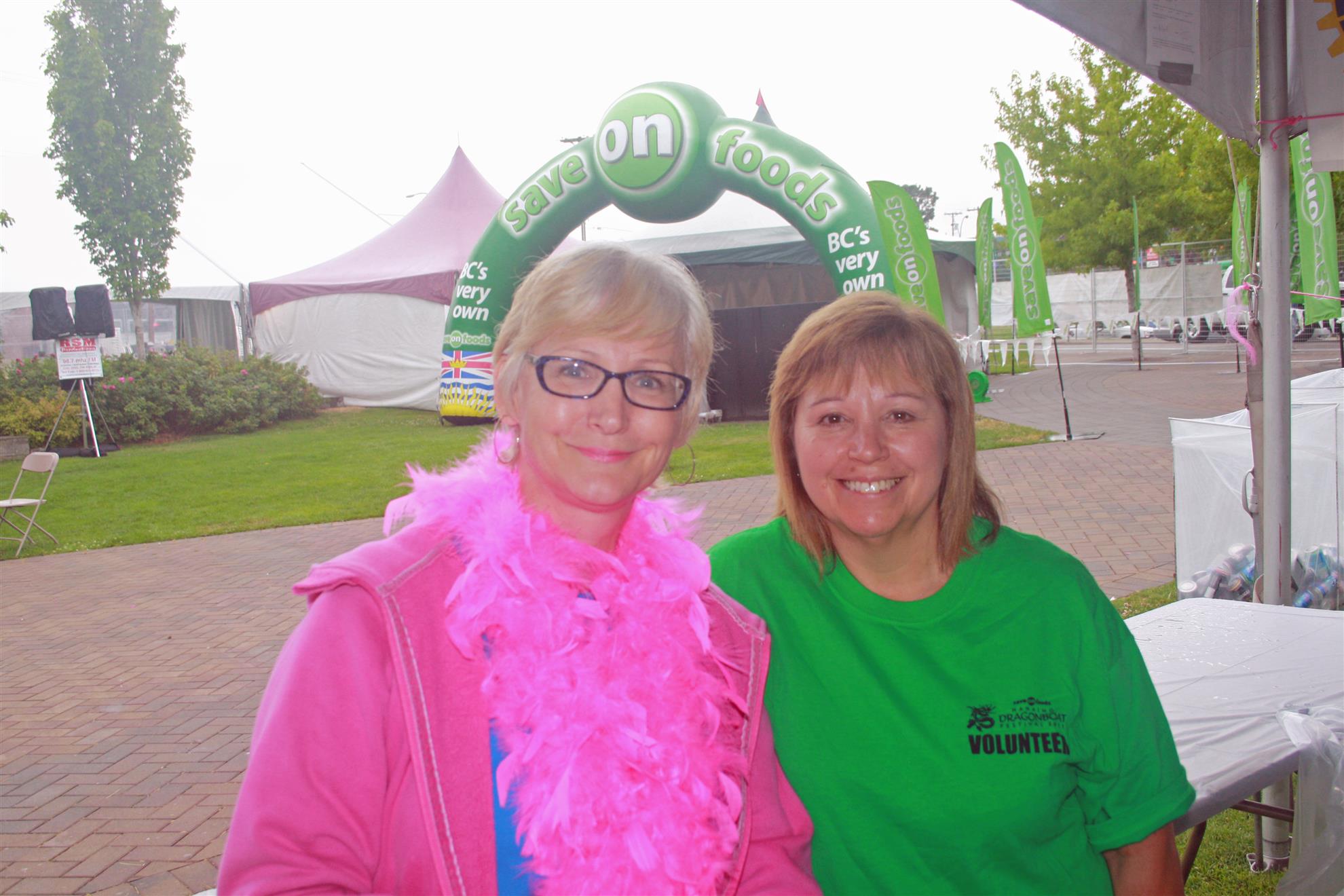 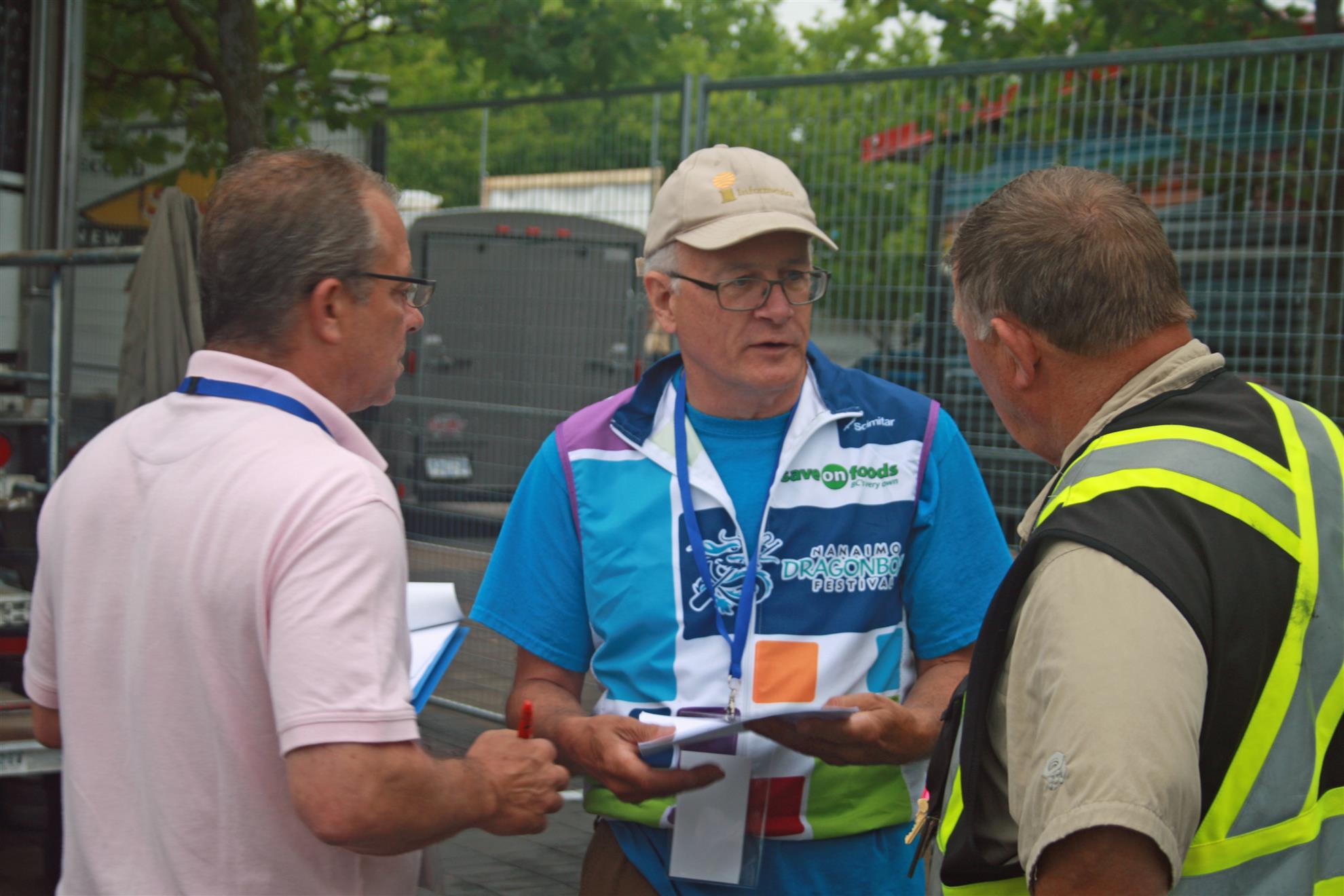 |
Dragon Boat Saturday July 11 2015 | Craig Clarke | 2015-07-25 07:00:00Z | 0 | |||||||||||||||||||||||||||||||||||||||||||||||||||||||||
Farewell party for Bas
Posted on Jul 25, 2015
Doug Pearson forwarded these pictures a couple of weeks ago.
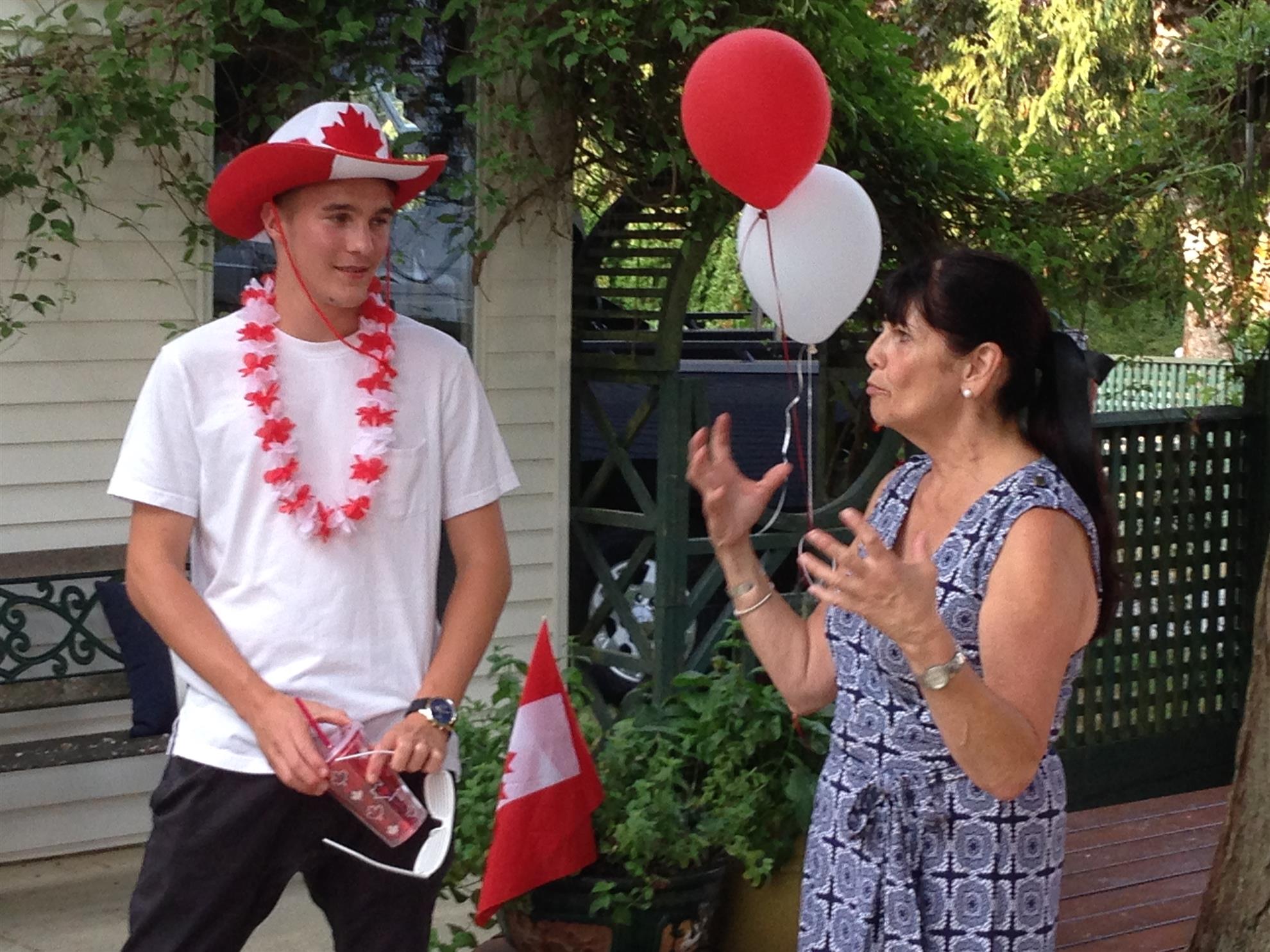   |
Farewell party for Bas | Craig Clarke | 2015-07-25 07:00:00Z | 0 | |||||||||||||||||||||||||||||||||||||||||||||||||||||||||
Member Benefits Program Introduced at RI Convention in São Paulo
Posted on Jun 19, 2015
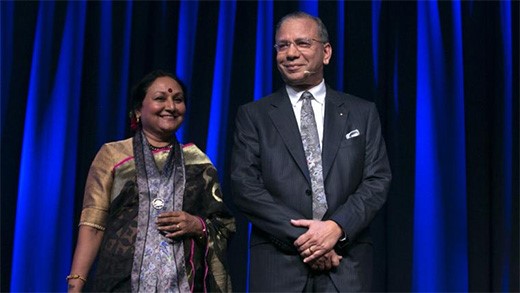 RI President-elect K.R. Ravindran and his wife, Vanathy, are introduced to the audience at the 2015 Rotary Convention closing plenary session on 9 June in São Paulo, Brazil. The four-day convention attracted more than 14,500 attendees from more than 150 countries. Photo Credit: Rotary International/Monika
RI President-elect K.R. Ravindran introduced a member benefits program at the 9 June closing session of the 2015 Rotary International Convention, saying that many more hands are needed to continue Rotary’s work around the world.
The program, Rotary Global Rewards, aims to boost membership and enhance member satisfaction. It will debut on 1 July.
“This innovative new program will allow Rotary members to connect with hundreds of businesses and service providers from around the world -- and that number is growing,” said Ravindran. “These establishments will offer Rotarians discounts and concessions on the everyday business that you do. And, in many cases, not only will you benefit, but our Foundation will as well, by receiving a contribution with each transaction.”
The program will include discounts on car rentals, hotels, dining, and entertainment. Discounts on more products and services from companies worldwide are expected to be added throughout the year.
“It will be another way to benefit from being a Rotarian and being part of the Rotary network,” said Ravindran, whose presidential theme for 2015-16 is Be a Gift to the World. “I urge all of you to become a part of that scheme.”
|
Member Benefits Program Introduced at RI Convention in São Paulo | Craig Clarke | 2015-06-19 07:00:00Z | 0 | |||||||||||||||||||||||||||||||||||||||||||||||||||||||||
Report calls for expanded investment in renewable energy for Africa
Posted on Jun 11, 2015
The main message of a new report from Kofi Annan’s Africa Progress Panel, Power, People, Planet: Seizing Africa’s Energy and Climate Opportunities is for expanded investments in renewable energy. The report calls for a ten-fold increase in power generation to provide all Africans with access to electricity by 2030. This would reduce poverty and inequality, boost growth, and provide the climate leadership that is sorely missing at the international level.
"We categorically reject the idea that Africa has to choose between growth and low-carbon development," said Kofi Annan, Chair of the Africa Progress Panel. "Africa needs to utilize all of its energy assets in the short term, while building the foundations for a competitive, low-carbon energy infrastructure."
In Sub-Saharan Africa, 621 million people lack access to electricity – and this number is rising. Excluding South Africa, which generates half the region’s electricity, Sub-Saharan Africa uses less electricity than Spain. It would take the average Tanzanian eight years to use as much electricity as an average American consumes in a single month. And over the course of one year someone boiling a kettle twice a day in the United Kingdom uses five times more electricity than an Ethiopian consumes over the same year.
|
Report calls for expanded investment in renewable energy for Africa | Craig Clarke | 2015-06-11 07:00:00Z | 0 | |||||||||||||||||||||||||||||||||||||||||||||||||||||||||
San Mahara organizing relief for Nepal earthquake
Posted by Craig Clarke on May 14, 2015
Nanaimo Dentist San Mahara has recently returned from a visit to Nepal where he witnessed the damage caused by the major earthquake.
He is planning to raise funds for relief in cooperation with the Nanaimo Daybreak Rotary Club.
Click here to go to story in Nanaimo Daily News.
|
San Mahara organizing relief for Nepal earthquake | Craig Clarke | 2015-05-14 07:00:00Z | 0 | |||||||||||||||||||||||||||||||||||||||||||||||||||||||||
Federal government matching donations to Nepal relief
Posted on Apr 28, 2015
The Canadian Government will be matching donations to Canadian charities for Nepal assistance, dollar-for-dollar, from April 25th 2015 to May 25th 2015.
|
Federal government matching donations to Nepal relief | Craig Clarke | 2015-04-29 00:00:00Z | 0 | |||||||||||||||||||||||||||||||||||||||||||||||||||||||||
Shelterbox arrives in Nepal
Posted on Apr 26, 2015
 The quake occurred between the major cities of Kathmandu and Pokhara, with tremors felt as far away as Delhi in India. More than 3,600 people are reported to have died and an estimated 6,500 have sustained injury following the earthquake.
Assessments are being made by the onsite ShelterBox response team, Phil Duloy (UK) and Nicola Hinds (UK). A second response team, consisting of Becky Maynard (UK) and Liz O'Dell (UK), has been activated. ShelterBox already has aid, including tents, prepositioned in the country, which could be used as emergency clinics, as well as shelters in the immediate aftermath.
Current conditions are reported to be quiet with very little electricity or lighting. There is widespread fear as tremors occurred again on Monday and further seismic activity is expected. Worse conditions are expected in the surrounding rural areas as an estimated 70% of all structures have been destroyed. Weather conditions will soon compound the situation with incoming rain, thunderstorms and snow in high altitudes.
Click here to go to Shelterbox website.
|
Shelterbox arrives in Nepal | Craig Clarke | 2015-04-27 00:00:00Z | 0 | |||||||||||||||||||||||||||||||||||||||||||||||||||||||||
Refugee Sponsorship Forum April 25
Posted on Apr 20, 2015
 Canada is asking private sponsorship groups to sponsor 6,000 Syrian refugees over the next 3 years.
Attend this forum to learn more about Refugee Sponsorship – who can sponsor, what is expected, how a refugee is chosen, the costs and the benefits of sponsorship. Time: 9:30 AM - 3 PM Saturday April 25
Place: Bethlehem Retreat Centre, 2371 Arbot Rd Nanaimo.
Cost: $15 includes a hot lunch.
Click here for more details
|
Refugee Sponsorship Forum April 25 | Craig Clarke | 2015-04-21 00:00:00Z | 0 | |||||||||||||||||||||||||||||||||||||||||||||||||||||||||
Celebrating our volunteers
Posted by Craig Clarke on Apr 16, 2015
This is National Volunteer week and a good time to reflect on our hard-working members and their accomplishments locally and internationally.
Don Dempson shared a few of his images from our breakfast on Saturday. 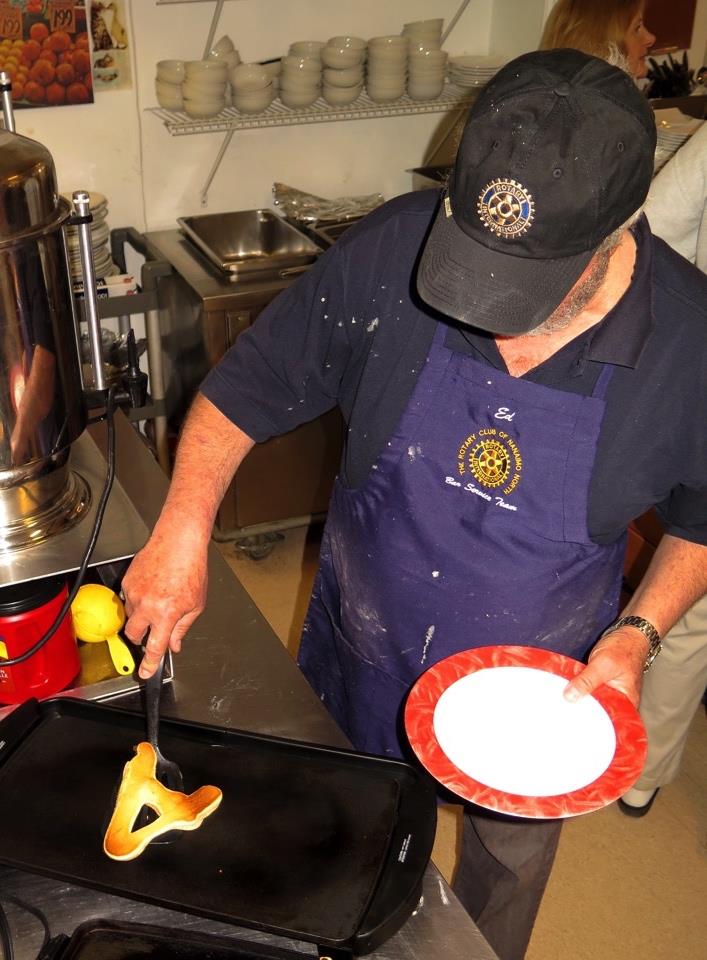 our celebrity pancake chef making his "famous A"
|
Celebrating our volunteers | Craig Clarke | 2015-04-17 00:00:00Z | 0 | |||||||||||||||||||||||||||||||||||||||||||||||||||||||||
Rotary Young Professionals Summit August 28_29
Posted on Apr 07, 2015
Dear Greg Phillips,
We are seeking young Rotarians to represent our district at the Rotary Young Professionals Summit in Berkeley, CA on Aug 28-29, 2015. These young Rotarians will be collaborating with district leadership on young professional membership growth initiatives. Here is the website for further information: http://www.rotaryypsummit.org.
We would like you to nominate individuals in your clubs to apply that meet the following criteria:
While the cost of the conference is covered; our district is unable to reimburse for travel expenses, so the costs related to flight and hotel will be the responsibility of the participant or the participant's club, if funding is available.
Please respond to Amanda Carroll, acarrollx@gmail.com, with the names and contact information for individuals that you wish to nominate. Thank you!
Rose Bowman
District 5020 District Governor Elect |
Rotary Young Professionals Summit August 28_29 | Craig Clarke | 2015-04-08 00:00:00Z | 0 | |||||||||||||||||||||||||||||||||||||||||||||||||||||||||
Monrovia club's Ebola fight not finished
Posted on Mar 27, 2015
By Ryan Hyland Rotary News 9-Mar-2015
After the first cases of Ebola reached Liberia's capital, Monrovia, last June, local Rotary members feared that the city's limited health care system wouldn't be able to contain the highly infectious, often-deadly disease.
Those fears were realized when infections quickly multiplied, underscoring the speed with which Ebola can spread in an urban center. It was the first time the hemorrhagic fever had threatened a major city since it erupted in West Africa last March.
Now, after months of crisis-level response, and with the number of new cases declining, club members are looking to the long term, planning three projects that will have a sustained impact in the Ebola fight in their community.
"We were at the mercy of Ebola," recalls David Frankfort, a member of the Rotary Club of Monrovia and chair of its Ebola committee. "We didn't have enough trained health personnel or proper medical equipment to handle the onset of the epidemic here."
The Monrovia club quickly stepped up efforts to control the spread of the disease in the city. By October, members had donated 220 noncontact infrared thermometers, 10,000 examination gloves, 100 plastic buckets with spouts for handwashing, 120 pairs of rubber boots for health care workers, 80 mattresses, fuel coupons for Ebola response vehicles, and books for students who had to stay at home after the government ordered the closing of all its schools in June.
The 53-member club is also working directly with the Ministry of Health and Social Welfare to enhance local support for Ebola patients, health workers, and support staff.
"When this crisis hit, we weren't going to stand by and wait for help to arrive; we created our own emergency action plan," says Frankfort. "We felt a responsibility, as a Rotary club, to show our community that responding to disasters like this is what we are all about."
The Rotaract Club of Monrovia also pitched in, conducting a door-to-door outreach campaign aimed at raising awareness about Ebola prevention and home management. The effort was co-sponsored by the Liberian Nurses Association.
In addition, Frankfort says that dozens of clubs worldwide have assisted Rotary members in Monrovia, including the Rotary Club of Marlow, in Buckinghamshire, England, which raised more than $113,000 for the effort.
|
Monrovia club's Ebola fight not finished | cra | 2015-03-28 00:00:00Z | 0 | |||||||||||||||||||||||||||||||||||||||||||||||||||||||||
Celebration of Rotary week in Nanaimo
Posted on Mar 02, 2015
Mayor Mackay raising the Rotary Flag at City Hall Feb 23rd photo courtesy of Ian Willams, Rotary Club of Nanaimo.
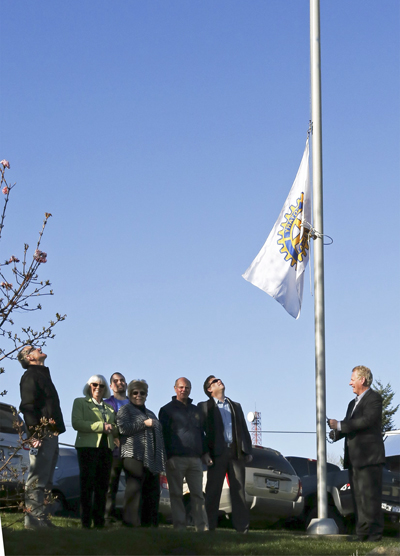 5-club reception at the Nanaimo Golf Club. photo by Don Bonner, Nanaimo Daybreak Rotary Club.
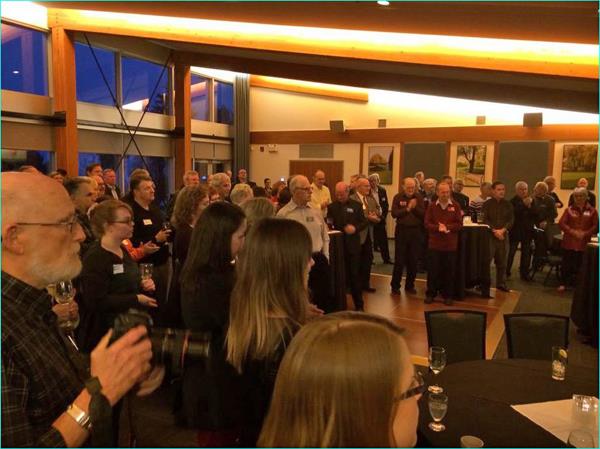 |
Celebration of Rotary week in Nanaimo | Craig Clarke | 2015-03-03 00:00:00Z | 0 | |||||||||||||||||||||||||||||||||||||||||||||||||||||||||
Clubs celebrate Rotary's anniversary, 30 yr of PolioPlus
Posted on Feb 26, 2015
Posted on by Rotary International
This week marks 110 years since Paul P. Harris, Gustavus Loehr, Silvester Schiele, and Hiram E. Shorey gathered in Loehr’s office in Room 711 of the Unity Building in downtown Chicago for what would become known as the first Rotary club meeting. It also is 30 years since Rotary launched its campaign to rid the world of polio.
Rotary clubs are celebrating the milestones in a variety of ways. The Rotary Club of Mt. Warning AM, New South Wales, Australia, gave away pancakes and handouts on the village’s main street.
“Our brand stood out because of our signage, the shirts we wore, and the handouts we brought,” says club president Kaileen Casey. “It was a very relaxed comfortable environment with lots of laughter. It’s important for people to feel at ease and to ask questions. This is the way to increase our awareness in the community.”

Members of the Rotary Club of Chicago illuminated the Blue Cross Blue Shield of Illinois building on the Chicago lakefront to celebrate Rotary’s 110th anniversary.

Rotary members in District 3150 India celebrate by illuminating the Falaknuma Palace.
Send us photos of your event to be included in the gallery above and let us know what you are doing in a comment below
|
Clubs celebrate Rotary's anniversary, 30 yr of PolioPlus | Craig Clarke | 2015-02-27 00:00:00Z | 0 | |||||||||||||||||||||||||||||||||||||||||||||||||||||||||
UN declares 2015 the International Year of Soils
Posted on Feb 26, 2015
The 68th UN General Assembly declared 2015 the International Year of Soils (IYS) (A/RES/68/232).
The Food and Agriculture Organization of the United Nations has been nominated to implement the IYS 2015, within the framework of the Global Soil Partnership and in collaboration with Governments and the secretariat of the United Nations Convention to Combat Desertification.
The IYS 2015 aims to increase awareness and understanding of the importance of soil for food security and essential ecosystem functions.
The specific objectives of the IYS 2015 are to:
Click here to go to FAO page
|
UN declares 2015 the International Year of Soils | Craig Clarke | 2015-02-27 00:00:00Z | 0 | |||||||||||||||||||||||||||||||||||||||||||||||||||||||||
We volunteered at Coldest Night of the YearJeff & Craig in their marshal uniform.
 In contrast to last year, the weather was superb for the "Coldest night of the year Walk" .
Bob Lasota organized the marshals and some members participated in the walk, choosing to do 2, 5, or 10 kilometers.
The event raised raised $38,000 for Nanaimo and $25,000 in Parksville.
Funds will support the Island Crisis Care Society.
A special thank you to our members and their families who either were walking or volunteering for this event.
|
We volunteered at Coldest Night of the Year | Craig Clarke | 2015-02-24 00:00:00Z | 0 | |||||||||||||||||||||||||||||||||||||||||||||||||||||||||
Rotary releases US$34.8 million to end polio worldwide
Posted on Feb 19, 2015
6-Feb-2015 News Release Contact: Petina Dixon-Jenkins, (847) 866-3054, petina.dixon-jenkins@rotary.org
EVANSTON, Ill., USA (20 January 2015) — The continued fight to eradicate polio gets an additional $34.8 million boost from Rotary in support of immunization activities and research to be carried out by the Global Polio Eradication Initiative. The funds will be used by the World Health Organization (WHO) and UNICEF for polio immunization, surveillance and research activities in ten countries, as well as to provide technical assistance to additional countries in Africa.
In 2014, the world saw significant progress against polio in most places. Nigeria – the last polio-endemic country in Africa – saw a nearly 90% reduction in cases in 2014 over 2013, with the last case recorded six months ago. In addition, more than half of the world’s polio cases in 2013 were the result of outbreaks in previously polio-free countries, largely caused by instability and conflict in countries such as Syria, Iraq and Somalia. These outbreaks appear to have been stopped in 2014 following special vaccination efforts in 11 countries, reaching more than 56 million children.
The exception to this progress was Pakistan, which saw an explosive outbreak which resulted in more than 300 cases in 2014, the highest number in the country in more than a decade. As a result, Pakistan accounted for almost 90% of the world’s cases in 2014. In 2015, Pakistan has the opportunity to reverse that trend and in doing so, help the world end polio forever.
The progress made against the disease in 2014, while significant, is fragile. Rotary’s funds will support efforts to end polio in the three countries where the disease has never been stopped: $8.1 million in Nigeria; $1.1 million in Pakistan and $6.7 million in Afghanistan.
|
Rotary releases US$34.8 million to end polio worldwide | Craig Clarke | 2015-02-20 00:00:00Z | 0 | |||||||||||||||||||||||||||||||||||||||||||||||||||||||||
Dragonboat Festival Society donates to Hospital & Hospice
Posted on Feb 07, 2015
Save-On-Foods and the Nanaimo Dragon Boat Festival Society delivered $22,000 to the Nanaimo & District Hospital Foundation to be put towards the purchase of a Breast MRI; offering progressive healthcare to Vancouver Island women. Proud of our hardworking members Bob Lasota and Jim Turley for their contribution to the Dragon Boat festival.
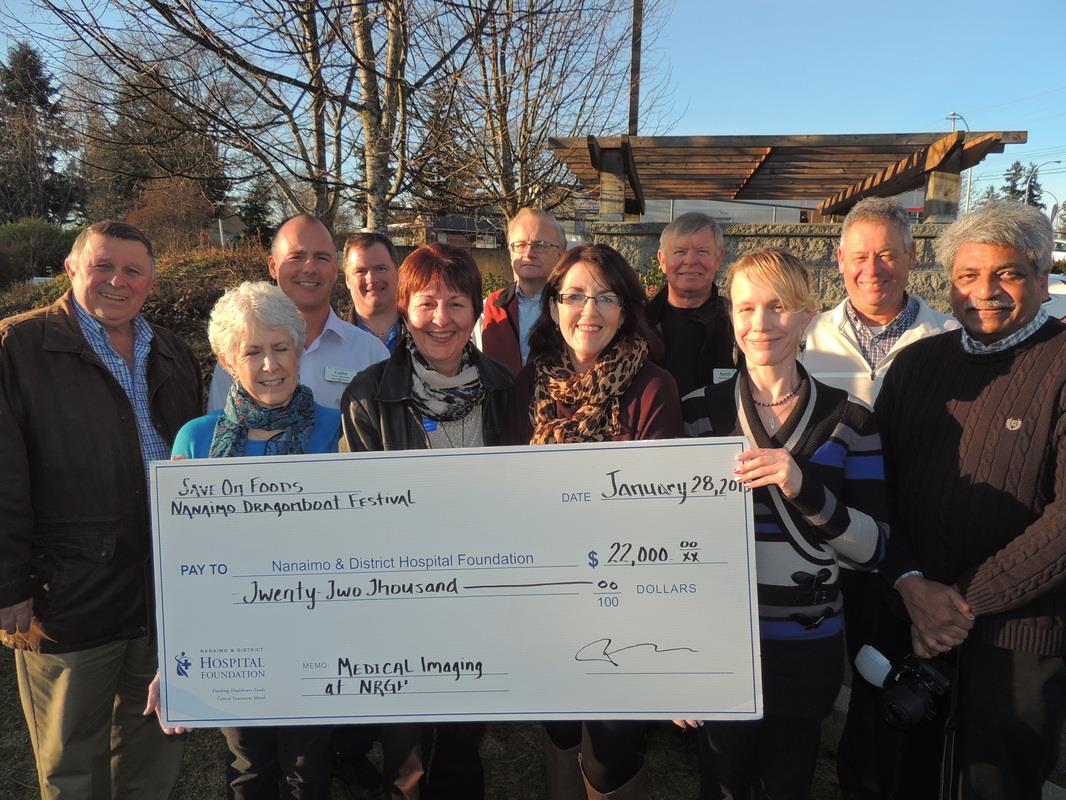 |
Dragonboat Festival Society donates to Hospital & Hospice | Craig Clarke | 2015-02-08 00:00:00Z | 0 | |||||||||||||||||||||||||||||||||||||||||||||||||||||||||
Rotary director Monty Jay Audenart dies January 21, 2015
Posted on Feb 03, 2015
|
Rotary director Monty Jay Audenart dies January 21, 2015 | Craig Clarke | 2015-02-04 00:00:00Z | 0 | |||||||||||||||||||||||||||||||||||||||||||||||||||||||||
Promoting membership with new ideas, even some that challenge tradition
Posted on Jan 23, 2015
Strengthening Rotary's membership is not just important for incoming district governors, it's critical. That's the message they received from several key speakers at their training event, the 2015 International Assembly in San Diego.
For membership to grow, leaders must be willing, for example, to ease stringent club meeting protocols and make other efforts to accommodate a younger, digitally oriented demographic.
Seventy percent of Rotary members are 50 years or older, while half of the world's population is under 30, according to Rotary leaders. The contrast shouldn't be something to fear, but rather something to embrace, said Rotary member Michael McQueen, a bestselling author who studies social change, youth culture, and cultural issues and whose consulting firm, The Nexgen Group, specializes in demographic shifts and social trends.
To engage this young demographic, McQueen says that staying relevant is crucial. He shared three key ways that enduring organizations can do that: recalibrate, re-engineer, and reposition.
But relevance does not involve compromise, McQueen stressed; the values, priorities, and commitment of Rotary should never change. "Any organization that is willing to compromise its DNA in order to stay relevant never lasts. After all, if you don't stand for something, you'll fall for anything," said McQueen, a member of the Rotary Club of Crows Nest, New South Wales, Australia.
RI General Secretary John Hewko expressed a similar view when he addressed the assembly. He said it's clear that members have been able to accomplish a great deal, but asked what they are "willing to do" to make Rotary stronger.
"So I'm asking all of you, in the coming year, to be voices for doing everything we can in Rotary, not just everything that's comfortable or easy or the way things have always been done," he said. "Be advocates for thoughtful, positive, and lasting change. We have a great tradition in Rotary, but it's our tradition. We made it, we own it -- it doesn't own us; if it no longer serves its purpose, we can change it."
McQueen suggests adjusting some of the traditions, processes, and protocols that "could be the very things that cause us to lose relevance."
|
Promoting membership with new ideas, even some that challenge tradition | Craig Clarke | 2015-01-24 00:00:00Z | 0 | |||||||||||||||||||||||||||||||||||||||||||||||||||||||||
Gates 2015 annual letter
Posted on Jan 23, 2015
Bill & Melinda Gates released their annual letter. In it they describe their bet that the next 15 years will be transformative for poor countries.
Click here to read it.
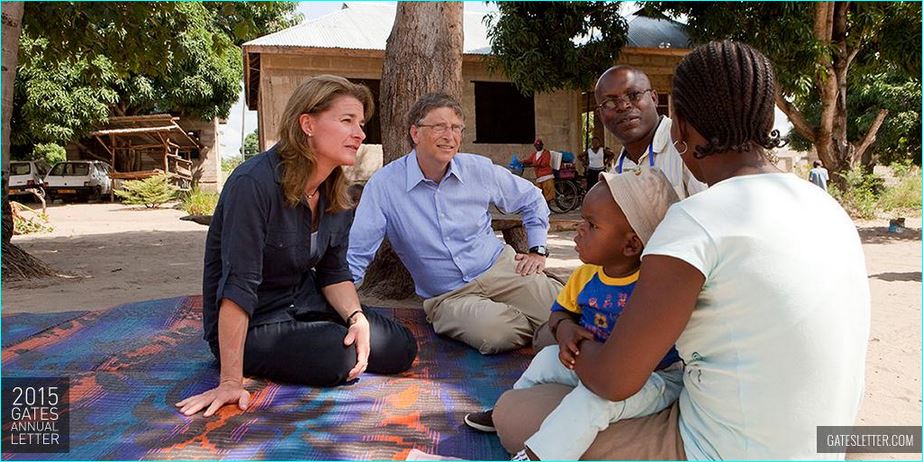 |
Gates 2015 annual letter | Craig Clarke | 2015-01-24 00:00:00Z | 0 | |||||||||||||||||||||||||||||||||||||||||||||||||||||||||
Literacy Nanaimo refurbishes computer hardware
Posted on Jan 22, 2015
At our January 20th meeting, Barb told us that Rebecca Kirk (rebecca@literacycentralvi.org), CEO of Literacy Central Vancouver Island is looking for used computer equipment, particularly monitors and mice which they refurbish.
|
Literacy Nanaimo refurbishes computer hardware | Craig Clarke | 2015-01-23 00:00:00Z | 0 | |||||||||||||||||||||||||||||||||||||||||||||||||||||||||
WHO Director-General launches report on on global status of noncommunicable diseases
Posted on Jan 18, 2015
speech by Dr Margaret Chan, Director-General of the World Health Organization in Geneva, January 19, 2015.
...heart disease, stroke, cancer, diabetes, and chronic respiratory diseases are the biggest cause of premature mortality worldwide, with 82% of these deaths now occurring in low- and middle-income countries. The fact that most of these deaths could have been prevented sounds a loud and compelling call to action.
Since the start of this century, these diseases have become more prevalent. They have also become more democratic, driven as they are by universal pressures, like the global marketing of unhealthy products, rapid urbanization, and population ageing.
The marketing of unhealthy products, like cigarettes, alcohol, sugar-filled beverages, and foods that are rich in fat, sugar, and salt, is powerful and persuasive. Countering it needs attention and policies coming from the highest level of government.
Click here to read entire text on WHO site.
|
WHO Director-General launches report on on global status of noncommunicable diseases | Craig Clarke | 2015-01-19 00:00:00Z | 0 | |||||||||||||||||||||||||||||||||||||||||||||||||||||||||
Rotary's innovative tribute to Polio Eradication in India
Posted on Jan 09, 2015
ROTARY’S INNOVATIVE TRIBUTE TO POLIO ERADICATION IN INDIA BREAKS GUINNESS WORLD RECORDBy Adam Ross, Rotary News 8-JAN-2015
|
Rotary's innovative tribute to Polio Eradication in India | Craig Clarke | 2015-01-10 00:00:00Z | 0 | |||||||||||||||||||||||||||||||||||||||||||||||||||||||||
What young professionals are looking for in Rotary
Posted on Jan 06, 2015
Posted on by Rotary International 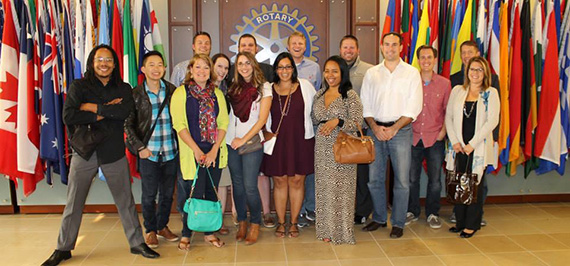
Rotary members who attended the Young Professionals Summit 26-27 September.
By Chris Davidson, Rotary Club of Newport News, Virginia
I attended the first-ever Rotary Young Professionals Summit held in Chicago on 26-27 September, which gathered 30 Rotarians under the age of 40 to discuss how Rotary can better attract and engage young professionals.
The summit was a huge success and thoroughly captured the essence of what Millennials and members of Generation Y are looking for — mentorship, friendship, opportunities, and fun. One of my Rotary mentors, past RI Vice President Anne L. Matthews, who I had worked with on district membership projects, had encouraged me to apply.
Joining Rotary as a 32-year-old young professional was a life-changing event. I knew I wanted to develop my leadership skills and was looking for ways to meet influential members of my community. Once I was exposed to Rotary, I realized that the best way to develop relationships with successful people was to work alongside them in the service of others. One year after joining the Rotary Club of Newport News, I traveled to Zambia as part of a grant to build footbridges in remote “limited access” communities. Rotary offers so much to young people who have the desire to help others, make connections, and learn servant leadership in a world that desperately needs more of that.
|
What young professionals are looking for in Rotary | Craig Clarke | 2015-01-07 00:00:00Z | 0 | |||||||||||||||||||||||||||||||||||||||||||||||||||||||||
Lack of access to water can fuel conflict and even threaten peace and stability
Posted on Dec 29, 2014
by Jan Eliasson, deputy secretary-general of the United Nations.
The world is experiencing a surge of water-related crises. The eastern basin of the Aral Sea dried up completely in August, for the first time in 600 years. California has experienced an unprecedented three-year drought. Demographic changes and unsustainable economic practices are affecting the quality and quality of water at our disposal.
Click here to read the entire article at nature.com
|
Lack of access to water can fuel conflict and even threaten peace and stability | Craig Clarke | 2014-12-30 00:00:00Z | 0 | |||||||||||||||||||||||||||||||||||||||||||||||||||||||||
Don's images from Community Breakfast
Posted on Dec 17, 2014
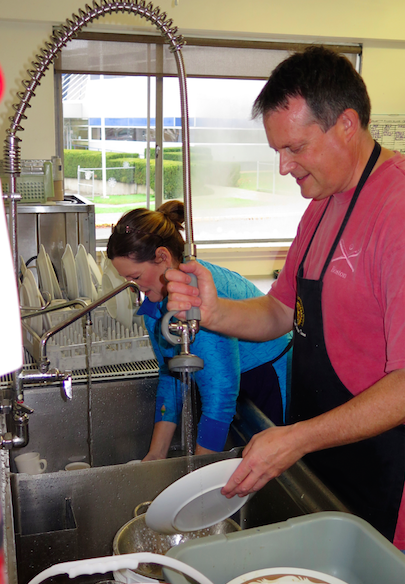 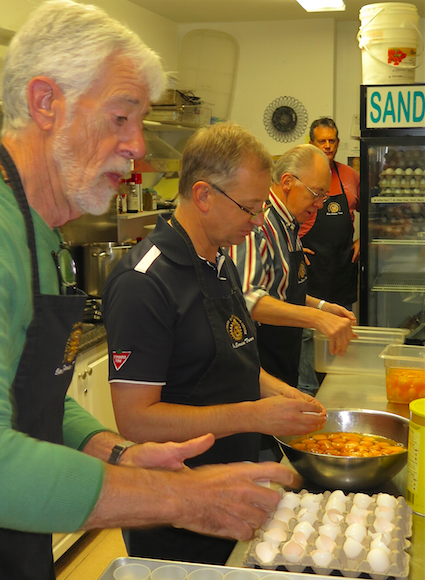 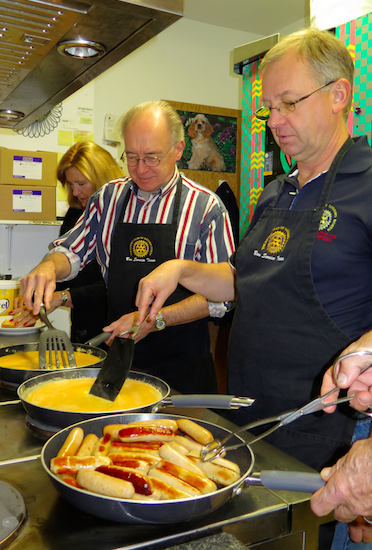 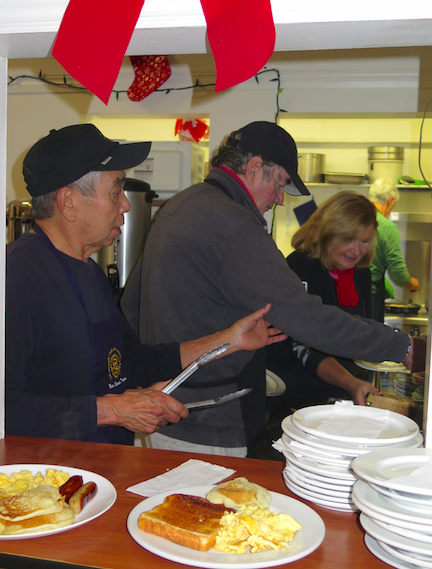 |
Don's images from Community Breakfast | Craig Clarke | 2014-12-18 00:00:00Z | 0 | |||||||||||||||||||||||||||||||||||||||||||||||||||||||||
Rotary Peace Scholar has lived through two civil wars
|
Rotary Peace Scholar has lived through two civil wars | Craig Clarke | 2014-12-10 00:00:00Z | 0 | |||||||||||||||||||||||||||||||||||||||||||||||||||||||||
A major breakthrough against polio
Posted on Nov 24, 2014
By Dan Nixon Rotary News 21-Nov-2014
Rotary and its partners in the Global Polio Eradication Initiative (GPEI) are approaching a significant milestone: the eradication of type 3 wild poliovirus.
The last case of polio caused by the type 3 virus was reported in Yobe, Nigeria, on 10 November 2012.
"We may have eradicated a second of three; that's a major milestone," said Dr. Stephen Cochi, a senior adviser at the Center for Global Health at the U.S. Centers for Disease Control and Prevention, speaking to the BBC.
Rotary has played an important role in bringing type 3 polio close to extinction. PolioPlus grants have provided key funding for surveillance, operational support, social mobilization, and technical assistance in the fight to eradicate polio, including type 3. And Rotary members have worked to change the minds of community leaders and parents who once refused to let children be immunized, including in the three remaining polio-endemic countries, Nigeria, Pakistan, and Afghanistan.
|
A major breakthrough against polio | 2014-11-25 00:00:00Z | 0 | ||||||||||||||||||||||||||||||||||||||||||||||||||||||||||
Global grant approved for Sunyani Schools Project
Posted on Nov 04, 2014
by Bev Hilton
The global grant application submitted by the 5-club world community service alliance (Nanaimo Rotary Club, Nanaimo North Rotary Club, Lantzville Rotary Club, Nanaimo Daybreak Rotary Club, Nanaimo Oceanside Rotary Club) has been approved. Nanaimo Oceanside Club has taken the lead on this project. The local partner is the Sunyani Central Rotary Club.
The Global Grant is for US$66,500 US ($71,500 CDN or 227,000 Ghana Cedi).
The project will replace roofs of the Nyamaa Kindergarten & Junior High school. It will construct a new 12-seater latrine at Kotokrom and provide for annual visits by trained nurses to teach a hygene class to the school. The dirt floor in a classroom at Kotokrom will be covered. Southridge Model school will receive a security fence similar to the Sunyani Municipal Primary School. Surplus funds will be used to distribute malaria nets at one of the community hospitals. Bids are underway, work should begin by mid month.
Thank you to your club for its support of the 5-club alliance and the Ghana projects. While many projects are being carried out in areas to the south, it is important to retain our partnership with the Ghanaian Rotary clubs as the need of the people of Ghana is not any less important.
|
Global grant approved for Sunyani Schools Project | Craig Clarke | 2014-11-05 00:00:00Z | 0 | |||||||||||||||||||||||||||||||||||||||||||||||||||||||||
World Polio Day: Health officials laud polio eradication achievements, point to disease’s endgame
Posted on Oct 27, 2014
By Ryan Hyland Rotary News 24-Oct-2014
After a year of shrinking polio cases worldwide, the crippling disease is now on the cusp of being eradicated, said top health officials at Rotary's second annual World Polio Day event on 24 October.
At a special Livestream program -- World Polio Day: Make History Today -- Rotary leaders joined global health experts and celebrity singers to hail the progress of the Global Polio Eradication Initiative. After nearly 30 years, the GPEI, which includes Rotary, the World Health Organization, UNICEF, U.S. Centers for Disease Control and Prevention, and the Bill & Melinda Gates Foundation, is on the brink of ending polio by 2018, making it the second infectious disease to be eradicated.
|
World Polio Day: Health officials laud polio eradication achievements, point to disease’s endgame | Craig Clarke | 2014-10-28 00:00:00Z | 0 | |||||||||||||||||||||||||||||||||||||||||||||||||||||||||
World Polio Day October 24
Posted on Oct 23, 2014
Why Ending Polio Matters
|
World Polio Day October 24 | Craig Clarke | 2014-10-24 00:00:00Z | 0 | |||||||||||||||||||||||||||||||||||||||||||||||||||||||||
Rotary’s response to Ebola outbreak
Posted on Oct 23, 2014
Rotary continues to follow the developments surrounding the Ebola outbreak in West Africa and advice of the World Health Organization and U.S. Centers for Disease Control and Prevention, our partners in international public health. Strengthening the health infrastructure and supporting and sustaining the deployment of government health workers throughout these outbreak areas are greatly needed. Although Rotary has limited opportunities to respond at a corporate level, our strength as an organization is firmly rooted in the grassroots response of Rotary clubs and Rotarians.
Clubs around the world are creating or joining coalitions that are raising funds as well as purchasing and shipping safety equipment and supplies. If you want to let others know about your club project, you can post it on Rotary Ideas, Rotary’s crowdsourcing tool. Club officers can request partners, online contributions, volunteers, and in-kind donations for their projects. While only Rotary projects can request resources, anyone – including the public – can visit the site and donate.
The Rotary Foundation continues to support long-term sustainable health care projects through global grants. Find out more.
Questions about contributing to Ebola relief efforts should be sent to relief@rotary.org.
Rotary News
|
Rotary’s response to Ebola outbreak | Craig Clarke | 2014-10-24 00:00:00Z | 0 | |||||||||||||||||||||||||||||||||||||||||||||||||||||||||
Volunteers needed for PARTY program 2014_2015.The P.A.R.T.Y. (Prevent Alcohol and Risk Related Trauma in Youth) Program is a dynamic, interactive injury prevention program for teenagers. P.A.R.T.Y. was developed in 1986 at Sunnybrook Health Sciences Centre in Toronto, Ontario, through a request from a group of youth. As of June 2012, there are over 100 sites around the world, seventy-two of which are operating in Canada, with the remainder of the sites in the United States, Australia, Brazil, Japan and Germany.
Patrick Maguire of Daybreak Rotary Club [rotarypm@telus.net] is coordinating volunteers for the program in Nanaimo. If somebody is going to go more than once, they should register as a volunteer with the hospital and they can get a parking pass; Patrick can help with this.
PARTY PROGRAM 2014 - 2015 SIGN-UP
Up to four volunteers requested for each PARTY session, please. That’s four for the morning and four for the afternoon, or four for the whole day! If you can do the whole day, please sign in for both sessions. Name and Phone #, Please and Thank you!
|
Volunteers needed for PARTY program 2014_2015. | 2014-10-22 00:00:00Z | 0 | ||||||||||||||||||||||||||||||||||||||||||||||||||||||||||
World Food Day October 16
Posted on Oct 13, 2014
 The Food and Agriculture Organization (FAO) of the United Nations marks World Food Day each year on 16 October, the day on which FAO was founded in 1945. World Food Day was first held on 16 Oct 1981.
The 2014 World Food Day theme - Family Farming: “Feeding the world, caring for the earth” - has been chosen to raise the profile of family farming and smallholder farmers. It focuses world attention on the significant role of family farming in eradicating hunger and poverty, providing food security and nutrition, improving livelihoods, managing natural resources, protecting the environment, and achieving sustainable development, in particular in rural areas.
|
World Food Day October 16 | Craig Clarke | 2014-10-14 00:00:00Z | 0 | |||||||||||||||||||||||||||||||||||||||||||||||||||||||||
Vital Signs Report released in Nanaimo
Posted by Craig Clarke on Oct 09, 2014
The Vital Signs report by the Nanaimo Community Foundation was released October 7th.
Click here to download the report.
There were 27 Vital Signs reports across Canada.
Click here to go to the Vital Signs Canada page with links to other reports
|
Vital Signs Report released in Nanaimo | Craig Clarke | 2014-10-10 00:00:00Z | 0 | |||||||||||||||||||||||||||||||||||||||||||||||||||||||||
Managing the effects of Japan's triple disaster
Posted on Oct 07, 2014
Mending the lingering effects of Japan’s triple disasterMore than three years after an earthquake, tsunami, and nuclear disaster triggered widespread devastation in Japan, the physical scars are beginning to mend. Debris has been removed. Coastal communities are being rebuilt. Farming and fishing have resumed, and thousands of people have moved in to new housing.
But the Rotary Clubs of Koriyama West, Japan, and Englewood, New Jersey, USA, are concerned with the emotional and psychological impact caused by the triple disaster, known in Japan as 3/11, which claimed more than 19,000 lives and displaced hundreds of thousands of people.
In a country that prides itself on stoicism, it is difficult for survivors to seek and accept mental health care. "We believe that the first step to overcome the grief is to be able to talk about what they're going through and share their personal experiences," says Englewood club member Ikuyo Yanagisawa.
With a Rotary global grant, the clubs purchased mobile video conference equipment for four mental health clinics in areas most affected by the Fukushima nuclear power plant crisis. These tools now connect mental health care providers in Japan with trauma experts at the Arnhold Global Health Institute in New York City, where psychologists treated survivors and witnesses of the September 11 attacks.
|
Managing the effects of Japan's triple disaster | 2014-10-08 00:00:00Z | 0 | ||||||||||||||||||||||||||||||||||||||||||||||||||||||||||
Why social media can't be left to the PR director
Posted on Sep 25, 2014
Posted on by Rotary International 
A social media post is like a stone skipping across a pond. Each comment or retweet makes new ripples.
By Kate McKenzie, Rotary Club of Randwick, New South Wales, Australia
I have often met Rotary leaders who have nodded thoughtfully when I have explained the benefits of social media and then said “I will get my PR director to do that.” Although it is important to have division of labor and leaders with the right skills concentrating on the right tasks, social media doesn’t work if it is the sole responsibility of one person alone.
In order for something to be social, more than one person has to participate. Of course, not everyone has the confidence to be the main content creator and it is important that the person responsible for managing the club or district pages is able to create the right tone and use their creativity to attract the public’s attention. It can be a very lonely task, however, if that creativity goes unnoticed and unsupported by fellow club members.
Social media works as a PR tool because likes, shares, and comments spread the original message beyond the creator’s own immediate network and into the networks of friend’s friends. If I have 100 friends, and 20 friends like, share, comment on, or retweet my post, that will have a greater impact than if only two friends did the same.
Stone Skipping
I often use the analogy of stone skimming or stone skipping, where the stone is a post or update and the Web is the pond. If a post doesn’t receive any likes, comments, retweets, and shares, then it drops straight to the bottom of the Web never to be seen again. Each like, comment, retweet, and share helps the post to travel just that little bit further and each splash can attract the attention of new people as it makes it’s way across the Internet.
Rotary clubs and districts can make the most of the talents of their enthusiastic and creative marketing/PR directors by empowering them to be the key content creator, while also ensuring that it is the responsibility of all members to be content sharers.
Another example is events. Have you ever walked past an empty restaurant and decided not to go in? The same thing happens for Facebook events — people don’t join events that look empty. If you receive an invitation from your club or district, respond to it. If you can’t attend, invite your other friends before you decline but also leave a short note expressing your regrets and encouraging others to join the fun.
To build your confidence in sharing content, log into the system and observe what other people do. Ask questions in the Rotarians on Social Networks Fellowship member groups (it’s free to join). Keep your comments positive and always apply The Four Way Test. Set yourself a goal of logging in and responding to event invites and sharing club news at least once a week. Or invest in a smartphone so you can do it on the move.
Your PR director will be much happier, but more importantly your network is likely to become more aware of and engaged in your Rotary activities and over the medium to long term this will convert to new members, funds, and support.
_____  About the author: Kate McKenzie is club secretary of the Rotary Club of Randwick, New South Wales, Australia, and conference chair for District 9675. She is a member of the Rotarians on Social Networks Fellowship. About the author: Kate McKenzie is club secretary of the Rotary Club of Randwick, New South Wales, Australia, and conference chair for District 9675. She is a member of the Rotarians on Social Networks Fellowship. |
Why social media can't be left to the PR director | Craig Clarke | 2014-09-26 00:00:00Z | 0 | |||||||||||||||||||||||||||||||||||||||||||||||||||||||||
Polio remains a public health emergency
Posted on Aug 11, 2014
 On 31 July, the World Health Organization confirmed that polio remains a public health emergency of international concern. The decision means recommendations on travel from polio-impacted countries will remain in place, protecting the initiative's overall gains in the fight against polio. These recommendations are as important as ever with the WHO facing another public health emergency in the Ebola outbreak.
|
Polio remains a public health emergency | 2014-08-12 00:00:00Z | 0 | ||||||||||||||||||||||||||||||||||||||||||||||||||||||||||
Symphony in the Harbor 2014
Posted on Aug 09, 2014
 Tenor Ken Lavigne & conductor Calvin Dyck
Jim Turley coordinated our volunteer effort including set-up, collecting donations and clean-up after the concert. The perfect weather attracted a large audience.
|
Symphony in the Harbor 2014 | 2014-08-10 00:00:00Z | 0 | ||||||||||||||||||||||||||||||||||||||||||||||||||||||||||
News from Etta Projects
Posted on Jul 27, 2014
|
News from Etta Projects | Craig Clarke | 2014-07-28 00:00:00Z | 0 | |||||||||||||||||||||||||||||||||||||||||||||||||||||||||
How to share Rotary with images on Social Media
Posted on Jul 26, 2014
|
How to share Rotary with images on Social Media | Craig Clarke | 2014-07-27 00:00:00Z | 0 | |||||||||||||||||||||||||||||||||||||||||||||||||||||||||
Youth exchange year opened her eyes
Posted on Jul 21, 2014
My Rotary Youth Exchange — this year has opened my eyesPosted on by Rotary International
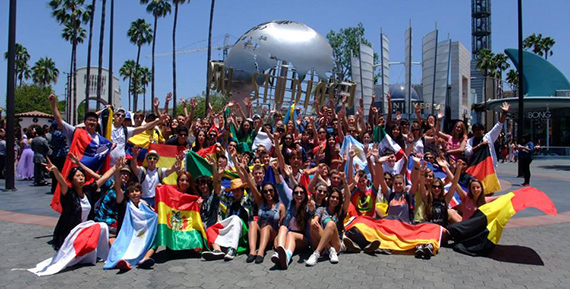
Victoria Alvarez and other youth exchange students during their trip to the West Coast of the United States.
By Victoria Alvarez, a Rotary Youth Exchange student from Argentina to the United States
Most of you have probably heard of Rotary Youth Exchange, and maybe some of you have even been involved with the program. I recently completed my exchange year in the United States, and wanted to share the perspective of someone who has just taken part in one.
I come from Argentina, a little country on the edge of South America that you may have heard of recently because of the World Cup. It is in many ways very different from the United States. In signing up for an exchange to America, I stepped out alone into a culture unlike any I had experienced, in an unfamiliar environment, in a house I did not know, to live with people I did not know. Leaving behind family, friends, and most of what was familiar.
|
Youth exchange year opened her eyes | cra | 2014-07-22 00:00:00Z | 0 | |||||||||||||||||||||||||||||||||||||||||||||||||||||||||
Meet Rotary's new president Gary C K Huang
Posted on Jul 08, 2014
by Susie Ma Rotary’s new president, Gary C.K. Huang, shows us the meaning behind the family of Rotary. Gary Huang played a lot of sports when he was younger, but basketball was his favorite. He was captain and point guard of his high school team. “I’m not tall, but I was quick.” He flashes a grin. “I knew how to move the ball and set my team up to win.” That was decades ago, but whether in basketball, business, or Rotary, moving the ball continues to be Huang’s game. He likes action and progress. He relishes a challenge. When the Rotary Club of Taipei told him he was too young to be a member, he persisted, attending every meeting for nine months until he hooked an invitation at age 30. Since then, he has not stopped moving forward. Five years after joining Rotary, Huang became club president. Then he became Taiwan’s youngest district governor, first RI director, and first Rotary Foundation trustee. This month, he becomes the first Chinese president of Rotary International.
Huang was born in Fujian, a province in southern China. He is the third child of seven. Like many others, his family fled China during the civil war, unhappy with the communists who were taking over the country. The family settled in Taiwan in 1947, when Huang was one year old.
Huang’s parents pushed him to excel in school, but they also believed that grades were not the only things that were important. “My father used to say to me that getting B’s was OK, but I had to participate in activities and join clubs. He said that would help me in the future,” Huang recalls.
Although Huang’s father was not a Rotarian, he instilled similar ideals of service in his son. Helping others, his father said, would help him learn how to be a leader. As a result, Huang was president of his high school class. Besides playing basketball, he played soccer, ran track and, at the urging of his mother, participated in (and often won) speech competitions. He also led the daily morning pep rallies at his school for six years. “My father was happy I did those things,” Huang says. “Every time there was a school celebration, no matter how busy he was, he would always attend.”
After high school and two years of serving in the military, Huang moved to Michigan to attend the University of Eastern Michigan in Ypsilanti. He recalls those years with fondness, remembering how clean and wide-open the Midwest felt to a city boy from Taipei. He lived with an American family, who gave him the name Gary because they liked the actor Gary Cooper. He worked through school at a gas repair company, where he started at $1.25 an hour and ended at $4.75 a few years later. When he graduated with a business degree in 1971, he was so happy, he bought himself a graduation ring. “It was the first, most expensive thing I’d bought with my own money, so I wear it all the time,” he says.
But his education was far from over. Huang’s father was president of an insurance company in Taiwan and wanted his son to be well prepared for a career in the same field. Huang went on to graduate school at New York University and spent time in England, Switzerland, Germany, and Japan, learning about the insurance business and making international connections. Years later, Huang would again be making connections all over the world as RI president.
Huang returned to Taiwan to work for a small insurance firm, which over the next 15 years he built into one of the largest in the industry. He made one agreement with his chairman: that he had to be able to fit Rotary into his busy schedule. “I wanted to continue my work in Rotary no matter what,” he says.
When Huang began to experience success in his profession and in Rotary, his mother kept him grounded, something she still does at the age of 95. “I know she is proud of me,” he says. “But no matter how successful I am, she never praises me.”
|
Meet Rotary's new president Gary C K Huang | Craig Clarke | 2014-07-09 00:00:00Z | 0 | |||||||||||||||||||||||||||||||||||||||||||||||||||||||||
Energy for the Poor - Powering the Fight against poverty
Posted on Jun 25, 2014
BY BILL GATES ON JUNE 25, 2014 [from the blog of Bill Gates]
For years, I took energy for granted. There’s no telling how many times I walked into my office, flipped a light switch, and powered up a PC without thinking at all about the magic of getting electricity any time I wanted it. But then I started traveling to poor and middle-income countries, and I had a very different experience.
I remember going to Buenos Aires and seeing where the government had run big wires to distribute electricity. But people couldn’t afford it, so they tapped their own power cables into the government’s and stole the electricity. This is a very common experience—according to the United Nations, some 1.4 billion people have no access to electricity, and a billion more only have access to unreliable electricity networks. I’ve talked to women in rural Africa who spent hours every day hauling wood so they could cook food and light their homes. Others buy fuel to run a generator, which pumps out pollutants that cause asthma and lung cancer and, at 25 cents per kilowatt-hour, is more than twice as expensive as what the average American homeowner pays for electricity. Another example of the high cost of being poor.
 Here is a picture of some students in Conakry, Guinea. They’re studying under street lamps, because they don’t have reliable lights at home. This is one of the most vivid examples of life without electricity at home that I’ve seen.
 Think about what it has meant to America to have access to affordable, reliable energy. Electricity powers the streetlights that make our cities far safer than they were a century ago. The American construction industry never would have taken off if we didn’t have lots of affordable energy for making cement and steel. Our farmers became much more productive when they replaced their plows and oxen with tractors—but only because they had fuel to run these new machines. The historian Vaclav Smil found that in the 20th century the average American’s energy use jumped roughly 60-fold. At the same time, the price we pay for electricity fell by roughly 98 percent.
That’s why I think any anti-poverty agenda has to look at giving more people access to affordable energy. For countries to lift themselves out of poverty, they need lights in schools so students can study when it’s dark out. Refrigerators in health clinics to keep vaccines cold. Pumps to irrigate farmland and provide clean water.
In the rich world, we are right to worry about conserving energy, but in poor places, people needmore energy.
There is also a demand side to this equation. As people get richer, they want more energy-consuming goods, like computers and refrigerators, and energy-hungry services like health care. We’ve seen it already in Brazil, India, China, and other countries, and it’s a trend that will continue well into the future. The U.S. government estimates that the world’s energy needs will increase by more than 50 percent by 2040, but I think it could go even higher as the global population grows and incomes continue to rise. We want to provide this energy as efficiently as possible, but that’s no reason to deny the poor access to the services that rich countries enjoy.
What about climate change?
It’s a huge problem, one of the biggest we face today. The more energy we produce with today’s technology, the more carbon dioxide we release into the atmosphere. While there is some uncertainty about the exact impact, there is nearly universal scientific agreement that these effects will be bad. And they will be worst for the poorest people on earth, who have done the least to cause the problem. Energy can’t just be affordable—it also has to be clean.
That’s why it’s so important for the United States and other rich countries to invest more in research into clean energy. A few years ago, I shared a few thoughts on this subject in a TED talk about developing energy sources that produce zero carbon. And I’m investing in a number of projects to develop cleaner, more affordable sources of energy. I hope to have more to share about them as they move through the R&D cycle.
These days, I don’t take energy for granted. I know what a difference it can make in the lives of the poorest, and I’m committed to helping them get it.
|
Energy for the Poor - Powering the Fight against poverty | Craig Clarke | 2014-06-26 00:00:00Z | 0 | |||||||||||||||||||||||||||||||||||||||||||||||||||||||||
Club receives Rotary International Significant Achievement Award
Posted on Jun 19, 2014
Our club has received received the Rotary International Significant Achievement Award 2013/14 for our community breakfast program!
Letter from RI President Ron Burton .
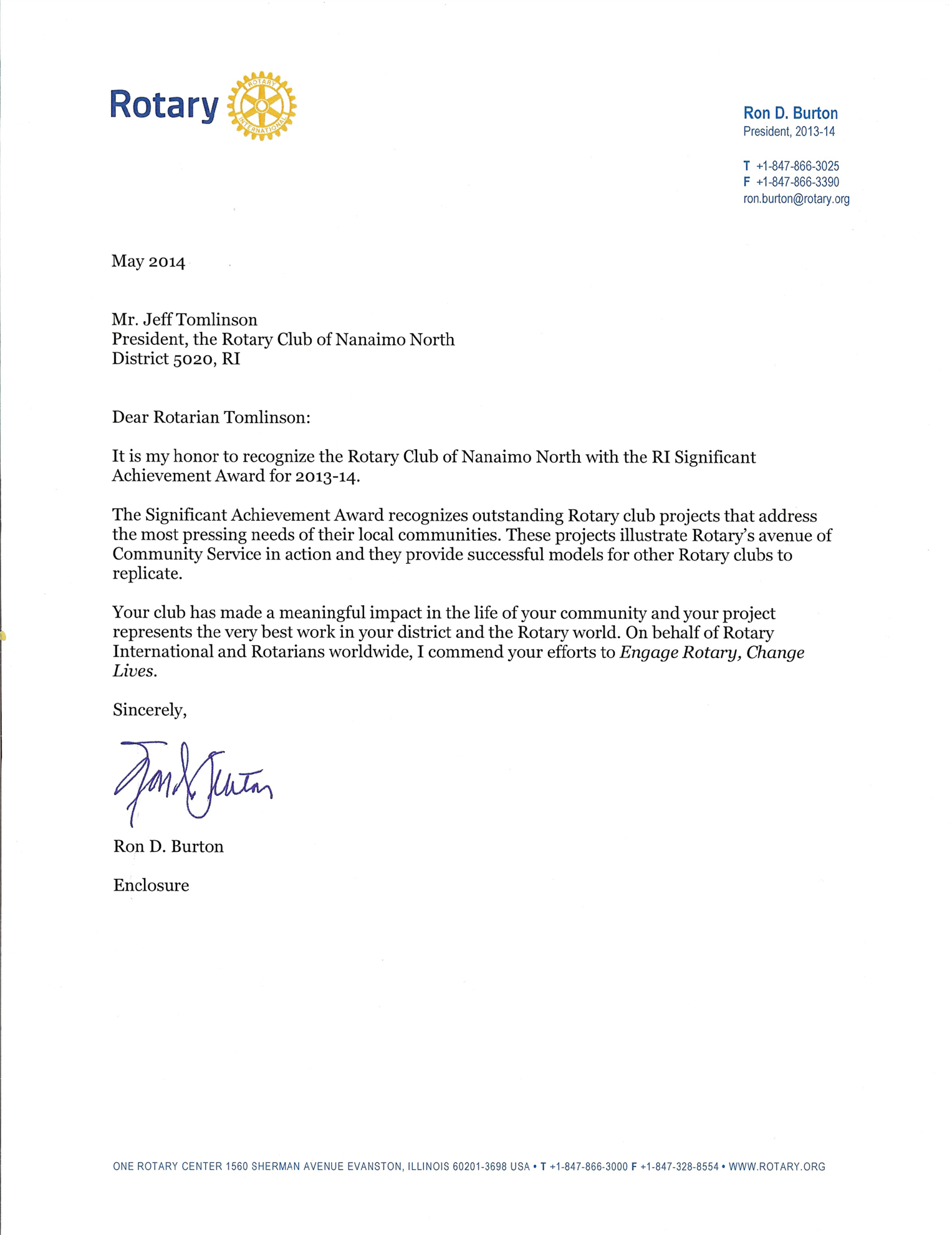 Certificate signed by President Ron Burton and District Governor Pete Taylor
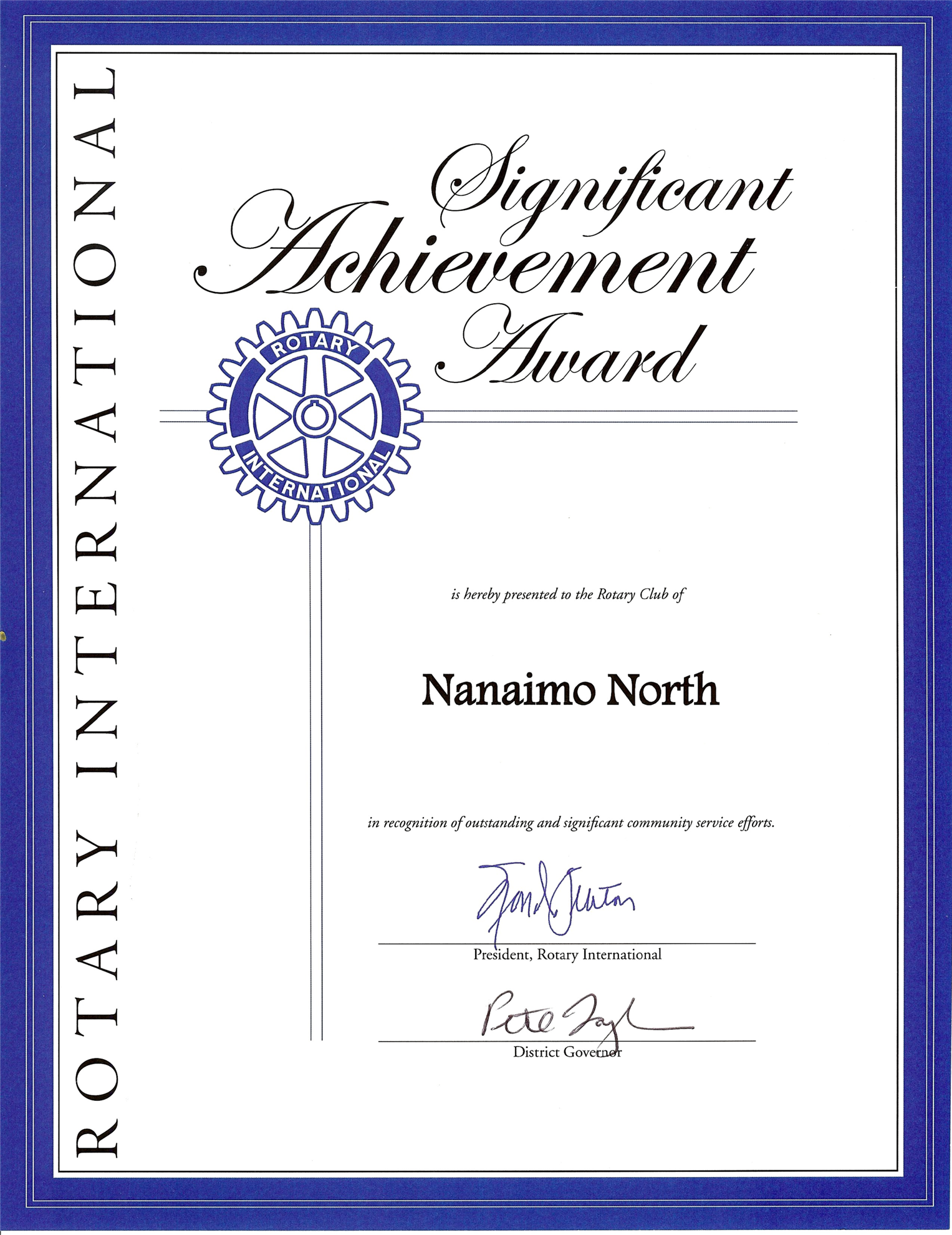 |
Club receives Rotary International Significant Achievement Award | Craig Clarke | 2014-06-20 00:00:00Z | 0 | |||||||||||||||||||||||||||||||||||||||||||||||||||||||||
Hul'qumi'num Books
Posted by Bill Robinson on Jun 13, 2014

The club recently voted to print 100 copies (3 classroom sets plus 10 spared) of each of the books pictured here. They will be used by the three Hul’qumi’num teachers in SD68 each of whom rotate through a number of classrooms. All three have seen sample copies of the books and are excited to be able to begin using them starting next September.
The SD68 Multicultural and Race Relations Committee, chaired by member Bill Robinson, a trustee, is working to introduce more Hul’qumi’num language and culture into the district’s schools through introducing more Hul’qumi’num signage and verbal language into the day to day experience of students. Our club has also provided volunteers at two Truth and Reconciliation events this year, which has helped to move this goal forward.
 |
Hul'qumi'num Books | Bill Robinson | 2014-06-14 00:00:00Z | 0 | |||||||||||||||||||||||||||||||||||||||||||||||||||||||||
Derek helping organize Symphony Concert in the Park'Looking for last minute Sponsorship for the "Concert in the Park" produced by VIS Concert Master Calvin Dyck which will be held Saturday, August 9th, 2014 at 6pm.
Seeking those who are not already supporting the VIS. We need to know by the end of May in time to get complete recognition.
Contact Derek Rickwood, 250-616-1158
|
Derek helping organize Symphony Concert in the Park | 2014-05-23 00:00:00Z | 0 | ||||||||||||||||||||||||||||||||||||||||||||||||||||||||||
Turkish project creates cookbook for the visually impairedBy Arnold R. Grahl Rotary News 16-May-2014
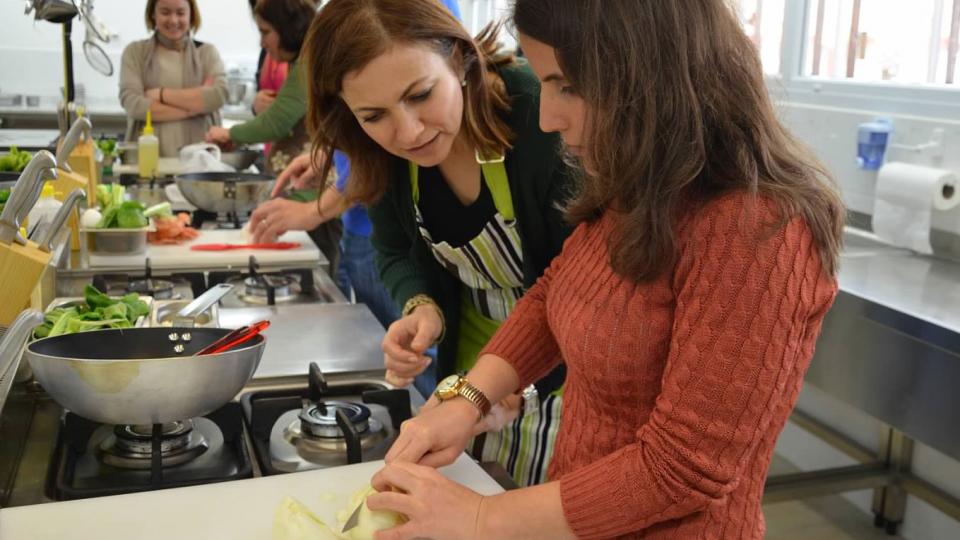 A participant receives instruction chopping ingredients during a cooking course for the visually impaired in Izmir, Turkey. Photo Credit: Figen Ertas
A woman with a black apron is stirring tomatoes into a pan of vegetables in Bursa, Turkey. Visually impaired, she is being helped by an assistant, who is a spouse of a Turkish Rotary member.
Elsewhere in the kitchen, other cooks and Rotary spouses are preparing meatballs, slicing and peeling eggplants, and measuring out cookie dough. At a table in an adjacent dining area, a man is reading a recipe from a Braille cookbook.
The cookbook, "Good Smells From the Kitchen," has enabled many members of the Library of Turkey for the Visually Disabled to enter the kitchen with new confidence.
"For the first time I made lentil meatballs," says Sϋheyla Karayalçin, a book recipient. "I had never done it before. I let others taste it, it was nice. I am very excited to have a special recipe book for us [people with visual impairments]."
The activity is part of a project by Rotary members in western Turkey, who have partnered with the library to produce the country's first cookbook for the visually impaired, printed in Braille and recorded on audio CD. Several dozen copies of the book have rolled off the library's presses and have been recorded in the library's studio, and given free to library members. Additional copies are printed as Rotary members secure funding and line up new sponsors.
|
Turkish project creates cookbook for the visually impaired | 2014-05-17 00:00:00Z | 0 | ||||||||||||||||||||||||||||||||||||||||||||||||||||||||||
Peace Corps and Rotary kickoff historic collaboration
Posted on May 08, 2014
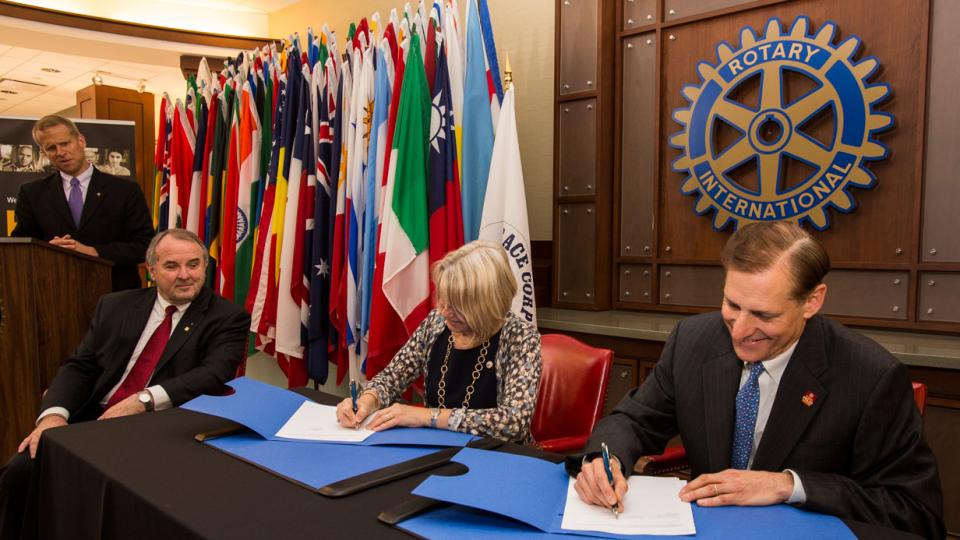 In an effort to promote global development and volunteer service, Rotary and Peace Corps have agreed to participate in a one-year pilot program in the Philippines, Thailand, and Togo.
Under the agreement, Rotary clubs and Peace Corps volunteers are encouraged to share their resources and knowledge to boost the impact of development projects in these three countries.
Opportunities for collaboration include supporting community projects, training, networking, and community education. Through the Peace Corps Partnership Program, Rotary clubs can continue to provide small grants to support volunteers and their communities.
|
Peace Corps and Rotary kickoff historic collaboration | Craig Clarke | 2014-05-09 00:00:00Z | 0 | |||||||||||||||||||||||||||||||||||||||||||||||||||||||||
Video update from Disaster Aid International
Alan Lomax forwarded this seven minute video update on the assistance provided by Disaster Aid International to the Philippines after the recent earthquake & typhoon disasters:
|
Video update from Disaster Aid International | craig | 2014-05-06 00:00:00Z | 0 | |||||||||||||||||||||||||||||||||||||||||||||||||||||||||
District Conference at Whistler
Posted by Craig Clarke
 About 350 delegates participated in the District Conference in Whistler last weekend. The conference was held simultaneously with that of D5050. Past RI President Kalyan Banerjee attended on behalf of RI President Ron Burton; he thanked us for our support of the Rotary Foundation.
I learned that our district is the largest in the Americas, the largest international district and 7th largest in the world. The Honourable Steven Point and Robert Blacker described the Write to Read literacy project which brings libraries to isolated communities in BC. Steven Solomon & Jean Irwin spoke about the benefits of the ambassadorial scholarship program.
One of the functions of the conference was to recognize clubs for their accomplishments during the year. Our club won an award for increasing membership - well done!
On Sunday morning, the final breakfast plenary was held with both districts combined. It turned out that both Pete Taylor & DG Denis Boyd of 5050 worked in radio early in their careers.
Norm Watts introduced the 2015 Conference which will be held in Nanaimo from June 19-21 next year. Norm was asked by incoming DG Michael Procter to chair next year's conference, returning the favour for Michael who chaired the conference when Norm was DG.
|
District Conference at Whistler | Craig Clarke | 2014-05-05 00:00:00Z | 0 | |||||||||||||||||||||||||||||||||||||||||||||||||||||||||
Protect our planet through RotaryFrom providing clean water to planting trees, Rotary supports the environment
On Earth Day 22 April, leaders around the globe mobilized people to create a sustainable, healthy environment by greening communities. The Environmental Fellowship of Rotarians and the Water and Sanitation Rotarian Action Group are two groups committed to helping our environment. Learn more about Rotary's work, and find out how you can help.
|
Protect our planet through Rotary | 2014-04-25 00:00:00Z | 0 | ||||||||||||||||||||||||||||||||||||||||||||||||||||||||||
World's Biggest Commercial FinaleMore than 90,000 people from 170 countries have added their photo to Rotary’s World’s Biggest Commercial, a digital campaign to support the fight to end polio. Celebrities and others across the globe uploaded a photo of themselves doing the “this close” pose to the campaign website. Each photo was added to an ever-expanding online web-based video with the likes of notable figures including Archbishop Desmond Tutu, Bill Gates, Archie Panjabi, Jackie Chan and others. The resulting video has grown to over three hours long!
Click here to go to story on RI website.
|
World's Biggest Commercial Finale | 2014-04-25 00:00:00Z | 0 | ||||||||||||||||||||||||||||||||||||||||||||||||||||||||||
ROTARY INVESTIGATES IMPACT OF HEARTBLEED BUG
Rotary's IT staff is looking into the impact of the Heartbleed bug on our website. We are proactively working with our partners to identify and to resolve any vulnerabilities within Rotary.org, and will share those findings with members as soon as we have completed our investigation. Check back often to receive the latest information and/or next steps. The Heartbleed bug, a major Internet security vulnerability, was discovered Monday, 7 April. To learn more about the bug and what it means to you, read Heartbleed Bug: What Can You Do? on the Krebs on Security blog.
The following websites have confirmed that they were potentially vulnerable to the bug. If you have an account on any of these sites, we suggest that you change your password.
• Amazon
• Dropbox • Flickr • Google (all Google services, including Gmail and Google Drive) • Newton • Qualtrics • SurveyMonkey • Vimeo • Wordpress • Yahoo • YouTube If you have any questions or concerns about the Heartbleed bug, please reach out to Rotary's Contact Center. |
ROTARY INVESTIGATES IMPACT OF HEARTBLEED BUG | 2014-04-18 00:00:00Z | 0 | ||||||||||||||||||||||||||||||||||||||||||||||||||||||||||
OECD Announcement on Global Transparency of Financial Information
Posted by craig clarke on Apr 11, 2014
Offshore tax evasion remains a serious problem for countries and jurisdictions worldwide, with vast amounts of funds deposited abroad and sheltered from taxation when taxpayers fail to comply with obligations in their home countries.
Responding to a mandate from G20 leaders to reinforce action against tax avoidance and evasion and inject greater trust and fairness into the international tax system, the OECD has unveiled today a new single global standard for the automatic exchange of information between tax authorities worldwide.
|
OECD Announcement on Global Transparency of Financial Information | craig clarke | 2014-04-12 00:00:00Z | 0 | |||||||||||||||||||||||||||||||||||||||||||||||||||||||||
Successful Reconciliation & Dialogue Workshop held March 27, 28
Posted by Craig Clarke on Mar 27, 2014
by Bill Robinson, one of the event organizers.
Thanks to the ten Rotarians and one spouse who volunteered to help set up and take down tables and chairs for the Reconciliation and Dialogue Workshop. The work was light and easy but the event itself was “heavy” in a most positive way.
Most of us feel that we are aware of the inter-generational impact Residential Schools have had but when you get to hear stories from Residential School survivors, especially the one who talk about the impact the sexual abuse he experience has had not only on himself but his children and grandchildren, we understand the impact at a much deeper level.
Every one of our volunteers talked about the impact the experience had on them personally. Agreeing to take on this volunteer assignment was definitely a win/win opportunity for us. Several of us are hoping that we can arrange to have one of the survivors speak to our club in the near future.
Click here to go to article in Nanaimo Daily News about the student session on Thursday. |
Successful Reconciliation & Dialogue Workshop held March 27, 28 | Craig Clarke | 2014-03-28 00:00:00Z | 0 | |||||||||||||||||||||||||||||||||||||||||||||||||||||||||
Paul Harris Presentations March 25 2014
Posted by Craig Clarke on Mar 24, 2014
Bill, Bob M., Bob L. & Joan Ethier with Paul Harris awards presented by Colin. Photo by Don Dempson.
Doug & Don with speaker Bill Tuele.
|
Paul Harris Presentations March 25 2014 | Craig Clarke | 2014-03-25 00:00:00Z | 0 | |||||||||||||||||||||||||||||||||||||||||||||||||||||||||
Rotaractors organize successful conferences in India and Uganda
Posted by Craig Clarke on Mar 22, 2014
By Daniela Garcia Rotary News 19-Mar-2014 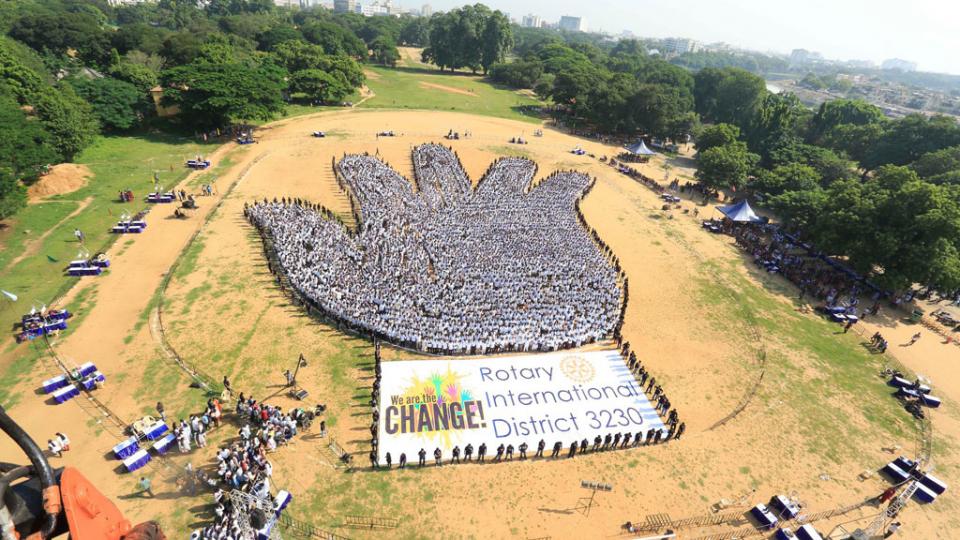 Rotaractors at the Presidential New Generations Conference in Chennai, India, organized the world’s biggest high-five. A total of 7,084 people participated in the challenge, which was recognized by Guinness World Records. Ramkumar Raju of India and Winfred Karungi of Uganda have never met, but they have a great deal in common. They're both Rotaract club members and district Rotaract representatives. They're also promising young community leaders who helped plan successful Presidential New Generations Conferences in their countries. Rotary International President Ron Burton hosted the conferences, which were held in Chennai in October and Kampala in November. (A third conference took place in Rosario, Argentina, in March.) The goal of these international conferences was to bring together young community leaders and Rotary members to share ideas for attracting new members and engaging young people.
Raju, a member of the Madras Central Rotaract club, and Karungi, a member of the Kampala City club, were asked by Rotarians in their areas to be part of the conference planning committee. Both describe the experience as a great learning opportunity. "I learned decision making and communication skills, how to be a team player and handle crucial situations, and last but not least, I learned the power of Rotary," Raju says.
Karungi says she also improved her relationships with Rotary members in her country and learned that "with proper planning, anything can be executed, even a task as great as organizing a conference, a service project, or a dinner for President Burton."
Improving their communities
Each conference included a community service component. Rotaractors in India chose projects that focused on education and disease prevention. They collected thousands of donated books, which will be used to establish libraries in rural areas. They also collected more than 300 units of blood, held a rubella awareness camp hosted by a panel of local doctors, and offered free vaccinations.
In Uganda, Rotaract members also focused their efforts on fighting preventable diseases and promoting child and maternal health. Working alongside community leaders, they organized a hand washing campaign and classes on soap making, distributed mosquito nets to children and expectant mothers, held blood drives, and offered cervical cancer screenings.
"We formed committees to identify a suitable Rotaract community project that President Burton could visit and worked to get at least 1,000 young people to attend the conference. We ended up with almost 3,000 attendees," Karungi says.
Guinness World Record
Rotaractors in India took time out from their humanitarian projects to take on another global challenge, breaking a Guinness World Record. Raju and his fellow Rotaractors organized the "world's biggest high-five." A total of 7,084 people participated in the challenge, which was recognized by Guinness World Records in the category Largest Human Image of a Hand. He says the hand served as a symbol of their theme for the year: Let's Be the Change.
"We have always had this dream of breaking a Guinness World Record but didn't have the funding," Raju says. "I.S.A.K. Nazar (District 3230 governor-elect from Chennai) proposed that we attempt it. With the help of Rotary, all the guidelines were met and we received the certification that we are officially amazing."
Although they didn't break any world records in Kampala, Karungi says that talking with President Burton was the highlight of the conference for her. "I was able to hear his views about Rotary and how young people can make an impact in their communities," she says.
In a speech to conference attendees, Karungi shared her transformation into a young professional eager to serve her local community through Rotaract. "Visit a Rotary club today, and stand a chance to be transformed in ways that you could never imagine your life could be."
Click here to read Raju's blog post from the conference
|
Rotaractors organize successful conferences in India and Uganda | Craig Clarke | 2014-03-23 00:00:00Z | 0 | |||||||||||||||||||||||||||||||||||||||||||||||||||||||||
Adaptation to climate change in Tanzania
Posted by Craig Clarke on Mar 14, 2014
By Arnold Grahl Rotary News 7-Mar-2014
Ohio Rotary member Amy Kaspar and science teacher Bartholomew Meena embrace during Kaspar’s visit to Tanzania in 2009. The meeting sparked a service project that is educating villagers near Mount Kilimanjaro how to adapt to climate change.
Littered with old National Geographic magazines, a model volcano, and a solar cooker, Bartholomew Meena’s crammed science room in Machame, Tanzania, captured Amy Kaspar’s heart at first glance. “He created all the science projects we had from our childhood in one room,” recalls Kaspar, a former Rotary Scholar who’s now a member of the Rotary Club of Capital Square in Ohio. Within those projects, she saw Meena’s passion for his environment and a wealth of unexplored opportunities, particularly the chance to collaborate and study the environmental impact of Mount Kilimanjaro’s melting glaciers. “I had attended several lectures recently at Ohio State University's Byrd Polar Research Center,” Kaspar says. “The thought hit me, shouldn’t the people who live around the mountain know about what is happening and prepare for the changes?” Kaspar spent the next four years connecting Meena with the center, which has been doing cutting edge climate change research. Kaspar’s desire to help Machame matched the center’s goal of providing more research to local communities where it could do more good. And by utilizing Rotary’s network, she was able to bring Rotary members in Ohio and Machame into the collaboration. Together, they would teach communities at the base of Mount Kilimanjaro how to adapt to the changing temperatures and precipitation patterns. “Tanzania is an area where we haven’t been able to give back as much,” says Jason Cervenac, educational outreach coordinator for the Byrd center, “and an educational initiative seemed to be an obvious approach.” The center is also providing Meena with material to write a new curriculum in Swahili, which Rotary members will help publish, distribute, and promote. Additional plans are in the works to use posters to educate the community, hold seminars and community workshops, and fund study exchanges between Tanzania and Ohio. None of this would have been possible without the Rotary infrastructure, Kaspar says. “It’s all about the personal relationships you establish,” she adds. “Rotary has changed who I am, and now I want to do what I can to help change the lives of others for the better.” Kaspar’s path to Rotary began in 1993,when she studied architecture and international development at Oxford Brooks University in Oxford, England, through a Rotary Foundation Ambassadorial Scholarship. There she met her host family, Jane and Peter Jones of the Rotary Club of Haddenham and District. “Amy arrived in a wheelchair with a bicycle. Need I say more?” says Jane, who with her husband has hosted more than 20 scholars. “We found it difficult to control her exuberance and enthusiasm and keep her plans grounded, but that isn’t a criticism.” The Jones family invited Kaspar to attend club activities and take part in service projects. A decade later, they put her in touch with Rotary members in Tanzania, where she would go on to work with the relatively new Rotary Club of Machame. “I’m here today because my host dad in England would never let me off the hook and always made sure I got involved in stuff,” she says. “Service is now a part of who I am. It’s a part of my genetic makeup.” |
Adaptation to climate change in Tanzania | Craig Clarke | 2014-03-15 00:00:00Z | 0 | |||||||||||||||||||||||||||||||||||||||||||||||||||||||||
National Geographic produced 4 different plots of global carbon footprints
Posted by Craig Clarke on Mar 08, 2014
Global carbon footprints are shown as current emissions, per capita emissions, emissions intensity per unit of GDP, and cumulative emissions. Click here to see the maps. We map the starkly different views of the climate crisis that have led to stalemate in our newly revised interactive, Four Ways to Look at Global Carbon Footrpints. (See related “Quiz: What You Don’t Know About Climate Change Science.”) Our map zeroes in on just a small number of nations–14–but they happen to be responsible for 80 percent of the world’s carbon emissions. The numbers come from the World Resources Institute’s excellent climate data navigator, CAIT 2.0, one of the few data sources that enables apples-to-apples comparisons of emissions from around the world. Each of the four viewpoints in our map is accurate, as far as it goes. But each alone is inadequate. Like the legendary blind men surveying the elephant, nations that contemplate the massive global warming problem from only one vantage point will end up groping at a portion of the truth and griping at each other, missing the whole picture. (See related, “Q&A With Philippines Climate Envoy Who’s Fasting After Super Typhoon Haiyan.”) For the United States and most other industrialized nations, the operative view is “Current Emissions,” and the alarming reality that China’s carbon output has grown more than 40 percent, and India’s, by 25 percent, since our last version of the map, based on 2005 data. (See related “Pictures: A Rare Look Inside China’s Energy Machine.”) Any treaty that is designed like the Kyoto accord, with binding carbon emissions cuts only for the richest countries, will fail to stem the rising threat of Asia’s rapidly mounting emissions. The U.S. and Europe often point to the climate progress they’ve made by focusing on what we call “Intensity,” on our map, their relatively low greenhouse gas emissions per unit of economic output. Indeed, carbon intensity has fallen dramatically in wealthy nations over the past few decades. But no nation is an island, and these efficiency improvements are in part because energy-intensive manufacturing has moved to the developing world, often to make goods that are being shipped, bought and consumed in the developed world. And even if all nations were reducing their intensity, it would matter little if absolute emissions are rising at their current rate. Developing nations frequently rebuff calls that they face binding emissions cuts, pointing to their low “Per Capita” emissions, compared to the giant footprint of the United States and other wealthy countries. Several years ago, India in particular made relatively low per capita emissions the cornerstone of its climate policy, but the trends here too are alarming. India’s per capita carbon emissions are up 12 percent since our previous map, China’s are up 40 percent and now nearly on par with those of Europe. The atmosphere will be overwhelmed if per capita emissions continue to grow at this rate in nations with large and growing populations, and yet these countries still face the very real and necessary challenge of extending electricity to millions of people living in poverty and without access to the grid. (See “Related: Five Surprising Facts About Energy Poverty.”) But most of the debate in Warsaw has centered around the title on our map called “Cumulative Emissions.” When measured since the start of the Industrial Revolution, the greenhouse gases released to the atmosphere by the United States and Europe far surpass those of any single developing nation. If, as the scientists now say, the world has a limited “carbon budget” and more than half of it already has been spent, developing nations point out that the United States and Europe have burned up more than their fair shares of fossil fuel on their paths to economic progress. Cumulative emissions are about more than emissions, they are now about money. Wealthy nations have long promised to establish a fund to bolster the defenses of those at the greatest risk of sea level rise and extreme weather. Developing countries now want to see that funding plus an additional mechanism for the nations with the largest cumulative emissions to compensate the poorer, vulnerable nations for “loss and damage” due to climate events. They could point to one example playing out in real time, the tragedy unfolding in the Philippines after Super Typhoon Haiyan. But cumulative emissions, too, are changing. Just prior to the Warsaw talks, the United Nations Environmental Program released its “emissions gap” report, showing how nations’ current commitments on climate change fall well short of what’s needed to curb the risk of catastrophic global warming. UNEP noted that until about the year 2000, it was clear that the wealthy nations’ historic emissions far outweighed those of the poor countries. Since then, emissions have grown so rapidly in the developing world since then that the balance has changed significantly. Now, developed nations and developing nations’ share roughly 50-50 responsibility for the atmosphere’s cumulative carbon load since 1850. Recent research on cumulative emissions cited by the UN, by the Joint Research Center of the European Commission and PBL Netherlands Environmental Assessment Agency, shows how tricky a single viewpoint of emissions can be. Some have suggested for example, discounting some past emissions to account for technological progress. The authors point out that the United Kingdom, for instance, had a long history of high emissions due to the use of inefficient steam engines. But nations developing today don’t need to repeat that history; they can employ much more advanced technologies and emit far less carbon for the same level of economic output. Another way to look at cumulative emissions, the authors point out, is to grant each nation a “deduction,” so to speak, for “basic needs.” In this approach, nations would not be held responsible for the carbon emissions necessary to meet the basic needs of their people. Discounting past emissions to account for technological progress would tend to lessen responsibility for wealthy nations, while deductions for “basic needs” would lessen the pressure on poorer and developing nations. But the recent research on cumulative emissions underscores the point of our interactive map, the importance of looking at the world’s climate crisis globally and from many different points of view, and not just from the poor frame of reference circumscribed by any one nation’s borders. |
National Geographic produced 4 different plots of global carbon footprints | Craig Clarke | 2014-03-09 00:00:00Z | 0 | |||||||||||||||||||||||||||||||||||||||||||||||||||||||||
Plan Canada Celebrates International Women's Day
Posted by Craig Clarke on Mar 06, 2014
CANADA, March 6, 2013 Recognizing Canadian women who are working to empower the next generation of women and girls CANADA, March 6, 2013 /CNW/ - Friday March 8 is International Women's Day, a day to recognize and celebrate women around the world. This year, Plan Canada is applauding the achievements of Canadian women who give their time and expertise to help inspire women in Canada and globally through philanthropic initiatives. International Women's Day is an opportunity to focus on the importance of the world's girls and women. Canadian women recognize that many girls and women around the world face significant challenges and barriers, such as barriers to education or employment, simply because of their gender. Supporting girls and women around the world is key to transforming lives. Plan Canada recognizes that by investing in girls we can support a generation of empowered women, mothers, workers and leaders. These women will improve the lives of everyone around them and in turn lift families, communities and entire nations out of poverty. "We need to continue to address barriers and discrimination that women face," says Rosemary McCarney, President and CEO of Plan Canada. "There are many Canadian women who understand this need and give selflessly to help spread the message about the power of girls and women, and help to make real change. On this International Women's Day we celebrate these Canadian women." Click here to read full story. |
Plan Canada Celebrates International Women's Day | Craig Clarke | 2014-03-07 00:00:00Z | 0 | |||||||||||||||||||||||||||||||||||||||||||||||||||||||||
World Health Organization guidelines on sugar consumption
Posted by Craig Clarke on Mar 04, 2014
5 March 2014 | GENEVA - WHO is launching a public consultation on its draft guideline on sugars intake. When finalized, the guideline will provide countries with recommendations on limiting the consumption of sugars to reduce public health problems like obesity and dental caries (commonly referred to as tooth decay). Comments on the draft guideline will be accepted via the WHO web site from 5 through 31 March 2014. Anyone who wishes to comment must submit a declaration of interests. An expert peer-review process will happen over the same period. Once the peer-review and public consultation are completed, all comments will be reviewed, the draft guidelines will be revised if necessary and cleared by WHO’s Guidelines Review Committee before being finalized. New draft guideline proposalsWHO’s current recommendation, from 2002, is that sugars should make up less than 10% of total energy intake per day. The new draft guideline also proposes that sugars should be less than 10% of total energy intake per day. It further suggests that a reduction to below 5% of total energy intake per day would have additional benefits. Five per cent of total energy intake is equivalent to around 25 grams (around 6 teaspoons) of sugar per day for an adult of normal Body Mass Index (BMI). The suggested limits on intake of sugars in the draft guideline apply to all monosaccharides (such as glucose, fructose) and disaccharides (such as sucrose or table sugar) that are added to food by the manufacturer, the cook or the consumer, as well as sugars that are naturally present in honey, syrups, fruit juices and fruit concentrates. Much of the sugars consumed today are “hidden” in processed foods that are not usually seen as sweets. For example, 1 tablespoon of ketchup contains around 4 grams (around 1 teaspoon) of sugars. A single can of sugar-sweetened soda contains up to 40 grams (around 10 teaspoons) of sugar. The draft guideline was formulated based on analyses of all published scientific studies on the consumption of sugars and how that relates to excess weight gain and tooth decay in adults and children. Click here to go to WHO webpage. |
World Health Organization guidelines on sugar consumption | Craig Clarke | 2014-03-05 00:00:00Z | 0 | |||||||||||||||||||||||||||||||||||||||||||||||||||||||||
Polio: The eradication endgame
Posted by Craig Clarke on Mar 04, 2014
by Cassandra Willyard in the Journal Nature
Photo by Agron Dragaj Female vaccinators — often the only ones allowed to speak to mothers or enter a child's home — wait outside a house in Afghanistan. Researchers are developing a strategy that could put an end to polio forever. In 1988, scientists around the world launched a massive effort to eliminate polio, a disease that can cripple and kill. The Global Polio Eradication Initiative (GPEI) has since made great progress: the number of polio cases has fallen by more than 99%, from an estimated 350,000 cases in 1988 to around 400 in 2013. And in January, India, once a stronghold for polio, celebrated an important milestone: three years with no new cases. Yet poliovirus stubbornly persists in Nigeria, Afghanistan and Pakistan, where violence, politics and mistrust have hampered eradication efforts. Indeed, in early 2014, Kabul saw its first case of polio since 2001. In 2012, the GPEI issued a dire warning: “Polio eradication is at a tipping point. If immunity is not raised in the three remaining countries to levels necessary to stop poliovirus transmission, polio eradication will fail.” Click here to go to full article on Nature website
|
Polio: The eradication endgame | Craig Clarke | 2014-03-05 00:00:00Z | 0 | |||||||||||||||||||||||||||||||||||||||||||||||||||||||||
Centers for Disease Control and Prevention says Antibiotic Use in US Hospitals could be improved
Posted by Craig Clarke on Mar 03, 2014
Antibiotics offer tremendous benefit to patients with infectious diseases and are commonly administered to patients cared for in U.S. hospitals. However, studies have demonstrated that treatment indication, choice of agent, or duration of therapy can be incorrect in up to 50% of the instances in which antibiotics are prescribed. One study reported that 30% of antibiotics received by hospitalized adult patients, outside of critical care, were unnecessary; antibiotics often were used for longer than recommended durations or for treatment of colonizing or contaminating microorganisms. Incorrect prescribing of antibiotics exposes individual patients to potential complications of antibiotic therapy, without any therapeutic benefit. One such complication is infection with Clostridium difficile, an anaerobic, spore-forming bacillus that causes pseudomembranous colitis, manifesting as diarrhea that often recurs and can progress to sepsis and death; CDC has estimated that there are about 250,000 C. difficile infections in hospitalized patients each year. Other complications related to unnecessary use of antibiotics include infection with antibiotic-resistant bacteria and complications from adverse events. Antibiotic prescribing for inpatients is common, and there is ample opportunity to improve use and patient safety by reducing incorrect antibiotic prescribing.
Click here to go to full article on CDC website |
Centers for Disease Control and Prevention says Antibiotic Use in US Hospitals could be improved | Craig Clarke | 2014-03-04 00:00:00Z | 0 | |||||||||||||||||||||||||||||||||||||||||||||||||||||||||
Rotary Celebration Feb 20 - Paul Geneau story in Nanaimo Daily News
Posted by Craig Clarke on Feb 20, 2014
Photo by Ian Williams, Rotary Club of Nanaimo. On Thursday evening, members of the five Nanaimo area Rotary clubs, together with guests, gathered to celebrate the 109th anniversary of the founding of Rotary. It was 1905, in Chicago, that a young lawyer named Paul Harris, recently moved to the bustling city, brought three friends together to form the first Rotary Club. His goal was to create a circle of friendship, with those who shared his high ethical standards. They quickly realized that a small group of talented, motivated people can accomplish amazing things, and Rotary's commitment to service was born. In a few short years, Rotary Clubs sprang up across the United States and into Canada, and within 16 years had clubs on six continents. Rotary is a worldwide organization of business and professional people that provides humanitarian service, encourages high ethical standards in all vocations, and helps build goodwill and peace in the world. Approximately 1.2 million Rotarians belong to more than 31,000 Rotary clubs located in 166 countries. The Rotary Club of Nanaimo was formed in 1920, and over the years included many of the city's "movers and shakers" in its membership. It took 52 years before the next club, Nanaimo North was formed, and only 16 years later, in a burst of expansion, three more clubs arose: Lantzville (1988), Nanaimo Daybreak (1995), and Nanaimo Oceanside (1995).
Click here to read full story. |
Rotary Celebration Feb 20 - Paul Geneau story in Nanaimo Daily News | Craig Clarke | 2014-02-21 00:00:00Z | 0 | |||||||||||||||||||||||||||||||||||||||||||||||||||||||||
The first four Rotarians
Posted by Craig Clarke on Feb 15, 2014
On 23 February 1905, Paul P. Harris, Gustavus Loehr, Silvester Schiele, and Hiram E. Shorey gathered in Loehr’s office for what would become known as the first Rotary club meeting. Harris’s desire for camaraderie among business associates brought together these four men and eventually led to an international organization of service and fellowship. Read about each of the first four Rotarians below, and about Harry L. Ruggles, who is often called the "fifth Rotarian." Rotary’s founder, Harris, was born in Wisconsin, USA, on 19 April 1868. He was raised by his paternal grandparents in Vermont and attended the University of Vermont, Princeton, and the University of Iowa. He was Rotary president from 1910 to 1912 and a member of the Rotary Club of Chicago until his death on 27 January 1947. Learn more about the founder. Loehr, a mining engineer, was born on 18 October 1864 in Carlinville, Illinois. He was a Rotarian for only a few years, never holding office at the club or international level. But that first Rotary meeting was held in his office, Room 711 of the Unity Building in downtown Chicago. He died in Chicago on 23 May 1918. A Rotarian for only a few years, Shorey served as recording secretary during the club’s first year. He was born in Maine in August 1862 and died in March 1944. Schiele, a coal dealer, served as the Chicago club’s first president in 1905 and Rotary International’s third treasurer in 1945. Born in Terre Haute, Indiana, in June 1870, Schiele attended Terre Haute Business College and served in the U.S. Army during the Spanish-American War. He was president of the Schiele Coal Company from 1902 until his retirement in 1939. He and Harris became lifelong friends and lived near each other on the South Side of Chicago. Schiele died on 17 December 1945 and is buried near Harris at Mount Hope Cemetery. Originally from Michigan, Ruggles was a graduate of Northwestern University in Evanston, Illinois, and joined Rotary at its second meeting. He was treasurer of the Chicago club during its first year, president from 1908 to 1910, and a Rotary director from 1912 to 1913. He is known for having introduced singing to Rotary club meetings. His printing company, H.L. Ruggles & Co., printed the first issue of The National Rotarian and the first Rotary songbook. He died on 23 October 1959, an honorary member of seven clubs in addition to his home club, the Rotary Club of Chicago. Learn more about the history of Rotary |
The first four Rotarians | Craig Clarke | 2014-02-16 00:00:00Z | 0 | |||||||||||||||||||||||||||||||||||||||||||||||||||||||||
U.S. commits $205 million to polio eradication
Posted by Craig Clarke on Feb 05, 2014
By Dan Nixon Rotary News 31-Jan-2014 A child is vaccinated against polio in Côte d’lvoire, which has been free of the disease since 2011. President Barack Obama signed an omnibus appropriations bill in January that provides $205 million to support polio eradication in 2014, through the U.S. Centers for Disease Control and Prevention and U. S. Agency for International Development. The largest government donor to polio eradication, the U.S. has contributed more than $2.3 billion since the mid-1980s, when 125 countries were polio endemic and the disease afflicted 350,000 people annually. Today, only Pakistan, Afghanistan, and Nigeria are endemic, and in 2013, the combined incidence of polio in those countries fell to a record-low 157 cases. Last month , India reached a three-year milestone without polio, paving the way for the entire Southeast Asia region to be certified free of the disease. "Eradicating polio will leave a lasting legacy of health care infrastructure, experience, and expertise that is already being used to benefit a broad range of global public health efforts," says James Lacy, chair of Rotary's Polio Eradication Advocacy Task Force for the United States and past president of Rotary International. The task force leads Rotary's efforts to inform the U.S. government and other funding sources of the urgency and benefits of supporting the Global Polio Eradication Initiative (GPEI). One of Rotary's chief responsibilities in the GPEI is advocacy. In addition to contributing more than $1.2 billion to the initiative, Rotary has helped secure over $9 billion from donor governments since the GPEI was launched in 1988.
|
U.S. commits $205 million to polio eradication | Craig Clarke | 2014-02-06 00:00:00Z | 0 | |||||||||||||||||||||||||||||||||||||||||||||||||||||||||
Atmospheric rivers and our water supply
Posted by Craig Clarke on Jan 31, 2014
Atmospheric Rivers (AR) are relatively narrow regions in the atmosphere that are responsible for most of the horizontal transport of water vapor outside of the tropics. While ARs come in many shapes and sizes, those that contain the largest amounts of water vapor, the strongest winds, and stall over watersheds vulnerable to flooding, can create extreme rainfall and floods. These events can disrupt travel, induce mud slides, and cause catastrophic damage to life and property. However, not all ARs cause damage – most are weak, and simply provide beneficial rain or snow that is crucial to water supply
Click here to go to article on NOAA website |
Atmospheric rivers and our water supply | Craig Clarke | 2014-02-01 00:00:00Z | 0 | |||||||||||||||||||||||||||||||||||||||||||||||||||||||||
Michael Bloomberg appointed Special Envoy for Cities & Climate Change
Posted by Craig Clarke on Jan 31, 2014
WASHINGTON, January 31, 2014 - The World Bank Group President Jim Yong Kim issued the following statement today: “The appointment of Michael R. Bloomberg as a Special Envoy for Cities and Climate Change to the United Nations should be applauded from Beijing to Rio to Mumbai. His selection is a huge boost for global leadership efforts to combat climate change. “Unless the world takes bold action now, a disastrously warming planet threatens to put prosperity out of reach of millions and roll back decades of development. Those least able to adapt - the poor and vulnerable - will be hit hardest. “The World Bank Group is focused on five key areas that can have the biggest impact in tackling climate change: moving forward on climate smart agriculture; accelerating energy efficiency and investment in renewable energy; supporting work on ending fossil fuel subsidies; developing carbon pricing to get prices right for emissions; and building low-carbon, climate resilient cities.
Click here to go to full statement on the World Bank page. |
Michael Bloomberg appointed Special Envoy for Cities & Climate Change | Craig Clarke | 2014-02-01 00:00:00Z | 0 | |||||||||||||||||||||||||||||||||||||||||||||||||||||||||
Gates Fdn 2014 Annual Letter - 3 Myths that Block Progress for the Poor
Posted by Craig Clarke on Jan 31, 2014
By almost any measure, the world is better than it has ever been. People are living longer, healthier lives. Many nations that were aid recipients are now self-sufficient. You might think that such striking progress would be widely celebrated, but in fact, Melinda and I are struck by how many people think the world is getting worse. The belief that the world can’t solve extreme poverty and disease isn’t just mistaken. It is harmful. That’s why in this year’s letter we take apart some of the myths that slow down the work. The next time you hear these myths, we hope you will do the same.
|
Gates Fdn 2014 Annual Letter - 3 Myths that Block Progress for the Poor | Craig Clarke | 2014-02-01 00:00:00Z | 0 | |||||||||||||||||||||||||||||||||||||||||||||||||||||||||
News from Etta Projects
Posted by Craig Clarke on Jan 24, 2014
Happy Birthday Etta!
Today is Etta’s Birthday and our goal is to raise $2800 to build 5 1/2 (secretly hoping for 6) Ecological Composting Latrines. She would love this idea, and we think it is a great way to remember how she inspires and motivates us to do incredible things in the world, NOT tomorrow or someday but RIGHT NOW TODAY!! We have been at it all day on line with FACEBOOK and some of you have given!! Thank you very much!!! If you haven't and you want to help us get there consider $28 to bring a life changing sanitation facility to a rural Bolivian family. We are up to $1749. right now!! Whew Hew!!
Hope you have hugged your toilet today because if you didn't have one, life would look and smell a lot different. We have posted some videos on line for those of you who do not have Facebook. Link here https://www.youtube.com/playlist?list=PLJJ4Cwh1EvKwOz0ej4uQU1YWve6Yf285g or see them on Facebook https://www.facebook.com/EttaProjects! Please donate and share with your friends and family, it is not every day that you celebrate a life with a toilet, at least in this country.
Etta Projects
|
News from Etta Projects | Craig Clarke | 2014-01-25 00:00:00Z | 0 | |||||||||||||||||||||||||||||||||||||||||||||||||||||||||
NASA Finds 2013 Sustained Long-Term Climate Warming Trend
Posted by Craig Clarke on Jan 20, 2014
NASA scientists say 2013 tied with 2009 and 2006 for the seventh warmest year since 1880, continuing a long-term trend of rising global temperatures. With the exception of 1998, the 10 warmest years in the 134-year record all have occurred since 2000, with 2010 and 2005 ranking as the warmest years on record. NASA's Goddard Institute for Space Studies (GISS) in New York, which analyzes global surface temperatures on an ongoing basis, released an updated report Tuesday on temperatures around the globe in 2013. The comparison shows how Earth continues to experience temperatures warmer than those measured several decades ago. The average temperature in 2013 was 58.3 degrees Fahrenheit (14.6 Celsius), which is 1.1 F (0.6 C) warmer than the mid-20th century baseline. The average global temperature has risen about 1.4 degrees F (0.8 C) since 1880, according to the new analysis. While the world experienced relatively warm temperatures in 2013, the continental United States experienced the 42nd warmest year on record, according to GISS analysis. For some other countries, such as Australia, 2013 was the hottest year on record.
Click here to go to full press release on NASA website. |
NASA Finds 2013 Sustained Long-Term Climate Warming Trend | Craig Clarke | 2014-01-21 00:00:00Z | 0 | |||||||||||||||||||||||||||||||||||||||||||||||||||||||||
India celebrates three years without polio
Posted by Craig Clarke on Jan 16, 2014
Hyderabad Public School
Throughout India and around the world, Rotary clubs are celebrating a major milestone: India has gone three years without a new case of polio. The last reported case was a two-year-old girl in West Bengal on 13 January 2011. To mark this historic triumph -- reached after a decades-long battle against polio -- Rotary clubs illuminated landmarks and iconic structures throughout the country with four simple but powerful words, "India is polio free." The three-year achievement sets the stage for polio-free certification of the entire Southeast Asia region by the World Health Organization. The Indian government also plans to convene a polio summit in February to commemorate this victory in the global effort to eradicate polio. The challenge now is to replicate India's success in neighboring Pakistan, one of three remaining polio-endemic countries, along with Afghanistan and Nigeria. Rotary leaders in India are working with their Pakistani counterparts to share best practices and lessons learned during India's successful anti-polio campaign. Rotary was particularly effective in obtaining the support of influential religious leaders in India's Islamic communities. Pakistani Rotary leaders are playing a similar role to counter rumors and misinformation about polio vaccinations that keep some Muslim parents from immunizing their children. Meanwhile, National Immunization Days continue in both countries. During these large-scale drives, Rotary volunteers join health workers to vaccinate every child under age five against polio. "We must now stop polio in Pakistan to both protect Pakistani children and to safeguard our success in India and other countries where we have beaten this terrible disease," says India PolioPlus Committee Chair Deepak Kapur. "Until polio is finally eradicated globally, all unvaccinated children will remain at risk of infection and paralysis, no matter where they live."
|
India celebrates three years without polio | Craig Clarke | 2014-01-17 00:00:00Z | 0 | |||||||||||||||||||||||||||||||||||||||||||||||||||||||||
Work of our partner club in Sunyani Ghana is featured in Rotary annual report
Posted by Craig Clarke on Jan 09, 2014
Samuel Obour, Registrar of Sunyani Polytechnic, past president of RC Sunyani Central. Providing clean water and preventing disease drive Samuel Obour’s quest to make life better for people in Ghana. Assistant governor of District 9102 and a member of the Rotary Club of Sunyani Central, Obour and his club recently worked with Canadian Rotarians on a global grant project to install latrines at a primary school in Sunyani and a washing station and toilets at a busy rural market. Efforts like these help prevent the spread of dysentery and other bacterial diseases. Obour has also helped tackle Buruli ulcer, a flesh-eating bacterial disease that often necessitates amputation of the affected limb. Although the transmission source of the bacteria isn’t certain, lesions detected early can usually be treated with antibiotics before they cause extensive tissue damage. Obour and his fellow Rotarians worked with the Ghanaian health service to educate villagers about the importance of early detection and to supply hospitals with necessary treatment tools.
Click here to go to story page. |
Work of our partner club in Sunyani Ghana is featured in Rotary annual report | Craig Clarke | 2014-01-10 00:00:00Z | 0 | |||||||||||||||||||||||||||||||||||||||||||||||||||||||||
Study reveals changes in gene expression with meditation
Posted by Craig Clarke on Jan 01, 2014
Dec. 4, 2013 by Jill Sakai With evidence growing that meditation can have beneficial health effects, scientists have sought to understand how these practices physically affect the body.
A new study by researchers in Wisconsin, Spain, and France reports the first evidence of specific molecular changes in the body following a period of mindfulness meditation. The study investigated the effects of a day of intensive mindfulness practice in a group of experienced meditators, compared to a group of untrained control subjects who engaged in quiet non-meditative activities. After eight hours of mindfulness practice, the meditators showed a range of genetic and molecular differences, including altered levels of gene-regulating machinery and reduced levels of pro-inflammatory genes, which in turn correlated with faster physical recovery from a stressful situation. Click here to read full article on University of Wisconsin webpage. |
Study reveals changes in gene expression with meditation | Craig Clarke | 2014-01-02 00:00:00Z | 0 | |||||||||||||||||||||||||||||||||||||||||||||||||||||||||
One laptop per child provides computers to aboriginal children
Posted by Craig Clarke on Dec 15, 2013
Grade 3 students at the O.K. School in Nelson House, northern Manitoba work on a computer. The school now ranks second in Canada and 49th in the world on standardized math tests One Laptop per Child Canada is a charity that provides laptops to aboriginal children. Since its founding in 2010 it has distributed 3,800 of the tough little computers. The computers, worth $235 apiece, come fully loaded with HD video, YouTube streaming, 60 literacy programs, a physical fitness app, a nutrition app, a financial skills app, math games, activities that help kids cope with bullying, alcohol, solvents, family violence, drugs and depression and 25 books written by First Nation, Métis and Inuit authors in aboriginal languages. The scope for creativity is almost limitless. The sponsors of the program are the Belinda Stronach Foundation; Vale, the global mining giant; the Bank of Montreal and the Ontario ministry of aboriginal affairs.
Click here to read full article in the Toronto Star. |
One laptop per child provides computers to aboriginal children | Craig Clarke | 2013-12-16 00:00:00Z | 0 | |||||||||||||||||||||||||||||||||||||||||||||||||||||||||
Christiana Figueres blog on COP19 process in Warsaw
Posted by Craig Clarke on Dec 11, 2013
UNFCCC Executive Secretary Christiana Figueres with Evelyn Ohenewaa Gyasi of the Ghana Bamboo Bikes initiative and UN Secretary-General Ban Ki-moon
UN Secretary General Ban Ki-moon and I were able to briefly give our sore feet a break by getting on bamboo bicycles, manufactured by women in Ghana, and celebrated by our “Women for Results” focus area of Momentum for Change. These bicycles, constructed from material that absorbs carbon dioxide, are a symbol of sustainable development, women’s empowerment and the desire to improve people’s lives. Possibly the most vocal “special interest” group at COP 19 was the group of activist women, highlighting the issue of gender equality and women’s power to fight climate change. Women quite literally rocked COP 19 with moving testimonials of what they are doing and a vision of the safe world they see for themselves and their children. Women play a key role in the UNFCCC secretariat’s Momentum for Change initiative. In Warsaw, our initiative celebrated the 2013 Momentum for Change Lighthouse Activities to recognize climate actions that demonstrate positive results through innovative finance, women’s leadership and action by and for the urban poor. Cities and regions were represented at the COP as never before. This is extremely important, given that more than half the global population lives in urban areas, which produce around 80% of energy-related emissions. Many mayors and governors are very vocal and have clear, practical ideas about what is required for a successful climate agreement in 2015, and how they can contribute to the growing momentum for action. Click here to read the full article on the UNFCCC webpage.
|
Christiana Figueres blog on COP19 process in Warsaw | Craig Clarke | 2013-12-12 00:00:00Z | 0 | |||||||||||||||||||||||||||||||||||||||||||||||||||||||||
New Study Reveals Crime, Corruption, Tax Evasion Drained US$946.7 Billion from Developing Countries in 2011
Posted by Craig Clarke on Dec 11, 2013
Illicit Financial Outflows from Developing World Up 13.7% from 2010 Nearly $6 Trillion Stolen from Developing Countries in Decade between 2002 and 2011 China, Russia, Mexico, Malaysia, India—in Declining Order—are Biggest Exporters of Illicit Capital over Decade; Sub-Saharan Africa Suffers Biggest Illicit Outflows as Percent of GDP Study Is First GFI Analysis to Incorporate Re-Exporting Data from Hong Kong and First GFI Report to Utilize Disaggregated Trade Data in Methodology WASHINGTON, DC – Crime, corruption, and tax evasion drained US$946.7 billion from the developing world in 2011, up more than 13.7 percent from 2010—when illicit financial outflows totaled US$832.4 billion. The findings—which peg cumulative illicit financial outflows from developing countries at US$5.9 trillion between 2002 and 2011—are part of a new study published today by Global Financial Integrity (GFI), a Washington, DC-based research and advocacy organization. The report, “Illicit Financial Flows from Developing Countries: 2002-2011,” [ PDF | HTML ] is GFI’s 2013 annual update on the amount of money flowing out of developing economies as a result of crime, corruption and tax evasion, and it is the first of GFI’s reports to include data for the year 2011. “As the world economy sputters along in the wake of the global financial crisis, the illicit underworld is thriving—siphoning more and more money from developing countries each year,” said GFI President Raymond Baker. “Anonymous shell companies, tax haven secrecy, and trade-based money laundering techniques drained nearly a trillion dollars from the world’s poorest in 2011, at a time when rich and poor nations alike are struggling to spur economic growth. While global momentum has been building over the past year to curtail this problem, more must be done. This study should serve as a wake-up call to world leaders: the time to act is now.” Click here to read full press release. |
New Study Reveals Crime, Corruption, Tax Evasion Drained US$946.7 Billion from Developing Countries in 2011 | Craig Clarke | 2013-12-12 00:00:00Z | 0 | |||||||||||||||||||||||||||||||||||||||||||||||||||||||||
Etta Projects celebrates International events, both in Bolivia and at home.
Posted by Craig Clarke on Dec 10, 2013
|
Etta Projects celebrates International events, both in Bolivia and at home. | Craig Clarke | 2013-12-11 00:00:00Z | 0 | |||||||||||||||||||||||||||||||||||||||||||||||||||||||||
Citrus for Charity
Posted by Bob Lasota on Dec 10, 2013
Citrus for Charity being delivered to Loaves and Fishes Community Food Bank. Other deliveries included Salvation Army, Haven House, Women's Centre, Georgia Avenue School and John Barsby Community School. Thank You for your generosity.
|
Citrus for Charity | Bob Lasota | 2013-12-11 00:00:00Z | 0 | |||||||||||||||||||||||||||||||||||||||||||||||||||||||||
Glynis made a couple of Jib-jab videos of the citrus crew last Saturday
Posted by Craig Clarke on Dec 09, 2013
LOL - for any of you who weren't there on Saturday, this is what was really going on at the Citrus sale - 2 videos http://www.jibjab.com/view/SUTLVa4hLw6stUtjZRti http://www.jibjab.com/view/zDMNW4uAnf83axbfGZnV Check out these moves! |
Glynis made a couple of Jib-jab videos of the citrus crew last Saturday | Craig Clarke | 2013-12-10 00:00:00Z | 0 | |||||||||||||||||||||||||||||||||||||||||||||||||||||||||
Service for former club member Bob Gold
Posted by Craig Clarke on Dec 08, 2013
Gold, Robert (Bob) James August 6, 1953 - November 29, 2013 It is with great sorrow and heavy hearts that we announce the untimely passing of beloved husband, father, and brother Bob Gold on Friday, November 29, 2013, with family members by his side. A memorial service to celebrate Bob's life will be held at 3 p.m. on Monday, December 16, 2013, at the Nanaimo Golf Club (A.V. Macan Room), 2800 Highland Boulevard. Click here to go to the obituary in the Nanaimo Daily News
|
Service for former club member Bob Gold | Craig Clarke | 2013-12-09 00:00:00Z | 0 | |||||||||||||||||||||||||||||||||||||||||||||||||||||||||
Update from Disaster Aid Deployment in the Phillippines
Posted by Craig Clarke on Dec 06, 2013
Typhoon Haiyan was the most damaging storm ever to hit the Phillippines and globally is the strongest storm to make landfall. Our club has purchased one container of supplies and individual members have contributed to purchase an additional two containers from Disaster Aid.
The following report was forwarded by Alan Lomax: According to the authorities, the official death toll stands at 5,500, while an additional 1,800 people remain missing (28 November). In addition to the immediate relief provided by Disaster Aid International, the group is now well into its main deployment plan. After careful assessment of need and operational issues, DAI is deploying in two areas on Panay Island; Estancia and President Roxas. Estancia is a coastal municipality which has not only been badly hit by the typhoon and also by a major oil spill that resulted. It also includes a number of islands which have been particularly badly hit. President Roxas is in the North of Panay and has been very badly hit. DAI will continue to work with Balay Mindanaw and Johanniter, which means that it will be working within a partnership which will provide a wider set of aid and services, including psychosocial services, distribution, manpower and food packs. While Christine Cassar returned to the UK on 1 December, she is being replaced by two other members of the Disaster Aid Response Team to join Ed Cox who has remained on site. The Team will also be working with volunteers from the local Rotary Club of Iloilo Metro. [Christine Cassar is completing a doctorate in conflict resolution and peace at Manchester University in the UK and is supported by a Rotary Scholarship. ] As a result of the assessment, it emerged that the Family Survival Kits were not appropriate in all circumstances. An important factor was the fact that most families refused to leave their demolished or damaged homes because they knew that, if they were relocated, they would loose their claim on their land. Given the compact nature of their villages, there was often no physical space to put up tents in close proximity to their original homes. Given the mission of DIA to rebuild communities sustainably, the decision has been taken to replace some of the Family Survival Kits with 500 Shelter Repair Kits (made up of roofing palm, lumber, marine plywood, nails, hammer and bamboo rope). A further 500 kits are being sourced at this time and it is hoped that DAI will be in a position to pay for a further 1000 kits during this deployment. These kits will be resourced locally under the supervision of DAI. The current kits will be complemented with 10,000 tarpaulin sheets. It is anticipated that the current deployment will be completed by the end of December. However, five other areas on Panay have been identified as being in need of support. A decision will be made on 15 December to what extent the deployment can be extended depending upon the availability of funds. DAUK&I have been overwhelmed by the generosity of so many who have come forward to support this deployment and enabled us to be responsive to the real needs of those affected. From DAI’s previous three deployments in the Philippines, it is known that the Philippinos are incredibly resilient and can work wonders in rebuilding their communities. However, no one has had experience of the level of devastation caused by Typhoon Haiyan.
Click here to listen to an interview with Christine Cassar after she returned to the UK. |
Update from Disaster Aid Deployment in the Phillippines | Craig Clarke | 2013-12-07 00:00:00Z | 0 | |||||||||||||||||||||||||||||||||||||||||||||||||||||||||
UBC research finds that volunteering improves heart health
Posted by Craig Clarke on Dec 03, 2013
Doing good for others warms the heart—and may protect the heart, too. Psychologists at the University of British Columbia asked 106 high school students to take part in a volunteering study. Half of the students spent an hour every week for 10 weeks helping elementary students with homework, sports or club activities. The other half of the students did not participate in volunteer work. Using questionnaires and a medical examination both before and after the 10-week period, the researchers found that students who volunteered had lower levels of cholesterol and inflammation after the study. Those who did not volunteer showed no such improvements. Click here to read article in Scientific American. |
UBC research finds that volunteering improves heart health | Craig Clarke | 2013-12-04 00:00:00Z | 0 | |||||||||||||||||||||||||||||||||||||||||||||||||||||||||
Family health days help 250,000 in Africa
Posted by Craig Clarke on Dec 02, 2013
Marion Bunch on The Power of Rotary from Rotary International on Vimeo. In 1994, Marion Bunch lost her son to AIDS. It was early on in the U.S. AIDS epidemic, and the stigma surrounding the disease kept her from talking about her son’s illness with anyone but family members. “I never thought I’d do anything about it until one day, three years after his death, I felt a tap on the shoulder, and a voice in my ear said, ‘Mom, get up and get going; you haven’t done anything, and it’s been three years,’” she recalls. Within a year, Bunch, a member of the Rotary Club of Dunwoody, Georgia, USA, proposed an idea to her club, and through Rotary began connecting community and professional leaders who shared a passion for disease prevention. This was the start of Rotarians for Family Health and AIDS Prevention (RFHA), a Rotarian Action Group. In May, the group held its third annual Family Health Days in Africa. Rotarians from 365 clubs fanned out across Uganda, Nigeria, and South Africa to help medical professionals and government workers provide free health services to 250,000 people. The event included polio and measles immunizations, dental and eye clinics, and family counseling and screening for HIV, diabetes, hypertension, breast cancer, and cervical cancer. “The reach of this is so phenomenal because of the presence of Rotarians all across these countries who felt emotionally connected by working together as one force on one project,” Bunch says. In South Africa, 225 Rotary clubs participated at 160 sites; in Uganda, 65 clubs supported 120 sites; and across Lagos and Ogun states in southern Nigeria, 62 clubs supported 70 sites. Two Rotary Foundation Global Grants provided funding to send vocational training teams to Uganda and to pay for bed nets that will help prevent malaria in Nigeria. “The heartbeat of the health care system must be prevention of disease and the promotion of health rather than [trying] to cure disease, to fix it after,” says Dr. Aaron Motsoaledi, South Africa’s minister of health. Chris Pretorius, a member of the Rotary Club of Pretoria Sunrise, South Africa, was amazed by the turnout for the event. “One of the members of the health department said they had never been able to get so many children here on a day like this,” he says. “That in itself is success.” The campaign illustrates how Rotary teams up with other organizations to expand its impact. Since 2011, RFHA has partnered with the Coca-Cola Africa Foundation, which contributed $450,000 for this year’s three-country event. Other partners were South Africa’s Department of Health, the South African Broadcasting Corporation, the U.S. Centers for Disease Control and Prevention, USAID, Delta Airlines, and Nampak. “We are proud to have partnered with RFHA and the Department of Health in promoting access to health screening services,” says Therese Gearhart, president of Coca-Cola South Africa. “At Coca-Cola, we invest in these initiatives because, together with our partners, we have a common vision of a South Africa that comprises healthy, strong, and thriving communities.” Leaders of the Rotarian Action Group hope to reach more African countries through the event each year. “Rotary is the catalyst organization in this event because of the power and [political] neutrality of our brand and the respect we receive worldwide for our ability to mobilize communities into action,” Bunch says. “This event represents the power of public/private partnerships. No one organization can do a massive event like this alone. Each partner has a defined role and set of responsibilities, and that’s why it works.”
By Arnold R. Grahl
Adapted from a story in the October 2013 issue of The Rotarian 2-Dec-2013
|
Family health days help 250,000 in Africa | Craig Clarke | 2013-12-03 00:00:00Z | 0 | |||||||||||||||||||||||||||||||||||||||||||||||||||||||||
4" Video by International Geosphere-Biosphere Programme on Climate change
Posted by Craig Clarke on Dec 01, 2013
Click here to watch video |
4" Video by International Geosphere-Biosphere Programme on Climate change | Craig Clarke | 2013-12-02 00:00:00Z | 0 | |||||||||||||||||||||||||||||||||||||||||||||||||||||||||
How you can help for World AIDS Day 1 December
Posted by Craig Clarke on Nov 30, 2013
World AIDS Day is 1 December. Disease prevention and treatment is one of Rotary’s six areas of focus. The Rotarians For Family Health and AIDS Prevention, a Rotarian Action Group, was formed in 2004, and has been gathering Rotarians together to make a difference in the lives of many. For the third year in a row, the action group will hold a huge health event in Africa in May, providing free health care services of all kinds (from HIV Testing to Polio Immunizations, tuberculosis, and malaria screening) to more than 200,000 children and families at 400 different sites in three countries. The Family Health Day takes place over three-days, led by Rotarians from 365 clubs. Volunteers in all three countries are in need of supplies, such as malaria-treated bed nets, sanitary pad kits, and other items. In honor of World AIDS Day, learn more about how you can help by visiting the RFFHA’s website. You can contact Leonard Lanzi for help with grant support in beginning a Matching Grant or Global Grant application. Read a blog post from the action group's founder, Marion Bunch on Rotary Voices. |
How you can help for World AIDS Day 1 December | Craig Clarke | 2013-12-01 00:00:00Z | 0 | |||||||||||||||||||||||||||||||||||||||||||||||||||||||||
Jack Sim wants you to talk about toilets
Posted by Craig Clarke on Nov 23, 2013
By Jenny Llakmani. Adapted from a story in the November 2013 issue of The Rotarian 19-Nov-2013 By age 40, Jack Sim was a successful entrepreneur running 16 businesses. He had enough money to retire, so he started searching for a neglected cause to which he could devote his time and effort. Realizing that people don’t want to talk about toilets, he set about making the humble commode into a media darling, founding the World Toilet Organization in 2001 and holding a special day every year to draw attention to sanitation. This year, the United Nations voted to make World Toilet Day, 19 November, an official UN observance. Sim credits Rotary with helping him break the taboo around the subject. In October, his organization inducted Ron Denham, chair emeritus of the Water and Sanitation Rotarian Action Group, into its hall of fame. The honor recognizes the work Rotary and the action group have done to change behavior and improve sanitation. “It is good to see Rotary being recognized for the impact we are having on people in the developing world,” Denham said. “But this award is a wake-up call as much as a recognition. No progress has been made toward the [UN’s] Millennium Development Goal of increasing access to safe sanitation. We as Rotary members must shift our focus from water to water and sanitation.” We sat down with Sim, also known as Mr. Toilet, at the action group’s World Water Summit in Lisbon, Portugal, in June. The Rotarian: You use humor to break through the toilet taboo. How did you come up with that approach?Jack Sim: Once you make people laugh, they will listen to you. I saw another person who did it very well: Mr. Condom from Thailand. He promoted the condom by making people laugh, so I did the same with toilets. Everybody has their personal toilet horror stories, whether about their travels or about their children. You just have to let the conversation flow naturally, and everybody will talk about toilets. In fact, once they feel it’s a legitimate topic, they can’t stop. What can Rotary members do to get people talking about sanitation?Sim: More than 100 years ago, one of the first Rotary projects was to build a public toilet. Every Rotary member should know this story. When members do water and sanitation projects, at least 85 percent of them focus on water. But you cannot have clean water if people are still defecating into the river. You cannot improve quality of life for the poor if people are still getting sick because of lack of proper sanitation. Women cannot be safe if they are subjected to rape or molestation because they have to go to the toilet in the bush. You cannot achieve education for girls if they have no place to change their sanitary napkin, so they drop out of school for a week every month to avoid embarrassment, and eventually cannot catch up and drop out altogether. You and others talk about approaching sanitation from the angle of behavior change and getting people to want to use toilets. What should Rotary be doing differently to promote sanitation?Sim: The way to do it is to make toilets sexy, to make toilets a status symbol just like a cell phone. Even schoolchildren in the slums have cell phones, yet they have no toilets. The best way to know that a person wants a toilet is when he buys it. A market-based solution is the most sustainable model. Instead of putting toilets in the ground and hoping people use them, if you invest this money in training people to set up a factory to produce toilets and train local ladies to sell toilets on commission, then you create jobs, you create entrepreneurship, and you deliver proper sanitation. Even after your investment is used up, the business continues to grow. |
Jack Sim wants you to talk about toilets | Craig Clarke | 2013-11-24 00:00:00Z | 0 | |||||||||||||||||||||||||||||||||||||||||||||||||||||||||
US State Department promoting women's role in dealing with climate change
Posted by Craig Clarke on Nov 18, 2013
Although there are several sticking points to reaching a broader agreement at the U.N. climate talks in Warsaw, gender equality and climate change is moving ahead. Implementing a stronger commitment to the inclusion of women in climate policy and the U.N. climate negotiations process is a bright spot at the talks in Warsaw. Gender-sensitive climate policies recognize that women are disproportionately impacted by climate change impacts and have an important role to play in solving it.
Click here to read full press release on US State Department website. |
US State Department promoting women's role in dealing with climate change | Craig Clarke | 2013-11-19 00:00:00Z | 0 | |||||||||||||||||||||||||||||||||||||||||||||||||||||||||
Rotary clubs take action for typhoon-ravaged Philippines
Posted by Craig Clarke on Nov 15, 2013
Rotary clubs around the world are pledging emergency aid to communities in central Philippines after last week’s massive typhoon flattened entire coastal towns and villages, killed thousands of people, and displaced nearly 600,000 more. The situation remains dire as widespread destruction has made food, water, and medicine scarce in remote areas affected by Typhoon Haiyan, the strongest storm to make landfall on record. Rotary President Ron Burton is urging our 34,000 clubs worldwide to continue to assist storm victims. "I know we all want to help. I am urging our clubs to take action to provide emergency aid now and begin planning for the future when we can help rebuild homes, schools, and businesses," says Burton. "We are in the business of helping people in need." Rotary partner ShelterBox has committed aid for 4,000 families in the form of emergency shelter and other relief assistance. Such disasters are “exactly why we entered into our partnership with ShelterBox,” says Burton. “It gives Rotary members worldwide the opportunity to respond immediately and in a very meaningful way to the life-threatening conditions faced by the people of the Philippines.” For nearly 100 years, Rotary clubs in the Philippines have been creating positive change in their communities. The first Philippine Rotary club was formed in Manila in 1919. Today, more than 800 Rotary clubs throughout the Philippines give members the chance to make a difference at home and around the globe. Rotary's work to eradicate polio, our top priority, began in the Philippines. In 1979, Rotary funded the immunization of six million children with the oral polio vaccine. Based largely on the success there, the World Health Assembly authorized the Global Polio Eradication Initiative in which Rotary is a spearheading partner. Rotary clubs in the Philippines have improved water and sanitation, led medical and dental missions, created literacy programs, and participated in reforestation plantings. When a 7.1 magnitude earthquake struck central Philippines in September, clubs were there to bring aid to those in need. “Rotary members often are both first-responders and rebuilders when major disasters strike because clubs are present in every corner of the world,” Burton says. “We continue with recovery efforts long after international relief agencies have gone because Rotary clubs are part of the communities we serve.” |
Rotary clubs take action for typhoon-ravaged Philippines | Craig Clarke | 2013-11-16 00:00:00Z | 0 | |||||||||||||||||||||||||||||||||||||||||||||||||||||||||
Disaster Aid International in Philippines earthquake & typhoon
Posted by Craig Clarke on Nov 12, 2013
November 10, 2013.
The Disaster Aid International Response Team was already in the Philippines responding to the earthquake last month. They sheltered through the storm and are now headed to the island of Leyte to assess the area. Over 10,000 estimated dead in one province alone. The need while be enormous, PLEASE consider a donation to www.disasteraidusa.org. Donations give our team the ability to help this devastated people and country. Shelter, clean water, mosquito nets, solar lighting are just a few of the, items we bring.
|
Disaster Aid International in Philippines earthquake & typhoon | Craig Clarke | 2013-11-13 00:00:00Z | 0 | |||||||||||||||||||||||||||||||||||||||||||||||||||||||||
UNEP Emissions Gap Report
Posted by Craig Clarke on Nov 12, 2013
Major polluters must immediately begin to reduce greenhouse gas emissions if the rise in global temperatures is to be held in check, or else a higher price will have to be paid later, according to a report released November 5 by the United Nations Environment Program.
While a failure to act swiftly will not necessarily doom the effort to limit the rise in global temperatures to 2 degrees C(3.6 degrees F), above preindustrial levels, it will make it much harder and more expensive to do so, the agency said in its latest report.
Even if nations meet their current climate pledges, greenhouse gas emissions in 2020 are likely to be 8 to 12 gigatonnes of CO2 equivalent (GtCO2e) above the level that would provide a likely chance of remaining on the least-cost pathway.
If the gap is not closed or significantly narrowed by 2020, the door to many options to limit temperature increase to a lower target of 1.5° C will be closed, further increasing the need to rely on faster energy-efficiency improvements and biomass with carbon capture and storage. In order to be on track to stay within the 2° C target and head off the negative impacts outlined above, the report says that emissions should be a maximum of 44 GtCO2e by 2020 to set the stage for further cuts needed—to 40 GtCO2e by 2025, 35 GtCO2e by 2030 and 22 GtCO2e by 2050. As this target was based on scenarios of action beginning in 2010, the report finds that it is becoming increasingly difficult to meet this goal.
Click here to read full press release. |
UNEP Emissions Gap Report | Craig Clarke | 2013-11-13 00:00:00Z | 0 | |||||||||||||||||||||||||||||||||||||||||||||||||||||||||
Rotary BREW Fellowship Approved
Posted by Craig Clarke on Nov 12, 2013
Last week the new Rotary BREW (Beers Rotarians Enjoy Worldwide) Fellowship was approved by RI. This fellowhip was initiated by Moses Aryee President Elect RC Accra-West. World Chairman BREW Fellowship.
|
Rotary BREW Fellowship Approved | Craig Clarke | 2013-11-13 00:00:00Z | 0 | |||||||||||||||||||||||||||||||||||||||||||||||||||||||||
Rotary highlights eradication effort on World Polio Day
Posted by Craig Clarke on Oct 25, 2013
By Dan Nixon Rotary News 25-Oct-2013 Rotary helped put polio eradication on center stage on World Polio Day, 24 October.
Moderator Rotarian Jennifer Jones (Windsor-Roseland Ontario) and Archie Panjabi.
A special Livestream presentation – World Polio Day: Making History – showcased the progress of the Global Polio Eradication Initiative. Co-hosted by Rotary and the Northwestern University Center for Global Health, the 60-minute program took place before a live audience at the John Hughes Auditorium on Northwestern’s Chicago campus and streamed online to viewers worldwide. RI President Ron Burton kicked off the event by noting that Rotary began immunizing millions of children against polio in the 1970s, first in the Philippines and then in other high-risk countries. “Polio rates in those countries plummeted,” Burton said. “As a result, in 1988, Rotary, the World Health Organization [WHO], UNICEF, and the US Centers for Disease Control and Prevention came together to launch the Global Polio Eradication Initiative. More recently, the initiative has benefited from the tremendous support of the Bill & Melinda Gates Foundation . . . . It is so very important to finish the job.” Dr. Robert Murphy, director of Northwestern’s Center for Global Health, emphasized that polio eradication “is completely doable. . . . [It] will result in preventing billions of cases of paralysis and death, saving billions of dollars, assuring that no parent in the world will have to worry about this terrible disease ever again.” Dennis Ogbe, polio survivor, Paralympian, and ambassador for the United Nations Foundation’s Shot@Life campaign to promote child immunization, spoke compellingly about the challenges of living with the disease and the opportunity to protect people from it for all generations to come. “I have learned not to look at anything as impossible, and that includes, especially, the eradication of polio,” said Ogbe, who was born in Nigeria. “We have come a long way since the start. So let us finish strong and End Polio Now.” Dr. Bruce Aylward, assistant director-general for Polio, Emergencies, and Country Collaboration at WHO, emphasized that the global fight is winnable, noting that the number of cases in the endemic countries –Afghanistan, Nigeria, and Pakistan – is down 40 percent in 2013, compared to the same period in 2012. He also said that the type 2 wild poliovirus has been eradicated, and said November will mark one year without a case of type 3 virus anywhere in the world. Aylward also pinpointed challenges to the global initiative, including the outbreak in the Horn of Africa with 200 cases. Because of the strong response to the outbreak, however, the region “is again rapidly becoming polio free,” he said. Moreover, the polio endgame strategic plan, if fully funded, is equipped to stop such outbreaks. “Today, all children everywhere can have a better future, not just against polio, but against every disease . . . if we as a global society get behind the vision of Rotary 25 years ago to reach every child with something as simple as polio vaccine.” The World Polio Day event also featured a short video showing the tireless efforts by health workers and Rotarians to immunize children in Pakistan. “We are very optimistic that the challenges will not be able to deter us and soon Pakistan will become polio free,” said Pakistan PolioPlus Committee chair Aziz Memon in narrating the video. Event moderator and Canadian Rotary member Jennifer Jones encouraged people to donate to the End Polio Now: Make History Today. fundraising campaign, which makes contributions work three times as hard with matching funds from the Bill & Melinda Gates Foundation. She also invited everyone to join the more than 50,000 people in 150 countries who have expressed their support for a polio-free world by becoming part of the World’s Biggest Commercial. Emmy Award-winning actress Archie Panjabi spoke passionately about why she is so committed to her work as a Rotary ambassador for polio eradication. “When I was a child 10 years old, I went to India. As I walked to school, I would see children younger than me with no [use of their] limbs, begging for money,” Panjabi said. “It broke my heart.” Inspired as an adult to learn more about polio, she was “amazed by the amount of work that Rotary has done,” in helping India be free of the disease since 2011, and joined a team of Rotary volunteers to immunize children there last year. “I will do whatever I can to support Rotary and its partners in the Global Polio Eradication Initiative . . . . And if you do whatever you can, then together we can eradicate polio forever.” Jones challenged the audience and online viewers everywhere to share their voice for polio eradication with friends and followers on social networks and encourage them to do the same. “And write or email your government officials to urge them to commit the resources we need to finish the job,” she said. “We need you – and we want you to help us make history!”
|
Rotary highlights eradication effort on World Polio Day | Craig Clarke | 2013-10-26 00:00:00Z | 0 | |||||||||||||||||||||||||||||||||||||||||||||||||||||||||
Sleep clears molecules associated with neurodegeneration
Posted by Craig Clarke on Oct 22, 2013
A good night's rest may literally clear the mind. Using mice, researchers showed for the first time that the space between brain cells may increase during sleep, allowing the brain to flush out toxins that build up during waking hours. These results suggest a new role for sleep in health and disease. The study was funded by the National Institute of Neurological Disorders and Stroke (NINDS), part of the NIH. "Sleep changes the cellular structure of the brain. It appears to be a completely different state," said Maiken Nedergaard, M.D., D.M.Sc., co-director of the Center for Translational Neuromedicine at the University of Rochester Medical Center in New York, and a leader of the study. For centuries, scientists and philosophers have wondered why people sleep and how it affects the brain. Only recently have scientists shown that sleep is important for storing memories. In this study, Dr. Nedergaard and her colleagues unexpectedly found that sleep may be also be the period when the brain cleanses itself of toxic molecules. Their results, published in Science, show that during sleep a plumbing system called the glymphatic system may open, letting fluid flow rapidly through the brain. Dr. Nedergaard's lab recently discovered the glymphatic system helps control the flow of cerebrospinal fluid (CSF), a clear liquid surrounding the brain and spinal cord.
Click here to read the abstract in the journal Science. |
Sleep clears molecules associated with neurodegeneration | Craig Clarke | 2013-10-23 00:00:00Z | 0 | |||||||||||||||||||||||||||||||||||||||||||||||||||||||||
UN special rapporteur on rights of indigenous peoples concludes visit to Canada
Posted by Craig Clarke on Oct 19, 2013
Over the past several days, I have collected a significant amount of information from indigenous peoples and Government representatives across the country. In the following weeks, I will be reviewing the extensive information I have received during the visit in order to develop a report to evaluate the situation of indigenous peoples in Canada and to make a series of recommendations. This report will be made public, and will be presented to the United Nations Human Rights Council. I hope that that this report will be of use to First Nations, Inuit, and Métis people, as well as to the Government of Canada, to help find solutions to ongoing challenges that indigenous, or aboriginal, peoples in the country face. In advance of this report, I would like to now provide some preliminary observations and recommendations on the basis of what I have observed during my visit. These do not reflect the full range of issues that were brought to my attention, nor do they reflect all of the initiatives on the part of federal and provincial governments related to indigenous issues. Canada, with its diverse and multicultural society, has been a leader on the world stage in the promotion of human rights since the creation of the United Nations in 1945. And it was one of the first countries in the modern era to extend constitutional protection to indigenous peoples’ rights. This constitutional protection has provided a strong foundation for advancing indigenous peoples’ rights over the last 30 years, especially through the courts. Federal and provincial governments have made notable efforts to address treaty and aboriginal claims, and to improve the social and economic well being of indigenous peoples. Canada has also addressed some of the concerns that were raised by my predecessor following his visit in 2003. These include actions to remedy gender disparities in the Indian Act and to providing access to the Canadian Human Rights Commission for claims based on the Indian Act. Additionally, Canada has adopted the goal of reconciliation, to repair the legacy of past injustices, and has taken steps toward that goal. But despite positive steps, daunting challenges remain. From all I have learned, I can only conclude that Canada faces a crisis when it comes to the situation of indigenous peoples of the country. The well-being gap between aboriginal and non-aboriginal people in Canada has not narrowed over the last several years, treaty and aboriginals claims remain persistently unresolved, and overall there appear to be high levels of distrust among aboriginal peoples toward government at both the federal and provincial levels. Canada consistently ranks near the top among countries with respect to human development standards, and yet amidst this wealth and prosperity, aboriginal people live in conditions akin to those in countries that rank much lower and in which poverty abounds. At least one in five aboriginal Canadians live in homes in need of serious repair, which are often also overcrowded and contaminated with mould. The suicide rate among Inuit and First Nations youth on reserve, at more than five times greater than other Canadians, is alarming. One community I visited has suffered a suicide every six weeks since the start of this year. Aboriginal women are eight times more likely to be murdered than non-indigenous women and indigenous peoples face disproportionately high incarceration rates. For over a decade, the Auditor General has repeatedly highlighted significant funding disparities between on-reserve services and those available to other Canadians. The Canadian Human Rights Commission has consistently said that the conditions of aboriginal peoples make for the most serious human rights problem in Canada. Click here to read full statement on UNHCR website. |
UN special rapporteur on rights of indigenous peoples concludes visit to Canada | Craig Clarke | 2013-10-20 00:00:00Z | 0 | |||||||||||||||||||||||||||||||||||||||||||||||||||||||||
Rotary: No child should ever go to bed hungry
Posted by Craig Clarke on Oct 17, 2013
Hunger touches every community, nation, and region of the world. It is a problem without a simple solution. At Rotary, we are committed to using the vast resources of our diverse membership and our partnership with organizations like the Global FoodBanking Network to seek fresh insights and pursue innovative answers. In the following letter for the official World Food Day website, Rotary's General Secretary John Hewko explains why Rotary is so motivated to help:
|
Rotary: No child should ever go to bed hungry | Craig Clarke | 2013-10-18 00:00:00Z | 0 | |||||||||||||||||||||||||||||||||||||||||||||||||||||||||
World Food Day October 16
Posted by Craig Clarke on Oct 15, 2013
October 16 commemorated in 150 countries as world food day is the anniversary of FAO's founding in 1945. Recently, there was good news in the FAO report on The State of Food Insecurity in the World 2013, which noted a 7.1-per-cent reduction in the numbers of undernourished people in developing countries. However, contrary to global trends, food insecurity in developed countries, while accounting for only two per cent of global hunger, increased by 15 per cent from 13.6 million to 15.7 million people. Here in BC, 96,000 people use food banks. The Dieticians of Canada Cost of Eating in BC Report is released to publicize the fact that many British Columbians don’t have enough money to buy healthy food. Health Canada's Community Health Survey states that 5.2% of BC households experienced moderate food insecurity and 3.2% of households experienced severe food insecurity in 2009-2010.
|
World Food Day October 16 | Craig Clarke | 2013-10-16 00:00:00Z | 0 | |||||||||||||||||||||||||||||||||||||||||||||||||||||||||
District Governor's Report for October
Posted by Craig Clarke on Oct 15, 2013
|
District Governor's Report for October | Craig Clarke | 2013-10-16 00:00:00Z | 0 | |||||||||||||||||||||||||||||||||||||||||||||||||||||||||
Coop week October 13 - 19
Posted by Craig Clarke on Oct 13, 2013
Co-op Week has been celebrated by francophones throughout Canada since 1958. In 1981 celebrations were held among anglophone co-ops in the Maritimes and Saskatchewan. The event went national in 1982 with the encouragement of the Co-operative Union of Canada, a predecessor of the Canadian Co-operative Association. Co-op Week appears to be a uniquely Canadian phenomenon. In the US, October is Co-op Month, and the International Co-operative Alliance and United Nations have an International Day of Co-operatives on the first Saturday in July. International Credit Union Day, co-ordinated by the World Council of Credit Unions has been celebrated on the third Thursday of October since 1948. |
Coop week October 13 - 19 | Craig Clarke | 2013-10-14 00:00:00Z | 0 | |||||||||||||||||||||||||||||||||||||||||||||||||||||||||
National Research Council announced its energy storage research program
Posted by Craig Clarke on Oct 08, 2013
Integrating renewable energy technologies, including wind and solar, into Canada’s electricity infrastructure can be accelerated by overcoming technical and cost barriers to grid-scale energy storage. While participating at the Renewable Energy Storage Summit, the National Research Council of Canada (NRC) announced its Energy Storage for Grid Security and Modernization research program. “This large-scale, multi-year, collaborative approach will deploy a critical mass of expertise in targeted areas to help resolve the reliability and affordability challenges of integrating new technologies into a modernized electricity grid,” said Andy Reynolds, General Manager of the Energy, Mining and Environment portfolio at the National Research Council of Canada. “This will help grow Canada’s renewable energy sector and create new markets for enabling technology and material suppliers, including the mining industry.” Canada’s electricity grid will require significant maintenance and upgrades over the next 20 years, which could raise energy costs for consumers. Energy storage helps manage variable daily and seasonal energy generation and consumption levels and make more efficient use of existing transmission and distribution assets (for example: transmission lines, power stations, circuit breakers, etc.). It also provides opportunities for peak shaving (reducing consumption demands during peak hours) and arbitrage (purchasing electricity and storing it when prices are low, and then selling it when prices are high). By distributing energy storage technologies close to consumers, multiple economic benefits can be provided by a single installation which will reduce costs for end-users. |
National Research Council announced its energy storage research program | Craig Clarke | 2013-10-09 00:00:00Z | 0 | |||||||||||||||||||||||||||||||||||||||||||||||||||||||||
Intl Energy Agency estimates fossil-fuel consumption subsidies worldwide at $523 billion
Posted by Craig Clarke on Oct 08, 2013
The IEA, within the framework of the World Energy Outlook, has been measuring fossil-fuel subsidies in a systematic and regular fashion for more than a decade. Its analysis is aimed at demonstrating the impact of fossil-fuel subsidy removal for energy markets, climate change and government budgets. The IEA’s latest estimates indicate that fossil-fuel consumption subsidies worldwide amounted to $523 billion in 2011, up from $412 billion in 2010, with subsidies to oil products representing over half of the total. Changes in international fuel prices are chiefly responsible for differences in subsidy costs from year to year. The increase in the global amount of subsidy in 2011 closely tracked the sharp rise in international fuel prices. Since 2009 the IEA has provided ongoing input to the G-20 in support of their commitment to “rationalize and phase out over the medium term inefficient fossil fuel subsidies that encourage wasteful consumption”. Many countries are now pursuing reforms, but steep economic, political and social hurdles will need to be overcome to realise lasting gains. Click here to go to full text on International Energy Agency page. |
Intl Energy Agency estimates fossil-fuel consumption subsidies worldwide at $523 billion | Craig Clarke | 2013-10-09 00:00:00Z | 0 | |||||||||||||||||||||||||||||||||||||||||||||||||||||||||
OECD report calls for credible and consistent carbon pricing to tackle climate change,
Posted by Craig Clarke on Oct 08, 2013
Releasing the report Climate and carbon: Aligning prices and policies during a Lecture organised jointly with the London School of Economics, OECD Secretary-General Angel Gurría said that a transformation of the global energy system is needed if countries hope to limit climate change to a 2ºC temperature increase from pre-industrial levels, as agreed by the global community. He called for a coherent approach to carbon pricing, to ensure that price signals sent to consumers, producers and investors alike are consistent and facilitate the gradual phase-out of fossil fuel emissions. He also questioned how much impact existing climate policies can have when countries around the world continue to subsidise the exploration, production and use of fossil fuels. Read Mr. Gurría’s speech on The climate challenge: achieving zero emissions.
“Whatever policy mix we put in place, it has to lead to the complete elimination of emissions to the atmosphere from fossil fuels in the second half of the century,” Mr Gurría said. “We don’t need to see zero net emissions tomorrow, but we will need to be on the pathway.”
The report says governments need to ensure that carbon pricing is sufficient to achieve climate goals and that other policies are well-aligned with these goals. With international negotiations getting under way for a new climate agreement in 2015, every government needs to review its policy settings and rigorously assess if their overall impact helps climate action or hinders it Click here to go to full press release on OECD site. |
OECD report calls for credible and consistent carbon pricing to tackle climate change, | Craig Clarke | 2013-10-09 00:00:00Z | 0 | |||||||||||||||||||||||||||||||||||||||||||||||||||||||||
Reinventing the Toilet in India
Posted by Craig Clarke on Oct 06, 2013
GIRINDRE BEEHARRY CARL HENSMAN October 02, 2013 Gandhi said “Sanitation is more important than independence”. To demonstrate his commitment he made cleanliness and sanitation an integral part of the Gandhian way of living and believed in total sanitation for all. October 2, 2013, is the 144th birthday of Bapu and what better way for the Bill & Melinda Gates to celebrate this profound and inspirational leader, than to announce our new partnership with The Department of Biotechnology (DBT), Ministry of Science and Technology, Government of India in joint funding the Biotechnology Industry Research Assistance Council (BIRAC) to launch the Reinvent the Toilet Challenge – India. If you are not immersed in the issues facing global sanitation, you should be. At the moment, 2.5 billion people don’t have access to safe sanitation. Safe sanitation, that could save the lives of 1.5 million kids under the age of 5 globally every year and prevent so much sickness and suffering for 40% of the world’s population. At 1.27 billion people, India is the second most populous country in the world. Although, around 275 million people gained access to improved sanitation between 1990 and 2011, 615 million still defecated in the open in 2011[1]. And, millions of tons of fecal sludge collected from pit latrines and septic tanks are discharged untreated into the environment, creating a horrendous health hazard. A recent UNICEF report on sanitation in India showed that poor sanitation is responsible for the stunting of 62 million children under the age of 5; these kids will never reach their full physical or mental potential. |
Reinventing the Toilet in India | Craig Clarke | 2013-10-07 00:00:00Z | 0 | |||||||||||||||||||||||||||||||||||||||||||||||||||||||||
Rowe House official opening
Posted by Craig Clarke on Oct 06, 2013
The official opening was held on Friday, October 4. Our club can be proud of its contribution to this project in support of Nanaimo Youth Services. Originally built in 1906, the house was remodeled with support from various levels of government. The governments of Canada and B.C. provided a combined investment of $300,000 through the Federal Provincial Housing initiative, under the Investment in Affordable Housing 2011-2014 Agreement. In addition, the Government of B.C. provided financing of $381,515 to enable Nanaimo Youth Services Association to complete the acquisition of the property. The City of Nanaimo provided a $75,000 grant. Labour contributions were provided by the BladeRunners valued at $15,000 and the Rotary Club of Nanaimo North valued at $10,000. |
Rowe House official opening | Craig Clarke | 2013-10-07 00:00:00Z | 0 | |||||||||||||||||||||||||||||||||||||||||||||||||||||||||
DisasterAid USA report on Pakistan Floods 2010
Posted by Craig Clarke on Sep 30, 2013
3 years ago this month we responded to massive floods in Pakistan leaving 10 million homeless. Here is a short video at a village that we help provide shelter and clean water for.http://www.youtube.com/watch?v=HczDDZaucys
|
DisasterAid USA report on Pakistan Floods 2010 | Craig Clarke | 2013-10-01 00:00:00Z | 0 | |||||||||||||||||||||||||||||||||||||||||||||||||||||||||
Nanaimo Aboriginal Centre fundraising goal $3k by October 31
Posted by Craig Clarke on Sep 29, 2013
In a very short amount time the Nanaimo Aboriginal Centre has made a presence here in the community, collaborating, developing new community programs, meeting with many and working towards our vision of improving educational outcomes for Aboriginal students. We've set a goal to raise $3000 by October 31st and with your support I know we can do it.
Join us in our efforts.... please consider making a donation today. It only takes a minute. In Friendship, Chris Beaton Executive Director Nanaimo Aboriginal Centre 101 - 319 Selby Street Nanaimo, BC V9R 2R4 Phone: 250-753-6911 |
Nanaimo Aboriginal Centre fundraising goal $3k by October 31 | Craig Clarke | 2013-09-30 00:00:00Z | 0 | |||||||||||||||||||||||||||||||||||||||||||||||||||||||||
Indian businesswoman Polio Plus donation of $1M matched 2:1 by Gates Fdn
Posted by Craig Clarke on Sep 29, 2013
Indian philanthropist and businesswoman Rajashree Birla has announced a new gift of US$1 million to Rotary to help eradicate polio. The gift brings her total contributions to the Rotary effort to more than $7.2 million. What’s more, this gift will be matched two-for-one by the Bill & Melinda Gates Foundation, resulting in $3 million in new funding for the Global Polio Eradication Initiative (GPEI). Rotary is a leading partner in the GPEI, especially in advocating government and donor support, fundraising, and building public awareness. Through the End Polio Now: Make History Today fundraising campaign, the Gates Foundation is matching two-for-one every new dollar Rotary commits to polio eradication, up to $35 million per year, from 2013 through 2018. “Mrs. Birla’s generous gift is deeply appreciated and could not have come at a more opportune time in our fight to end polio once and for all,” says Ashok Mahajan, a former Rotary Foundation trustee and close friend of the Birla family. “Her generosity no doubt will inspire other private donors to step up and help Rotary take full advantage of our innovative partnership with the Gates Foundation.” Birla’s gift underscores India’s commitment to remain polio free. India -- which some experts believed would be the last nation to beat polio -- hasn’t recorded a case of the disease since January 2011. Only Nigeria, Pakistan, and Afghanistan remain on the list of countries where the wild poliovirus has never been stopped. India’s nearly 3,200 Rotary clubs have been instrumental in supporting National Immunization Days, massive initiatives that reach nearly 175 million children under age 5 with the oral polio vaccine. “Thanks to the efforts of Rotary and its partners -- including India’s Health Ministry, WHO [World Health Organization], UNICEF, CDC [U.S. Centers for Disease Control and Prevention], the Gates Foundation, and other organizations -- India continues to be free of polio,” says Birla, whose son, Kumar Mangalam Birla, has transformed the Aditya Birla Group into a Fortune 500 global conglomerate. “Now we owe it to humanity to see that Nigeria, Afghanistan, and Pakistan also become polio free in the near future.” |
Indian businesswoman Polio Plus donation of $1M matched 2:1 by Gates Fdn | Craig Clarke | 2013-09-30 00:00:00Z | 0 | |||||||||||||||||||||||||||||||||||||||||||||||||||||||||
Highlights of the fifth report by the Intergovernmental Panel on Climate Change
Posted by Craig Clarke on Sep 28, 2013
by Dr Stephan Rahmstorf September 27. 2013. The time has come: the new IPCC report is here! After several years of work by over 800 scientists from around the world, and after days of extensive discussion at the IPCC plenary meeting in Stockholm, the Summary for Policymakers was formally adopted at 5 o’clock this morning. Congratulations to all the colleagues who were there and worked night shifts. The full text of the report will be available online beginning of next week. Realclimate summarizes the key findings and shows the most interesting graphs. Global warming It is now considered even more certain (> 95%) that human influence has been the dominant cause of the observed warming since the mid-20th century. Natural internal variability and natural external forcings (eg the sun) have contributed virtually nothing to the warming since 1950 – the share of these factors was narrowed down by IPCC to ± 0.1 degrees. The measured temperature evolution is shown in the following graph. Figure 1 The measured global temperature curve from several data sets. Top: annual values. Bottom: averaged values over a decade. Click here to read the full story at Real Climate website. Click here for the 2 page summary of the headline statements by the IPCC in PDF format. About the author: A physicist and oceanographer by training, Stefan Rahmstorf teaches physics of the oceans as a professor at Potsdam University and conducts research on the role of ocean currents in relation to climate change at the Potsdam Institute for Climate Research. Rahmstorf is a member of the Advisory Council on Global Change of the German government and of the Academia Europaea. He is a lead author of the paleoclimate chapter of the 4th assessment report of the IPCC. In 1999 Rahmstorf was awarded the $ 1 million Centennial Fellowship Award of the US-based James S. McDonnell foundation.
|
Highlights of the fifth report by the Intergovernmental Panel on Climate Change | Craig Clarke | 2013-09-29 00:00:00Z | 0 | |||||||||||||||||||||||||||||||||||||||||||||||||||||||||
McGill students awarded $1M prize by Bill Clinton for food security project
Posted by Craig Clarke on Sep 28, 2013
CTV Montreal Published Monday, September 23, 2013 10:56PM EDT Last Updated Tuesday, September 24, 2013 1:12PM EDT
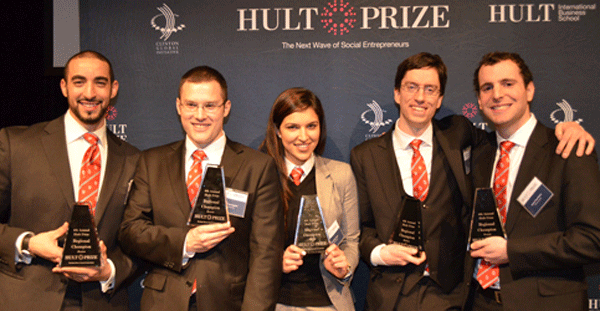 A group of McGill students has been awarded $1 million to help create a company that will farm insects. The McGill crew, which consisted of MBA students from the Desautels Faculty of Management, beat out some 10,000 colleges and universities from 150 countries in the running for the prize. The goal was to address global food insecurity in urban slums. The McGill team put a special emphasis on using insects as a food source, and their prize money is supposed to go toward creating a company that will promote insect farming.
|
McGill students awarded $1M prize by Bill Clinton for food security project | Craig Clarke | 2013-09-29 00:00:00Z | 0 | |||||||||||||||||||||||||||||||||||||||||||||||||||||||||
Historic returns of Pink salmon to the Quinsam River
Posted by Craig Clarke on Sep 28, 2013
Pink salmon returns to the Campbell and Quinsam Rivers hit a historic high of over one million fish this year. It is the highest total on record since the Quinsam Hatchery opened over 35 years ago. This year's total even surpassed the return of about 900,000 in 2009. Last year about 327,000 pinks returned to the river. While the pink numbers are confirmed, hatchery staff have been busy doing pink salmon egg takes and haven't had a chance to do swim counts and get the numbers on the other Pacific salmon in the system
Click here to read rest of story in the Courier-Islander. |
Historic returns of Pink salmon to the Quinsam River | Craig Clarke | 2013-09-29 00:00:00Z | 0 | |||||||||||||||||||||||||||||||||||||||||||||||||||||||||
How do you get free ad space for Rotary?
Posted by Craig Clarke on Sep 28, 2013
Posted on 
A digital billboard advertises Rotary near the George Massey Tunnel in Vancouver, Canada. By Penny Offer, Rotary Public Image Coordinator for Zone 24 Have you noticed how digital flat screen signs are popping up in banks, fast-food outlets, airports, sports areas and numerous other locations? They are replacing traditional fixed printed billboards on highways. This new media offers opportunities for Rotary. In August, the Rotary Club of Ladner (Delta) in suburban Vancouver, British Columbia, Canada, invited a sales rep from one of the major digital billboard companies as a speaker at a regular meeting of the club. At the end of his presentation he was asked if he would give comp space to Rotary, and he quickly agreed. A poster was selected from the collection on the Rotary Media Center and modified to include a photo of a member of the club and the club’s web address. The digital billboard company posted it on two of their digital signs, at the George Massey Tunnel and the Alex Fraser Bridge. The image appears for 10 seconds every 90 seconds. The company offered 10 days of display at a retail value of $2,000, with no cost to Rotary. Multiple traffic lanes merge at both the tunnel and bridge, with heavy traffic volume slowing traffic speed significantly. Therefore drivers and passengers see the Rotary sign twice as they pass during rush hour periods when traffic reaches a crawl. The club will be monitoring increased visits to its site, contacts to its club membership chair, and new members brought in as a result of the sign. So, how do you get low cost or free digital ad space for Rotary?
See photos of the billboards and download a summary report on the project. |
How do you get free ad space for Rotary? | Craig Clarke | 2013-09-29 00:00:00Z | 0 | |||||||||||||||||||||||||||||||||||||||||||||||||||||||||
Bill Gates' proposals for the next round of Millenium Development Goals
Posted by Craig Clarke on Sep 24, 2013
In his presentation to the UN special event on Millennium Development Goals this week, Bill Gates made the following recommendations:
|
Bill Gates' proposals for the next round of Millenium Development Goals | Craig Clarke | 2013-09-25 00:00:00Z | 0 | |||||||||||||||||||||||||||||||||||||||||||||||||||||||||
UNAIDS reports a 52% reduction in HIV infections in children
Posted by Craig Clarke on Sep 24, 2013
World closing in on Millennium Development Goal 6, globally the AIDS epidemic has been halted and reversed—race is on to reach universal access to HIV treatment. GENEVA, 23 September 2013—As world leaders prepare to meet at the United Nations General Assembly to review progress towards the Millennium Development Goals—a new report from the Joint United Nations Programme on HIV/AIDS (UNAIDS) shows dramatic acceleration towards reaching 2015 global targets on HIV. New HIV infections among adults and children were estimated at 2.3 million in 2012, a 33% reduction since 2001. New HIV infections among children have been reduced to 260 000 in 2012, a reduction of 52% since 2001. AIDS-related deaths have also dropped by 30% since the peak in 2005 as access to antiretroviral treatment expands. By the end of 2012, some 9.7 million people in low- and middle-income countries were accessing antiretroviral therapy, an increase of nearly 20% in just one year. In 2011, UN Member States agreed to a 2015 target of reaching 15 million people with HIV treatment. However, as countries scaled up their treatment coverage and as new evidence emerged showing the HIV prevention benefits of antiretroviral therapy, the World Health Organization set new HIV treatment guidelines, expanding the total number of people estimated to be in need of treatment by more than 10 million. “Not only can we meet the 2015 target of 15 million people on HIV treatment—we must also go beyond and have the vision and commitment to ensure no one is left behind,” said Michel Sidibé, Executive Director of UNAIDS. Significant results have also been achieved towards meeting the needs of tuberculosis (TB) patients living with HIV, as TB-related deaths among people living with HIV have declined by 36% since 2004. Despite a flattening in donor funding for HIV, which has remained around the same as 2008 levels, domestic spending on HIV has increased, accounting for 53% of global HIV resources in 2012. The total global resources available for HIV in 2012 was estimated at US$ 18.9 billion, US$ 3-5 billion short of the US$ 22-24 billion estimated to be needed annually by 2015. Click here to read story on UN website |
UNAIDS reports a 52% reduction in HIV infections in children | Craig Clarke | 2013-09-25 00:00:00Z | 0 | |||||||||||||||||||||||||||||||||||||||||||||||||||||||||
The Rotary Club of Toronto Aboriginal Service Committee
Posted by Craig Clarke on Sep 24, 2013
by Steven Smith
The Board of The Rotary Club of Toronto is delighted to announce that the Aboriginal Service Committee, which was established in 2011 as a pilot project, has been confirmed as a philanthropic committee. The decision was unanimously carried at the June 2013 meeting of the RCT Board. The Aboriginal Service Committee aims to build relationships with aboriginal peoples and groups, and to educate Rotarians about aboriginal issues and challenges.
The committee has two areas of interest: • Education of aboriginal children and youth • Collaboration with other groups that seek to make a difference in aboriginal communities. In the past two years, the committee has achieved several milestones. It has: • Supported a First Nations School in Toronto through a financial donation to its food program, and donations of equipment for special needs students, books and toys;
• Organized two Career Days, bringing Rotarians to the school to discuss a variety of careers and occupations with Grade 7 and 8 students;
• Given financial support to the Scarborough, Ont. GED program run by Native Child and Family Services;
• Supported financially and promoted Andrée Cazabon’s “Third World Canada” documentary that reveals the dire situation existing on many First Nation reserves;
• Helped bring together a number of Rotary Clubs and aboriginal leaders across Ontario to form the Aboriginal Rotarian Community Circle and collaborate on ways to assist aboriginal communities;
• Arranged for several luncheon presentations on aboriginal issues to raise the awareness of club members;
• Submitted a proposal to The Rotary Club of Toronto board that resulted in a $25,000 donation to Club Amik, a book program initiated by former Ontario Lt. Gov. James Bartleman
• Participated in Ontario Lt. Gov. David Onley’s aboriginal networking initiative.
The committee continues to develop relationships in the aboriginal and non-aboriginal world in order to fulfill its mandate and meet the needs of the aboriginal community in Canada. It welcomes to its membership Rotarians who want to make a difference. |
The Rotary Club of Toronto Aboriginal Service Committee | Craig Clarke | 2013-09-25 00:00:00Z | 0 | |||||||||||||||||||||||||||||||||||||||||||||||||||||||||
IMF Managing Director Christine Lagarde at UN forum on sustainable development
Posted by Craig Clarke on Sep 23, 2013
|
IMF Managing Director Christine Lagarde at UN forum on sustainable development | Craig Clarke | 2013-09-24 00:00:00Z | 0 | |||||||||||||||||||||||||||||||||||||||||||||||||||||||||
Why the World Bank is Taking on Climate Change
Posted by Craig Clarke on Sep 23, 2013
We know that climate change, left unchecked, threatens the health, homes, and livelihoods of millions of people around the globe, with the poorest and most vulnerable hit the hardest. This week, the United Nations Intergovernmental Panel on Climate Change (IPCC) will release a major report that is expected to raise the panel’s certainty that human activity, particularly the burning of fossil fuels, is the cause of much of the warming seen in recent years. In New York, World Bank President Jim Jong Kim will also be speaking at the opening of Climate Week on Sept. 23 on the impacts of climate change on poverty and the need for action. “Decades of progress are now in danger of being rolled back because of climate change,” President Kim says. "This is a ‘make-or-break’ decade for action on global warming. The time to address the interlinked challenges of climate change and ending extreme poverty is now.” Click here to read the story on the World Bank website. |
Why the World Bank is Taking on Climate Change | Craig Clarke | 2013-09-24 00:00:00Z | 0 | |||||||||||||||||||||||||||||||||||||||||||||||||||||||||
UN Conference on Trade and Development says poor countries can't rely on exports for growth
Posted by Craig Clarke on Sep 17, 2013
New UNCTAD report argues that the world economy is experiencing a structural shift, and that countries must introduce fundamental changes in their growth strategies in order to adjust to it. In particular, developing and transition economies that have been overly dependent on exports should give a greater role to domestic and regional demand. The Trade and Development Report 2013 notes that the current global economic and financial crisis reflects a structural shift of the world economy, and that adjusting to this structural shift requires fundamental changes to the prevailing growth strategies. The world economy cannot revert to pre-crisis growth, which was built on unsustainable global demand and financing patterns. Developed countries should act more decisively to address the fundamental causes of the crisis, and should move away from contradictary fiscal policies so as not to further undermine their already slow economic growth. |
UN Conference on Trade and Development says poor countries can't rely on exports for growth | Craig Clarke | 2013-09-18 00:00:00Z | 0 | |||||||||||||||||||||||||||||||||||||||||||||||||||||||||
Take a tour of the new Rotary International website
Posted by Craig Clarke on Sep 12, 2013
|
Take a tour of the new Rotary International website | Craig Clarke | 2013-09-13 00:00:00Z | 0 | |||||||||||||||||||||||||||||||||||||||||||||||||||||||||
FAO report says global food waste harms climate, water land & biodiversity
Posted by Craig Clarke on Sep 10, 2013
11 September 2013, Rome - The waste of a staggering 1.3 billion tonnes of food per year is not only causing major economic losses but also wreaking significant harm on the natural resources that humanity relies upon to feed itself, says a new FAO report.
Food Wastage Footprint: Impacts on Natural Resources is the first study to analyze the impacts of global food wastage from an environmental perspective, looking specifically at its consequences for the climate, water and land use, and biodiversity. Among its key findings: Each year, food that is produced but not eaten guzzles up a volume of water equivalent to the annual flow of Russia's Volga River and is responsible for adding 3.3 billion tonnes of greenhouse gases to the planet's atmosphere; these emissions are topped only by the national emissions of China and the U.S. And beyond its environmental impacts, the direct economic consequences to producers of food wastage (excluding fish and seafood) run to the tune of $750 billion annually, FAO's report estimates.
"All of us - farmers and fishers; food processors and supermarkets; local and national governments; individual consumers -- must make changes at every link of the human food chain to prevent food wastage from happening in the first place, and re-use or recycle it when we can't," said FAO Director-General José Graziano da Silva. "We simply cannot allow one-third of all the food we produce to go to waste or be lost because of inappropriate practices, when 870 million people go hungry every day," he added. Fifty-four percent of the world's food wastage occurs "upstream" during production, post-harvest handling and storage, according to FAO's study. Forty-six percent of it happens "downstream," at the processing, distribution and consumption stages.
|
FAO report says global food waste harms climate, water land & biodiversity | Craig Clarke | 2013-09-11 00:00:00Z | 0 | |||||||||||||||||||||||||||||||||||||||||||||||||||||||||
UBC Cancelling classes Sept 18 for Truth & Reconciliation Event
Posted by Craig Clarke on Sep 09, 2013
The University of British Columbia has taken the extraordinary step of suspending almost all classes on its Vancouver campus on September 18 to encourage its community to participate in the Truth and Reconciliation Commission (TRC) of Canada’s National Event. Held at the Pacific National Exhibition in Vancouver, the TRC will gather testimony from survivors of the Indian residential school system that operated from 1875 – 1996 in Canada. Forcibly removed from their homes, Aboriginal children were subject to emotional, physical and sexual abuse. “UBC is fundamentally committed to ensuring what we’ve learned through the work of the commission will help guarantee future relationships are much better than those of the past,” said UBC President Stephen Toope, who is scheduled to speak at the national event on Sept. 18. “I encourage everyone to get involved.” Click here to go to BC Reconciliation Week Sept 16 - 22 webpage. |
UBC Cancelling classes Sept 18 for Truth & Reconciliation Event | Craig Clarke | 2013-09-10 00:00:00Z | 0 | |||||||||||||||||||||||||||||||||||||||||||||||||||||||||
New program is bringing electricity to Ethiopia
Posted by Craig Clarke on Sep 05, 2013
A program in Ethiopia has brought distributed solar to 13,200 people, and aims to reach roughly another 11,800 by the end of this November. Roughly one third of the East African country’s population lives on $1.25 a day (adjusted for purchasing power parity) or less, and as of 2009 the country was plagued by power outages and less than 10 percent of its households had access to electricity. The effort is part of a larger program set up by Ethiopia’s Ministry of Water and Energy, and backed by $40 million from the World Bank. It’s already commissioned three hydropower plants — with a combined capacity of 1.18 gigawatts — to bring renewable energy to Ethiopians on the nation’s electrical grid. $11 million of that grant is going to the solar program, which aims to bring distributed generation to Ethiopians not on the grid. This can be an unusually effective energy solution for the poor in the developing world — especially in Africa, where sunshine is abundant. Between 1.2 and 1.6 billion people worldwide have no access to electricity, and the International Energy Agency has more or less admitted that at this rate half of them will never have access to the grid. Furthermore, these people generally rely on kerosene, candles, batteries, generators, and such for light and power. The kerosene alone took up 25 to 30 percent of a family’s income per year, as of 2012.
Click here to go to full article in Think Progress. |
New program is bringing electricity to Ethiopia | Craig Clarke | 2013-09-06 00:00:00Z | 0 | |||||||||||||||||||||||||||||||||||||||||||||||||||||||||
Intl Energy Agency and UNDP partner to make building codes more energy efficient
Posted by Craig Clarke on Sep 04, 2013
The International Energy Agency (IEA) and the United Nations Development Program produced a report that shares best practices and lessons learned among IEA member In many IEA member countries, the buildings sector accounts for over 40% of primary energy consumption. Globally, the sector’s final consumption doubled between 1971 and 2010, In IEA member countries, where current building stock will remain in place for years to come, the main focus should be on renovation, through implementation of energy codes and minimum performance standards in existing buildings. In non-IEA countries, where more than half of the buildings stock needed by 2050 has yet to be built, new buildings should be designed to be lower energy consumers, with codes that specify strict performance standards. Comprehensive policy packages are needed to facilitate and promote the use of advanced building energy codes. Click here to go to IEA webpage. |
Intl Energy Agency and UNDP partner to make building codes more energy efficient | Craig Clarke | 2013-09-05 00:00:00Z | 0 | |||||||||||||||||||||||||||||||||||||||||||||||||||||||||
Political views influence our ability to do math
Posted by Craig Clarke on Sep 04, 2013
Why does public conflict over societal risks persist in the face of compelling and widely accessible scientific evidence? We conducted an experiment to probe two alternative answers: the “Science Comprehension Thesis” (SCT), which identifies defects in the public’s knowledge and reasoning capacities as the source of such controversies; and the “Identity-protective Cognition Thesis” (ICT) which treats cultural conflict as disabling the faculties that members of the public use to make sense of decision-relevant science. In our experiment, we presented subjects with a difficult problem that turned on their ability to draw valid causal inferences from empirical data. As expected, subjects highest in Numeracy—a measure of the ability and disposition to make use of quantitative information—did substantially better than less numerate ones when the data were presented as results from a study of a new skin-rash treatment. Also as expected, subjects’ responses became politically polarized—and even less accurate—when the same data were presented as results from the study of a gun-control ban. But contrary to the prediction of SCT, such polarization did not abate among subjects highest in Numeracy; instead, it increased. This outcome supported ICT, which predicted that more Numerate subjects would use their quantitative-reasoning capacity selectively to conform their interpretation of the data to the result most consistent with their political outlooks. We discuss the theoretical and practical significance of these findings.
Click here to go to paper in the Social Science Research Network.
|
Political views influence our ability to do math | Craig Clarke | 2013-09-05 00:00:00Z | 0 | |||||||||||||||||||||||||||||||||||||||||||||||||||||||||
District 5360 Flood Relief Fund
Posted by Craig Clarke on Sep 01, 2013
District 5360 is accepting donations to benefit those communities most affected by the flooding in Southern Alberta. Those wishing to donate to specific communities are invited to make their donations directly to the local Rotary Club, or to indicate their wishes when donating through the District. Please note that some clubs, including High River, are not in a position to issue charitable receipts at this time should one be required. Donate on line or mail a cheque to: Rotary District 5360 Inc - Flood Relief Fund
4 Parkdale Crescent NW Calgary, AB T2N 3T8 Canada Attach donation form and mark memo area on cheque: Flood Relief (Registered Charity #88939 5398 RR0001) Tax receipts will be issued for donations over $25 if full mailing address is provided. District 5360 will work with the local Rotary Clubs in each affected community to disburse donated funds. The proceeds of the fund will support flood relief projects in the affected regions through Rotary Clubs in Calgary, Canmore, High River and Medicine Hat. If you have questions, please contact: |
District 5360 Flood Relief Fund | Craig Clarke | 2013-09-02 00:00:00Z | 0 | |||||||||||||||||||||||||||||||||||||||||||||||||||||||||
US Drought Monitor August 27 2013
Posted by Craig Clarke on Aug 28, 2013
Large areas of the west and central US are in drought conditions. Click here for map. |
US Drought Monitor August 27 2013 | Craig Clarke | 2013-08-29 00:00:00Z | 0 | |||||||||||||||||||||||||||||||||||||||||||||||||||||||||
Emerging markets surpass advanced economies in collective economic output
Posted by Craig Clarke on Aug 27, 2013
For the first time ever, the combined gross domestic product of emerging and developing markets, adjusted for purchasing price parity, has eclipsed the combined measure of advanced economies. Purchasing price parity—or PPP for short—adjusts for the relative cost of comparable goods in different economic markets. According to the International Monetary Fund—the supplier of this data—emerging and developing economies will have a purchasing price parity-adjusted GDP of $42.8 trillion in 2013, while that of emerging economies will be $44.4 trillion. In other words, emerging markets will create $1.6 trillion more value in goods and services than advanced markets this year Click here to go to Quartz webpage. |
Emerging markets surpass advanced economies in collective economic output | Craig Clarke | 2013-08-28 00:00:00Z | 0 | |||||||||||||||||||||||||||||||||||||||||||||||||||||||||
Underwater youtube video of pink salmon migrating in the Quinsam River
Posted by Craig Clarke on Aug 25, 2013
More than 250,000 Pink Salmon had been counted through the gate at the Quinsam River hatchery as of Sunday.
Click here for video of Pink salmon in the Quinsam River |
Underwater youtube video of pink salmon migrating in the Quinsam River | Craig Clarke | 2013-08-26 00:00:00Z | 0 | |||||||||||||||||||||||||||||||||||||||||||||||||||||||||
Planned update to version 3 of the ClubRunner software
Posted by Craig Clarke on Aug 24, 2013
Our club has been using ClubRunner for 5 years as of this month. Preparations are being made to convert our website over to version 3 of the ClubRunner software. It has a number of improvements including improved speed, more flexible layouut, autosave feature in editors and auto archiving of the newsletter. The downtown club has completed the conversion of their site. This is an opportune time to make changes to the website. The website committee will send out a survey to ask members for their input; in the meantime, think about what changes, additions, etc that you would like to see. Did you know that there are mobile apps to access ClubRunner? For Apple products, click here. For Android, click here.
|
Planned update to version 3 of the ClubRunner software | Craig Clarke | 2013-08-25 00:00:00Z | 0 | |||||||||||||||||||||||||||||||||||||||||||||||||||||||||
Read about enhancements to Rotary International Website
Posted by Craig Clarke on Aug 21, 2013
|
Read about enhancements to Rotary International Website | Craig Clarke | 2013-08-22 00:00:00Z | 0 | |||||||||||||||||||||||||||||||||||||||||||||||||||||||||
$20,000 for Salmon Projects in Nanaimo
Posted by Craig Clarke on Aug 19, 2013
VANCOUVER: Three salmon conservation groups in Nanaimo received more than $20,000 in support from the Pacific Salmon Foundation. The Nanaimo Fish and Game Club received $10,100, the Nanaimo Science and Sustainability Society received $1,094, and the Harbour City River Stewards received $9,150. The funding was part of more than $464,000 in grants to support 57 projects in 45 B.C. communities. The Nanaimo Fish and Game Club received funds to repair bank erosion in Haslam Creek caused by severe winter conditions. In some cases, whole trees washed down the creek knocking bank debris into salmon spawning habitat. The Harbour City River Stewards also received funds for the second phase of a project to improve Departure Creek. A third conservation group, The Nanaimo Science and Sustainability Society, received funds to deliver science-based outreach programs to the local community as part of its Science in the Park and Science on the Move-Early Years projects. The grants in Nanaimo were partially underwritten by timber and land management company TimberWest. Significant funding for the grants was generated through sales of the Salmon Conservation Stamp, the decal that must be purchased annually by anglers if they want to keep Pacific salmon caught in saltwater off of Canada’s west coast. Since 1989, the Foundation has received $6.5 million in stamp funds. Earlier this year, the foundation successfully campaigned to return 100 per cent of stamp user fees to British Columbia as part of the March 2013 federal budget. Click here to go to Pacific Salmon Foundation Website |
$20,000 for Salmon Projects in Nanaimo | Craig Clarke | 2013-08-20 00:00:00Z | 0 | |||||||||||||||||||||||||||||||||||||||||||||||||||||||||
Major coastal cities with greatest risk of flooding
Posted by Craig Clarke on Aug 19, 2013
Stephane Hallegatte, an economist at the World Bank, and his coauthors tallied up estimated flood damage losses for the world's 136 largest coastal cities, on the basis of local population and real estate and infrastructure values crunched with data on each location's elevation, exposure to extreme weather like hurricanes, and existing coastal protection infrastructure. Then he extrapolated these costs into the future using UN population and urbanization models, economic models from the Organization for Economic Cooperation and Development, and climate models of future sea level rise. Flood exposure is increasing in coastal cities owing to growing populations and assets, climate change, and subsidence. Average global flood losses in 2005 are estimated to be approximately US$6 billion per year, increasing to US$52 billion by 2050 with projected socio-economic change alone. With climate change and subsidence, present protection will need to be upgraded to avoid unacceptable losses of US$1 trillion or more per year. Installing robust protective infrastructure that accounts not just for sea level rise but also population growth and future shoreline development could reduce annual losses to $52 billion. The list of 20 cities most at risk, based on average annual losses due to floods, if no adaptation is undertaken is topped by Guangzhou, Miami, New York, New Orleans, Mumbai, Nagoya, Tampa-St. Petersburg, Boston, Shenzen, Osaka-Kobe and Vancouver. However, the authors note that when defense measures are taken into account, Vancouver would fair significantly better than cities in developing countries with fewer resources to guard against flooding.
Click here to go to Nature Climate Change webpage.
|
Major coastal cities with greatest risk of flooding | Craig Clarke | 2013-08-20 00:00:00Z | 0 | |||||||||||||||||||||||||||||||||||||||||||||||||||||||||
Rotary health days across Africa in May
Posted by Craig Clarke on Aug 15, 2013
Note: Marion Bunch was a speaker at the D5020 conference in Victoria, June 2012.
For three days in May, Rotarians from 365 clubs fanned out across Uganda, Nigeria, and South Africa to help medical professionals and government workers provide free health services to 250,000 disadvantaged people. Rotary Family Health Days, the third event organized by Rotarians for Family Health and AIDS Prevention (RFHA), was an incredible success! The program, initially developed to address the critical issue of HIV/AIDS in Africa, has always included other health care services. This year, we conducted polio and measles immunizations, dental and eye clinics, family counseling and screening for HIV, diabetes and hypertension, breast cancer, and cervical cancer. Why I got involved 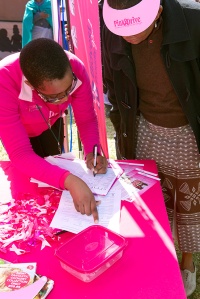
Volunteers provide counseling and share information about breast cancer at a booth in Zandspruit, South Africa. Photo by Anna J Nel In 1994, I lost my second born child, Jerry, to AIDS early in the American epidemic. At that time, the disease was so stigmatizing, I felt quite lonely not being able to discuss Jerry’s illness with anyone outside my family. I never thought I’d do anything about it until one day, three years after his death, I felt a tap on the shoulder and a voice in my ear said “mom, get up and get going, you haven’t done anything, and it’s been three years.” It was an epiphany of a moment that completely altered the course of my life. In 1998, I was propelled into taking the first step to begin a project in my Rotary club. The fact that our club president said ‘yes’ to my idea made me a passionate Rotarian for life! From the start, I realized that finding partner organizations in the field of HIV/AIDS would be important because Rotarians are not AIDS experts. I created a partnership program with a local AIDS service organization whereby together, we provided AIDS education in the middle schools of Georgia. This sobering program has now been seen by 450,000 students! My interest ultimately took me to Africa in 2001, where I quickly realized the huge disparities between America and the developing world. I was struck by the hugeness and the filth of the slums in places like Nairobi, Kenya. I realized that there are 20 million orphans living there now because their parents died of the consequences of AIDS. They have little to eat, they are often shunned by their community, and they drop out of school because they don’t have the funds to pay the schools fees or get uniforms. I was also amazed at the reception given me in African countries by fellow Rotarians who were so glad to welcome an American Rotarian woman who was interested in working on this issue. The year was 2001. I ultimately began a Rotarian Action Group recognized by the RI Board of Directors in 2004. It was so rewarding to meet thousands of Rotarians out in the world that had an interest in doing something about this disease! |
Rotary health days across Africa in May | Craig Clarke | 2013-08-16 00:00:00Z | 0 | |||||||||||||||||||||||||||||||||||||||||||||||||||||||||
More deaths from suicide than from motor vehicle accidents in US
Posted by Craig Clarke on Aug 13, 2013
Suicide is an increasing public health concern. In 2009, the number of deaths from suicide surpassed the number of deaths from motor vehicle crashes in the United States (1). Traditionally, suicide prevention efforts have been focused mostly on youths and older adults, but recent evidence suggests that there have been substantial increases in suicide rates among middle-aged adults in the United States (2). To investigate trends in suicide rates among adults aged 35–64 years over the last decade, CDC analyzed National Vital Statistics System (NVSS) mortality data from 1999–2010. Trends in suicide rates were examined by sex, age group, race/ethnicity, state and region of residence, and mechanism of suicide. The results of this analysis indicated that the annual, age-adjusted suicide rate among persons aged 35–64 years increased 28.4%, from 13.7 per 100,000 population in 1999 to 17.6 in 2010.
Click here to go to full story on US Centres for Disease Control website. |
More deaths from suicide than from motor vehicle accidents in US | Craig Clarke | 2013-08-14 00:00:00Z | 0 | |||||||||||||||||||||||||||||||||||||||||||||||||||||||||
Islamic Development Bank And Earth Institute Partner To Meet Millennium Development Goals In Rural Africa
Posted by Craig Clarke on Aug 12, 2013
JEDDAH, SAUDI ARABIA, August 13, 2013: The Islamic Development Bank (IsDB) and the Earth Institute at Columbia University formed a partnership in 2011 to work with African nations to support their efforts to end extreme poverty. The IsDB and the Earth Institute and its partner, Millennium Promise, are pleased to announce that the IsDB and its poverty reduction arm, the Islamic Solidarity Fund for Development (ISFD), have now extended more than $100 million in financing to help eight African nations combat extreme poverty, improve public health and achieve more sustainable development.
|
Islamic Development Bank And Earth Institute Partner To Meet Millennium Development Goals In Rural Africa | Craig Clarke | 2013-08-13 00:00:00Z | 0 | |||||||||||||||||||||||||||||||||||||||||||||||||||||||||
Preclinical trial with experimental malaria vaccine shows promise
Posted by Craig Clarke on Aug 11, 2013
Tropical disease researcher Stephen Hoffman has spent the past decade working on a malaria vaccine made from weakened parasites. Two years ago, the first test of this vaccine in people failed.
Now, Hoffman has evidence that his idea might just work. Hoffman and collaborators report that when given in a new way, their experimental vaccine protected 12 of 15 volunteers from malaria infection, including all six receiving the most doses. Those numbers are tiny. But 100% protection is the best result yet in the long and frustrating effort to develop a malaria vaccine.
The results were published in the journal Science.
|
Preclinical trial with experimental malaria vaccine shows promise | Craig Clarke | 2013-08-12 00:00:00Z | 0 | |||||||||||||||||||||||||||||||||||||||||||||||||||||||||
2013 International Youth Day: Youth Migration, Moving Development Forward
Posted by Craig Clarke on Aug 11, 2013
On 17 December 1999 the United Nations General Assembly declared that 12 August be International Youth Day.
|
2013 International Youth Day: Youth Migration, Moving Development Forward | Craig Clarke | 2013-08-12 00:00:00Z | 0 | |||||||||||||||||||||||||||||||||||||||||||||||||||||||||
Report outlines the need for energy in the developing world
Posted by Craig Clarke on Aug 10, 2013
The poorest three-quarters of the global population still only use about ten percent of global energy – a clear indicator of deep and persistent global inequity. Because modern energy supply is
foundational for economic development, the international development and diplomatic community has rightly placed the provision of modern energy services at the center of international attention focused on a combined agenda of poverty eradication and sustainable development. This priority has been expressed primarily in the launching of the UN Sustainable Energy for All initiative.
To raise the entire region of sub-Saharan Africa to the average per capita electricity access available in South Africa (which in 2010 was about 4,800 kWh, similar to the level of Bulgaria) would require 1,000 GW of installed capacity – about the equivalent electricity of 1,000 medium-sized power plants. This means that sub-Saharan Africa would need to increase its installed capacity by 33 times to reach the level of energy use enjoyed by South Africans — and 100 times to reach that of Americans. A recent study showed that even a less ambitious tenfold increase, perhaps sufficient to provide full access but at relatively modest levels of electricity consumption, would require a 13% average annual growth rate in generating capacity in sub-Saharan Africa, compared to a historical one of 1.7% over the past two decades. When looked at from the perspective of energy access as the concept is understood in North America and Europe, the magnitude of the energy access challenge is starkly revealed.
Click here to go full report at University of Colorado website. |
Report outlines the need for energy in the developing world | Craig Clarke | 2013-08-11 00:00:00Z | 0 | |||||||||||||||||||||||||||||||||||||||||||||||||||||||||
Engineers at Duke University developing a toilet that turns waste into drinking water
Posted by Craig Clarke on Aug 10, 2013
Two years ago, the Bill and Melinda Gates Foundation launched a research competition called “Reinvent the Toilet,” challenging researchers to create a sewage disposal system that requires no electricity and could be used in developing countries. Marc Deshusses, a professor of civil and environmental engineering at Duke’s Pratt School of Engineering, pitched an idea to the Foundation and won $100,000 to take it further. Fast forward two years and Marc’s team, which also includes researchers at the University of Missouri, has just earned an additional $1.18 million to work on a new kind of revolutionary toilet. Their idea is a self-contained waste recycling system that fits into a 20-foot shipping container. It works like this: people empty their latrines into a sewage receptacle (currently, latrines are often emptied into rivers), the waste gets funneled through a series of tubes and is pressurized at extreme temperatures, and the byproduct is clean, possibly drinkable water. Deshusses describes the process as “a pressure cooker on steroids.” Click here to go to project site on Duke University webpage. |
Engineers at Duke University developing a toilet that turns waste into drinking water | Craig Clarke | 2013-08-11 00:00:00Z | 0 | |||||||||||||||||||||||||||||||||||||||||||||||||||||||||
Take steps to expand your club for Membership Month
Posted by Craig Clarke on Aug 10, 2013
Rotary News -- 1 August 2013
|
Take steps to expand your club for Membership Month | Craig Clarke | 2013-08-11 00:00:00Z | 0 | |||||||||||||||||||||||||||||||||||||||||||||||||||||||||
Nanaimo Ladysmith Schools Foundation launches Stock the Lockers Campaign
Posted by Craig Clarke on Aug 09, 2013
From August 15 through September 5th, the foundation aims to raise $50,000 for urgently needed school supplies.
Click here to go to their website.
|
Nanaimo Ladysmith Schools Foundation launches Stock the Lockers Campaign | Craig Clarke | 2013-08-10 00:00:00Z | 0 | |||||||||||||||||||||||||||||||||||||||||||||||||||||||||
Brazilian model Isabelli Fontana supports campaign to end polio
Posted by Craig Clarke on Aug 07, 2013
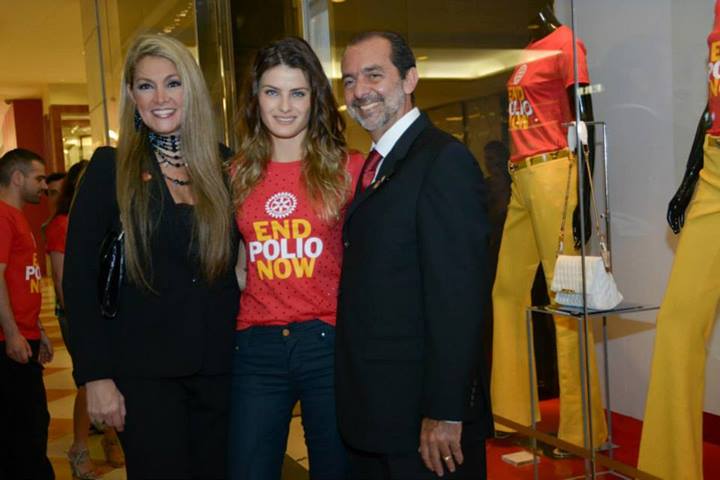 Rotary Polio Ambassador Isabelli Fontana with Rotary members Elizabeth and Altimar Fernandes at her launch party in Brazil.
|
Brazilian model Isabelli Fontana supports campaign to end polio | Craig Clarke | 2013-08-08 00:00:00Z | 0 | |||||||||||||||||||||||||||||||||||||||||||||||||||||||||
Lighting Africa – Catalyzing markets for modern off-grid lighting
Posted by Craig Clarke on Aug 03, 2013
Lighting Africa is a joint International Finance Corporation and World Bank program that works towards improving access to better lighting in areas not yet connected to the electricity grid.
Lighting Africa catalyzes and accelerates the development of sustainable markets for affordable, modern off-grid lighting solutions for low-income households and micro-enterprises across the continent.
About 600 million people, and more than 10 million micro-enterprises, across Africa have no access to electricity. They use inefficient and costly fuel-based lighting sources such as kerosene lamps, which greatly curtail their socio-economic activities once darkness sets in.
To date, Lighting Africa and its partners have made it possible for more than 6.9 million people in Africa to access clean, safe lighting. |
Lighting Africa – Catalyzing markets for modern off-grid lighting | Craig Clarke | 2013-08-04 00:00:00Z | 0 | |||||||||||||||||||||||||||||||||||||||||||||||||||||||||
Paper in the Journal Science links violence with climatic changes
Posted by Craig Clarke on Aug 01, 2013
A rapidly growing body of research examines whether human conflict can be affected by climatic changes. Drawing from archaeology, criminology, economics, geography, history, political science, and psychology, we assemble and analyze the 60 most rigorous quantitative studies and document, for the first time, a remarkable convergence of results. We find strong causal evidence linking climatic events to human conflict across a range of spatial and temporal scales and across all major regions of the world.
Click here for full abstract in the Journal Science. |
Paper in the Journal Science links violence with climatic changes | Craig Clarke | 2013-08-02 00:00:00Z | 0 | |||||||||||||||||||||||||||||||||||||||||||||||||||||||||
ON THE ROAD TO WHISTLER with Peter Taylor | 2013-14 District Governor
Posted by Craig Clarke on Aug 01, 2013
|
ON THE ROAD TO WHISTLER with Peter Taylor | 2013-14 District Governor | Craig Clarke | 2013-08-02 00:00:00Z | 0 | |||||||||||||||||||||||||||||||||||||||||||||||||||||||||
Low cost Indian tablet computer has Canadian connection
Posted by Craig Clarke on Jul 30, 2013
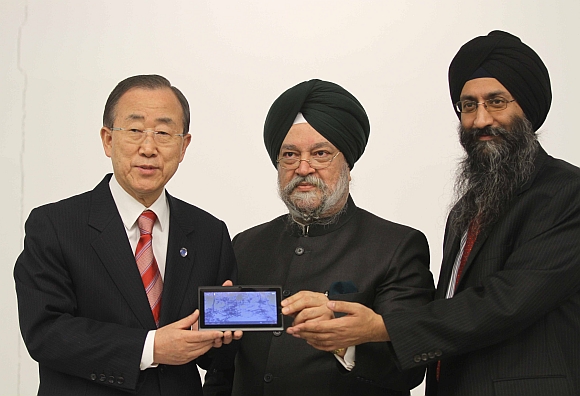
Aakash 2 press conference at the UN with Secretary General Ban Ki Moon, Indian Ambassador to the USA Hardeep Singh Puri and Datawind CEO Suneet Singh Tuli November 28, 2012. Aakash (sky in Hindi) is the name given to the low-cost tablet computers being procured by the Indian government to help enhance the quality of education. It is envisioned that computing and internet access used in a blended learning environment will empower both students and teachers. The Indian government has laid out a vision to equip all 220 million students across the country over the next few years with such products. The Aakash was developed by DataWind, a British manufacturing and marketing company originally founded in Montreal in 2001 by brothers Suneet and Raja Tuli from the Indian state of Punjab. With its research and development based in Montreal, the company until 2010 marketed its production primarily in the UK. Now headquartered in London, the company also has offices in Amritsar, Punjab, India; Dallas, Texas, and Mississauga. Aakash 1:Launched on October 5th, 2011, the first version of Aakash was designed, developed and manufactured by DataWind based on the specifications set by the Indian Institute of Technology Rajasthan. For supply to students, the Indian government not only waived duties and taxes, but also further subsidizes the cost by 50%. At the subsidized price, the tablet will cost about the price of a pair of shoes or a basic mobile phone. Aakash 2: Launched on November 11th, 2012, the second version of Aakash is designed, developed and manufactured by DataWind. The product is currently being supplied to the Indian Institute of Technology Bombay, who in turn is tasked with application development, content integration, field testing and deployment. The device utilizes multi-touch projective capacitive touch screens, manufactured at Datawind's touch-screen manufacturing facility in Amritsar. It is powered by a Cortex A8-1Ghz processor and contains 512 MB RAM. CEO Tuli said the tablet was a work in progress and that significant enhancements would be made every 6 months. Data Wind announced that it had completed delivery of 100,000 units by the beginning of May. |
Low cost Indian tablet computer has Canadian connection | Craig Clarke | 2013-07-31 00:00:00Z | 0 | |||||||||||||||||||||||||||||||||||||||||||||||||||||||||
Ann Mathews is first woman vice president of Rotary International
Posted by Craig Clarke on Jul 23, 2013
By Arnold R. Grahl Rotary News -- 2 July 2013 As Rotary clubs continue to promote diversity in their membership, Rotary is marking a milestone. Anne L. Matthews, a Rotarian from South Carolina, USA, began her term on 1 July as the first female vice president of Rotary International. “Women have contributed significantly to Rotary initiatives, and will continue to do so,” says Matthews, who is also the first woman to serve as both a Rotary Foundation trustee and an RI director. “No doubt, the unfortunate and sometimes misleading image of ‘an old boys’ club’ will be buried for good. “Whether the job is done by a male or female is immaterial,” she adds. “What is important is that the individual who serves is effective in that role. With that said, I am extremely proud to be the first woman vice president and am thankful for the California pioneers who pursued membership of women in Rotary.” A member of the Rotary Club of Columbia East, Matthews has served Rotary in numerous capacities. In addition to her service as trustee and director, she has been a regional Rotary Foundation coordinator, RI president’s representative, lead seminar trainer for the International Assembly, Future Vision Committee member, RI training leader, and district governor. She is a recipient of Rotary’s Service Above Self Award and The Rotary Foundation Citation for Meritorious Service and Distinguished Service Award. Matthews is a Rotary Foundation Benefactor, Bequest Society member, Major Donor, and Paul Harris Society member. She has a long and distinguished career outside Rotary as well. President of Matthews and Associates, an educational consulting firm, she has degrees in business, economics, and educational administration, including a doctorate from the University of South Carolina. She has served as a trustee of Coker College, on the Advisory Education Board of the National Federation of Independent Business, as president of the National Business Education Association, and as a member of the Southern Regional Education Board of Directors for High Schools That Work. She has also served on the board of the Center for Occupational Research and Development in Texas and the Commission on Occupational Education, a national accreditation agency, among others. She is a member of Leadership South Carolina. Matthews says she began attending Rotary club meetings in 1989, on the recommendation of her minister. It wasn’t long before she became actively involved in her club. Her most satisfying moments, of which she says there have been many, include immunizing children against polio in India, digging wells in the Amazon jungle, and preparing food for the hungry. “I feel especially peaceful when simply sharing stories and facts with Rotarians about the good Rotary is doing in pockets all over the world,” Matthews says. “Seeing and hearing their reactions is particularly satisfying.” |
Ann Mathews is first woman vice president of Rotary International | Craig Clarke | 2013-07-24 00:00:00Z | 0 | |||||||||||||||||||||||||||||||||||||||||||||||||||||||||
Polio eradication campaign aims to increase use of injectable vaccines
Posted by Craig Clarke on Jul 21, 2013
excerpted from US FDA and The Economist US Food and Drug Administration (FDA) is a collaborator Few diseases in U.S. history have been as devastating as polio. At the height of the epidemic in 1952, there were nearly 60,000 cases in the United States and more than 3,000 deaths. The crippling, highly infectious disease is caused by a virus that invades the nervous system and can paralyze a person in a matter of hours. It mainly affects children under 5, but can cause paralysis in unvaccinated adults. The most famous victim of polio was President Franklin D. Roosevelt, who contracted it at age 39, paralyzing him from the waist down. A successful vaccination program has wiped out polio in the U.S. But the disease still exists in some parts of the world and can easily spread to countries where it has previously been eradicated, requiring continued vaccination of the entire world population. FDA works with the World Health Organization (WHO) and other partners [including Rotary] to make safe and effective vaccines available all over the world. In 1988, when WHO proposed the goal of complete polio eradication, more than 350,000 people were paralyzed by polio in 125 countries on all continents. Compare this with just 223 cases in 2012 in five countries. This is the good news. However, the bad news is that WHO's original target for eradicating polio was 2000. "Thirteen years later, we're still not there," says Konstantin Chumakov, Ph.D., associate director for research within FDA's Office of Vaccines Research and Review. Chumakov gives two main reasons for this: "We didn’t realize how tough this job would be, and there was a scientific realization that the viruses in the oral vaccine used in the eradication campaign can mutate to virulent forms that circulate in the population." The vaccine used globally in resource-limited countries is the oral vaccine (OPV) made from a live virus. It is inexpensive and easy to give—a volunteer worker can place a drop on a child’s tongue. The injectable polio vaccine (IPV) used in the U.S. and other developed countries is made from the killed (inactivated) virus. It is injected into the muscle, and must be given by a health care professional. It cannot mutate and cause polio. But it costs dollars versus pennies per dose. The inactivated virus vaccine is made from highly virulent strains, says Chumakov. To prevent the virus from being accidentally released into the environment, manufacturers must maintain complex, expensive biosecurity measures. There are only a few manufacturers who supply the killed virus vaccine. For all these reasons, WHO, Rotary International, the Bill and Melinda Gates Foundation and other organizations support scientists working on the development of new vaccines against poliovirus. "This is critical," says Chumakov. "Without new vaccines, we will not be able to achieve and maintain eradication." Indian company wants to reduce cost of IPV The Serum Institute is the world’s number one producer of measles and DTP (diphtheria, tetanus and pertussis) vaccines. The company founder, Cyrus Poonawalla met Bill Gates at a dinner last year; their conversation led Mr Poonawalla to purchase a Dutch pharma company, Bilthoven Biologicals, which makes IPV. This move allowed the Serum Institute to become a principal supplier of this type of vaccine. Currently, Sanofi and GlaxoSmithKline are the primary producers of IPV. They sell it to UNICEF for more than $5 per dose, says Mr Poonawalla. But Serum will now offer it for nearly half that price. And Mr Poonawalla wants to “crash” the price further, to $1.60. The steep drop is simply a matter of numbers, he explains. Once larger quantities are purchased (upwards of 5m doses—which is expected as more countries transition from OPV to IPV) it will become financially viable to sell the vaccine at this price. The French company Sanofi supplied 1.5m doses of IPV to Indonesia at no cost. The donation was part of a study to see how the tropical climate might affect the vaccine. Sanofi also has plans to expand its IPV production capacity. |
Polio eradication campaign aims to increase use of injectable vaccines | Craig Clarke | 2013-07-22 00:00:00Z | 0 | |||||||||||||||||||||||||||||||||||||||||||||||||||||||||
New Study Estimates more than 2 metre sea level rise for each 1 degree increase in global average temperature
Posted by Craig Clarke on Jul 20, 2013
Potsdam Institute for Climate Impact Research 07/15/2013 Greenhouse gases emitted today will cause sea level to rise for centuries to come. Each degree of global warming is likely to raise sea level by more than 2 meters in the future.... While thermal expansion of the ocean and melting mountain glaciers are the most important factors causing sea-level change today, the Greenland and Antarctic ice sheets will be the dominant contributors within the next two millennia, according to the findings. Half of that rise might come from ice-loss in Antarctica which is currently contributing less than 10 percent to global sea-level rise. The study is the first to combine evidence from early Earth’s climate history with comprehensive computer simulations using physical models of all four major contributors to long-term global sea-level rise. During the 20th century, sea level rose by about 0.2 meters, and it is projected to rise by significantly less than two meters by 2100 even for the strongest scenarios considered. At the same time, past climate records, which average sea-level and temperature changes over a long time, suggest much higher sea levels during periods of Earth history that were warmer than present.
Click here to go to full press release on the Potsdam Institute webpage.
|
New Study Estimates more than 2 metre sea level rise for each 1 degree increase in global average temperature | Craig Clarke | 2013-07-21 00:00:00Z | 0 | |||||||||||||||||||||||||||||||||||||||||||||||||||||||||
Saturday Mass for Isabella Gagnon, long-time head of the 7-10 club
Posted by Craig Clarke on Jul 14, 2013
A mass takes place on Saturday July 20 at St. Peter's Church at 11 a.m. for Isabella Gagnon who died earlier this month. The 7-10 Club started in 1985 and spent many of its years in the basement of St. Peter's Roman Catholic Church on Fitzwilliam Street When her family moved to Nanaimo in 1991, Gagnon began to volunteer at the 7-10 club, which started in 1985 as a response to children going hungry in the community. Starting out as a fill-in worker for a friend that was a cook, Gagnon was elected chairwoman of the society two years later, and stayed with the non-profit for 16 years. Her initial inspiration to join came from a friend in town that was living cheque-to-cheque and would often go without food. Click here to go to article in the Nanaimo Daily News. |
Saturday Mass for Isabella Gagnon, long-time head of the 7-10 club | Craig Clarke | 2013-07-15 00:00:00Z | 0 | |||||||||||||||||||||||||||||||||||||||||||||||||||||||||
World Meteorological Organization Report on Climate extremes 2001-2010
Posted by Craig Clarke on Jul 02, 2013
GENEVA 3 July 2013 - The world experienced unprecedented high-impact climate extremes during the 2001-2010 decade, which was the warmest since the start of modern measurements in 1850 and continued an extended period of pronounced global warming. More national temperature records were reported broken than in any previous decade, according to a new report by the World Meteorological Organization (WMO).
The report, The Global Climate 2001-2010, A Decade of Climate Extremes, analysed global and regional temperatures and precipitation, as well as extreme events such as the heat waves in Europe and Russia, Hurricane Katrina in the United States of America, Tropical Cyclone Nargis in Myanmar, droughts in the Amazon Basin, Australia and East Africa and floods in Pakistan. The decade was the warmest for both hemispheres and for both land and ocean surface temperatures. The record warmth was accompanied by a rapid decline in Arctic sea ice, and accelerating loss of net mass from the Greenland and Antarctic ice sheets and from the world’s glaciers. As a result of this widespread melting and the thermal expansion of sea water, global mean sea levels rose about 3 millimetres (mm) per year, about double the observed 20th century trend of 1.6 mm per year. Global sea level averaged over the decade was about 20 cm higher than that of 1880, according to the report. Impacts: During the decade 2001-2010, more than 370,000 people died as a result of extreme weather and climate conditions, including heat waves, cold spells, drought, storms and floods, according to the data provided by the Centre for Research on the Epidemiology of Disasters. This was 20% higher than 1991-2000. This increase is due mainly to the 2003 heat wave in Europe and the 2010 in Russia which contributed to an increase of more than 2000% in the global death toll from heat waves (from less than 6000 in 1991-2000 to 136 000 in 2001-2010). On the other hand, there was a 16% decline in deaths due to storms and 43% decline in deaths from floods, thanks mainly to better early warning systems and increased preparedness and despite an increase in populations in disaster-prone areas. According to the 2011 Global Assessment Report, the average population exposed to flooding every year increased by 114% globally between 1970 and 2010, a period in which the world’s population increased by 87% from 3.7 billion to 6.9 billion. The number of people exposed to severe storms almost tripled in cyclone-prone areas, increasing by 192%, in the same period. Click here to go to full WMO News Release |
World Meteorological Organization Report on Climate extremes 2001-2010 | Craig Clarke | 2013-07-03 00:00:00Z | 0 | |||||||||||||||||||||||||||||||||||||||||||||||||||||||||
Gates Foundation announces new 2:1 match for Rotary Polio Plus until 2018
Posted by Craig Clarke on Jun 30, 2013
By Dan Nixon and Arnold R. Grahl Rotary News -- 25 June 2013
Jeff Raikes, chief executive officer of the Bill & Melinda Gates Foundation, addresses Rotarians during the third plenary session Tuesday via a prerecorded video message.
Actress Archie Panjabi explains why she agreed to be a Rotary polio eradication ambassador. Monika Lozinska/Rotary International “Going forward, the Gates Foundation will match two-to-one, up to US$35 million per year, every dollar Rotary commits to reduce the funding shortfall for polio eradication through 2018,” said Jeff Raikes, the foundation’s chief executive officer, in a prerecorded video address shown during the convention’s plenary session on 25 June. “If fully realized, the value of this new partnership with Rotary is more than $500 million. In this way, your contributions to polio will work twice as hard.” The joint effort, called End Polio Now – Make History Today, comes during a critical phase for the Global Polio Eradication Initiative . The estimated cost of the initiative’s 2013-18 Polio Eradication and Endgame Strategic Plan is $5.5 billion. Funding commitments , announced at the Global Vaccine Summit in April, total $4 billion. Unless the $1.5 billion funding gap is met, immunization levels in polio-affected countries will decrease. And if polio is allowed to rebound, within a decade, more than 200,000 children worldwide could be paralyzed every year. Rotary and the Gates Foundation are determined not to let polio make a comeback. “We will combine the strength of Rotary’s network with our resources, and together with the other partners in the Global Polio Eradication Initiative (GPEI), we will not just end a disease but change the face of public health forever,” said Raikes.
|
Gates Foundation announces new 2:1 match for Rotary Polio Plus until 2018 | Craig Clarke | 2013-07-01 00:00:00Z | 0 | |||||||||||||||||||||||||||||||||||||||||||||||||||||||||
World Bank report on risks of climate change for Africa Asia and the Coastal Poor
Posted by Craig Clarke on Jun 27, 2013
A new scientific report commissioned by the World Bank that was released on June 19 explores the risks to lives and livelihoods in three highly vulnerable regions: Sub-Saharan Africa, South Asia and South East Asia. Turn Down the Heat: Climate Extremes, Regional Impacts, and the Case for Resilience takes the climate discussion to the next level, building on a 2012 World Bank report that concluded from a global perspective that without a clear mitigation strategy and effort, the world is headed for average temperatures 4 degrees Celsius warmer than pre-industrial times by the end of this century. Communities around the world are already feeling the impacts of climate change today, with the planet only 0.8 ºC warmer than in pre-industrial times. Many of us could experience the harsher impacts of a 2ºC warmer world within our lifetimes – 20 to 30 years from now – and 4ºC is likely by the end of the century without global action. The report lays out what these temperature increases will look like, degree-by-degree, in each targeted region and the damage anticipated for agricultural production, coastal cities, and water resources. “The scientists tell us that if the world warms by 2°C – warming which may be reached in 20 to 30 years – that will cause widespread food shortages, unprecedented heat-waves, and more intense cyclones," said World Bank Group President Jim Yong Kim. "In the near-term, climate change, which is already unfolding, could batter the slums even more and greatly harm the lives and the hopes of individuals and families who have had little hand in raising the Earth's temperature.” The report, based on scientific analysis by the Potsdam Institute for Climate Impact Research and Climate Analytics, uses advanced computer simulations to paint the clearest picture of each region’s vulnerabilities.
Click here to go to full story on World Bank site Click here for 4.5 minute YouTube video of World Bank President Kim announcing the report.
|
World Bank report on risks of climate change for Africa Asia and the Coastal Poor | Craig Clarke | 2013-06-28 00:00:00Z | 0 | |||||||||||||||||||||||||||||||||||||||||||||||||||||||||
Installation 2013
Posted by Bob Lasota on Jun 24, 2013

Leading us forward for 2013, a great Time was had by all. Enjoying "The Blues" Check out "Installation Night 2013" photo album. Rotarian of the Year President's Award |
Installation 2013 | Bob Lasota | 2013-06-25 00:00:00Z | 0 | |||||||||||||||||||||||||||||||||||||||||||||||||||||||||
World Water Summit draws attention to water's pivotal role
Posted by Craig Clarke on May 30, 2013
by Diana Schoberg The Rotarian -- June 2013
Ron Denham, a member of the Rotary Club of Toronto Eglinton, Ontario, Canada, has served as chair of the Water and Sanitation Rotarian Action Group. Rotary Images
Water and sanitation are at the nexus of Rotary’s six areas of focus, says Ron Denham, of the Rotary Club of Toronto Eglinton, Ont., Canada. “Without water, we’ll never have conflict resolution. Without water, we’ll never have basic education and literacy,” he explains. Denham, who has served as chair of the Water and Sanitation Rotarian Action Group (WASRAG) since its founding in 2007, is stepping down from his post at the end of this month. On 21 June, he’ll speak at the group’s fifth World Water Summit, in Lisbon, Portugal. The Rotarian caught up with Denham recently for a conversation about water and sanitation. THE ROTARIAN: You recently got back from Uganda. What were you doing there? DENHAM: In Uganda, all 74 Rotary clubs have come together as part of one water program. It’s the first time this has happened anywhere. The program was launched by the Ugandan minister of water and environment a year and a half ago. It’s going to transform the country. TR: What has changed to make such a program possible? DENHAM: Traditionally, Rotary clubs have thought about small projects. The project might be building a borehole, digging a well, putting in a pipeline. When they’ve done that, they say, “Now we’re finished.” The problem is that many of those applications have been unsustainable, because there’s no emphasis on behavioral change. There’s no emphasis on working with people in the community so they can sustain the systems themselves. So when the Rotarians in Uganda decided they wanted to make a significant impact, I said, “Let’s stop talking about small projects. Let’s think big.” Getting water and sanitation is not an end in itself – it’s the means to an end. TR: You have a PhD in mechanical engineering. How did you get so deep into water? DENHAM: I was senior partner at a Canadian management consulting firm. Most of our projects in the developing world were rooted in access to water. One project, at Lake Manzala in Egypt, was based on aquaculture and agriculture. In Greece, there was one in the horticultural business, which, again, depends on water. I realized what the impact of water could be. In 2004, incoming RI President Glenn Estess asked me to lead a task force on water. Then in 2007, we formed WASRAG. TR: Why join WASRAG? DENHAM: To engage in discussions about how to ensure your project is sustainable. We will help you promote your project among other clubs and find funding. The exchange of information is important. For example, people in many parts of the world are making bio-sand filters and helping communities use them, but the practices are slightly different. On the website, we have a forum where users can share their experiences and learn from one another. TR: Your term ends this year. What happens next for WASRAG, and for you? DENHAM: [Past RI President] Bill Boyd is taking over as chair, which is fantastic. He’s probably one of the most highly regarded Rotarians there is, and he’s very enthusiastic about water. As for me, I told Bill that I will do whatever he wants me to do. I don’t think I’m going to retire quietly. My wife wouldn’t tolerate that.
|
World Water Summit draws attention to water's pivotal role | Craig Clarke | 2013-05-31 00:00:00Z | 0 | |||||||||||||||||||||||||||||||||||||||||||||||||||||||||
Global Natural Catastrophes in 2012 were Dominated by U.S. Weather Extremes
Posted by Craig Clarke on May 29, 2013
Petra Löw | May 29, 2013 WorldWatch Institute. In 2012, there were 905 natural catastrophes worldwide—and 93 percent of these events were weather-related disasters. This figure was about 100 above the 10-year annual average of 800 natural catastrophes. In terms of overall and insured losses ($170 billion and $70 billion, respectively), 2012 did not follow the records set in 2011 and could be defined as a moderate year on a global scale. But the United States was seriously affected by weather extremes: it accounted for 69 percent of overall losses and 92 percent of insured losses due to natural catastrophes worldwide. Of the 905 documented loss events, 45 percent were meteorological events (storms), 36 percent were hydrological events (floods), and 12 percent were climatological events such as heat waves, cold waves, droughts, and wildfires. The remaining 7 percent were geophysical events—earthquakes and volcanic eruptions. This distribution deviates somewhat from long-term trends, as between 1980 and 2011 geophysical events accounted for 14 percent of all natural catastrophes. Some 37 percent of natural catastrophes occurred in Asia, 26 percent in the United States, 15 percent in Europe, 11 percent in Africa, and 6 percent in Australia/Oceania. This breakdown was approximately in line with the long-term average from 1980 to 2011. Yet the trends of weather-related catastrophes show considerable regional differences. The largest increases over the last 30 years occurred in North America (including Central America and the Caribbean), Asia, and Australia, while the smallest increases happened in Europe and South America.
Click here to go to complete article with figures on WorldWatch webpage. |
Global Natural Catastrophes in 2012 were Dominated by U.S. Weather Extremes | Craig Clarke | 2013-05-30 00:00:00Z | 0 | |||||||||||||||||||||||||||||||||||||||||||||||||||||||||
Recent study finds that Africa is a net creditor to the world
Posted by Craig Clarke on May 28, 2013
FOR IMMEDIATE RELEASE: May 29, 2013 MARRAKECH, MOROCCO / WASHINGTON, DC – A new joint report by the African Development Bank (AfDB) and Global Financial Integrity (GFI), launched Wednesday at the 48th AfDB Annual Meetings in Marrakech, Morocco, reveals that the African continent has been a long-term net creditor to the rest of the world. The report [ HTML | PDF - 4.2 MB ] finds that Africa suffered between US$597 billion and US$1.4 trillion in net outflows between 1980 and 2009 after adjusting net recorded transfers for illicit financial outflows.
“The traditional thinking has always been that the West is pouring money into Africa through foreign aid and other private sector flows, without receiving much in return. Our report turns that logic upside down – Africa has been a net creditor to the rest of the world for decades,” said Raymond Baker, President of GFI, a Washington-based research and advocacy organization. Findings Prepared by a joint team consisting of GFI Chief Economist Dev Kar, GFI Economist Sarah Freitas, AfDB Senior Economist Jennifer Mbabazi Moyo, and AfDB Economist Guirane Samba Ndiaye, the study finds that cumulative illicit financial outflows from the African continent over the 30-year time span ranged from between US$1.2 trillion to US$1.3 trillion in real terms. These unrecorded illicit outflows considerably swamped cumulative net recorded flows over the same period. As such, cumulative net resource outflows from Africa ranged from US$597 billion to US$1.4 trillion between 1980 and 2009.Titled “Illicit Financial Flows and the Problem of Net Resource Transfers from Africa: 1980-2009,” the report does not consider the drivers behind the illicit financial outflows, noting that country-specific case-studies would have to be performed to determine the underlying causes, which likely vary between African nations. Also, much of the proceeds of drug trafficking, human smuggling, and other criminal activities—which are often settled in cash—are not included in this work. However, the AfDB and GFI note that such significant transfers of capital out of the continent are likely to have a negative effect on economic development.“The African continent is resource-rich. With good resource husbandry, Africa could be in a position to finance much of its own development,” said AfDB’s Ncube. “More than one trillion dollars flowed illicitly out of Africa over the past 30 years, dwarfing capital inflows, and stifling economic development,” noted GFI Chief Economist Dev Kar, who previously served as a senior economist at the IMF. “Curtailing these outflows should be paramount to policymakers in Africa and in the West because they drive and are, in turn, driven by a poor business climate and poor overall governance, both of which hamper economic growth. The slower growth rate results in more aid dependency with foreign taxpayer funds filling the shortfall in domestic revenue—to the extent that tax evasion is a part of illicit flows.”
Click here to go to story on Global Financial Integrity webpage |
Recent study finds that Africa is a net creditor to the world | Craig Clarke | 2013-05-29 00:00:00Z | 0 | |||||||||||||||||||||||||||||||||||||||||||||||||||||||||
Work party dismantles Pub Putt holes and constructs stage extension for dinner theatre
Posted by Craig Clarke on May 28, 2013
Bob, Ed & Jim assembling the stage extension for the dinner theatre production June 8, 9.
Lee, Bob, Ed, Jim & Craig were hard at work today dismantling the mini-golf holes from the Pub Putt fundraiser and using the materials to construct a stage extension for the dinner theatre production coming up in 10 days. |
Work party dismantles Pub Putt holes and constructs stage extension for dinner theatre | Craig Clarke | 2013-05-29 00:00:00Z | 0 | |||||||||||||||||||||||||||||||||||||||||||||||||||||||||
Rotary and social networking
Posted by Craig Clarke on May 28, 2013
Rotarians help provide service through fellowship, and social networking is one of the many ways Rotarians are connecting online. Visit Rotary International's official social networking pages and join the conversation. Note: our club facebook page is here: https://www.facebook.com/pages/Nanaimo-North-Rotary-Club/121416804548286 See who some of the thousands of fans are on RI's official Facebook page. You'll find links to RI news stories and videos as well as comments and discussions.
For Rotary International in Great Britain & Ireland |
Rotary and social networking | Craig Clarke | 2013-05-29 00:00:00Z | 0 | |||||||||||||||||||||||||||||||||||||||||||||||||||||||||
Young Professionals Campaign helps clubs reach a wider audience
Posted by Craig Clarke on May 23, 2013
Mixing social service with social times boosts Rotary's appeal to younger people. The campaign encourages Rotary clubs to build relationships by inviting young professionals to a community service or networking event, rather than a weekly meeting.
Click here for full article in Rotary Leader. |
Young Professionals Campaign helps clubs reach a wider audience | Craig Clarke | 2013-05-24 00:00:00Z | 0 | |||||||||||||||||||||||||||||||||||||||||||||||||||||||||
Our team wins trophy at Nanaimo Daybreak Rotary Golf Fore Youth Tournament
Posted by Craig Clarke on May 20, 2013
Paul displaying trophy at our May 21st meeting |
Our team wins trophy at Nanaimo Daybreak Rotary Golf Fore Youth Tournament | Craig Clarke | 2013-05-21 00:00:00Z | 0 | |||||||||||||||||||||||||||||||||||||||||||||||||||||||||
Dinner Theatre Sponsorship
Posted by Bob Lasota on May 05, 2013
Sponsorship opportunities Production Sponsor 500.00 - Logo on all tickets - Ad in the program - Mention in all promotional pieces - Recognition at both performances - one available-
Table Sponsor 100.00 - Ad in the program - One table sign and business cards at each performance. -15 available- Highlights: - Full meal catered by the Coast Bastion - Performance of the play “Same Time Next Year” - 15 tables of 8 at each performance - being held at the Nanaimo Yacht Club - No host bar - Fundraiser for Theatre One and the Rotary Club of Nanaimo North |
Dinner Theatre Sponsorship | Bob Lasota | 2013-05-06 00:00:00Z | 0 | |||||||||||||||||||||||||||||||||||||||||||||||||||||||||
Disaster Aid USA is raising funds to help in South Sudan
Posted by Craig Clarke on May 02, 2013
Would you want this for your child or grandchild?
Please help us if you can, we're headed back to South Sudan... |
Disaster Aid USA is raising funds to help in South Sudan | Craig Clarke | 2013-05-03 00:00:00Z | 0 | |||||||||||||||||||||||||||||||||||||||||||||||||||||||||
Rotary Council on Legislation approves dues increase and unlimited e-clubs
Posted by Craig Clarke on May 02, 2013
By Arnold R. Grahl Rotary News -- 30 April 2013
Representatives from Rotary’s 532 districts met in downtown Chicago 21-26 April, approving a number of measures designed to strengthen Rotary, increase membership, and enhance the organization’s capacity to serve. The Council on Legislation meets every three years to consider changes to the policies that govern Rotary International and its member clubs. This year’s Council accepted an increase of US$1 per year in per capita dues, removed limits on e-clubs, permitted satellite clubs, and changed the name of the fifth Avenue of Service to “Youth Service.” The dues increase means Rotary clubs will pay Rotary International annual per capita dues of $54 in 2014-15, $55 in 2015-16, and $56 in 2016-17. Dues for 2013-14 had already been set to $53. The RI Board of Directors proposed the increase based on a five-year financial forecast that projected that Rotary’s spending would exceed revenues by $9 million in 2018 if there were no increase. The result would be a drop in the General Surplus Fund below the level required by the RI Bylaws. With the increase, spending is projected to exceed revenue by about $5 million in 2018, according to the forecast, which keeps the surplus fund above the mandated level. Supporters said the increase would be sufficient to keep pace with inflation without necessitating cutbacks in service. Dues are the primary source of funding for Rotary’s operations. During the week, the 2013 Council considered more than 170 enactments and resolutions proposed by Rotary clubs, districts, or the RI Board. “It has been a pleasure for me to serve you as chair and work with you this week on the legislation before the 2013 Council on Legislation,” Council Chair John Germ said. “You have come with energy and thoughtfulness, and you have represented your districts well.”
|
Rotary Council on Legislation approves dues increase and unlimited e-clubs | Craig Clarke | 2013-05-03 00:00:00Z | 0 | |||||||||||||||||||||||||||||||||||||||||||||||||||||||||
British Prime Minister David Cameron Calls for Public Disclosure of corporate ownership
Posted by Craig Clarke on Apr 25, 2013
WASHINGTON, DC / LONDON – In a major victory for transparency advocates, British Prime Minister David Cameron called on members of the G8 and the European Union Wednesday to “break through the walls of corporate secrecy” that facilitates tax dodging, money laundering, and corruption—endorsing the disclosure of beneficial ownership information in central public registries. Global Financial Integrity (GFI), a Washington, DC-based research and advocacy organization, lauded the statements by Mr. Cameron—included in a letter sent Wednesday to Herman Van Rompuy, President of the European Council—and the organization encouraged the United States, EU, and G8 to follow suit. “Anonymous shell companies are the most-widely used method for laundering the proceeds of crime, corruption, and tax evasion,” said GFI Director Raymond Baker, a longtime authority on financial crime. “These phantom firms facilitate sex slavery, terrorism, and tax evasion. Central public registries of meaningful corporate ownership information are essential to curtailing these pernicious crimes. We’re thrilled to see Prime Minister Cameron take the lead on this issue. It’s now time for the European Union, the United States, and the G8 to jump on the bandwagon.” GFI studies estimate that anonymous shell companies and tax haven secrecy facilitate the illegal outflow of roughly $1 trillion from developing countries every year, exacerbating poverty and instability. In addition to the devastating effect on global development, the organization’s rigorous economic research—lead by Dr. Dev Kar, a former senior economist at the IMF—found that tax haven secrecy and anonymous shell companies drained $261 billion from Greece in the lead-up to the European debt crisis, jeopardizing the future of the Euro. EU Anti-Money Laundering Directive Should Be Amended “World leaders—particularly Europe—cannot afford to ignore this problem any further, and Mr. Cameron recognizes that. It’s imperative that the European Union amend the draft of the 4th EU Anti-Money Laundering Directive to eliminate anonymous shell companies through central public registries. The time is ripe for the EU to take action; the legislation is still sitting in Committee,” noted Mr. Baker, who testified last month in front of the European Parliament, highlighting the need to amend the proposed Anti-Money Laundering Directive to provide for the disclosure of meaningful corporate ownership information. The Finance Ministers of France and Germany also sent a letter to the European Commission Wednesday urging that the EU’s Anti-Money Laundering Directive be amended to provide for the disclosure of meaningful information about the true owners of companies and trusts, adding to the momentum within Europe to take action on this issue. “It’s fantastic to see the three largest economies in Europe endorse eliminating anonymous shell companies,” Mr. Baker remarked. “France, Germany, and the UK are demonstrating real leadership. The rest of Europe should join them to put an end to these terrible phantom firms.” U.S. Loses $150 Billion per Year Beyond Europe, GFI also called on U.S. President Barack Obama and the U.S. Congress to move forward banning anonymous shell companies. “Next to Kenya, the United States is the easiest place in the world to open an anonymous shell company,” explained Mr. Baker. “Phantom firms and tax haven secrecy cost American taxpayers $150 billion annually at a time when federal employees are being furloughed and air travelers are facing long delays due to budget cuts. Phantom firms bleed billions of dollars from Medicare, they exacerbate the drug violence along the Mexican border, and they facilitate the sale of countless American children and women into sex slavery.” A bipartisan piece of legislation, the Incorporation Transparency and Law Enforcement Assistance Act—yet to be introduced into the current Congressional session—would require information on the true, human, “beneficial owner” of each company formed in the United States be made available to law enforcement. “The incorporation transparency bill is a no-brainer piece of legislation with bipartisan support. Congress should move quickly to pass it upon its introduction,” added Mr. Baker. UK Shows Leadership In his letter Wednesday to Mr. Van Rompuy, the British Prime Minister also called for encouraging companies to disclose taxes paid on a country-by-country basis, albeit voluntarily. “We welcome Mr. Cameron’s nod to country-by-country reporting; disclosing taxes paid on a country-by-country basis will significantly deter abusive tax avoidance by multinational corporations,” Mr. Baker noted. “However, to be truly effective, it must be mandatory.” Mr. Cameron’s letter came just weeks after the UK announced it would move to crack down on tax haven secrecy by piloting a multilateral system of automatic tax information exchange with the governments of France, Germany, Italy and Spain. In the letter, Mr. Cameron reiterated his intention that this be the new global standard of information exchange, underlining the leadership shown by the UK in aggressively moving to fight tax haven secrecy and illicit financial flows. “Mr. Cameron and the British people should be commended for their leadership on addressing tax haven secrecy and illicit financial flows,” Mr. Baker commented. “Mr. Cameron is championing these issues as Chair of the G8, as co-chair of the UN High Level Panel on the Post-2015 Development Agenda, and now at the European Union and beyond. It’s fantastic. He’s really proving to be a global trailblazer on these issues.”
Click here to go to Global Financial Integrity Website
|
British Prime Minister David Cameron Calls for Public Disclosure of corporate ownership | Craig Clarke | 2013-04-26 00:00:00Z | 0 | |||||||||||||||||||||||||||||||||||||||||||||||||||||||||
US and China initiate a Climate Change Working Group
Posted by Craig Clarke on Apr 22, 2013
Media Note
Office of the Spokesperson
Washington, DCApril 13, 2013 The United States of America and the People's Republic of China recognize that the increasing dangers presented by climate change measured against the inadequacy of the global response requires a more focused and urgent initiative. The two sides have been engaged in constructive discussions through various channels over several years bilaterally and multilaterally, including the UN Framework Convention on Climate Change process and the Major Economies Forum. In addition, both sides consider that the overwhelming scientific consensus regarding climate change constitutes a compelling call to action crucial to having a global impact on climate change. The two countries took special note of the overwhelming scientific consensus about anthropogenic climate change and its worsening impacts, including the sharp rise in global average temperatures over the past century, the alarming acidification of our oceans, the rapid loss of Arctic sea ice, and the striking incidence of extreme weather events occurring all over the world. Both sides recognize that, given the latest scientific understanding of accelerating climate change and the urgent need to intensify global efforts to reduce greenhouse gas emissions, forceful, nationally appropriate action by the United States and China – including large-scale cooperative action – is more critical than ever. Such action is crucial both to contain climate change and to set the kind of powerful example that can inspire the world. In order to achieve this goal of elevating the climate change challenge as a higher priority, the two countries will initiate a Climate Change Working Group in anticipation of the 2013 Strategic and Economic Dialogue (S&ED). In keeping with the vision shared by the leaders of the two countries, the Working Group will begin immediately to determine and finalize ways in which they can advance cooperation on technology, research, conservation, and alternative and renewable energy. They will place this initiative on a faster track through the S&ED next slated to meet this summer. The Working Group will be led by Mr. Todd Stern, U.S. Special Envoy for Climate Change and Mr. Xie Zhenhua, Vice Chairman, the National Development and Reform Commission. The purpose of the Climate Change Working Group will be to make preparations for the S&ED by taking stock of existing cooperation related to climate change, and the potential to enhance such efforts through the appropriate ministerial channels; and by identifying new areas for concrete, cooperative action to foster green and low-carbon economic growth, including through the use of public-private partnerships, where appropriate. The Climate Change Working Group should include relevant government ministries and will present its findings to the Special Representatives of the leaders for the S&ED at their upcoming meeting.
Click here to go to US State Department website for full press release.
|
US and China initiate a Climate Change Working Group | Craig Clarke | 2013-04-23 00:00:00Z | 0 | |||||||||||||||||||||||||||||||||||||||||||||||||||||||||
World Immunization Week
Posted by Craig Clarke on Apr 22, 2013
World Immunization Week is observed during the last week of April. --Immunization averts an estimated 2-3 million deaths every year, providing protection from diphtheria, measles, pertussis (whooping cough), pneumonia, polio, rotavirus diarrhea, rubella and tetanus. Yet, an estimated 22 million infants are not fully immunized with routine vaccines. |
World Immunization Week | Craig Clarke | 2013-04-23 00:00:00Z | 0 | |||||||||||||||||||||||||||||||||||||||||||||||||||||||||
Global scientists declare support for new plan to create a polio-free world by 2018
Posted by Craig Clarke on Apr 22, 2013

A three month old baby is given two drops of polio vaccination in Jalalabad UNICEF / Knott 11 April, 2013 - More than 400 scientists from around the world, including Nobel laureates, public health school deans and other leading health experts, added their names to the Scientific Declaration on Polio Eradication today, asserting that polio eradication is possible and expressing their confidence in a new plan to create a polio-free world by 2018.
With just 223 cases reported in 2012, compared to more than 350,000 in 1988, the world has a narrow window of opportunity to end this disease. The signatories to the declaration expressed their support for the Global Polio Eradication Initiative’s new Polio Eradication and Endgame Strategic Plan 2013-2018, calling on the global community to make the most of the current opportunity to end polio and fully fund the new plan. The declaration, timed to coincide with the 58th anniversary of the announcement of the first polio vaccine, comes just two weeks before the Global Vaccine Summit – to be held in Abu Dhabi on 24-25 April. The Polio Eradication and Endgame Strategic Plan 2013-2018 will be shared with world leaders at the summit.
Click here to read full statement in PDF format on Emory Vaccine Center website.
|
Global scientists declare support for new plan to create a polio-free world by 2018 | Craig Clarke | 2013-04-23 00:00:00Z | 0 | |||||||||||||||||||||||||||||||||||||||||||||||||||||||||
Nanaimo Rotary Club Donates $50000 to Hospital Foundation
Posted by Craig Clarke on Apr 17, 2013
The Rotary Club of Nanaimo’s largest single cash donation was made to the Nanaimo & District Hospital Foundation when $50,000 was given for equipment for the new Emergency Room at Nanaimo Regional General Hospital. The funds were raised from the two successful Used Book Sales held by the club last year.
The Rotary Club of Nanaimo’s largest single cash donation was made to the Nanaimo & District Hospital Foundation when $50,000 was given for equipment for the new Emergency Room at Nanaimo Regional General Hospital. The funds were raised from the two successful Used Book Sales held by the club last year. |
Nanaimo Rotary Club Donates $50000 to Hospital Foundation | Craig Clarke | 2013-04-18 00:00:00Z | 0 | |||||||||||||||||||||||||||||||||||||||||||||||||||||||||
Earth Day April 22
Posted by Craig Clarke on Apr 13, 2013
On April 22, 2013, more than one billion people around the world will take part in the 43rd anniversary of Earth Day. The theme this year is the face of climate change.
|
Earth Day April 22 | Craig Clarke | 2013-04-14 00:00:00Z | 0 | |||||||||||||||||||||||||||||||||||||||||||||||||||||||||
100 years of rotary in Vancouver celebrated this week
Posted by Craig Clarke on Apr 12, 2013
|
100 years of rotary in Vancouver celebrated this week | Craig Clarke | 2013-04-13 00:00:00Z | 0 | |||||||||||||||||||||||||||||||||||||||||||||||||||||||||
Club 40th anniversary celebration
Posted by Craig Clarke on Mar 30, 2013
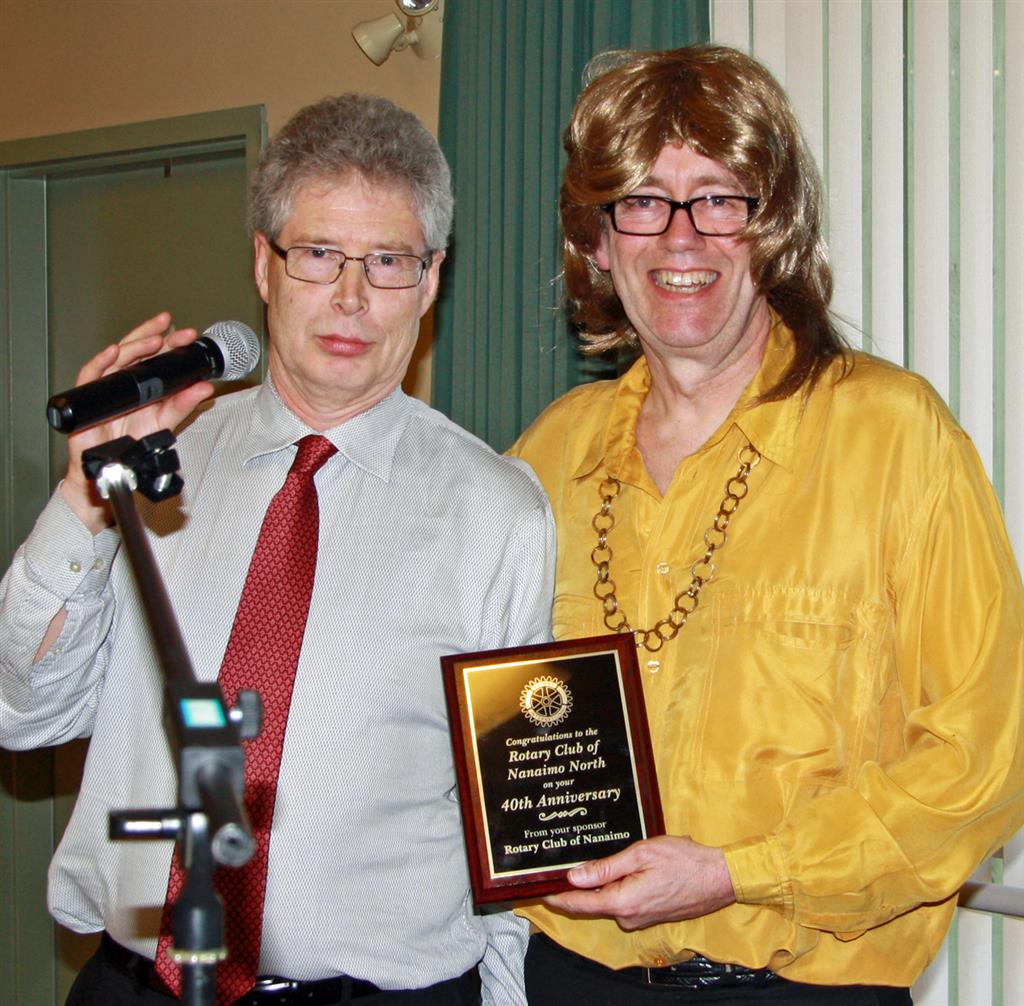
Dave Hammond of Nanaimo RC presents plaque to president Ian.
Dr Daniel Simons is inducted as a member.
Plaque presented to Mike Mah in honour of his many dedicated years of service to our club. |
Club 40th anniversary celebration | Craig Clarke | 2013-03-31 00:00:00Z | 0 | |||||||||||||||||||||||||||||||||||||||||||||||||||||||||
IMF report on reforming fossil fuel subsidies
Posted by Craig Clarke on Mar 28, 2013
Energy subsidies have wide-ranging economic consequences.
Energy subsidies are pervasive and impose substantial
fiscal and economic costs in most regions. On a ―pre-tax‖ basis, subsidies for petroleum products, electricity, natural gas, and coal reached $480 billion in 2011 (0.7 percent of global GDP or 2 percent of total government revenues). The cost of subsidies is especially acute in oil exporters, which account for about two-thirds of the total. On a ―post-tax‖ basis—which also factors in the negative externalities from energy consumption—subsidies are much higher at $1.9 trillion (2½ percent of global GDP or 8 percent of total government revenues). The advanced economies account for about 40 percent of the global post-tax total, while oil exporters account for about one-third. Removing these subsidies could lead to a 13 percent decline in CO2 emissions and generate positive spillover effects by reducing global energy demand. Country experiences suggest there are six key elements
Click here to go to full document on IMF website. |
IMF report on reforming fossil fuel subsidies | Craig Clarke | 2013-03-29 00:00:00Z | 0 | |||||||||||||||||||||||||||||||||||||||||||||||||||||||||
On world water day, UN announced renewed effort to promote sanitation
Posted by Craig Clarke on Mar 24, 2013
Greater international cooperation was critical for the security of fragile and finite global water resources, United Nations Secretary-General Ban Ki-moon said during a high-level event in observance of World Water Day and the beginning of the International Year of Water Cooperation. “We cannot prosper without clean, plentiful freshwater,” Mr. Ban told the General Assembly’s High-level Interactive Dialogue on Water Cooperation. Climate change and growing populations around the world meant that the international community had a responsibility to work to more effectively and efficiently protect and manage water, he said. Appealing to people around the globe to use water intelligently and not waste it so that all could have their fair share, he said water held the key to sustainable development. Yet one in three people already lived in a country suffering moderate to high water stress, he noted, adding that by 2030, nearly half the global population could be facing water scarcity, with demand outstripping supply by 40 per cent. Competition was also growing between farmers and herders, industry and agriculture, town and country, upstream and downstream, as well as across borders. To mark World Water Day 2013, United Nations Deputy Secretary-General Jan Eliasson has announced that he is convening, on behalf of the Secretary-General and the UN, a renewed effort to drive progress on sanitation as we head towards the 2015 target date for the Millennium Development Goals (MDGs). Of the world’s seven billion people, six billion have mobile phones. Yet only 4.5 billion have access to toilets or latrines - meaning that 2.5 billion people, mostly in rural areas, do not have proper sanitation. Unbelievably, 1.1 billion people still defecate in the open. “I am determined to energize action that will lead to results,” said Mr. Eliasson. “I am calling on all actors - government, civil society, business and international organizations - to commit to measurable action and to mobilize the resources to rapidly increase access to basic sanitation. Let’s face it - this is a problem that people do not like to talk about. But it goes to the heart of ensuring good health, a clean environment and fundamental human dignity for billions of people - and achieving the Millennium Development Goals. With just over a thousand days for action before the 2015 MDG deadline, we have a unique window of opportunity to deliver a generational change.” Meeting targets, reducing poverty and disease The MDG target to halve the proportion of people without access to sanitation has helped to raise the profile of the issue, and 1.8 billion people gained access to improved sanitation since 1990, but there is still far to go. By contrast, the MDG target to halve the proportion of people without access to improved sources of water has already been met.
Doing nothing is costly. Every US$1 spent on sanitation brings a US$5.50 return by keeping people healthy and productive. Poor sanitation, on the other hand, costs countries between 0.5 and 7.2 per cent of their GDP. Some 20
|
On world water day, UN announced renewed effort to promote sanitation | Craig Clarke | 2013-03-25 00:00:00Z | 0 | |||||||||||||||||||||||||||||||||||||||||||||||||||||||||
World Bank message on World Water Day
Posted by Craig Clarke on Mar 22, 2013
Will Climate Change Dry Up Water Resources?Without vigorous action on climate change, 43 to 50% of the global population will be living in water-scarce countries by the end of the century.
On World Water Day 2013: 85% of the world’s population lives on the driest half of the land, 783 million people do not have access to clean water, and 2.5 billion do not have access to adequate sanitation. The economic and health effects will be exacerbated by climate change and its effect on water ecosystems.
Of the numerous challenges climate change will present to the world’s poorest citizens, its effects felt through water will be some of the most hard-hitting.
The recent report Turn Down the Heat: Why a 4°C World Must Be Avoided, commissioned by the World Bank, provides a clear picture of the planet in a 4-degree-warmer world and the disruptive impact on agriculture, water resources, ecosystems, and human health. It reveals that between 43 percent and 50 percent of the global population will be living in water-scarce countries by the end of this century. As a consequence, there likely will be increasing aridity and drought in many developing countries.
In the face of this, the theme of this year’s World Water Day on March 22 is the International Year of Water Cooperation. Although water scarcity is often viewed as a source of potential conflict, increasing pressure from a changing climate can also be harnessed to continue a well-established tradition of peaceful cooperation on water issues.
Water at the heart of the adverse effects of climate change
At the World Economic Forum in Davos this year, where a study cited the water supply crises as among the top 5 highest risks by likelihood and impact, World Bank Group President Jim Kim referred to water as “the teeth of climate change.”
 Climate change impacts are often experienced as water-related events, such as flooding, drought, or extreme storms. Extreme weather events associated with a changing climate carry both economic and human costs. Economic losses from recent floods in Thailand, Pakistan, and Australia were devastating: in Thailand alone, losses due to flooding in 2011 resulted in losses of approximately $45 billion, or about 13 percent of GDP.
When considering the human costs of climate change, it will be those least able to adapt – the poor and most vulnerable – that will be hit the hardest.
“Looking forward, it is clear that water management practices of the past are no longer adequate. Transformations in behavior, institutions, and policies will be at the center of governments', companies', and our attention,” said Rachel Kyte, the World Bank’s vice president for sustainable development.
Click here to go to full statement on World Bank site.
|
World Bank message on World Water Day | Craig Clarke | 2013-03-23 00:00:00Z | 0 | |||||||||||||||||||||||||||||||||||||||||||||||||||||||||
Chairman Ron Denham of WASRAG addresses water
Posted by Craig Clarke on Mar 22, 2013
March 22 was World Water Day. Ron Denham, chair of the Water and Sanitation Rotarian Action Group, addresses Rotary’s commitment to water at an independently organized TED event. Ron is a member of the Rotary Club of Toronto Eglinton, Ontario and chair of the Water and Sanitation Rotarian Action Group.
A change is taking place in the way Rotarians approach water and sanitation programs. We realize that the challenge of meeting the Millennium Development Goals is something that no organization can achieve on its own; not even Rotary with its 33,000 clubs and over 1.2 million members. To be successful we need leverage, the leverage that comes from collaboration with others who share our goals. The most notable example of this is the International H2O Collaboration, an alliance between Rotary International and USAID. Rotary clubs in Ghana, the Dominican Republic, and the Philippines are working together to bring safe water and sanitation to hundreds of communities and schools. There are many other examples, less publicized but equally effective. In Uganda, a very successful relationship between World Vision and the Rotary club of Gulu is improving the lives of up to 50,000 villagers through a joint bore-hole and behavior change program. The World Vision project leader says “having local Rotarians explain the importance of hygiene and handwashing is much more compelling than when presented by visiting experts from outside the country.”
|
Chairman Ron Denham of WASRAG addresses water | Craig Clarke | 2013-03-23 00:00:00Z | 0 | |||||||||||||||||||||||||||||||||||||||||||||||||||||||||
Beer & Burger Event with 50/50 Draw
Posted by Craig Clarke on Mar 19, 2013
Bob & Ed preparing for draw. Congratulations to Ken Duncan of Nanaimo, the winner of our Community-Wide 50/50 Draw. Ken's name was drawn at 7:30 Tuesday evening (March 19) and he takes home a prize of $6070.00. Thanks to all of you who bought tickets - you made Rotary a winner as well as the draw also raised $6070.00 for Nanaimo North Rotary. |
Beer & Burger Event with 50/50 Draw | Craig Clarke | 2013-03-20 00:00:00Z | 0 | |||||||||||||||||||||||||||||||||||||||||||||||||||||||||
Rotaract Outstanding Projects Award Winners
Posted by Craig Clarke on Mar 15, 2013
By Arnold R. Grahl Rotary News – 15 March 2013
Rotary International on Facebook
 A student's vision is tested during one of the health camps in Mumbai. The project screened 10,000 students. Photo courtesy Rotaract Club of the Caduceus
Rotaractors in Mumbai, India, most of them medical doctors, are providing vision screenings and comprehensive eye care to thousands of schoolchildren in poor neighborhoods of the city, through a series of medical camps aimed at improving the children’s performance in school. Vision Six by Six, a project of the Rotaract Club of the Caduceus, Mumbai, raised US$15,500 through a variety of creative fundraisers, including a stand-up comedy event, to fund the medical camps. Club members bought supplies in bulk to cut the cost of the screenings to $1 per child, and worked with three nonprofit hospitals to provide surgeries for cataracts and squinting problems. The initiative has been selected as the Rotaract Outstanding Project Awards international winner, one of seven projects singled out for honors during World Rotaract Week, 11-17 March. Representatives of the clubs recognized as international and regional winners will present their projects at the Rotaract Preconvention Meeting in Lisbon, Portugal, in June. Among conditions treated in the camps were refractive errors [vision problems], infections, eye allergies, and Vitamin A deficiency. In the program’s first seven months, 10,000 children were screened and 1,520 of them received some form of correction, from surgery to corrective lenses. “We wanted to do something to help the 15 percent of children in government-run, low-resource schools in Mumbai who have undiagnosed refractory error,” said Pankaj Jethwani, president of the Rotaract Club of the Caduceus. “Young children develop an aversion toward going to school because they can’t see sharp images on the blackboard and don’t realize this is not normal or treatable. Most of the children we treat have never met an eye doctor before.” The Rotaractors received support from their host Rotary Club of Bombay Central in planning, implementing, and evaluating the project and in fundraising for it. For the comedy fundraiser, club members worked with a nonprofit consulting firm to book four of India’s leading stand-up comedians, who performed free of charge. The Rotaractors also used the Internet to solicit donations through crowd-sourcing. In addition to providing medical assistance, the Rotaractors started a teacher training program, enlisting the support of educators to ensure that the children follow through with their care. They found that 92 percent of the children were adhering to their suggested treatment -- for example, wearing their glasses -- two months after the camps. “More children can now see clearly, potentially impacting their future,” says Jethwani. Regional winnersThe regional Rotaract projects recognized during World Rotaract Week are:
|
Rotaract Outstanding Projects Award Winners | Craig Clarke | 2013-03-16 00:00:00Z | 0 | |||||||||||||||||||||||||||||||||||||||||||||||||||||||||
2013 UN Human Development Index - Rise of the South
Posted by Craig Clarke on Mar 14, 2013
The 2013 Human Development Report – "The Rise of the South: Human Progress in a Diverse World" – examines the profound shift in global dynamics driven by the fast-rising new powers of the developing world and its long-term implications for human development. China has already overtaken Japan as the worlds second biggest economy while lifting hundreds of millions of its people out of poverty. India is reshaping its future with new entrepreneurial creativity and social policy innovation. Brazil is lifting its living standards through expanding international relationships and antipoverty programs that are emulated worldwide. But the "Rise of the South" analyzed in the Report is a much larger phenomenon: Turkey, Mexico, Thailand, South Africa, Indonesia and many other developing nations are also becoming leading actors on the world stage. The top country rankings for 2012 are: Click here to go to UN webpage. |
2013 UN Human Development Index - Rise of the South | Craig Clarke | 2013-03-15 00:00:00Z | 0 | |||||||||||||||||||||||||||||||||||||||||||||||||||||||||
End Polio Now
Posted by Craig Clarke on Mar 13, 2013
Bill Gates with Rotarians in Washington DC March 14.
|
End Polio Now | Craig Clarke | 2013-03-14 00:00:00Z | 0 | |||||||||||||||||||||||||||||||||||||||||||||||||||||||||
RI Financial Report for Fiscal Year 2012
Posted by Craig Clarke on Mar 09, 2013
RI received a total of $82.7 million in revenues for the fiscal year through membership dues, RI services, and investments. Revenues were $9.8 million less than budgeted and $23.2 million less than the previous year, primarily as a result of unrealized losses in the market values of RI’s investments due to continued volatility in the global financial markets. RI’s total expenses were $96.3 million, $0.8 million greater than budgeted and $16.2 million greater than the previous year. The operational expenses were spent as planned in fiscal 2012, including spending from the General Surplus Fund on strategic initiatives relating to public relations and strengthening Rotary’s brand. Expenses from services and other activities were $26.2 million, which was $1.7 million higher than budgeted. The Bangkok Convention had 33,104 attendees, compared to the budget for 25,000 registrants. RI’s net assets decreased by $24.1 million as a result of expenditures exceeding revenues by $13.6 million and a $10.5 million charge to record RI’s increased pension obligation over the previous year. Click here to go to RI webpage with full report. |
RI Financial Report for Fiscal Year 2012 | Craig Clarke | 2013-03-10 00:00:00Z | 0 | |||||||||||||||||||||||||||||||||||||||||||||||||||||||||
Report by Australian Climate Commission "The Angry Summer" links extreme weather to climate change
Posted by Craig Clarke on Mar 07, 2013
In 90 days, 123 records were broken throughout Australia. Key facts:
Click here to go to Australian Climate Commission report The Angry Summer |
Report by Australian Climate Commission "The Angry Summer" links extreme weather to climate change | Craig Clarke | 2013-03-08 00:00:00Z | 0 | |||||||||||||||||||||||||||||||||||||||||||||||||||||||||
Promoting Peace Through Service in Vancouver
Posted by Craig Clarke on Mar 07, 2013
Posted on March 5, 2013 By Rotary International By Chris Offer, past governor of District 5040 and a member of the Rotary Club of Ladner On 23 February, I had the pleasure of chairing a Rotary Peace Forum in Vancouver, British Columbia, Canada. This forum and other ones, a response to RI President Sukuji Tanaka’s challenge for districts to hold their own peace forums, allow Rotarians to discuss and debate regional peace issues. Local forums permit Rotarians who cannot attend one of the three Rotary Global Peace Forums to explore new opportunities and bring life to our theme, Peace Through Service. We chose to discuss juvenile bullying and gang violence as local issues, and polio eradication, the reconstruction of Afghanistan, support for the Rotary Peace Centers, and the role of Rotary as peacemaker for our international issues for our forum in Vancouver. We were privileged to begin with a presentation by Canada’s Minister of International Cooperation, Julian Fantino. Through Canada’s Pennies and More for Polio initiative, The Canadian International Development Agency and the Bill & Melinda Gates Foundation are each contributing C$1 for every dollar raised by Canadian Rotarians through March. Fantino announced the great news that both the Canadian Government and the Gates Foundation have agreed to extend the match beyond the initial limit of $1 million. So far through the end of February, $2 million has been raised by Rotarians, with the resulting $6 million all going to help polio eradication. The Government of Canada has now funded in excess of $390 million for polio eradication!! During a panel discussion on juvenile bullying, the chair of the Vancouver school board, a psychologist, an Interactor, and a former superintendent of schools serving as moderator explored the advantages and disadvantaged of allowing anonymous reporting of bullying. Allowing it may generate more reports and stop bullying, but it could also result in frivolous or false reports. Another roundtable agreed that encouraging participating in Rotary’s new generation programs is a fantastic way to combat bullying. A police chief encouraged Rotarians to join other members of the community in taking a stand against gang violence. Targetting known offenders with the help of community support has been effective in reducing violence. RI Director Bryn Styles described Rotary’s role as a peace maker in the world, while past Director Paul Netzel talked about the growing global reputation of Rotary’s Peace Centers and the importance of fundraising. Bob Scott, chair of Rotary’s International PolioPlus Committee, also discussed the role of polio eradication in peace. Even though we sometimes use words associated with war to describe our campaign – fighting, attacking, battling, or even combatting polio – in reality polio eradication promotes peace. The forum concluded with delegates unanimously endorsing a Declaration of Peace. The success of our forum will certainly not be measured in one day. It will have to be gauged in the weeks and months to follow. If Rotary clubs take on new service projects focused on peace locally and internationally, our forum will have been a success. |
Promoting Peace Through Service in Vancouver | Craig Clarke | 2013-03-08 00:00:00Z | 0 | |||||||||||||||||||||||||||||||||||||||||||||||||||||||||
Video of Public lecture by SFU Economist Mark Jaccard on Policy Options to address Climate Change
Posted by Craig Clarke on Mar 06, 2013
Professor Mark Jaccard School of Resource and Environmental Management, SFU spoke recently at the SFU President's Dream Colloquium on Justice Beyond National Boundaries. Dr. Jaccard develops and applies models that assess sustainability policies for energy and materials, and directs the Canadian Industrial Energy End-use Data and Analysis Centre. In 2009 he was named a Fellow of the Royal Society of Canada. Click here for the video of his lecture entitled "Global Warming - Global Justice: Trade-off or win-win?" The United Nations has attempted to achieve a global climate treaty since 1992 without success and humanity is now certain to pass a 2 degree C increase and most likely a 6 degree C increase by the end of this century. The latter will have catastrophic impacts for life on earth; the former may also if runaway climate change has already been triggered. Why have we not achieved a global treaty? Is there any hope of achieving a global treaty? If so, how would it happen and what would it look like? What are the implications for global justice of global warming and the effort to prevent it? This talk explores these issues.
|
Video of Public lecture by SFU Economist Mark Jaccard on Policy Options to address Climate Change | Craig Clarke | 2013-03-07 00:00:00Z | 0 | |||||||||||||||||||||||||||||||||||||||||||||||||||||||||
John K. "Jack" Best elected to RI Board of Directors
Posted by Craig Clarke on Mar 06, 2013
Rotary News -- 22 February 2013  John K. "Jack" Best John K. “Jack” Best, a member of the Rotary Club of Penfield, New York, USA, has been elected RI Director to serve the remainder of the term of RI Treasurer Betsy Demaray, who died 25 January. Best was the alternate selected by the Zone 29 nominating committee. A Rotarian since 1972, he has served RI as regional Rotary Foundation coordinator, district governor and RI training leader. He has chaired presidents-elect and governors-elect training seminars, and has served in a variety of leadership roles in Zone Institutes. He has been active in Rotary Youth Exchange since 1977, and serves as vice-chair of the Rotary Peace Centers Major Gifts Initiative Committee. He and his wife, Kathy, are Major Donors and Bequest Society members. A certified financial planner, Best retired in 2011 and established a consulting firm, Retire in Time: Get Ready for the second half of life. He is a past president of the Estate Planning Council of Rochester, a past director of the Webster Chamber of Commerce, and a past vice president of the Heritage Christian Services Foundation. Best said he served as district governor during the same year as Demaray, and praised her dedication to Rotary. “We all admired her greatly for the leadership she displayed not only in Rotary, but in the way that she confronted the cancers that ultimately took her life,” he said. RI President Sakuji Tanaka has asked Director Ken Boyd to serve as treasurer for the remainder of the year. |
John K. "Jack" Best elected to RI Board of Directors | Craig Clarke | 2013-03-07 00:00:00Z | 0 | |||||||||||||||||||||||||||||||||||||||||||||||||||||||||
Report from UN Environment Program advises that smarter use of nutrients required to reduce environmental damage
Posted by Craig Clarke on Mar 04, 2013
The accelerated use of nitrogen and phosphorous is at the centre of a complex web of development benefits and environmental problems. They are key to crop production and half of the world’s food security is dependent on nitrogen and phosphorous fertilizer use. But excess nutrients from fertilizers, fossil fuel burning, and wastewater from humans, livestock, aquaculture and industry lead to air, water, soil and marine pollution, with loss of biodiversity and fish, destruction of ozone and additional global warming potential. The problems will intensify as the demand for food and bio-fuels increase, and growing urban populations produce more wastewater. This will be at a growing economic cost to countries in the undermining of ecosystems, notably in the costal zone, and the services and jobs they provide. The scientists suggest that a 20% improvement in nutrient use efficiency by 2020 would reduce the annual use of nitrogen fertilizer by 20 million tonnes. They term this global aspirational goal "20:20 for 2020". Their analysis shows how this could provide a net saving worth around 110 (30 to 260) billion pounds Sterling per year. This figure includes implementation costs and financial benefits from reduced nitrogen use and improvements to the environment and human health.
|
Report from UN Environment Program advises that smarter use of nutrients required to reduce environmental damage | Craig Clarke | 2013-03-05 00:00:00Z | 0 | |||||||||||||||||||||||||||||||||||||||||||||||||||||||||
Membership pilot programs show positive results during first year
Posted by Craig Clarke on Mar 04, 2013
reprinted from the Rotary Leader, March. Freedom to determine meeting frequency, membership types, and operations has potential to strengthen clubs Improved club morale, membership growth, and diversity are some of the benefits cited by clubs participating in four pilot programs launched in 2011-12. The pilots — Associate Membership, Corporate Membership, Innovation and Flexibility, and Satellite Club — involve more than 700 clubs and run through 2013-14. At the October RI Board of Directors meeting, pilot clubs’ one-year progress reports were presented. Nearly all of the clubs said participation has had a positive impact, particularly on club morale and friendship. Attracting and keeping members has been another positive outcome. While all the clubs reported membership growth, those participating in the Satellite Club and Associate Membership pilots showed the greatest increase. The number of female members and members younger than 50 increased across all the pilots. While clubs acknowledged that much of the first year was devoted to implementing the pilot, the progress reports show the growing potential of the programs. THE FOUR MEMBERSHIP PILOTS: 1. Associate Membership offers a trial membership without the full rights and responsibilities of active members 2. Corporate Membership gives companies the opportunity to become partners of their community’s Rotary club and appoint up to four employees as active members 3. Innovation and Flexibility provides freedom to create a club that better fits members’ and community needs 4. Satellite Club allows clubs to conduct multiple meetings during a week, each taking place at a different location, day, or time.
|
Membership pilot programs show positive results during first year | Craig Clarke | 2013-03-05 00:00:00Z | 0 | |||||||||||||||||||||||||||||||||||||||||||||||||||||||||
Weather extremes associated with trapping of atmospheric waves
Posted by Craig Clarke on Feb 26, 2013
The world has suffered from severe regional weather extremes in recent years, such as the heat wave in the United States in 2011 or the one in Russia 2010 coinciding with the unprecedented Pakistan flood. Behind these devastating individual events there is a common physical cause, according to scientists at the Potsdam Institute for Climate Impact Research (PIK). The study will be published this week in the US Proceedings of the National Academy of Sciences and suggests that man-made climate change repeatedly disturbs the patterns of atmospheric flow around the globe's Northern hemisphere through a subtle resonance mechanism. An important part of the global air motion in the mid-latitudes of the Earth normally takes the form of waves wandering around the planet, oscillating between the tropical and the Arctic regions. So when they swing up, these waves suck warm air from the tropics to Europe, Russia, or the US, and when they swing down, they do the same thing with cold air from the Arctic,” explains lead author Vladimir Petoukhov. Click here to go to full press release at Potsdam Institute for Climate Research website. |
Weather extremes associated with trapping of atmospheric waves | Craig Clarke | 2013-02-27 00:00:00Z | 0 | |||||||||||||||||||||||||||||||||||||||||||||||||||||||||
As Rotary celebrates its 108th anniversary, gains are being made in the polio campaign
Posted by Craig Clarke on Feb 21, 2013
By Dan Nixon Rotary News -- 21 February 2013
 Rotarians in Toronto, raise a banner outside city hall to publicize the polio eradication effort. Photo by Dave Andrews Rotary’s 108th anniversary on 23 February marks a year of both achievements in the fight to eradicate polio and a stepped-up commitment to finish the job. Worldwide, 222 polio cases were reported in 2012, a little more than one-third of the 650 cases reported in 2011. India marked its second year without polio on 13 January. Overall, the annual incidence of polio has decreased more than 99 percent since the Global Polio Eradication Initiative was launched in 1988. Then polio infected about 350,000 children per year. Although the wild poliovirus is now endemic only in Afghanistan, Pakistan, and Nigeria, it could spread from there back to other countries. Among Rotary’s chief responsibilities in the eradication initiative is advocacy, an increasingly important element of this latter stage of the effort. In addition to contributing more than US$1 billion to the GPEI, Rotary has helped secure over $9 billion from donor governments since the initiative began in 1988. Rotary is boosting its advocacy work in the 200 countries and regions where Rotary clubs exist to encourage every national government to help meet a $700 million shortfall (as of 1 February) in funding the GPEI through 2013. Rotarians in Canada, for example, have used letter-writing campaigns to persuade members of Parliament to support polio eradication. In August 2012, Rotary Foundation Trustee Chair and Past RI President Wilfrid Wilkinson and International PolioPlus Committee Chair Robert Scott, both Canadians, took the lead by writing Prime Minister Stephen Harper. Every Rotarian in the country received a copy of the letter and another that asked them to contact their own members of parliament. Within three days, Wilkinson heard back from Rotarians who had conveyed the message to the prime minister or friends serving in other government positions. In September, the Canadian government announced the Pennies and More for Polio initiative at a high-level side meeting on polio eradication during the United Nations General Assembly. Through the initiative, which runs until 1 March, the Canadian International Development Agency and the Bill & Melinda Gates Foundation are each contributing C$1 to the GPEI for every dollar raised by Canadian Rotarians, up to $1 million. By the end of December, Rotarians had already exceeded the $1 million potential match, with the combined effort generating more than $3 million for the GPEI. “The fundraising by Rotarians allows them to ask for support from the public at large,” says Wilkinson. “The fact that the government of Canada and the Gates Foundation are behind Rotary’s polio eradication effort is a big plus and helps our overall awareness efforts.” Canadian Rotarians are also inviting their parliamentary representatives to Rotary club meetings leading up to Rotary’s anniversary. Rotarians everywhere can join the advocacy effort by talking to their elected officials, business leaders, and friends about polio eradication. Here are three ideas for making effective contacts:
“You have been given the greatest opportunity in history to end this disease,” said Bruce Aylward, assistant director-general for Polio, Emergencies and Country Collaboration at the World Health Organization, speaking at Rotary’s International Assembly in January. “We can only finish with Rotary's leadership.”
|
As Rotary celebrates its 108th anniversary, gains are being made in the polio campaign | Craig Clarke | 2013-02-22 00:00:00Z | 0 | |||||||||||||||||||||||||||||||||||||||||||||||||||||||||
Rotary Webinars on global hunger and malnutrition on March 18, 19
Posted by Craig Clarke on Feb 17, 2013
Webinars offer a convenient way to learn in depth about Rotary right at your computer, without having to travel. RI offers live webinars on key Rotary topics several times a month through GoToMeeting.com . Be sure to check the system requirements before registering.
The World Food Programme reports that one in eight people are chronically hungry or malnourished, making it one of the leading health risks around the world. Rotary clubs and districts have unique opportunities to help reduce food scarcity and malnutrition through well-organized, sustainable service projects. This webinar will highlight resources to start or expand food security initiatives including The Global FoodBanking Network, the Rotarian Action Group for the Alleviation of Hunger and Malnutrition, and the Food Plant Solutions Rotarian Action Group. Guest panelists will also provide examples of sustainable, replicable Rotary club and district food security initiatives from around the world. Join us to learn how your club or district can participate in the global effort of alleviating hunger and malnutrition.
The panellists for each of the webinars: Danielle Figueroa a supporter from Virginia, USA will be participating in the Spanish webinar. Mario Moura a supporter from Portugal will be participating in the Portuguese webinar. Time for webinar is 4 PM Pacific Standard time, March 18, 2013.
Link to register for webinar: https://www1.gotomeeting.com/register/295348416%22%20originalAttribute=%22href%22%20originalPath=%22
It will be repeated March 19 at 8 AM Pacific Standard time; link for this one is : https://www1.gotomeeting.com/register/455406072
System requirements
PC: Windows® 7, Vista, XP, 2003 server or XP, JavaScript enabled. Java 1.6 or higher recommended.
Mac: Mac OS® X 10.7 (Lion®), Mac OS® X 10.6 (Snow Leopard®) or Mac OS® X 10.5 (Leopard®), JavaScript enabled. Java 1.6 or higher recommended. iPad, iPhone, iPod Touch and Android users: Please check the App store or the Android Market for a free GoToMeeting App from Citrix. |
Rotary Webinars on global hunger and malnutrition on March 18, 19 | Craig Clarke | 2013-02-18 00:00:00Z | 0 | |||||||||||||||||||||||||||||||||||||||||||||||||||||||||
The Green Path to Peace
Posted by Craig Clarke on Feb 06, 2013
Declaration at the Rotary Peace Conference in Honolulu, January 27, 2013.
All human beings have the right to live in a state of peace, free from violence, persecution, inequality, and suffering. As leaders and friends of the Rotary movement, united in service, we publicly declare our commitment to creating a more peaceful world. We value our shared environmental resources and encourage the family of Rotary to enlist our global perspective and demonstrate that we are catalysts for peace. By conserving and protecting our planet, we support “The Green Path to Peace.”
We believe that the integration of today’s youth into the peace process is essential to a peaceful future. Each new generation enters into a more globalized, connected, and diverse world than the one before it. Young people increasingly view themselves as global citizens: they are more tolerant of cultural, ethnic, and religious differences, and they are passionate advocates for the principles of justice and equality. As the world becomes smaller, the voices of young people and their calls for peace — amplified by technology and social media — become louder and more compelling.
Click here to read the rest of the declaration on the Rotary International Website.
|
The Green Path to Peace | Craig Clarke | 2013-02-07 00:00:00Z | 0 | |||||||||||||||||||||||||||||||||||||||||||||||||||||||||
Nobel Peace laureate Aung San Suu Kyi receives award at Rotary Global Peace Forum
Posted by Craig Clarke on Feb 06, 2013
By Arnold R. Grahl Rotary News -- 29 January 2013
  Left: Aung San Suu Kyi addresses the second Rotary Global Peace Forum in Honolulu, Hawaii, USA. Photo by Phil Spalding. Right: Folded paper cranes in the House of Friendship. Aung San Suu Kyi, leader of Myanmar's democracy movement and recipient of the Nobel Peace Prize, delivered the keynote address at the Rotary Global Peace Forum held in Honolulu, Hawaii, USA, 25-27 January. She was honored with the Hawaii Peace Award for her longstanding pursuit of democracy through peaceful, nonviolent means. After 20 years of house arrest, Suu Kyi was released in November 2010, and last year was elected to Myanmar's parliament as a member of the pro-democracy opposition party. Suu Kyi told the attendees that absolute peace is an unattainable goal, but one that we must nevertheless continue to endeavor toward. She said that democratic institutions are necessary to guarantee human rights. “The kind of peace we want is very simple. We want permanent peace,” said Suu Kyi. She also noted that young people have an important role to play. The Honolulu forum emphasized the importance of getting youth involved in the peace process. “We must help our young people so that they may be able to take over our task of nation building,” Suu Kyi said. “We depend on our young people to take us forward.” (Watch a video of the address) |
Nobel Peace laureate Aung San Suu Kyi receives award at Rotary Global Peace Forum | Craig Clarke | 2013-02-07 00:00:00Z | 0 | |||||||||||||||||||||||||||||||||||||||||||||||||||||||||
Hotdogs and 50/50 ticket sales at Chase River Country Grocer
Posted by Craig Clarke on Feb 04, 2013
Ed and some of the volunteers on Saturday February 2. Photo by Bob Lasota. |
Hotdogs and 50/50 ticket sales at Chase River Country Grocer | Craig Clarke | 2013-02-05 00:00:00Z | 0 | |||||||||||||||||||||||||||||||||||||||||||||||||||||||||
Bill Gates says we can do more to help world's children
Posted by Craig Clarke on Jan 29, 2013
Click here to go to video interview on the Bill & Melinda Gates Foundation |
Bill Gates says we can do more to help world's children | Craig Clarke | 2013-01-30 00:00:00Z | 0 | |||||||||||||||||||||||||||||||||||||||||||||||||||||||||
Financial Transparency is Needed for the Welfare of the Developing World
Posted by Craig Clarke on Jan 26, 2013
Raymond Baker is the Director of Global Financial Integrity and was one of the excellent keynote speakers at the District 5020 Conference in Victoria last June. Despite massive amounts of foreign aid streaming into transitional economies, many countries fail to develop to the point that they no longer need aid. Baker argues that one reason for this is that illicit capital flows inhibit a country’s ability to grow out of poverty. For every $1 poor nations receive in foreign aid, an estimated $10 in dirty money flows illicitly abroad. With such great amounts of capital draining from weak economies there is little hope of significant development or of curtailing poverty. Without mechanisms to curtail illicit cash flows, the benefits of foreign aid are undermined and the potential for drug cartels and terrorist groups using the banking system to their advantage is greatly increased. It is estimated that 18 million people around the world die annually from economic deprivation. He noted that the shadow financial system handles approximately half of international financial flows. Lack of financial transparency in many wealthy countries allows this to continue. More than half of the illicict flow is due to commercial tax evasion. Crime, corruption, and tax evasion cost the developing world $858.8 billion in 2010, just below the all-time high of $871.3 billion set in 2008—the year preceding the global financial crisis. Developing countries lost $5.86 trillion in illicit financial flows from 2001-2010. Mr. Baker is the author of Capitalism’s Achilles Heel: Dirty Money and How to Renew the Free-Market System, published by John Wiley & Sons and cited by the Financial Times as one of the “best business books of 2005.” The book demonstrates that the problem of illicit financial flows, and the financial infrastructure supporting it, is enormous. For example, some 70 tax havens and secrecy jurisdictions are in operation across the globe and millions of dummy corporations shield owner’s identities. And the scourge of dirty money is getting worse. Indeed, global corruption has not diminished despite ten years of effort, assets now stashed in tax havens around the globe are estimated at $11.5 trillion, and non-bank cash deposits outside the country of origin are rising. Baker maintains that "transparency-based reform accomplishes far more, far faster, than regulation and oversight." He has three major recommendations: 1) eliminate secrecy of ownership; 2) require cross-border financial institutions and multinational corporations to report their results on a country-by country basis; and 3) jurisdictions should automatically exchange tax information across borders (as is done between Canada and the USA, for example). Baker suggests that the updated UN Millenium Goals include recommendations to curb the shadow financial system and reduce economic deprivation. Global Financial Integrity was launched in September 2006 following the publication of his book.
|
Financial Transparency is Needed for the Welfare of the Developing World | Craig Clarke | 2013-01-27 00:00:00Z | 0 | |||||||||||||||||||||||||||||||||||||||||||||||||||||||||
Rotary's leadership is considered vital to eradicating Polio
Posted by Craig Clarke on Jan 25, 2013
By Daniela Garcia Rotary News -- 16 January 2013
 Bruce Aylward, assistant director-general for Polio, Emergencies and Country Collaboration at the World Health Organization (WHO), delivers a polio update during the International Assembly 15 January. Rotary International/Monika Lozinska A polio-free India is proof that Rotary is able to tackle the world’s most difficult health challenges, according to Bruce Aylward, assistant director-general for Polio, Emergencies and Country Collaboration at the World Health Organization (WHO).
Addressing the 2013 International Assembly in San Diego, California, USA, Aylward praised Rotary’s work in bringing the world to the threshold of polio eradication, but reminded the incoming district governors that it will take their leadership to complete the job. Aylward referred to the recent killing of health workers in Pakistan and said that WHO is working to leverage its broad support in the Islamic community to provide safety for volunteers and aid workers. “The eradication program is continuously being put back on track,” he said. “I can assure you that just as we have regrouped and restrategized before, we will continue to do so in Pakistan.” Discussing the successes of the Global Polio Eradication Initiative (GPEI) — in which Rotary and WHO collaborate with UNICEF and the U.S. Centers for Disease Control and Prevention — Aylward cited India, which has not had a reported case of polio in two years. In February, WHO removed India from the list of polio-endemic countries, disproving the experts who had maintained that polio could not be eradicated there. And if continuing tests of polio cases recorded through 13 January continue to yield negative results, WHO will declare that India has interrupted transmission of indigenous wild poliovirus for the second consecutive year. Polio remains endemic in only three countries: Afghanistan, Nigeria, and Pakistan. But because nonendemic countries remain at risk for cases imported from those three, immunization must continue everywhere to ensure that polio is eradicated worldwide. Rotary’s chief responsibilities in GPEI include advocacy, an increasingly important role in this latter stage of the campaign. In addition to contributing more than US$1 billion to the initiative since 1985, Rotary has helped solicit over $9 billion in support from donor governments. Such advocacy is crucial to finishing the job, as GPEI faces a funding gap of $700 million this year. Aylward emphasized that polio eradication is well within reach, and urged Rotarians to work together to reach that goal. “You have been given the greatest opportunity in history to end this disease,” Aylward said. “We can only finish with Rotary's leadership.” |
Rotary's leadership is considered vital to eradicating Polio | Craig Clarke | 2013-01-26 00:00:00Z | 0 | |||||||||||||||||||||||||||||||||||||||||||||||||||||||||
Christine Lagarde, Managing Director of the IMF, at the Davos World Economic Forum
Posted by Craig Clarke on Jan 24, 2013
A New Global Economy for a New Generation I know we are all still deeply concerned with the state of the global economy. Where do we stand? Well, thanks to policy actions taken over the past year, we have seen some respite and some stabilization in financial conditions. But it is not all good news. The recovery is still weak, and uncertainty is still high. As the IMF announced just a few hours ago in our As I have said recently and it bears repeating: we have avoided collapse, but we need to guard against any relapse. 2013 will be a make-or-break year. We all know the imperative—keep up the momentum on the policy actions needed to put uncertainty to rest. What does that mean? For the Euro Area, it means making firewalls operational; pushing ahead with banking union; continuing with the difficult but necessary fiscal adjustment at the country level; and supporting demand, especially with further monetary easing. For the United States, it means pulling together in the national interest and avoiding further avoidable policy mistakes, such as failing to agree on increasing the debt ceiling—and, for the United States and Japan, reaching agreement on medium-term debt reduction. For the emerging and developing economies, faring better despite their concerns about continued turmoil and lack of decisive action in the advanced economies, conditions differ greatly. Some are more vulnerable than others, but they need to rebuild the policy space that has been used up in alleviating the crisis in recent times. So these are the short-term priorities as I see them.
|
Christine Lagarde, Managing Director of the IMF, at the Davos World Economic Forum | Craig Clarke | 2013-01-25 00:00:00Z | 0 | |||||||||||||||||||||||||||||||||||||||||||||||||||||||||
Project In Nepal by Duncan Rotarians
Posted by Craig Clarke on Jan 22, 2013
This was forwarded by Deryk Norton of Mid Island Group from Joe Simpson of Duncan Rotary.
The Vimeo link for some Nepal slideshows set to local Himalayan background music tracks, that I'm starting to upload from photos taken last March, including one for the Chimkhola project village visit.
The latest upload is about our trek up to Chimkhola village through some stunning landscapes |
Project In Nepal by Duncan Rotarians | Craig Clarke | 2013-01-23 00:00:00Z | 0 | |||||||||||||||||||||||||||||||||||||||||||||||||||||||||
Rotary Club of Vancouver Celebrates Centennial in April
Posted by Craig Clarke on Jan 21, 2013
The Rotary Club of Vancouver was the first Rotary Club in British Columbia, chartered in April of 1913. It has operated continuously and is celebrating its 100 anniversary. Rotary has grown, and today there are more than 40 Rotary Clubs operating throughout Metro Vancouver (and over 145 clubs throughout British Columbia), offering opportunities for participation in service projects and activities that contribute greatly to the good of our community and the world. Rotary International President Sakuji Tanaka will be the keynote speaker to the Vancouver Board of Trade, British Columbia's largest business organization on Tuesday, April 16 Speaker Topic: Peace Through Service - Celebrating 100 Years of Rotary in BC
Rotary International president Sakuji Tanaka will visit Vancouver, and will share the story of Rotary's role in the world today, including reasons why business needs to be involved in such a service organization in the 21st century.
|
Rotary Club of Vancouver Celebrates Centennial in April | Craig Clarke | 2013-01-22 00:00:00Z | 0 | |||||||||||||||||||||||||||||||||||||||||||||||||||||||||
Rotary and Computer Assisted Literacy Solution in Vancouver schools
Posted by Craig Clarke on Jan 21, 2013
DISCOVER CALS: The Computer Assisted Literacy Solution
CALS (Computer Assisted Literacy Solution) is a Rotary International Program designed to help struggling readers around the world. Discover CALS through the eyes of students, educators and parents.
It’s Back to School...
This 12 minute film takes you into the classroom of one Vancouver school, to see how CALS really works and why it is so beneficial. As parent Clare Palmer expresses in the film, “It’s amazing. They have been able to work at their own rate...it’s rewarding, they excel!”
With 1 in 4 children unable to read at grade level, CALS is ensuring a better future for those children.
Directed by Tiffany Munro
Run Time Approx: 13 min |
Rotary and Computer Assisted Literacy Solution in Vancouver schools | Craig Clarke | 2013-01-22 00:00:00Z | 0 | |||||||||||||||||||||||||||||||||||||||||||||||||||||||||
Mid-Island Rotarians in Guatemala
Posted by Craig Clarke on Jan 17, 2013
At a latrine site. Six Rotarians from the Mid-Island area left for La Cruz, Guatemala on January 12th. The purpose of the trip is, to help improve the health and safety of a village of indigenous Mayan people in the Lake Atitlan area of Guatemala. The members are John, Mary, Maura, Patrick, David and Ron, hailing from Qualicum Beach, Nanaimo Daybreak and Ladysmith Rotary Clubs. Click here to read their blog |
Mid-Island Rotarians in Guatemala | Craig Clarke | 2013-01-18 00:00:00Z | 0 | |||||||||||||||||||||||||||||||||||||||||||||||||||||||||
Rotary receives 2.5 Million Charity Airmiles from United Airlines
Posted by Craig Clarke on Jan 17, 2013
Rotary International News -- 8 January 2013
Thank you to all those at United for their generosity and the opportunity to participate in United's 10 Million Charity Miles Giveaway. And thank you to everyone who voted for us. We couldn't have done it without your participation and persistence. For the miles giveaway, we officially came in second place and will receive 2,501,338 charity miles from United. Rotarians will use the miles for humanitarian missions, such as transporting sick children to hospitals and National Immunization Days for polio eradication. Last year, Rotary received 2,488,070 charity miles from the giveaway. Miles aren't used for travel for RI staff or Rotary senior leaders. We congratulate the Shriners Hospitals for Children, which took first place. |
Rotary receives 2.5 Million Charity Airmiles from United Airlines | Craig Clarke | 2013-01-18 00:00:00Z | 0 | |||||||||||||||||||||||||||||||||||||||||||||||||||||||||
Notice of Motion on $1250 contribution to Abesim Library project
Posted by Craig Clarke on Jan 15, 2013
The Club's World Community Service Committee and the Executive have each approved and now recommend for club membership approval our participation in the following Daybreak Club WCS Project: Project name - Abesim Library Project A vote on the motion will be conducted at the regular meeting on January 29, 2013. Ken Hammer's presentation to the club originally scheduled for our January 8th meeting was postponed when the meeting was cancelled due to snow. It is now scheduled for our February 12th meeting.
Project Summary This Project will service the community of approximately 8,000 residents and the adjacent school of 300 students. The learning of the community will be enhanced significantly by having access to books on school subjects as well as books related to environmental education. |
Notice of Motion on $1250 contribution to Abesim Library project | Craig Clarke | 2013-01-16 00:00:00Z | 0 | |||||||||||||||||||||||||||||||||||||||||||||||||||||||||
Global warming has increased monthly heat records by a factor of five
Posted by Craig Clarke on Jan 13, 2013
01/14/2013 - Monthly temperature extremes have become much more frequent, as measurements from around the world indicate. On average, there are now five times as many record-breaking hot months worldwide than could be expected without long-term global warming, shows a study now published in Climatic Change. In parts of Europe, Africa and southern Asia the number of monthly records has increased even by a factor of ten. 80 percent of observed monthly records would not have occurred without human influence on climate, concludes the authors-team of the Potsdam Institute for Climate Impact Research (PIK) and the Complutense University of Madrid.
“The last decade brought unprecedented heat waves; for instance in the US in 2012, in Russia in 2010, in Australia in 2009, and in Europe in 2003,” lead-author Dim Coumou says. “Heat extremes are causing many deaths, major forest fires, and harvest losses – societies and ecosystems are not adapted to ever new record-breaking temperatures.” The new study relies on 131 years of monthly temperature data for more than 12.000 grid points around the world, provided by NASA. Comprehensive analysis reveals the increase in records.
Click here to go to full press release at the Potsdam Institute for Climate Research. |
Global warming has increased monthly heat records by a factor of five | Craig Clarke | 2013-01-14 00:00:00Z | 0 | |||||||||||||||||||||||||||||||||||||||||||||||||||||||||
Grace Kamya elected president of Nanaimo Rotaract Club
Posted by Craig Clarke on Jan 10, 2013
Newly elected Rotaract President Grace Kamya is greeted by president Bev Hilton, Oceanside; president Ian; Denise Larson, Daybreak; Joan Ryan, Nanaimo, PE Glynn Currie, Lantzville, TJ, Interact.
|
Grace Kamya elected president of Nanaimo Rotaract Club | Craig Clarke | 2013-01-11 00:00:00Z | 0 | |||||||||||||||||||||||||||||||||||||||||||||||||||||||||
Vocational training team shares expertise with Aga Khan University faculty in Kenya
Posted by Craig Clarke on Jan 07, 2013
By Dan Nixon
Rotary News -- 28 December 2012  VTT members and AKU nursing faculty review medical records at a health center near Nairobi. A six-month follow-up survey of AKU’s nursing faculty is planned in January to assess the impact of the assistance provided by the VTT. The university and VTT are also exploring a return visit by the team to continue mentoring the faculty. Photo by Samwel Nyakondo, Aga Khan University Members of a vocational training team (VTT) from California, USA, shared their expertise in nursing education with faculty of Aga Khan University’s Advanced Nursing Program earlier this year. Funded by a Rotary Foundation packaged grant, which is carried out with a strategic partner, the training team visited the campus in Nairobi, Kenya, 1-20 June. The AKU program provides practicing nurses with opportunities to study while working full time. By nurturing a cadre of highly skilled health professionals and developing effective nursing leadership, the program aims to improve the health of the community as a whole. Before the training began, the VTT of nurse educators from District 5340 spent four days with AKU’s nursing faculty, visiting clinics and discussing the faculty’s educational needs and goals. The two-week training focused on interactive teaching practices that promote student learning. VTT members used a range of training techniques, including simulation of actual medical problems, case studies, learning games such as Jeopardy, storytelling, journaling, and student feedback through one-minute written papers. The team also conducted a two-day workshop for nurse educators from other institutions. |
Vocational training team shares expertise with Aga Khan University faculty in Kenya | Craig Clarke | 2013-01-08 00:00:00Z | 0 | |||||||||||||||||||||||||||||||||||||||||||||||||||||||||
Club founder Bruce Coleman died December 22
Posted by Craig Clarke on Jan 01, 2013
Bruce with Citation awarded June 2011 Bruce Coleman died December 22, 2012. He was 99. Bruce was born at LeRoy Saskatchewan on July 26th. 1913. He started his commercial life as a grain buyer in Saskatchewan and Manitoba. He then became a salesman for Kelly Douglas, wholesale grocers and came to Nanaimo to manage their branch in 1952. He joined the Rotary Club of Nanaimo in 1952 and was elected president for the year 1968 - 69. Bruce was well known for his passion for organizing new Rotary Clubs. First was the Ladysmith Club. Nanaimo North was second, in October, 1972 with Bruce as a charter member. He also helped in the founding of the clubs in Comox, Campbell River, Parksville, Parksville Daybreak and Nanaimo Daybreak. Bruce was a staunch supporter of Rotary Foundation as evidenced by the fact that he was not only a multiple Paul Harris Fellow but had arranged for Paul Harris Fellowships for other family members. Bruce was a Rotary Foundation Benefactor and along with his wife Doris were major donors to Rotary Foundation. He was named Rotarian of the Year 3 times between 1974 and 2002, a testament to his continued passion for service. It is no wonder he was known as "Mr Rotary". He had a record of perfect attendance for 58 years and vigorously encouraged other members to follow his example. Our club hosted a lunch at the Coast Bastion Inn in June 2011 to honour his many years of service to Rotary. The attached photo was taken at this event.
Click here to go to obituary in the Nanaimo Daily News. A service will be held at St Andrews Presbyterian Church at 2 PM on Saturday January 5th. |
Club founder Bruce Coleman died December 22 | Craig Clarke | 2013-01-02 00:00:00Z | 0 | |||||||||||||||||||||||||||||||||||||||||||||||||||||||||
Assistant Governor Barry Sparkes awarded Queen's Jubilee Medal
Posted by Craig Clarke on Dec 20, 2012
Photo by Chris Bush, Nanaimo News Bulletin. Pamela Mar, Bill McGuire, Peter Thomas and Barry Sparkes pose for photos with MLA Leonard Krog and RCMP Corporal Paul Minkley after being presented with Queen’s Diamond Jubilee medals at the Coast Bastion Inn on December 14th. The medal recipients were recognized for more than 40 years of service each to Canada and their community in fields ranging from the military to local heritage, sports and charity organizations.
|
Assistant Governor Barry Sparkes awarded Queen's Jubilee Medal | Craig Clarke | 2012-12-21 00:00:00Z | 0 | |||||||||||||||||||||||||||||||||||||||||||||||||||||||||
Margaret Pierce has books available in Lantzville
Posted by Craig Clarke on Dec 17, 2012
I had a flood in the basement and in the restoration process I am culling my undamaged favorite books, the bulk of them novels from the Lantzville Probus book club. There is, also, a bunch of old travel guides There are children's books to read to kids or they can read themselves- according to age There are some course books from VIU in philosphy, western civilzation etc. My question is, do you want any of them? If so what catagory? Can you send a muscle man to take what you want from my house in Lantzville? (I will find a muscle man from the restoration crew to get them into the carport.) My intent, if you do not want them, is to take them to the recycle site and recycle whatever I think will not be of interest, or let them do it. I need this done by Jan 6th if you want to go through them, actually the sooner is the better. I would appreciate an answer at your earliest conveninece, that I may proceed 'while the iron is hot'! Thanks. Margaret Phone (250) 390-4893 |
Margaret Pierce has books available in Lantzville | Craig Clarke | 2012-12-18 00:00:00Z | 0 | |||||||||||||||||||||||||||||||||||||||||||||||||||||||||
Your votes help Rotary win Charity Air miles
Posted by Craig Clarke on Dec 06, 2012
This is an annual contest. Last year Rotary was awarded approx 2.5 million miles by receiving the second largest number of votes. Rotary is in 3rd place right now, but you can vote now and every day until Dec 25th and move Rotary up to 1st place which is 10 million miles. Go to the following website and click on the Rotary Wheel. (You may vote daily, see below). http://10millioncharitymiles.com/charity/39 The 10 Million Charity Miles program begins at midnight, December 6, 2012 and ends at 11:59 p.m., December 25, 2012. During this time frame, you may vote for one of the listed charities to increase the percentage of the miles that they receive. You may vote once per day. Membership in the MileagePlus program is not required to vote for your charity. Each charity is guaranteed to receive a minimum of 25,000 miles. The donated miles will be deposited by January 31, 2013
Charity Miles provide transportation for Rotary International's Gift of Life surgical teams. Last year, these teams traveled to Haiti and El Salvador, where volunteer doctors and nurses from the United States performed life-saving heart surgery on many children and provided important training for local doctors. Charity Miles also help Rotary International transport Iraqi children with birth defects to U.S. hospitals for treatments they cannot receive at home. Charity Miles are also used to send volunteers to help immunize children during National Immunization Days. And, Charity Miles provide airfare for financially disadvantaged Rotary youth exchange students so they may live and study overseas for one school year, enabling 8,000 secondary school students to study abroad in 80 countries around the world.
|
Your votes help Rotary win Charity Air miles | Craig Clarke | 2012-12-07 00:00:00Z | 0 | |||||||||||||||||||||||||||||||||||||||||||||||||||||||||
Rotarians for Family Health and Aids Prevention
Posted by Craig Clarke on Nov 29, 2012
Marion was a speaker at the District 5020 conference in Victoria last June. Fighting AIDS through the power of Rotarians Posted on November 28, 2012 by Rotary International

Marion Bunch By Marion Bunch, Rotarians for Family Health and AIDS Prevention (formerly RFFA)
World AIDS Day 1 December holds special meaning to me. I lost my second born child, Jerry, to AIDS early in the American epidemic (1994). At that time, the disease was so stigmatizing, I felt quite lonely not being able to discuss Jerry’s illness with anyone outside my family. I never thought I’d do anything about it until one day, three years after his death, I felt a tap on the shoulder and a voice in my ear said “mom, get up and get going, you haven’t done anything, and it’s been three years.”
EpiphanyIt was an epiphany of a moment that completely altered the course of my life.
In 1998, I was propelled into taking the first step to begin a project in my Rotary club. The fact that our club president said ‘yes’ to my idea made me a passionate Rotarian for life! From the start, I realized that finding partner organizations in the field of HIV/AIDS would be important because Rotarians are not AIDS experts. I created a partnership program with a local AIDS service organization whereby together, we provided AIDS education in the middle schools of Georgia. This sobering program has now been seen by 450,000 students!
My interest ultimately took me to Africa in 2001, where I quickly realized the huge disparities between America and the developing world. I was struck by the hugeness and the filth of the slums in places like Nairobi, Kenya. I realized that there are 20 million orphans living there now because their parents died of the consequences of AIDS. They have little to eat, they are often shunned by their community, and they drop out of school because they don’t have the funds to pay the schools fees or get uniforms.
I was also amazed at the reception given me in African countries by fellow Rotarians who were so glad to welcome an American Rotarian woman who was interested in working on this issue. The year was 2001. I ultimately began a Rotarian Action Group recognized by the RI Board of Directors in 2004. It was so rewarding to meet thousands of Rotarians out in the world that had an interest in doing something about this disease!
|
Rotarians for Family Health and Aids Prevention | Craig Clarke | 2012-11-30 00:00:00Z | 0 | |||||||||||||||||||||||||||||||||||||||||||||||||||||||||
Citrus sale at Country Club Mall
Posted by Craig Clarke on Nov 24, 2012
See more pictures in photo album |
Citrus sale at Country Club Mall | Craig Clarke | 2012-11-25 00:00:00Z | 0 | |||||||||||||||||||||||||||||||||||||||||||||||||||||||||
The Club 50/50 Draw is launched
Posted by Ed Poli on Nov 21, 2012
Ed gave an overview of our 50/50 draw campaign at the November 20. meeting. Details are outlined below. Nanaimo North 50/50 Draw Summary · We now have the license for our 50/50 draw (BC Gaming Event License #48868) · Tickets are $5.00 each and we can sell 4000 of them for gross receipts of $20.000.00 and a prize of $10,000.00 · The draw will take place at 7:30 PM on Tuesday March 19, 2013 at the Old City Station Pub at a Rotary North Beer and Burger event. · Members of the Rotary Club of Nanaimo North are not eligible to win but their friends and family members are definitely eligible |
The Club 50/50 Draw is launched | Ed Poli | 2012-11-22 00:00:00Z | 0 | |||||||||||||||||||||||||||||||||||||||||||||||||||||||||
Canadians join the Arch Klumph Society
Posted by Craig Clarke on Nov 20, 2012
Posted by Reid Asselstine on Nov 01, 2012 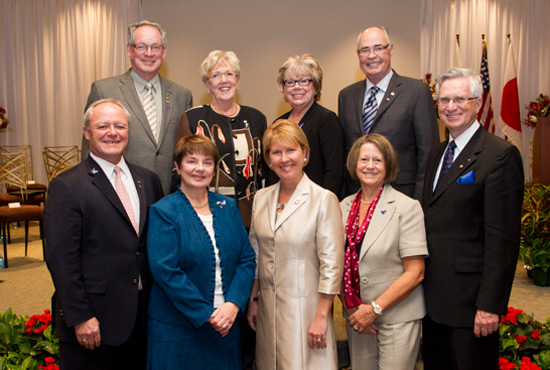 Five couples, and a Canadian who generously supported The Rotary Foundation’s work in basic education and literacy, were inducted into the Arch C. Klumph Society during a Canada Day ceremony on October 25, 2012. The society honors those who give at least US$250,000 to the Foundation. Five couples, and a Canadian who generously supported The Rotary Foundation’s work in basic education and literacy, were inducted into the Arch C. Klumph Society during a Canada Day ceremony on October 25, 2012. The society honors those who give at least US$250,000 to the Foundation.Canada is home to more than 25,000 Rotarians. The Rotary Club of Winnipeg, Manitoba, chartered in 1910, was the first club outside of the United States. Five RI presidents have come from Canada, including Wilfrid J. Wilkinson, who is currently serving as Foundation trustee chair.
“This is a very proud day for Canadian Rotarians, and I am thrilled to be a part of it,” said Wilkinson. “It is our honor to recognize our inductees’ service and to gather as one, the family of Rotary, to applaud their efforts.”
General Secretary John Hewko added, “Rotary has had a strong presence in Canada since its earliest days, and I am so pleased that we have the chance to gather today to recognize some Canadians who have done remarkable work in the name of our Rotary Foundation.”
Congratulations to Bryn and Randy Styles, Chris and Penny Offer, Sandy and Jane MacKay, Jennifer Jones and Nicholas Krayacich, Wayne and Bernice Chesley, and Laverna Dollimore. |
Canadians join the Arch Klumph Society | Craig Clarke | 2012-11-21 00:00:00Z | 0 | |||||||||||||||||||||||||||||||||||||||||||||||||||||||||
Openings for Rotary mission to Santa Cruz Guatemala
Posted by Rod Smith on Nov 19, 2012
Hi, Rod.
Our service project in Guatemala is pretty well organized at this point. We will assist and support a small Mayan village called Santa Cruz on the shore of Lake Atitlan with the installation of latrines and vented stoves as well as gather information and ideas for future projects. We will spend three weeks there in January/February 2013, with tentative dates around January 12th to February 3rd.
There are still a couple of vacancies in our team, and I wondered if anybody from your club would be interested in joining us. It would be ideal for a couple, as there are lots of opportunities for the ladies to become involved with the village women, with cooking, crafts, etc. rather than installing stoves and working on building latrines!!
We'll be well supported by the people from the Oak Bay club and a couple of other NGOs that are on the ground there. There is a hotel nearby where we can stay for very little cost , and I'm estimating the airfare at about $1000 return. The visit also involves a few days of guided sightseeing around the area. This would be an excellent trip for somebody who has never been on an international service project before.
Please get back to me if you need more information or if a visit to your club would be a good idea!
Cheers!
Patrick Maguire
Nanaimo Daybreak Rotary Club
|
Openings for Rotary mission to Santa Cruz Guatemala | Rod Smith | 2012-11-20 00:00:00Z | 0 | |||||||||||||||||||||||||||||||||||||||||||||||||||||||||
Report prepared for the World Bank examines the risks of a 4 degree hotter world in 2100
Posted by Craig Clarke on Nov 18, 2012
WASHINGTON, November 18, 2012 – "The world is barreling down a path to heat up by 4 degrees at the end of the century if the global community fails to act on climate change, triggering a cascade of cataclysmic changes that include extreme heat-waves, declining global food stocks and a sea-level rise affecting hundreds of millions of people, according to a new scientific report released today that was commissioned by the World Bank. All regions of the world would suffer – some more than others – but the report finds that the poor will suffer the most.
Turn Down the Heat, a snapshot of the latest climate science prepared for the World Bank by the Potsdam Institute for Climate Impact Research (PIK) and Climate Analytics, says that the world is on a path to a 4 degree Celsius warmer world by end of this century and current greenhouse gas emissions pledges will not reduce this by much.."
The global mean temperature has continued to increase and is now about 0.8°C above pre-industrial levels. While a global warming of 0.8°C may not seem large, the report notes that many climate change impacts have already started to emerge, and the shift from 0.8°C to 2.0°C warming or beyond will pose much larger challenges. But a global mean temperature increase of 4°C approaches the known historic level of change for the planet, which harks back to the last ice age when much of central Europe and the northern United States were covered with kilometers of ice and global mean temperatures were about 4.5°C to 7°C lower. And this contemporary human-induced climate change, the report notes, is occurring over a century, not millennia. Click here to go to press release on the world bank website.
|
Report prepared for the World Bank examines the risks of a 4 degree hotter world in 2100 | Craig Clarke | 2012-11-19 00:00:00Z | 0 | |||||||||||||||||||||||||||||||||||||||||||||||||||||||||
November 19 is World Toilet Day
Posted by Craig Clarke on Nov 18, 2012
In 2001, the World Toilet Organization declared 19th November World Toilet Day (WTD). Today it is celebrated in over 19 countries with over 51 events being hosted by various water and sanitation advocates.
World Toilet Organization created WTD to raise global awareness of the struggle 2.6 billion face every day without access to proper, clean sanitation.WTD also brings to the forefront the health, emotional and psychological consequences the poor endure as a result of inadequate sanitation.
WTD's popularity is gaining momentum, and in 2010 there were 51 events spanning 19 countries. Our "Big Squat" campaign generated 24 "Big Squats" globally and in Singapore over 600 squatters joined the cause in six locations island-wide. WTO would love to see our day become "The" event that represents the sanitation crisis globally, and we strongly encourage our members, volunteers, the community, media and partners to get behind our cause and support our day.
The 12th World Toilet Summit will be held in Durban South Africa in December.
|
November 19 is World Toilet Day | Craig Clarke | 2012-11-19 00:00:00Z | 0 | |||||||||||||||||||||||||||||||||||||||||||||||||||||||||
Rotary credit card helps the Foundation
Posted by Craig Clarke on Nov 17, 2012
Rotary International News -- 20 July 2012
Thanks to those who used the Rotary International credit card, we earned more than US$400,000 to benefit polio eradication and other programs in 2012. In Japan, the money earned benefited the earthquake/tsunami reconstruction effort.
In the Rotary year that ended 30 June, the card programs global royalty earnings exceeded $400,000. The individual totals by country are as follows:
|
Rotary credit card helps the Foundation | Craig Clarke | 2012-11-18 00:00:00Z | 0 | |||||||||||||||||||||||||||||||||||||||||||||||||||||||||
Lloyd Sproule 1922 2012
Posted by Craig Clarke on Nov 15, 2012
|
Lloyd Sproule 1922 2012 | Craig Clarke | 2012-11-16 00:00:00Z | 0 | |||||||||||||||||||||||||||||||||||||||||||||||||||||||||
Energy and the wealth of nations - understanding the biophysical economy
Posted by Craig Clarke on Nov 11, 2012
by Charles A. S. Hall and Kent Klitgaard. Published by Springer. 442 pages. For the past 150 years, economics has been treated as a social science in which economies are modeled as a circular flow of income between producers and consumers. In this "perpetual motion" of interactions between firms that produce and households that consume, little or no accounting is given of the flow of energy and materials from the environment and back again. In the standard economic model, energy and matter are completely recycled in these transactions, and economic activity is seemingly exempt from the Second Law of Thermodynamics. As we enter the second half of the age of oil, and as energy supplies and the environmental impacts of energy production and consumption become major issues on the world stage, this exemption appears illusory at best. In Energy and the Wealth of Nations, concepts such as energy return on investment (EROI) provide powerful insights into the real balance sheets that drive our "petroleum economy." Hall and Klitgaard explore the relation between energy and the wealth explosion of the 20th century, the failure of markets to recognize or efficiently allocate diminishing resources, the economic consequences of peak oil, the EROI for finding and exploiting new oil fields, and whether alternative energy technologies such as wind and solar power meet the minimum EROI requirements needed to run our society as we know it. This book is an essential read for all scientists and economists who have recognized the urgent need for a more scientific, unified approach to economics in an energy-constrained world, and serves as an ideal teaching text for the growing number of courses, such as the authors'' own, on the role of energy in society.
Click here to go to publisher's flyer. |
Energy and the wealth of nations - understanding the biophysical economy | Craig Clarke | 2012-11-12 00:00:00Z | 0 | |||||||||||||||||||||||||||||||||||||||||||||||||||||||||
Interact Clubs celebrate 50th anniversary
Posted by Craig Clarke on Nov 10, 2012
By Daniela Garcia The very first Interact club, formed at Melbourne High School in Melbourne, Florida, USA, is joining Interact clubs and their sponsors around the globe in celebrating the program’s 50th anniversary during World Interact Week, 5-11 November. The Melbourne club received its charter in November 1962, under the guidance and sponsorship of the Rotary Club of Melbourne, Florida, USA. In celebration of the golden anniversary, charter members of the club joined current Interactors and Rotarians from District 6930 for a night of reflection and fellowship. “What makes Rotary great is what makes Interact great,” says Michael Welch, president of the Rotary Club of Melbourne, who helped plan the anniversary event. “For a person -- especially a young person, an Interactor -- to appreciate the concept of Service Above Self, and then put it to work on their own time, it’s a special experience that can change a lot of lives.” |
Interact Clubs celebrate 50th anniversary | Craig Clarke | 2012-11-11 00:00:00Z | 0 | |||||||||||||||||||||||||||||||||||||||||||||||||||||||||
2013 Rotary Mission to Sunyani Ghana
Posted by Craig Clarke on Nov 07, 2012
Counsellor George Anderson spoke at the Oceanside Rotary meeting on November 7, giving a report on his visit to Sunyani last summer. George visited Ghana for a couple of days during his vacation in order to report on the progress of a collaborative project between the RDN and Sunyani for municipal waste disposal. After the program, Ken Hammer of the Nanaimo Daybreak Rotary Club gave a brief description of the upcoming visit to Sunyani in April 2013.
There will be an information meeting at Bev Hilton's house on Saturday November 17 10am-12noon : 5024 Visa View Cresent, Nanaimo for those who have an interest in joining the mission. For details, contact Ken Hammer ken.hammer@viu.ca or Bev Hilton bev.j.hilton@gmail.com
|
2013 Rotary Mission to Sunyani Ghana | Craig Clarke | 2012-11-08 00:00:00Z | 0 | |||||||||||||||||||||||||||||||||||||||||||||||||||||||||
Report on Malaria Nets from Rotary Club of Sunyani Central
Posted by Craig Clarke on Nov 06, 2012
The project reported here is part of a multi-year collaboration between the Sunyani Central Rotary Club and Nanaimo area clubs. A delegation from Nanaimo clubs is planning to visit Sunyani next year. See story in the News section for details. Dear Canadian friends I bring you warm greetings and sunshine from Ghana. I am happy to submit a report on the malaria net distribution and training. In all, we purchased 936 malaria nets. The beneficiaries of the malaria nets are found in the attached report. Due to the slowness of my internet, I will be sending you additional photos in my subsequent emails. I have also attached the receipts and bank statement. The President and members of the Rotary Club of Sunyani Central are very grateful to you for all the assistance you have offered since our cordial collaborative Rotary work started a few years ago. Together we shall continue to work to bring solace to our deprived people. Samuel Obour
Training on malaria prevention and use of malaria nets at the Berekum Nurses In June, 2012, a seven-member team from the Rotary Club of Sunyani Central, led by Past President Samuel Ankama Obour, visited their Rotary Counterparts in the British Colombia, Canada. The Rotary Club of Sunyani Central has a long-standing cordial relationship with her counterparts in the BC. Joint Rotary projects including market toilet, school toilet, hand-dug wells, supply of computers and library books and donation of malaria nets have been undertaken. |
Report on Malaria Nets from Rotary Club of Sunyani Central | Craig Clarke | 2012-11-07 00:00:00Z | 0 | |||||||||||||||||||||||||||||||||||||||||||||||||||||||||
PWC Low Carbon Economy Index - too late for 2 degrees?
Posted by Craig Clarke on Nov 04, 2012
The annual PricewaterhouseCoopers Low Carbon Economy Index centres on one core statistic: the rate of change of global carbon intensity. This year we estimated that the required improvement in global carbon intensity to meet a 2oC warming target has risen to 5.1% a year, from now to 2050.
We have passed a critical threshold – not once since World War Two has the world achieved that rate of decarbonisation in a single year, but the task now confronting us is to achieve it for 39 consecutive years.
The 2011 rate of improvement in carbon intensity was 0.8%. Even doubling our rate of decarbonisation, would still lead to emissions consistent with six degrees of warming by the end of the century. To give ourselves a more than 50% chance of avoiding two degrees will require a six-fold improvement in our rate of decarbonisation.
Now one thing is clear: businesses, governments and communities across the world need to plan for a warming world – not just 2oC, but 4oC and, if our current rates continue, 6oC.
We're heading into uncharted territory for the scale of transformation and technical innovations required. Whatever the scenario, or response, business as usual is not an option.
Click here to go to PWC page.
|
PWC Low Carbon Economy Index - too late for 2 degrees? | Craig Clarke | 2012-11-05 00:00:00Z | 0 | |||||||||||||||||||||||||||||||||||||||||||||||||||||||||
DisasterAid USA is providing domestic aid after widespread weather-related damage
Posted by Craig Clarke on Nov 03, 2012
Although we are accustomed to reports of storm-related damage in tropical and sub-tropical regions of the world, this year has been different in that the United States has suffered wide-spread losses due to extreme weather events. The Insurance company Munich Re reported that the USA accounted for 85% of storm-related worldwide insurance losses during the first half of 2012, due mainly to tornadoes and wildfires. This is above the longterm average of 65% since 1980. More recently, Hurricane Isaac hit the Gulf Coast and then Hurricane Sandy hit the northeast coast, causing severe damage. Disaster Aid USA provided assistance following Hurricane Isaac in Louisiana with over 14,000 gallons of clean water a day from its filtration units, food for shelters, and debris removal. It is preparing to provide assisance to New York and New Jersey next week and is soliciting donations from interested Rotarians. Click here to go to their webpage for details. Alan Lomax is on the advisory board.
|
DisasterAid USA is providing domestic aid after widespread weather-related damage | Craig Clarke | 2012-11-04 00:00:00Z | 0 | |||||||||||||||||||||||||||||||||||||||||||||||||||||||||
Steven Hume writes about Rotary partnership with Lieutenant-Governor's Literacy Project
Posted by Craig Clarke on Oct 01, 2012
Rotary clubs are well-known for their work bringing literacy to the most impoverished regions of the developing world.
Now they’re partnering with Lieutenant-Governor Steven Point and the Government House Foundation, local companies and government agencies like BC Ferries, the RCMP and the Canadian Coast Guard, to put their international expertise to work achieving similar goals in under-resourced First Nations communities across British Columbia. Click here for full article |
Steven Hume writes about Rotary partnership with Lieutenant-Governor's Literacy Project | Craig Clarke | 2012-10-02 00:00:00Z | 0 | |||||||||||||||||||||||||||||||||||||||||||||||||||||||||
Rotary commits an additional $75 million to end Polio
Posted by Craig Clarke on Sep 29, 2012
Rotary News -- 27 September 2012
 RI General Secretary John Hewko, International PolioPlus Committee Vice Chair John Germ, Canadian Rotarian and polio survivor Ramesh Ferris, and Rotary Foundation Trustee Chair Wilfrid Wilkinson at the UN event on polio eradication. Wilkinson is holding the petitions signed by visitors to Rotary's polio advocacy website. Rotary International has made a new funding commitment of US$75 million over three years to the Global Polio Eradication Initiative (GPEI). Rotary, which has already contributed nearly $1.2 billion to the GPEI, announced the commitment at a 27 September high-level side event on polio eradication, convened by United Nations Secretary-General Ban Ki-moon during the United Nations General Assembly in New York. |
Rotary commits an additional $75 million to end Polio | Craig Clarke | 2012-09-30 00:00:00Z | 0 | |||||||||||||||||||||||||||||||||||||||||||||||||||||||||
IMF takes positive step into the discussion on mitigation of climate change
Posted by Craig Clarke on Sep 27, 2012
Last month, International Monetary Fund Managing Director Christine Lagarde used a speech at the Center for Global Development to begin an IMF-housed discussion on the use of macroeconomic policy to address what she explained as the interconnected economic, environmental, and social crises related to climate change. The IMF has since released an e-book titled Fiscal Policy to Mitigate Climate Change that makes the policy argument for different carbon tax and cap-and-trade systems. It also sent Lagarde to the Rio+20 summit as the first IMF head to attend an environmental summit.
Below is Lagarde's forward to the report.
|
IMF takes positive step into the discussion on mitigation of climate change | Craig Clarke | 2012-09-28 00:00:00Z | 0 | |||||||||||||||||||||||||||||||||||||||||||||||||||||||||
Rotary Foundation Update
Posted by Craig Clarke on Sep 27, 2012
2012-13 packaged grants available from the Rotary Foundation With packaged grants, Rotary clubs can work with The Rotary Foundation’s strategic partners on predesigned projects and activities funded entirely by the World Fund.
|
Rotary Foundation Update | Craig Clarke | 2012-09-28 00:00:00Z | 0 | |||||||||||||||||||||||||||||||||||||||||||||||||||||||||
Etta Projects thanks D5020 for help to purchase new truck
Posted by Craig Clarke on Sep 14, 2012
This letter is from Pennye Nixon of Etta projects. Doug Pearson helped Rand Hillier of Poulsbo North Kitsap RC raise the matching funds for a District grant; we were one of 27 clubs involved. Thank you very much for your support on the vehicle grant! We apologize for taking so long to get the photos to you but nothing moves quickly in Bolivia. With funding from this district grant, Rotary Club Minero purchased a red 2012 Nissan Frontier 4x4 pickup truck to benefit the programs and services provided by our organization, Etta Projects. Members of Rotary Club Minero turned the vehicle over to Etta Projects at an official ceremony on July 19, 2012.
The Rotary wheel is very proudly displayed on each side of the truck.
We can’t express enough how thankful we are to own this new pickup truck. This vehicle will allow Etta Projects to continue its work in rural villages and give communities access to clean water, adequate sanitation, improved health and enhanced education. This year alone the new truck will facilitate Etta Projects capacity to construct ecological latrines, distribute medical equipment to hospitals and health centers, implement a water project, train health promoters, and monitor school and community gardens; work that could not be done without this truck. Etta Projects’ constant connection to these communities and our ability to offer the necessary support to these projects are a direct impact of our new truck and your support! Thank you again! We are planning a group trip From May 27th-June 7th 2013 and would love to have any of your members visit our projects in Bolivia. Please email me if someone is interested. With much gratitude, Pennye Pennye Nixon Director, Etta Projects |
Etta Projects thanks D5020 for help to purchase new truck | Craig Clarke | 2012-09-15 00:00:00Z | 0 | |||||||||||||||||||||||||||||||||||||||||||||||||||||||||
President Ian and Jeff thank Tina and Paul Abgrall for donation to community breakfast
Posted by Craig Clarke on Sep 14, 2012
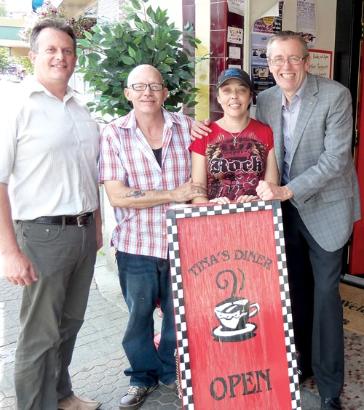 Jeff and President Ian with Tina and Paul Abgrall of Tina's Diner This picture was published in The Nanaimo News Bulletin on Friday. |
President Ian and Jeff thank Tina and Paul Abgrall for donation to community breakfast | Craig Clarke | 2012-09-15 00:00:00Z | 0 | |||||||||||||||||||||||||||||||||||||||||||||||||||||||||
Elder statesment call on UN Security Council to recognize water as a top concern
Posted by Craig Clarke on Sep 10, 2012
The world today confronts a water crisis with critical implications for peace, political stability and economic development, experts warn in a new report issued jointly by the InterAction Council (IAC), a group of 40 prominent former government leaders and heads of state, United Nations University, and Canada’s Walter and Duncan Gordon Foundation.
“The future political impact of water scarcity may be devastating,” says former Canadian Prime Minister and IAC co-chair Jean Chrétien. “Using water the way we have in the past simply will not sustain humanity in future. The IAC is calling on the United Nations Security Council to recognize water as one of the top security concerns facing the global community.”
“Starting to manage water resources more effectively and efficiently now will enable humanity to better respond to today’s problems and to the surprises and troubles we can expect in a warming world.”
In her foreword to the report, “The Global Water Crisis: Addressing an Urgent Security Issue,” IAC member and former Norwegian Prime Minister Gro Harlem Brundtland, underlined the danger in many regions, particularly sub-Saharan Africa or West Asia and North Africa, where critical water shortages already exist.
“As some of these nations are already politically unstable, such crises may have regional repercussions that extend well beyond their political boundaries. But even in politically stable regions, the status quo may very well be disturbed first and most dramatically by the loss of stability in hydrological patterns.”
In an exhaustive compilation of the many factors contributing to deteriorating water security worldwide, 23 eminent international water expert authors identify a host of serious security, development and social risks associated with the water crisis, including food, health, energy and equity issues.
|
Elder statesment call on UN Security Council to recognize water as a top concern | Craig Clarke | 2012-09-11 00:00:00Z | 0 | |||||||||||||||||||||||||||||||||||||||||||||||||||||||||
UN World Meterological Organization calles for stronger national drought policies
Posted by Craig Clarke on Aug 21, 2012
Geneva, 21 August 2012 (WMO/UNCCD) - The drought gripping the United States of America and the ripple effects on global food markets underline the vulnerability of our inter-connected world to a natural hazard that is expected to increase in future.
The World Meteorological Organization (WMO), the UN Convention to Combat Desertification (UNCCD) and other UN agencies are stepping up efforts to develop more coordinated and proactive policies for managing drought risk to fill the existing vacuum in virtually every nation.
“Climate change is projected to increase the frequency, intensity, and duration of droughts, with impacts on many sectors, in particular food, water, and energy,” said WMO Secretary-General Michel Jarraud. “We need to move away from a piecemeal, crisis-driven approach and develop integrated risk-based national drought policies.”
|
UN World Meterological Organization calles for stronger national drought policies | Craig Clarke | 2012-08-22 00:00:00Z | 0 | |||||||||||||||||||||||||||||||||||||||||||||||||||||||||
Bill Gates announces winner of reinvent the toilet challenge
Posted by Craig Clarke on Aug 20, 2012
SEATTLE – Bill Gates announced the winners of the Reinvent the Toilet Challenge—an effort to develop “next-generation” toilets that will deliver safe and sustainable sanitation to the 2.5 billion people worldwide who don’t have it. The awards recognize researchers from leading universities who are developing innovative ways to manage human waste, which will help improve the health and lives of people around the world.
California Institute of Technology in the United States received the $100,000 first prize for designing a solar-powered toilet that generates hydrogen and electricity. Loughborough University in the United Kingdom won the $60,000 second place prize for a toilet that produces biological charcoal, minerals, and clean water. University of Toronto in Canada won the third place prize of $40,000 for a toilet that sanitizes feces and urine and recovers resources and clean water. Special recognition and $40,000 went to Eawag (Swiss Federal Institute of Aquatic Science and Technology) and EOOS for their outstanding design of a toilet user interface.
|
Bill Gates announces winner of reinvent the toilet challenge | Craig Clarke | 2012-08-21 00:00:00Z | 0 | |||||||||||||||||||||||||||||||||||||||||||||||||||||||||
Celebrating 20 years of Rotary in the Ukraine
Posted by Craig Clarke on Aug 17, 2012
Twenty years ago, six clubs -- three in the United States, two in Canada, and one in Scotland -- helped charter the Rotary Club of Kyiv, the first in Ukraine. Now the country has more than 40 clubs and many Rotaractors. At a recent event, Rotarians instrumental in bringing Rotary to Ukraine celebrated. |
Celebrating 20 years of Rotary in the Ukraine | Craig Clarke | 2012-08-18 00:00:00Z | 0 | |||||||||||||||||||||||||||||||||||||||||||||||||||||||||
Backpack farm aims to help farmers in East Africa
Posted by Craig Clarke on Aug 17, 2012
Story submitted by Brian Booth. “We've been called 'the McDonald's of farming'," Rachel Zedeck says with a laugh. The former development worker is the founder of a start-up called Backpack Farm, which aims to help farmers in East Africa grow more crops, more food and ultimately earn money. "The reality is that Africa is the breadbasket of the world, and in eastern and sub-Saharan Africa, the way to impact the vast majority of human beings is through farming," she says. It is a simple idea. The company sells smallholder farmers a backpack stuffed full of seeds, irrigation, “green” chemicals and tools along with training manuals and advise on how to farm efficiently. It can cost up to $2,000, but at that price also includes a drip irrigation kit and water tank. Backpack Farm says that while the cost might seem high, it's one seventh of what those materials would cost commercially. And it claims that the pack, used properly, can double or triple crop yields.
|
Backpack farm aims to help farmers in East Africa | Craig Clarke | 2012-08-18 00:00:00Z | 0 | |||||||||||||||||||||||||||||||||||||||||||||||||||||||||
FINAL REPORT Global Grant 25462 - WATER DISTRIBUTION PROJECT for Ndandini/Kyaithani
Posted by Craig Clarke on Aug 17, 2012
 I have been posting updates on the www.ndandini.blogspot.com website for everyone to follow for the past months as we completed our additional fundraising and then finished the last tasks of the project in Ndandini. I hope that everyone has been reviewing the blog. If you have not read it recently, please take a minute. There are some really great photos there showing how the water is benefiting the villagers! Thanks to you all!! Water tanks are installed now at all 6 schools and one additional water tank at the community garden to provide water for the drip-irrigation greenhouse. The driver is making reqular deliveries of water from the well to these tanks and we have received email letters from the teachers and students telling us how much the villagers appreciate the water and the difference it is making in their lives. Check out some of the letters on our scholarship website www.ndandini-scholarashipfund.blogspot.com . We did encounter one problem just as we were completing the project. The pump on the water bowser (that is used to fill the bowser and to pump from the bowser into the tanks at the schools) failed. In order to be able to keep delivering water, we decided that we would buy a second pump, replace the failed pump with it, and then proceed to try to get it repaired under warranty. The pump has now been repaired (under warranty) and so we now have a spare in case that happens again. The Final Report for the Global Grant has been submitted to The Rotary Foundation (on time and as required). The total final cost of the project was $87,312.07 . |
FINAL REPORT Global Grant 25462 - WATER DISTRIBUTION PROJECT for Ndandini/Kyaithani | Craig Clarke | 2012-08-18 00:00:00Z | 0 | |||||||||||||||||||||||||||||||||||||||||||||||||||||||||
FAO and Bioversity International release book Sustainable Diets and Biodiversity
Posted by Craig Clarke on Aug 08, 2012
|
FAO and Bioversity International release book Sustainable Diets and Biodiversity | Craig Clarke | 2012-08-09 00:00:00Z | 0 | |||||||||||||||||||||||||||||||||||||||||||||||||||||||||
RI President Tanaka visits Ghana and breaks ground on vaccine cold room
Posted by Craig Clarke on Aug 04, 2012
Posted on July 30, 2012 by Rotary International 
RI President Sakuji Tanaka joins children in a dance while visiting a literacy project in Accra, Ghana. Photo courtesy of Rotary Club of Accra Ridge In early July, Ghana was blessed with our second visit by an RI president in a year, as President Sakuji Tanaka took part in breaking ground on a vaccine cold room in Accra. This was quite an unprecedented event, coming so soon after past RI President Kalyan Banerjee’s visit in November. I guess Ghana is now a hotbed of Rotary action, and everyone wants to come and see for themselves! The Greater Accra region is the only one of ten in Ghana to lack a cold storage facility. Transporting vaccines to remote areas is no easy task. From the time they leave the manufacturer until they reach recipients, vaccines must be kept between 2 and 8 degrees Celsius. Variances of even a few degrees could spoil an entire shipment, leaving children without the protection they need. |
RI President Tanaka visits Ghana and breaks ground on vaccine cold room | Craig Clarke | 2012-08-05 00:00:00Z | 0 | |||||||||||||||||||||||||||||||||||||||||||||||||||||||||
City of Nanaimo survey on Science and Sustainability Society Centre in Bowen Park
Posted by Craig Clarke on Aug 02, 2012
Here is a survey on the Science Centre concept that was presented to the club on July 17th by Sue Dumin of the 'Nanaimo Science and Sustainability Society. If you are interested in helping support this initiative, please take the time to complete a short 9-question land-use survey for Nanaimo Parks & Rec. Link to survey: http://www.surveymonkey.com/s/3SSNJ6C
For more information on the Nanaimo Science and Sustainability Society, please go to www.nanaimoscience.org |
City of Nanaimo survey on Science and Sustainability Society Centre in Bowen Park | Craig Clarke | 2012-08-03 00:00:00Z | 0 | |||||||||||||||||||||||||||||||||||||||||||||||||||||||||
Rotary Club Central Web Portal is launched
Posted by Craig Clarke on Jul 28, 2012
Rotary News -- 25 July 2012 Rotary Club Central, an online tool to help club and district leaders set and track goals, launched last week. It gives Rotary a better way to measure the impact Rotarians are making worldwide.
The new tool empowers club and district leaders to monitor club progress and achievements in three key performance areas: membership initiatives, service activities, and Rotary Foundation giving.
Rotary Club Central includes charts that track membership retention and Annual Fund giving over the past five years. District leaders can view a summary of club progress.
Club leaders are encouraged to log in to Member Access and enter their data in Rotary Club Central so that club members, the district governor, and assistant governors can see it.
Look for additional goals and features in the coming months.
If you have any questions, email the Contact Center or contact your Club and District Support representative .
|
Rotary Club Central Web Portal is launched | Craig Clarke | 2012-07-29 00:00:00Z | 0 | |||||||||||||||||||||||||||||||||||||||||||||||||||||||||
Tour of Cruise Ship berth and welcome centre
Posted by Craig Clarke on Jul 23, 2012
|
Tour of Cruise Ship berth and welcome centre | Craig Clarke | 2012-07-24 00:00:00Z | 0 | |||||||||||||||||||||||||||||||||||||||||||||||||||||||||
Japan Recovery Fund helps communities rebuild
Posted by Craig Clarke on Jul 13, 2012
[Editorial note: our club donated $2,000 from our Disaster Relief account] By Diana Schoberg The Rotarian -- July 2012
 Among other projects, the recovery fund replaced nets that had washed away, allowing fishermen to get back to work. [Editorial note: our club donated $2,000 from our Disaster Relief account] In ghost towns lying in the shadow of Japan’s Fukushima nuclear power plant, cows and dogs roam the streets. Buses and cars sit atop buildings, washed there by the tsunami that hit the country’s northeastern coast on 11 March 2011. Debris mars the landscape. When Kazuhiko Ozawa, Rotary Foundation trustee and chair of the Rotary East Japan Earthquake Recovery Fund Committee, talks about the Rotary-led recovery efforts in the region, his smile masks the heaviness he feels. To deal with the new reality, he says, he must persuade himself to be upbeat. |
Japan Recovery Fund helps communities rebuild | Craig Clarke | 2012-07-14 00:00:00Z | 0 | |||||||||||||||||||||||||||||||||||||||||||||||||||||||||
Changes you should know about for the new Rotary year 2012_2013
Posted by Craig Clarke on Jul 05, 2012
Rotary International News -- 2 July 2012  RI President Sakuji Tanaka will encourage Rotarians to foster Peace Through Service in the 2012-13 Rotary year. A new Rotary year is set to begin, and with it several programs aimed at helping clubs and districts enhance their projects, share information, and increase membership. In addition, a new group of leaders will take over at the club, district, and international levels. Sakuji Tanaka, of the Rotary Club of Yashio, Japan, will become Rotary’s 102nd president on 1 July and will encourage Rotarians to foster Peace Through Service. Read a profile of Tanaka from The Rotarian and download his convention speech. Wilfrid J. Wilkinson, of the Rotary Club of Trenton, Ontario, Canada, will take over as Rotary Foundation trustee chair. Read his biography and download his convention speech. Other changes include the following:
|
Changes you should know about for the new Rotary year 2012_2013 | Craig Clarke | 2012-07-06 00:00:00Z | 0 | |||||||||||||||||||||||||||||||||||||||||||||||||||||||||
Presentation of malaria nets to Sunyani
Posted by Craig Clarke on Jul 01, 2012
On Monday, June 25th I made a presentation to the seven Rotarians visiting from Sunyani Ghana. During their visit to Nanaimo, they had many wonderful experiences through the generosity of local Rotarians and community members. Highlights included being introduced at the District Conference and attending Rotary meetings. The culmination of their visit was a luncheon at Vancouver Island University. At this time we made the presentation for malaria nets. The attached photo shows that we will be sending $5,500. Through contributions from 16 clubs, $4,756 was raised. Another $775 was raised by four clubs that raffled or auctioned off African placemats and a table runner. (see attached photo). What a success story! [Editorial note: Our club contributed $500 plus proceeds from auction of the African placemats at our Beer & Burger event.] The group from Sunyani is so pleased with this malaria initiative (our third), they wish to see it continue. I hope that your club will continue to participate in this endeavour as it provides better health and living conditions to young children.
Again, my sincere thanks to all.
Yours in Rotary Service Ross White – PDG 5020
|
Presentation of malaria nets to Sunyani | Craig Clarke | 2012-07-02 00:00:00Z | 0 | |||||||||||||||||||||||||||||||||||||||||||||||||||||||||
Polio survivor Ramesh Ferris Meets Archbishop Desmond Tutu
Posted by Craig Clarke on Jun 29, 2012
By Ramesh Ferris, polio survivor and member of the Rotary Club of Whitehorse-Rendezvous, Yukon. I had the honor recently of meeting with Archbishop Desmond Tutu in his home in Cape Town, South Africa, where I had a chance to talk to him about polio eradication. The archbishop has been a wonderful supporter of Rotary’s efforts to rid the world of this paralyzing, horrific disease, as a participant in the “This Close” public awareness campaign. He was also a speaker at the World Peace Symposium in Birmingham during the 2009 RI Convention. The archbishop and I have something in common: we both survived polio. I was stricken with polio at the age of six months in Coimbatore, Tamil Nadu, India. With no means of access to rehabilitation, my mother placed me in a Canadian-founded orphanage. After my adoption by a Canadian family, I underwent a series of surgeries and physical rehabilitation and learned to walk with crutches and braces for the first time between the age of 3-4. Polio affected my lungs, and I contracted pneumonia nine times before my 11th birthday. After a visit to India in 2002, I decided to found Cycle to Walk Canada, a charity focused on polio eradication, education, and rehabilitation. In 2008, I hand-cycled 4,400 miles (7140kms) across Canada, participating in hundreds of media interviews along the way and making presentations in over 200 schools, Rotary clubs, churches, and various levels of government. The campaign raised thousands of dollars, some of which went toward Rotary’s polio eradication efforts. Since then, I have continued to keep up my efforts to build awareness for polio eradication by meeting with government leaders and statesmen whenever the opportunity arises. It was amazing to visit the archbishop and be able to share part of my personal journey with him. We need to keep spreading the word, and letting our governments know just how important it is to end polio once and for all. We are truly “This Close,” but we need to finish the job. We cannot become complacent in our fight against polio. The World Health Organization estimates that 10 million children would be paralyzed over the next 40 years if we don’t continue our fight! |
Polio survivor Ramesh Ferris Meets Archbishop Desmond Tutu | Craig Clarke | 2012-06-30 00:00:00Z | 0 | |||||||||||||||||||||||||||||||||||||||||||||||||||||||||
Secretary-General Ban Ki-Moon announces commitments on UN's global sustainable energy initiative at the Rio +20 conference
Posted by Craig Clarke on Jun 20, 2012
Speaking at the United Nations Conference on Sustainable Development (Rio+20), Secretary-General Ban Ki-moon today announced that more than one hundred commitments and actions have been already mobilized in support of the UN’s global sustainable energy initiative.
|
Secretary-General Ban Ki-Moon announces commitments on UN's global sustainable energy initiative at the Rio +20 conference | Craig Clarke | 2012-06-21 00:00:00Z | 0 | |||||||||||||||||||||||||||||||||||||||||||||||||||||||||
What makes polio an emergency?
Posted by Craig Clarke on Jun 20, 2012
On the 25th of May, the World Health Assembly declared polio a programmatic emergency for global public health. The Global Poverty Project interviewed Bruce Aylward, assistant director-general at the World Health Organization (WHO)
Three things were driving the ministers of health of the world in declaring polio an emergency: first – on a positive note – polio eradication has reached a tipping point. India, the country that was responsible for almost half the world’s cases just two years ago, has now passed an entire year without reporting a case, providing incontrovertible evidence that polio can be eradicated anywhere. However, and this is the ministers’ second point, polio cases unexpectedly – and alarmingly – surged late last year in the three remaining endemic countries, from where it would undoubtedly make a global comeback unless it is completely eradicated. And third, the ministers saw further evidence that when polio spreads to polio-free places, it is increasingly deadly. In Tajikistan and Congo in 2010, and in China in 2011, polio paralyzed adults as well as children in these outbreaks with high fatality rates among the adults, reaching nearly 50 percent in some of these places. This is on top of other research that has recently shown that if we let this opportunity slip through our fingers, we will soon be seeing more than 200,000 children again being paralyzed by polio each year. That’s not just a number, that’s children’s lives changed forever. Many of them would die. If there was a tsunami coming, with 200,000 children in its path, we would do everything we could to get the children out of harm’s way.
|
What makes polio an emergency? | Craig Clarke | 2012-06-21 00:00:00Z | 0 | |||||||||||||||||||||||||||||||||||||||||||||||||||||||||
New Rotarian Action Group helps countries grow food that suits their nutritional needs
Posted by Craig Clarke on Jun 11, 2012
By Diana Schoberg and Katie Hills
The Rotarian -- June 2012  Bruce French at a market in the Solomon Islands, where Learn Grow launched a local foods project. Photo courtesy of Food Plant Solutions Rotarian Action Group When Australian Bruce French went to Papua New Guinea as an agriculture instructor 40 years ago, his students asked him to teach them about native edible plants. “I knew nothing about Papua New Guinea food plants,” he recalls. “So I had to start learning.” The result was a series of books on indigenous food plants, and the not-for-profit Food Plants International, which maintains a database of 25,000 edible plants that includes descriptions, lists of countries and climates where they grow, photos and drawings, and cooking methods. “There are thousands of nutritious plants, but people don’t have any information about them,” says Buz Green, an agriculturalist and member of the Rotary Club of Devonport North, Australia. “We’re trying to bridge some of the gaps. “Rotarian teams in developing countries inevitably identify hunger, malnutrition, and food security as critical issues,” Green explains. “They tend to look to Western solutions to address food production issues.” |
New Rotarian Action Group helps countries grow food that suits their nutritional needs | Craig Clarke | 2012-06-12 00:00:00Z | 0 | |||||||||||||||||||||||||||||||||||||||||||||||||||||||||
Water and Development: An Evaluation of World Bank Support, 1997-2007
Posted by Craig Clarke on May 26, 2012
The Independent Evaluation Group (IEG) examined all the water-related projects financed by the World Bank between 1997 and 2007. Faced with mounting shortages of water, a worsening trend in water pollution and growing damages from climate change, the international community must find additional ways to support countries in managing their water resources. The challenge is to meet today's water needs while putting in place innovative strategies to address water stress -- manifested in shortages projected in the order of 40 percent by 2030 according to some calculations. Water scarcity affects every continent of the globe. About 700 million people in 43 countries are under water stress, led by Ethiopia, Haiti, and Niger with the least amount of water available. The United Nations calculates that even if the Millennium Development Goals for clean water supply are achieved, 800 million people will still lack access to safe drinking water in 2015. And 1.8 billion people will still not have access to basic sanitation. Sustained population growth, urbanization and the demand for better livelihoods are contributing to a steadily deepening global water crisis. |
Water and Development: An Evaluation of World Bank Support, 1997-2007 | Craig Clarke | 2012-05-27 00:00:00Z | 0 | |||||||||||||||||||||||||||||||||||||||||||||||||||||||||
Five things to look forward to in Lisbon
Posted by Craig Clarke on May 25, 2012
by Susie Ma The Rotarian -- June 2012
Rotarians attending the 2013 RI Convention, 23-26 June in Lisbon, Portugal, will experience a European capital that’s glamorous and exciting yet intimate and relaxed. You can look forward to: Nonstop views. Lisbon sits at the mouth of the Tagus River, and the city’s hilly topography makes for outstanding vistas of the Atlantic coast. City streets worth wandering.
Charming roads wind past Romanesque cathedrals, Gothic ruins, and classic red-roofed buildings. Take in the sights on foot or aboard one of the city’s cheery yellow trams. Near-perfect weather.
The sun shines endlessly in the summer, and the average temperature in June is 70 degrees Fahrenheit. Cultural attractions to rival any in Europe.
Sitting atop Lisbon is St. George’s Castle, former residence of Portuguese kings; the site was also home, at one time or another, to Romans, Visigoths, and Moors. On the Tagus River, from whence Portuguese explorers Vasco da Gama and Ferdinand Magellan set sail, Belém Tower stands as a monument to the country’s maritime legacy. Nearby Jerónimos Monastery showcases the ornate Manueline style of architecture typical of 16th-century Portugal. A good deal. Register for the 2013 RI Convention in Lisbon .
These days, Lisbon is a bargain. One night at a midpriced four-star hotel costs, on average, US$80, compared with $96 in Barcelona, Spain, and $205 in Paris. |
Five things to look forward to in Lisbon | Craig Clarke | 2012-05-26 00:00:00Z | 0 | |||||||||||||||||||||||||||||||||||||||||||||||||||||||||
Seven critical issues at Rio +20 Conference
Posted by Craig Clarke on May 24, 2012
Jobs  Economic recession has taken a toll on both the quantity and quality of jobs. For the 190 million unemployed, and for over 500 million job seekers over the next 10 years, labour markets are vital not only for the production and generation of wealth, but equally for its distribution. Economic action and social policies to create gainful employment are critical for social cohesion and stability. It's also crucial that work is geared to the needs of the natural environment. "Green jobs" are positions in agriculture, industry, services and administration that contribute to preserving or restoring the quality of the environment. Economic recession has taken a toll on both the quantity and quality of jobs. For the 190 million unemployed, and for over 500 million job seekers over the next 10 years, labour markets are vital not only for the production and generation of wealth, but equally for its distribution. Economic action and social policies to create gainful employment are critical for social cohesion and stability. It's also crucial that work is geared to the needs of the natural environment. "Green jobs" are positions in agriculture, industry, services and administration that contribute to preserving or restoring the quality of the environment. Energy  Energy is central to nearly every major challenge and opportunity the world faces today. Be it for jobs, security, climate change, food production or increasing incomes, access to energy for all is essential. Sustainable energy is needed for strengthening economies, protecting ecosystems and achieving equity. United Nations Secretary-General Ban Ki-moon is leading a Sustainable Energy for All initiative to ensure universal access to modern energy services, improve efficiency and increase use of renewable sources. Energy is central to nearly every major challenge and opportunity the world faces today. Be it for jobs, security, climate change, food production or increasing incomes, access to energy for all is essential. Sustainable energy is needed for strengthening economies, protecting ecosystems and achieving equity. United Nations Secretary-General Ban Ki-moon is leading a Sustainable Energy for All initiative to ensure universal access to modern energy services, improve efficiency and increase use of renewable sources. Cities Cities are hubs for ideas, commerce, culture, science, productivity, social development and much more. At their best, cities have enabled people to advance socially and economically. However, many challenges exist to maintaining cities in a way that continues to create jobs and prosperity while not straining land and resources. Common city challenges include congestion, lack of funds to provide basic services, a shortage of adequate housing and declining infrastructure. The challenges cities face can be overcome in ways that allow them to continue to thrive and grow, while improving resource use and reducing pollution and poverty. Food  It is time to rethink how we grow, share and consume our food. It is time to rethink how we grow, share and consume our food.If done right, agriculture, forestry and fisheries can provide nutritious food for all and generate decent incomes, while supporting people-centred rural development and protecting the environment. But right now, our soils, freshwater, oceans, forests and biodiversity are being rapidly degraded. Climate change is putting even more pressure on the resources we depend on. A profound change of the global food and agriculture system is needed if we are to nourish today's 925 million hungry and the additional 2 billion people expected by 2050. The food and agriculture sector offers key solutions for development, and is central for hunger and poverty eradication. Water  Clean, accessible water for all is an essential part of the world we want to live in. There is sufficient fresh water on the planet to achieve this dream. But due to bad economics or poor infrastructure, every year millions of people, most of them children, die from diseases associated with inadequate water supply, sanitation and hygiene. Water scarcity, poor water quality and inadequate sanitation negatively impact food security, livelihood choices and educational opportunities for poor families across the world. Drought afflicts some of the world's poorest countries, worsening hunger and malnutrition. By 2050, at least one in four people is likely to live in a country affected by chronic or recurring shortages of fresh water. Clean, accessible water for all is an essential part of the world we want to live in. There is sufficient fresh water on the planet to achieve this dream. But due to bad economics or poor infrastructure, every year millions of people, most of them children, die from diseases associated with inadequate water supply, sanitation and hygiene. Water scarcity, poor water quality and inadequate sanitation negatively impact food security, livelihood choices and educational opportunities for poor families across the world. Drought afflicts some of the world's poorest countries, worsening hunger and malnutrition. By 2050, at least one in four people is likely to live in a country affected by chronic or recurring shortages of fresh water. Oceans
 The world's oceans - their temperature, chemistry, currents and life - drive global systems that make the Earth habitable for humankind. Our rainwater, drinking water, weather, climate, coastlines, much of our food, and even the oxygen in the air we breathe, are all ultimately provided and regulated by the sea. Throughout history, oceans and seas have been vital conduits for trade and transportation. Careful management of this essential global resource is a key feature of a sustainable future. The world's oceans - their temperature, chemistry, currents and life - drive global systems that make the Earth habitable for humankind. Our rainwater, drinking water, weather, climate, coastlines, much of our food, and even the oxygen in the air we breathe, are all ultimately provided and regulated by the sea. Throughout history, oceans and seas have been vital conduits for trade and transportation. Careful management of this essential global resource is a key feature of a sustainable future. Disasters  Disasters caused by earthquakes, floods, droughts, hurricanes, tsunamis and more can have devastating impacts on people, environments and economies. But resilience -- the ability of people and places to withstand these impacts and recover quickly -- remains possible. Smart choices help us recover from disasters, while poor choices make us more vulnerable. These choices relate to how we grow our food, where and how we build our homes, how our financial system works, what we teach in schools and more. With a quickening pace of natural disasters taking a greater toll on lives and property, and a higher degree of concentration of human settlements, a smart future means planning ahead and staying alert. Disasters caused by earthquakes, floods, droughts, hurricanes, tsunamis and more can have devastating impacts on people, environments and economies. But resilience -- the ability of people and places to withstand these impacts and recover quickly -- remains possible. Smart choices help us recover from disasters, while poor choices make us more vulnerable. These choices relate to how we grow our food, where and how we build our homes, how our financial system works, what we teach in schools and more. With a quickening pace of natural disasters taking a greater toll on lives and property, and a higher degree of concentration of human settlements, a smart future means planning ahead and staying alert. |
Seven critical issues at Rio +20 Conference | Craig Clarke | 2012-05-25 00:00:00Z | 0 | |||||||||||||||||||||||||||||||||||||||||||||||||||||||||
Polio eradication shifts into emergency mode
Posted by Craig Clarke on May 24, 2012
Rotary International News -- 24 May 2012  Although this child in Chad has been immunized against polio, others in the central African nation -- and those everywhere -- remain vulnerable to the disease until it is eradicated worldwide. Photo by Jean-Marc Giboux Despite the dramatic drop in polio cases in the last year, the threat of continued transmission due to funding and immunization gaps has driven the Global Polio Eradication Initiative (GPEI) to launch the Global Polio Emergency Action Plan 2012-13. The plan aims to boost vaccination coverage in the three remaining polio-endemic countries -- Nigeria, Pakistan, and Afghanistan -- to levels needed to stop polio transmission. Health ministers meeting at the World Health Assembly in Geneva are considering a resolution that will declare “the completion of polio eradication to be a programmatic emergency for global public health.” Polio eradication activities have resulted in several landmark successes since 2010. India, long regarded as the nation facing the greatest challenges to eradication, was removed from the list of polio-endemic countries by the World Health Organization (WHO) in February. Outbreaks in previously polio-free countries were nearly all stopped. During that same time span, however, polio outbreaks in China and West Africa due to importation from Pakistan and Nigeria, respectively, have highlighted the continued threat of resurgence. Failure to eradicate the disease could lead within a decade to paralysis of as many as 200,000 children per year worldwide. |
Polio eradication shifts into emergency mode | Craig Clarke | 2012-05-25 00:00:00Z | 0 | |||||||||||||||||||||||||||||||||||||||||||||||||||||||||
Olivier De Schutter, the UN Special Rapporteur on the right to food toured Canada earlier this month
Posted by Craig Clarke on May 24, 2012
The Special Rapporteur on the right to food undertook an official visit to Canada, at the invitation of the Government, from 6 to 16 May 2012. The purpose of the mission was to examine the way in which the human right to adequate food is being realized in Canada. The Special Rapporteur wishes to thank Foreign Affairs and International Trade Canada for coordinating the visit. Additionally, he wishes to thank the representatives of the following federal government ministries, who met with him: Aboriginal Affairs and Northern Development Canada; Agriculture and Agri-Foods Canada; Fisheries and Oceans Canada; Health Canada; Human Resources and Skills Development Canada; Justice Canada; and the Canadian International Development Agency. The UN human rights expert was nonetheless confident that the country could move towards establishing food systems that deliver adequate and affordable diets for all, and called upon the Canadian government to convene a national food conference that would clarify the allocation of responsibilities between the federal level, the provinces and territories.
|
Olivier De Schutter, the UN Special Rapporteur on the right to food toured Canada earlier this month | Craig Clarke | 2012-05-25 00:00:00Z | 0 | |||||||||||||||||||||||||||||||||||||||||||||||||||||||||
KPMG: Global sustainability megaforces will affect the future of every business
Posted by Craig Clarke on May 17, 2012
Recently KPMG released a report entitled Expect the Unexpected: Building business value in a changing world.
The report states that over the next 20 years businesses will be exposed to hundreds of environmental and social changes that will bring both risks and opportunities in the search for sustainable growth. The result is a set of ten global sustainability megaforces that they believe will impact every business over the next two decades. They are: • Climate Change: the one global megaforce that directly impacts all others discussed in this report. Predictions of annual output losses from climate change range between 1 percent per year, if strong and early action is taken, to at least 5 percent a year if policymakers fail to act.
• Energy & Fuel: fossil fuel markets are likely to become more volatile and unpredictable because of higher global energy demand; changes in the geographical pattern of consumption; supply and production uncertainties; and increasing regulatory interventions related to climate change.
• Material Resource Scarcity: as developing countries industrialize rapidly, global demand for material resources is predicted to increase dramatically.
• Water Scarcity: it is predicted that by 2030, the global demand for freshwater will exceed supply by 40 per cent. Growth could be compromised and conflicts over water supplies may create a security risk to business operations.
• Population Growth: global population is predicted to be 8.4 billion by 2032 in a moderate growth scenario. This growth will place intense pressures on ecosystems and the supply of natural resources such as food, water, energy and materials.
• Wealth: the global middle class is predicted to grow 172 percent between 2010 and 2030.
• Urbanization: By 2030 all developing regions including Asia and Africa are expected to have the majority of their inhabitants living in urban areas which will require extensive improvements in infrastructure.
• Food Security: Global food prices are predicted to rise 70–90 percent by 2030. In water-scarce regions, agricultural producers are likely to have to compete for supplies with other water-intensive industries such as electric utilities and mining, and with consumers.
• Ecosystem Decline: The decline in ecosystems is making natural resources scarcer, more expensive and less diverse; increasing the costs of water and escalating the damage caused by invasive species to sectors including agriculture, fishing, food and beverages, pharmaceuticals and tourism.
• Deforestation: forest areas are predicted to decline by 13 percent from 2005 to 2030, mostly in South Asia and Africa. Costs of environmental impacts are doubling every 14 years. It is therefore prudent for companies to expect to pay in the future a rising proportion of their external environmental costs which today are often not shown on financial statements.
|
KPMG: Global sustainability megaforces will affect the future of every business | Craig Clarke | 2012-05-18 00:00:00Z | 0 | |||||||||||||||||||||||||||||||||||||||||||||||||||||||||
Diabetes is a growing global epidemic
Posted by Craig Clarke on May 15, 2012
The number of people living with, and dying of, diabetes across the world is shocking: 90 million Chinese live with diabetes and 1.3 million died in 2011; 23% of Qatari adults have developed diabetes. Here we chart the extent of the global epidemic and present some of the implications for national governments.
Type 2 diabetes accounts for almost 90% of all cases of diabetes in adults worldwide.
On average, nearly 8% of adults living in high-income countries (see map below for country classication) have diabetes. It is, however, upper-middle and middle-income countries that have the highest prevalence of diabetes; over 10% of adults in these countries have the condition. In high-income countries, diabetes primarily a icts people over 50 years of age. But in middle-income countries, the highest prevalence is in younger people — the most productive age groups. As these people age, and as life expectancies increase, prevalence in older age groups will rise further. is trend will put a huge burden on healthcare systems and governments. e mortality rate of diabetes varies sharply with the prosperity of the country.
|
Diabetes is a growing global epidemic | Craig Clarke | 2012-05-16 00:00:00Z | 0 | |||||||||||||||||||||||||||||||||||||||||||||||||||||||||
National Round Table report on product life cycle approaches to sustainable development
Posted by Craig Clarke on May 15, 2012
The National Round Table on the Economy and the Environment released its report Canada’s Opportunity: Adopting Life Cycle Approaches for Sustainable Development.
This report, prepared at the request of the Minister of the Environment, identifies the need for Life Cycle Approaches in considering the economic and environmental sustainability of Canadian products and policies.
Canada’s Opportunity provides an overview of Life Cycle Approaches in use in Canada and elsewhere, the risks and opportunities related to their uptake, the conditions for their successful adoption in the private and public sectors, and identifies actions that the government can take to support their application.
It sets out the risks faced by Canadian companies that are unprepared for or unable to comply easily or quickly with existing or anticipated foreign government regulations that require product life cycle disclosure. It also identifies opportunities for companies that adopt a Life Cycle Approach to achieve better supply-chain performance, internal operation efficiencies, and increased institutional capacity to enhance innovation and support environmental stewardship.
Using resources efficiently — from extraction to disposal — is no longer a simple matter of local decisions; it is increasingly a matter of global importance. The NRT believes there is a clear economic imperative for adopting Life Cycle Approaches to address growing market-access issues for Canadian goods and commodities.
Life Cycle Approaches to sustainable development are here to stay. While their full application remains a “work in progress”, the trend is clear. Knowledge and expertise is growing in this field and Canada must get on top of it.
|
National Round Table report on product life cycle approaches to sustainable development | Craig Clarke | 2012-05-16 00:00:00Z | 0 | |||||||||||||||||||||||||||||||||||||||||||||||||||||||||
Rotarians leave Bangkok encouraged to fight poverty and finish the job of eradicating polio
Posted by Craig Clarke on May 14, 2012
By Ryan Hyland Rotary International News -- 9 May 2012
  Top: RI President Kalyan Banerjee and RI President-elect Sakuji Tanaka during the closing plenary session. Bottom: Ron D. Burton, 2013-14 RI president, and his wife, Jetta, are introduced during the fourth plenary. Rotary Images/Monika Lozinska Rotarians and friends left the 2012 RI Convention in Bangkok, Thailand, energized to keep up the fight against polio and to use their ingenuity to help reduce global poverty. The four-day event, which drew to a close Wednesday, attracted more than 35,000 attendees from 181 countries and geographical areas and included a celebration of two major milestones in the global polio eradication effort. Attendees were also treated to a preview of the next RI Convention, which will take place 23-26 June 2013, in Lisbon, Portugal. Register now. In his closing remarks, RI President Kalyan Banerjee reminded Rotarians that “what’s important in Rotary isn’t what we say. It’s what we do, and who we are.” “There dwells within you the power and spirit that can evoke the energy you may not realize,” Banerjee said. “You have to be hungry enough to reach within and release the energy to help you embrace humanity. I believe this is the state we call happiness. I have just given you the prescription for it. Rotary can help you achieve happiness in life that you seek.” Download Banerjee’s closing address. |
Rotarians leave Bangkok encouraged to fight poverty and finish the job of eradicating polio | Craig Clarke | 2012-05-15 00:00:00Z | 0 | |||||||||||||||||||||||||||||||||||||||||||||||||||||||||
IMF World Bank Report says developing world misses targets relating to food and nutrition
Posted by Craig Clarke on Apr 24, 2012
Washington D.C., April 20, 2012 – The developing world’s progress is seriously lagging on global targets related to food and nutrition, with rates of child and maternal mortality still unacceptably high, says the Global Monitoring Report (GMR) 2012, released today by the World Bank and the International Monetary Fund (IMF).
Recent spikes in international food prices have stalled progress across several of the Millennium Development Goals (MDGs), the report says.
GMR 2012: Food Prices, Nutrition and the Millennium Development Goals reports good progress across some MDGs, with targets related to reducing extreme poverty and providing access to safe drinking water already achieved, several years ahead of the 2015 deadline to achieve the MDGs. Also, targets on education and ratio of girls to boys in schools are within reach.
In contrast, the world is significantly off-track on the MDGs to reduce mortality rates of children under five and mothers. As a result, these goals will not be met in any developing region by 2015. Progress is slowest on maternal mortality, with only one-third of the targeted reduction achieved thus far. Progress on reducing infant and child mortality is similarly dismal, with only 50 per cent of the targeted decline achieved.
“High and volatile food prices do not bode well for attainment of many MDGs, as they erode consumer purchasing power and prevent millions of people from escaping poverty and hunger, besides having long-term adverse impacts on health and education,” said Justin Yifu Lin, the World Bank’s Chief Economist and Senior Vice President for Development Economics. “Dealing with food price volatility must be a high priority, especially as nutrition has been one of the forgotten MDGs,” he added.
GMR 2012 details solutions for making countries and communities more resilient in the face of food price spikes. Countries should deploy agricultural policies to encourage farmers to increase production; use social safety nets to improve resilience; strengthen nutritional policies to improve early childhood development; and design trade policies that enhance access to food markets, reduce food price volatility and induce productivity gains. However, the challenges countries face in responding to high food prices have been made more difficult as a result of the global recession. “The fragile global economy could very well slow developing countries’ progress on human development goals, since the fiscal, debt, and current account positions, particularly of low income countries, have been weakened by the global financial crisis,” said Hugh Bredenkamp, Deputy Director of the IMF’s Strategy, Policy and Review Department.
|
IMF World Bank Report says developing world misses targets relating to food and nutrition | Craig Clarke | 2012-04-25 00:00:00Z | 0 | |||||||||||||||||||||||||||||||||||||||||||||||||||||||||
Rotary announces partnerships with food bank network and youth service group
Posted by Craig Clarke on Apr 24, 2012
By Ryan Hyland Rotary International -- 19 April 2012
  Top: The Global FoodBanking Network works with food banks in 19 countries to collect goods that would otherwise go to waste from sources such as stores, manufacturers, restaurants, and farms, and distribute them through local pantries, soup kitchens, hospices, and school programs. Bottom: Craig Nemitz (left), director of field services for The Global FoodBanking Network and a member of the Rotary Club of Channahon-Minooka, Illinois, USA, presents a banner to Rotarian Hennie de Bruin, a strong supporter of FoodBank South Africa in Johannesburg. Photos courtesy of Global FoodBanking Network Two new service partnerships announced this month by Rotary International will support humanitarian efforts by clubs and districts. RI will combine resources with the Global FoodBanking Network to alleviate hunger worldwide. And Rotary and YSA (Youth Service America) will work together to encourage young people to participate in service projects in their communities. Working with the Global FoodBanking Network, Rotary clubs and districts will be able to volunteer at food banks and help create new ones, organize food collection drives, sponsor trucks for food delivery and distribution, raise awareness of hunger, and distribute food to hungry children through the BackPack and other school food programs. “Rotarians have served selflessly in the communities where we are developing and expanding food banks,” says Jeffery D. Klein, CEO of the Global FoodBanking Network. “We want to connect Rotary clubs and districts to service projects and food distribution in the more than 20 countries where we are currently engaged in food banking activity, and inspire them to take leadership in this generation’s quest to end hunger.” |
Rotary announces partnerships with food bank network and youth service group | Craig Clarke | 2012-04-25 00:00:00Z | 0 | |||||||||||||||||||||||||||||||||||||||||||||||||||||||||
NOAA: Global temperatures for February 2012 above average for 20th Century
Posted by Craig Clarke on Apr 06, 2012
In its State of the Climate Report, the US National Oceanic and Atmospheric Administration reported that February 2012 marked the 324th consecutive month with a global temperature above the 20th century average. The last month with below average temperatures was February 1985. The combined average temperature over global land and ocean surfaces for February 2012 was the 22nd warmest in the 133-year period of record and coolest since 2008, at 12.47°C, which is 0.37°C above the 20th century average of 12.1°C. The margin of error associated with this temperature is ± 0.11°C.
Warmer-than-average conditions occurred across nearly all of Canada and Alaska, the eastern half of the United States, southern Greenland, and north central Russia. Cooler-than-average regions included northeastern Africa, most of Europe and central Asia, and much of Australia.
|
NOAA: Global temperatures for February 2012 above average for 20th Century | Craig Clarke | 2012-04-07 00:00:00Z | 0 | |||||||||||||||||||||||||||||||||||||||||||||||||||||||||
Add your face and name to the this close campaign
Posted by Craig Clarke on Apr 05, 2012
Click on the link below to add your face and name to Rotary's this close campaign to end Polio
Rotary's This Close to ending Polio |
Add your face and name to the this close campaign | Craig Clarke | 2012-04-06 00:00:00Z | 0 | |||||||||||||||||||||||||||||||||||||||||||||||||||||||||
UN report advises planning to limit losses from climate disasters
Posted by Craig Clarke on Apr 03, 2012
A future on Earth of more extreme weather and rising seas will require better planning for natural disasters to save lives and limit deepening economic losses, the United Nations said on March 28 in a major report on the effects of climate change.
The U.N. climate panel said all nations will be vulnerable to the expected increase in heat waves, more intense rains and floods and a probable rise in the intensity of droughts.
Aimed largely at policymakers, the report by the Intergovernmental Panel on Climate Change makes clear nations need to act now, because increasingly extreme weather is already a trend.
The need for action has become more acute as a growing human population puts more people and more assets in the path of disaster, raising economic risk, the report said. The report's title made the point: Managing the risks of extreme events and disasters to advance climate change adaptation.
Asia was most vulnerable to potential disasters, with East Asia and the Pacific facing the highest adaptation costs.
|
UN report advises planning to limit losses from climate disasters | Craig Clarke | 2012-04-04 00:00:00Z | 0 | |||||||||||||||||||||||||||||||||||||||||||||||||||||||||
Barry Sparkes named our new Assistant Governor in 2012/2013
Posted by Craig Clarke on Apr 02, 2012
DG David Stocks is pleased to announce the appointment of Barry Sparkes as the new Assistant Governor Elect of Area 2B. Sparkes was born in England in 1950. He emigrated to Canada in 1955 and grew up on a farm outside of Beaverlodge in northwestern Alberta. He joined the Royal Canadian Navy in 1967 and graduated from the Royal Military College in 1971 with a Degree in Civil Engineering and a Commission in the Canadian Forces.
|
Barry Sparkes named our new Assistant Governor in 2012/2013 | Craig Clarke | 2012-04-03 00:00:00Z | 0 | |||||||||||||||||||||||||||||||||||||||||||||||||||||||||
Rotary to use 2.5 million charity miles to support lifesaving surgeries, service projects
Posted by Craig Clarke on Mar 31, 2012
By Arnold R. Grahl Rotary International News -- 28 March 2012 Ali received corrective surgery on his thoracic cage in 2008. Rotary International's Rotary Miles program provided airfare to bring Ali and family members from Iraq to the United States for the surgery. Ali was born with a seriously deformed spine and thoracic cage. Doctors treating the 12-year-old Iraqi boy at a clinic run by off-duty U.S. Army medics in Baghdad knew his best hope for corrective surgery existed outside Iraq. Through the efforts of clinic staff and Rotarians in the United States, Ali and several other Iraqi children were able to undergo life-changing surgery at Shriners Hospital in Philadelphia in 2008. Rotary International’s Rotary Miles program provided free airfare for the children and their family members through the organization’s participation in United Airlines’ charity miles program. Over the years, Rotary has used donated miles to support surgeries by Gift of Life and Rotaplast, two organizations supported by Rotarians. The miles also have been used for Engineers Without Borders volunteers working on Rotary water projects, and in support of other Rotary club and district humanitarian efforts around the world. Rotary wins 2.5 million miles Recently, Rotary Miles received a major boost when it qualified for roughly 2.5 million miles from United’s 10 Million Charity Miles Giveaway, held in December. The contest invited people to vote online to determine how the miles would be divided among 45 organizations participating in the airline’s charity miles program, with awards equal to the percentage of the vote received. Spurred on by social media promotions, Rotarians helped catapult Rotary from 18th to second place in the span of a week, winning 24.8 percent of the United miles. “Given that this was during December, a time that many clubs had wound down for the festive season, it was a fantastic result,” says Simone Carot Collins, past chair of the Rotarians on Social Networks Fellowship. “We promoted it heavily through social networks (especially Facebook), and from there, clubs emailed and posted in their club bulletins.” |
Rotary to use 2.5 million charity miles to support lifesaving surgeries, service projects | Craig Clarke | 2012-04-01 00:00:00Z | 0 | |||||||||||||||||||||||||||||||||||||||||||||||||||||||||
Economist magazine recognizes Rotary's Polio Plus Achievements
Posted by Craig Clarke on Mar 24, 2012
|
Economist magazine recognizes Rotary's Polio Plus Achievements | Craig Clarke | 2012-03-25 00:00:00Z | 0 | |||||||||||||||||||||||||||||||||||||||||||||||||||||||||
Rotary collaborates with others for clean water
Posted by Craig Clarke on Mar 22, 2012
By Ron Denham, a member of the Rotary Club of Toronto Eglinton, Ontario, Canada, and chair of the Water and Sanitation Rotarian Action Group. He addresses Rotary’s commitment to water at an independently organized TED event.. A change is taking place in the way Rotarians approach water and sanitation programs. We realize that the challenge of meeting the Millennium Development Goals is something that no organization can achieve on its own; not even Rotary with its 33,000 clubs and over 1.2 million members. To be successful we need leverage, the leverage that comes from collaboration with others who share our goals. The most notable example of this is the International H2O Collaboration, an alliance between Rotary International and USAID. Rotary clubs in Ghana, the Dominican Republic, and the Philippines are working together to bring safe water and sanitation to hundreds of communities and schools. |
Rotary collaborates with others for clean water | Craig Clarke | 2012-03-23 00:00:00Z | 0 | |||||||||||||||||||||||||||||||||||||||||||||||||||||||||
March 22 is World Water Day
Posted by Craig Clarke on Mar 18, 2012
As the coordinating agency for this years World Water Day, The Food and Agriculture Organization of the United Nations will be host to the official ceremony of UN-Water World Water Day 2012 at its Headquarters in Rome, Italy on March 22. A variety of speakers will be invited to give their perspectives on this years topic of ‘Water and Food Security’. World Water Day is held annually on 22 March as a means of focusing attention on the importance of water and advocating for the
sustainable management of freshwater resources. An international day to celebrate freshwater
was recommended at the 1992 United Nations Conference on Environment and Development
(UNCED). The United Nations General Assembly responded by designating 22 March 1993 as the
first World Water Day.
The FAO has launched a new 30 second promo help promote awareness on how much water is required to make the food we eat. Click here to view video clip |
March 22 is World Water Day | Craig Clarke | 2012-03-19 00:00:00Z | 0 | |||||||||||||||||||||||||||||||||||||||||||||||||||||||||
Increasing demand and climate change threatening world water resources says new UN World Water Development Report
Posted by Craig Clarke on Mar 14, 2012
The report UN World Water Development Report Managing Water under Uncertainty and Risk was launched by UNESCO Director-General Irina Bokova and the Chair of UN-Water Michel Jarraud at the World Water Forum in Marseille France on 12 March.
The report warns that unprecedented growth in demands for water are threatening all major development goals. It notes that rising food demand, rapid urbanization and climate change are significantly increasing pressure on global water supplies. This complex situation requires a radical rethink of the way water is managed, concludes the Report, “Freshwater is not being used sustainably, according to needs and demands, states Irina Bokova in the Report’s Foreword. “Accurate information remains disparate, and management is fragmented. In this context, the future is increasingly uncertain and risks are set to deepen.”
“The challenges, risks and uncertainties blocking the road to sustainable development and the achievement of the UN Millennium Development Goals require a collective response by the whole international community,” according to Michel Jarraud. “UN-Water will bring the important messages of this UN-Water Report to the Rio+20 Summit in June 2012.”
According to the Report, people in many parts of the world enjoy improved access to safe drinking water – 86 per cent of the population in developing regions will have it by 2015. But there are still nearly one billion people without such access, and in cities the numbers are growing. Sanitation infrastructure is not keeping pace with the world’s urban population, which will almost double by 2050 to 6.3 billion people. Today, more than 80 per cent of the world’s waste water is neither collected nor treated.
At the same time, the Report estimates that the world will need 70 per cent more food by the middle of the century, with demand increasing especially for livestock products. A surge in food production will lead to an increase of at least 19 per cent in the water required for agriculture, which already accounts for 70 per cent of freshwater use. The authors warn that these figures could climb even higher if agricultural efficiency does not improve significantly.
Increasingly, underground water sources have been tapped to respond to growing demand. Water extraction has tripled over the past 50 years to become a “silent revolution.” In some underground basins, water cannot be replenished and has reached critically low levels. Many countries respond by acquiring fertile land outside their jurisdiction, particularly in Africa. Transnational land acquisition has risen from 15-20 million hectares in 2009 to more than 70 million hectares today. The supply of water is never explicitly addressed in the agreements between the countries concerned.
Climate change will make a bigger impact on water resources in years to come. It alters rainfall patterns, soil humidity, glacier-melt and river-flow and also causes changes to underground water sources. Already, water-related disasters such as floods or droughts are rising in frequency and intensity. The Report’s authors say that climate change will drastically affect food production in South Asia and Southern Africa between now and 2030. By 2070, water-stress will also be felt in central and southern Europe, affecting up to 44 million people.
The Report predicts that these pressures will exacerbate economic disparities between countries, as well as between sectors or regions within countries. Much of the burden, it says, will fall on the poor. Chronic under-financing has left water managers poorly equipped to cope with the adaptations that are required. Unless water becomes a more central consideration in development planning, billions of people, mostly in developing countries, could face reduced livelihoods and life chances. Better governance of water resources is required, including investments in infrastructure from both private and public sectors.
The Report is the result of a broad collective teamwork of UN-Water agencies and partners, implemented through its World Water Assessment Programme. |
Increasing demand and climate change threatening world water resources says new UN World Water Development Report | Craig Clarke | 2012-03-15 00:00:00Z | 0 | |||||||||||||||||||||||||||||||||||||||||||||||||||||||||
Portable Water Tank for the Ndandini water distribution project
Posted by Craig Clarke on Mar 14, 2012
|
Portable Water Tank for the Ndandini water distribution project | Craig Clarke | 2012-03-15 00:00:00Z | 0 | |||||||||||||||||||||||||||||||||||||||||||||||||||||||||
Donation to matching grant with Etta Projects
Posted by Craig Clarke on Mar 14, 2012
Our club contributed $500 to a matching grant project with the Rotary Club of Poulsbo-North Kitsap. Doug Pearson coordinated additional contributions by a number of clubs in our area. Nanaimo Daybreak, Nanaimo Oceanside and Lantzville contributed $500 at the same time as we did. The Rotary Club of Nanaimo had joined earlier.
The purpose of this project is to purchase a 4 wheel drive vehicle that will allow the Rotary Club of Minero and Etta Projects to reach rural villages and implement future projects. Etta Projects is a charity formed in memory of Etta Turner who was killed in Boliva while on a Rotary Youth Exchange in 2002. Etta Projects has tallied the following accomplishments since then: 26 villages benefit from clean water projects; 15 schools have gardens, improving the nutrition of more than 3,000 people; 14 villages have trained health counsellors, 5 rural schools have started rearing livestock to improve access to protein; hygiene curriculum is available in 12 rural schools; trained leaders for 25 villages; 91 youth leaders better prepared to participate in local development; 70 families have composting latrine to improve health & sanitation. |
Donation to matching grant with Etta Projects | Craig Clarke | 2012-03-15 00:00:00Z | 0 | |||||||||||||||||||||||||||||||||||||||||||||||||||||||||
CLE life skills approach used successfully in Brazilian literacy project
Posted by Craig Clarke on Mar 08, 2012
The first large scale international Rotary literacy project was implemented in Thailand from 1987-92 and funded by the Rotary Foundation.
It used the Concentrated Language Encounter (CLE) or “Lighthouse” approach. The program was so successful it was eventually adopted by all government schools throughout Thailand and provided Rotary clubs and districts in other countries with the inspiration,
example, and technical support needed to play a major role in alleviating mass literacy problems in their own countries.
Several Rotary Clubs in SE Brazil sent an educator to Thailand to learn the teaching methods and set up their own program. After a successful pilot, they partnered with clubs in Canada and the USA to get a 3-H grant from the Rotary Foundation. The effort involves more than 200 Rotarian volunteers and has taught more than 72,000 students.
|
CLE life skills approach used successfully in Brazilian literacy project | Craig Clarke | 2012-03-09 00:00:00Z | 0 | |||||||||||||||||||||||||||||||||||||||||||||||||||||||||
Women on the vaccination team
Posted by Craig Clarke on Mar 08, 2012
by Harriet “Pepi” Noble is a Rotarian and author of the blog, A Noble Purpose March 8, 2012
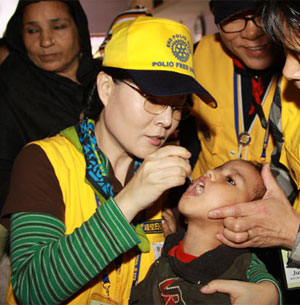
A Rotarian from District 3700 (Korea) administers oral polio vaccine to a child at a health camp in Meerut, Uttar Pradesh, in November. Photo courtesy of Young Han Kim It’s International Women’s Day and I’m celebrating and spreading the news that thousands of women on two continents play a major role in eradicating polio. The Global Polio Eradication Initiative tells the story of these female vaccinators and front line health care workers in India, Pakistan, Afghanistan and Nigeria. And they are not working in hospitals or clinics, but in the field, traveling door-to-door, down back alleys to talk to mothers and grandmothers about the benefits of polio vaccine and then giving the vaccine to the children. You can find them on National Immunization Days delivering oral vaccine, giving hand washing, nutritional and other health care information. You can find them holding meetings with parents, particularly mothers, on the benefits of polio eradication. The numbers are staggering. In India alone, 80-85 percent of the 2.3 million vaccinators at every round of NIDs are female workers. Of the 155,000 people who supervise these women, 70 percent are female. Just think of how wonderful it is that these two million women are working so hard to help their communities. They are trained, they are skilled and they are respected. In places where women are sometimes undervalued this is something to celebrate. As many of you know, India has been polio free for over a year and the World Health Organization has just removed it from the list of endemic countries. Think there’s a connection? This is an exceptional program and I’d like you to read the story about the Women Vaccinators and tell your friends. Let’s find a way to start a thank you letter to these women.
|
Women on the vaccination team | Craig Clarke | 2012-03-09 00:00:00Z | 0 | |||||||||||||||||||||||||||||||||||||||||||||||||||||||||
Food Plant Solutions Rotarian Action Group addresses the global food crisis
Posted by Craig Clarke on Mar 01, 2012
The looming global food crisis
Intensive research by proponents of the Food Plant Solutions Rotarian Action Group has highlighted the global concern of feeding a projected population of 9.2 billion people by 2050 – 2.5 billion more to feed than in 2010. The international agricultural fraternity appears to have no clear solution on how to address this looming crisis and avoid major nutritional health, environmental and political consequences.
In the very near future food security may take centre-stage over national security and even the environment. Chronic maternal and infant mortali
 ty rates caused by poor nutrition pose a major challenge to human health and wellbeing and civil unrest and wars are frequently attributed to personal food security. Many developing nations are already experiencing major challenges with food security. If not addressed, the situation is likely to significantly impact on developed nations. The majority of the world’s policy analysts, defence experts, and governments continue to view famine as a consequence of war – not war as a consequence of famine! Global climate will continue to challenge our future, however the global food supply will decree our fate no matter who we are or where we live. ty rates caused by poor nutrition pose a major challenge to human health and wellbeing and civil unrest and wars are frequently attributed to personal food security. Many developing nations are already experiencing major challenges with food security. If not addressed, the situation is likely to significantly impact on developed nations. The majority of the world’s policy analysts, defence experts, and governments continue to view famine as a consequence of war – not war as a consequence of famine! Global climate will continue to challenge our future, however the global food supply will decree our fate no matter who we are or where we live.Western food-aid programs are failing to address this problem, yet the paradigms that help perpetuate this failure continue to be reiterated. In acute food shortages, direct aid is essential. Sustainable food security must involve self-help. Western food aid programs focus on western food crops that often do not grow well, as they are not well adapted or suited to target countries. They require high cost inputs, that people earning less than $2 per day cannot afford, and which inadequate supply logistics render unavailable. These crops cannot be produced sustainably, and more often than not, lack the essential nutrients to prevent malnutrition in the countries with the greatest need. By neglecting support for production of food with appropriate nutritional value, Western aid donors may have perhaps unintentionally laid a pathway of failure and conflict.
Addressing food security and nutritional health is complex because it is currently driven by large and profound intractable causes that tend to amplify one another, with no easy remedy such as technology, subsidies or individual country policy changes relating to economics, politics and trade. Other factors such as consumer demands, water and land scarcity, soil nutrient losses and farming energy requirements are all contributing factors in addressing this looming crisis. The challenge facing the 1.8 billion people who grow our food today is to double their output by 2050, using far less water, land, energy and fertiliser while dealing with economic disincentives and corrupt markets – almost requiring a miracle.
Some authorities have even suggested that a refugee ‘tsunami’ could result from a general food crop failure occurring in the Indian subcontinent, Central Asia, China, the sub-Sahara or North Africa, or Southeast or East Asia. Movements of perhaps one or two hundred million refugees would alter the politics, demography and culture of entire regions.
The fierce debate between western high-intensity technology-driven food production versus smallholder farming remains an ideological divide. What may eventuate is that productive smallholders focus on their families and local communities, whilst western high-intensity broadacre farming and agri-food technologies are increased to feed rapidly expanding urban populations.
Another emerging problem with lethal consequences in developing countries is that deficiencies in essential nutrients are posing a vast global health problem for millions of people. In particular, Vitamin A, iron, iodine and zinc deficiencies increase the probability of early death for women and children and impaired physical and mental development in children. Vitamin A deficiency leads to approximately one million child deaths per year and many more are rendered blind by this insidious deficiency. |
Food Plant Solutions Rotarian Action Group addresses the global food crisis | Craig Clarke | 2012-03-02 00:00:00Z | 0 | |||||||||||||||||||||||||||||||||||||||||||||||||||||||||
Earth acidifying from burning of coal, the mining and smelting of metal ores, and the use of nitrogen fertilizer
Posted by Craig Clarke on Feb 27, 2012
CHARLOTTESVILLE, Va. – Human use of Earth’s natural resources is making the air, oceans, freshwaters, and soils more acidic, according to a U.S. Geological Survey – University of Virginia study available online in the journal, Applied Geochemistry.
This comprehensive review, the first on this topic to date, found the mining and burning of coal, the mining and smelting of metal ores, and the use of nitrogen fertilizer are the major causes of chemical oxidation processes that generate acid in the Earth-surface environment.
These widespread activities have increased carbon dioxide in the atmosphere, increasing the acidity of oceans; produced acid rain that has increased the acidity of freshwater bodies and soils; produced drainage from mines that has increased the acidity of freshwater streams and groundwater; and added nitrogen to crop lands that has increased the acidity of soils.
Previous studies have linked increased acidity in oceans to damage to ocean food webs, while increased acidity in soils has the potential to affect their ability to sustain crop growth.
“We believe that this study is the first attempt to assess all of the major human activities that are making Earth more acidic,” said USGS scientist Karen Rice, who led the study. “We hope others will use this as a starting point for making scientific and management progress to preserve the atmosphere, waters, and soils that support human life.”
While there has been some progress in reducing the effects of some of these activities through modifications in how the minerals are mined and used in some parts of the world, and increased regulations, other regions are expanding their use of these resources and increasing the effects of acidification.
“The low pH levels of streams in coal regions of the eastern United States were a major environmental concern 50 years ago,” said University of Virginia geochemist Janet Herman. “Changes in mining practices as well as shifting location of production brought about improvements in water quality in Appalachia. In contrast, exploitation of coal has grown in China where the same environmental protections are not in place.”
To examine the global impact of acidification, the researchers developed a series of world maps to show current coal use, nutrient consumption, and copper production and smelting by country. By combining this information with the anticipated population growth through 2050 and the impact of changing technology, regulations and other factors, the researchers address shifting trends in acidification.
“Looking at these maps can help identify where the current hotspots are for producing acidity,” said Rice. “The population increase map can help guide policymakers on possible future trends and areas to watch for the development of new hotspots.”
|
Earth acidifying from burning of coal, the mining and smelting of metal ores, and the use of nitrogen fertilizer | Craig Clarke | 2012-02-28 00:00:00Z | 0 | |||||||||||||||||||||||||||||||||||||||||||||||||||||||||
End Polio Now Message illuminated landmarks around the world during week of Feb 23
Posted by Craig Clarke on Feb 27, 2012
 Tower of London Iconic landmarks around the world served as the backdrop for the End Polio Now message the week of 23 February in honor of Rotary's 107th anniversary. They included the Water and Power Development Authority building in Lahore, Pakistan, and Frere Hall in Karachi; the Roppongi Hills skyscraper in Tokyo; Federation Square in Melbourne, Australia; and City Hall in San Juan, Puerto Rico, among others. Watch the video Rotary Lights Up the World. |
End Polio Now Message illuminated landmarks around the world during week of Feb 23 | Craig Clarke | 2012-02-28 00:00:00Z | 0 | |||||||||||||||||||||||||||||||||||||||||||||||||||||||||
UNEP: Overhaul of Global Environmental Governance to Meet 21st Century
Posted by Craig Clarke on Feb 25, 2012
Nairobi, 20 February 2012--A complete overhaul of the way the planet is managed is urgently
needed if the challenges of global sustainability are to be met for seven billion people.
This is the conclusion of a wide-ranging Foresight Process conducted by the United Nations
Environment Programme (UNEP), involving a Foresight Panel and more than 400 leading
scientists and experts from around the world.
UNEP’s Foresight Process was an eight-month process to identify and rank the most pressing
emerging issues in the sphere of the environment-- issues which perhaps do not currently
receive the attention they deserve - but which have a huge impact on the planet and on human
well-being.
While the scientific community is on the frontline of assessing emerging threats and finding
innovative solutions to environmental challenges, the report reveals that they need more
support from international political and delivery structures if real progress is to be made and a
sustainable century realized.
|
UNEP: Overhaul of Global Environmental Governance to Meet 21st Century | Craig Clarke | 2012-02-26 00:00:00Z | 0 | |||||||||||||||||||||||||||||||||||||||||||||||||||||||||
Chris Offer visits Sudan on Polio surveillance program
Posted by Craig Clarke on Feb 16, 2012
Posted on February 14, 2012 By Chris Offer, past governor of district 5040 and member of the Rotary Club of Ladner. I have often asked the question: “How do we truly know there is no polio in a particular country?” In January, I had the opportunity to find out. I arrived in Khartoum, Sudan, on 17 January as the Rotary representative on an Acute Flaccid Paralysis (AFP) surveillance team. AFP leg and arm paralysis is one of the primary indicators of polio. In countries at risk of polio transmission, an AFP surveillance system helps ensure that a polio outbreak is caught early and stopped quickly. AFP has many causes other than polio, including Guillain-Barré Syndrome, forms of tuberculosis, trauma, hypocalcaemia, and others. However, to avoid missing cases of polio, all children under age 15 with AFP should be tested. Although its last case of polio was in 2009, Sudan is a difficult place to sustain efficient polio surveillance. Sudan has suffered many years of civil war, tribal strife, and poverty. In July, what was the southern third of Sudan officially became the world’s newest country, South Sudan. |
Chris Offer visits Sudan on Polio surveillance program | Craig Clarke | 2012-02-17 00:00:00Z | 0 | |||||||||||||||||||||||||||||||||||||||||||||||||||||||||
Report from Etta Projects
Posted by Craig Clarke on Feb 13, 2012
message from Pennye Nixon Executive Director of Etta Projects January 17, 2012. Although it is snowing here in Washington State, it is summer in Bolivia and the rainy season is about to begin. I have just posted our latest updates to our projects. In our Ecological composting latrine project we have been problem solving for the last couple of months so by the next time we post we should have a great photo of our new plastic and fiberglass toilet inserts. I know you probably don’t give a sh-t but they are pretty important and you might wish you had one instead of that silly flushing thing in your house.... http://www.ettaprojects.org/projects/current-projects/ecological-composting-latrines-updates.aspx The Communities in Action project has been more than a little lively. Some of you will wonder why we helped build soccer fields but the incredible thing we have learned is that they draw a community together regularly and in all age groups, they provide some real fun with neighboring villages which increases community pride and networking, leading to stronger ties between villages & villagers, and finally kiosks built as a part of the projects provides income for women. The health centers, school rooms, and plazas are pretty awesome too. By the way, that plaza…it was spearheaded by two young single moms who never ever thought they could be leaders in their village. http://www.ettaprojects.org/projects/communities-in-action-updates.aspx
|
Report from Etta Projects | Craig Clarke | 2012-02-14 00:00:00Z | 0 | |||||||||||||||||||||||||||||||||||||||||||||||||||||||||
Trustee Boyd highlights Dist 5020 in update of TRF Future Vision Pilot
Posted by Craig Clarke on Feb 13, 2012
By Megan Ferringer Rotary International News -- 18 January 2012  William B. Boyd, Rotary Foundation trustee chair, gave incoming district governors an update on the Future Vision Plan. Rotary Images/Alyce Henson Halfway through the three-year pilot of the Future Vision Plan, Rotarians are designing innovative projects and providing valuable feedback that will help improve The Rotary Foundation's new grant-making model. Rotary Foundation Trustee Chair William B. Boyd shared these and other highlights from the pilot during the International Assembly -- an annual training meeting for incoming district governors -- this week in San Diego, California, USA. "We are on a Future Vision journey that will lead us to a new Foundation," said Boyd, noting that "we are well on the way." Boyd said Future Vision is built on the principles of simplicity and sustainability, and a desire to involve districts, clubs, and Rotarians more in spending and stewardship. Under Future Vision, the number of grant types is being streamlined from 12 to just two: global grants and district grants. Global grants support large international activities with sustainable impact in one or more of the six areas of focus. District grants can be used for a wide range of activities that align with the Foundation's mission. All districts will begin using the new model on 1 July 2013. Boyd said that concentrating on the six areas of focus has been one of the chief advantages of the plan. “We needed to lift ourselves above the multitude of little projects that felt good but addressed symptoms, not causes, and were too short-term in their benefits," he said. "We have finite resources and cannot do everything for everybody, but these are key areas in which Rotarians can make a difference. We can change the world."
|
Trustee Boyd highlights Dist 5020 in update of TRF Future Vision Pilot | Craig Clarke | 2012-02-14 00:00:00Z | 0 | |||||||||||||||||||||||||||||||||||||||||||||||||||||||||
Bonsai People - The Vision of Muhammad Yunus
Posted by Craig Clarke on Feb 08, 2012
Rotarian Action Group for Microcredit - Members' Notice
Check out the latest screenings of Bonsai People - The vision of Muhammed Yunus
|
Bonsai People - The Vision of Muhammad Yunus | Craig Clarke | 2012-02-09 00:00:00Z | 0 | |||||||||||||||||||||||||||||||||||||||||||||||||||||||||
The Rotary Foundation given an A+ from the American Institute of Philanthropy
Posted by Craig Clarke on Feb 07, 2012
excerpt from article in November 2011 issue of the Rotarian Magazine
The Rotary Foundation at workWith program awards totaling more than US$200 million in 2009-10, The Rotary Foundation provides financial support for a wide range of humanitarian and educational programs initiated by local clubs and districts around the world. The Foundation has earned a grade of A+ from the American Institute of Philanthropy , a top rating of four stars from Charity Navigator, and full accreditation from the Wise Giving Alliance of the Better Business Bureau.
Only 2.3 percent of Foundation funding goes to administrative expenses, and 7.3 percent goes to fundraising. The Foundation focuses more than 90 percent of its spending on programs, far exceeding the threshold of 75 percent that independent charity-rating services view as a measure of high efficiency.
That comes as no surprise to Foundation Trustee Steve Brown, who expresses confidence that the organization’s grant application and review process contains the safeguards necessary to ensure that funds are used wisely.
Typically, Brown explains, international projects funded by the Foundation involve a sponsor club or district, which partners with an on-site host club or district. Funding may go through the sponsor or host. To implement a project, clubs must spell out what they plan on doing, how they plan on doing it, and what Rotarians’ involvement will be. All projects require a detailed budget and often additional supporting documentation before receiving Foundation approval.
Once an approved project is funded, says Brown, a detailed progress report must be presented within one year. The reporting includes verification of what has happened (usually with photos) and requires copies of bank statements showing the flow of funds. The presidents of either the host or sponsor club must sign off on the report.
The Foundation has a stewardship committee that can review a project and impose a resolution if issues occur. If money was improperly spent, a club can be asked to return funds or even have its membership in Rotary International terminated.
“You don’t want to have everything controlled from Evanston,” Brown says. “We probably have more complaints about our rigorous stewardship than applause for it. But 99 percent of the time, things go the way we expect.”
|
The Rotary Foundation given an A+ from the American Institute of Philanthropy | Craig Clarke | 2012-02-08 00:00:00Z | 0 | |||||||||||||||||||||||||||||||||||||||||||||||||||||||||
Rotary received nearly 2.5 million airmiles from United Airlines
Posted by Craig Clarke on Jan 28, 2012
Rotary International News -- 27 January 2012
Thank you to all those at United -- including President and CEO Jeff Smisek -- for their generosity and the opportunity to participate in United's 10 Million Charity Miles Giveaway. And thank you to everyone who voted for us. We couldn't have done it without your participation and persistence.
For the miles giveaway, we officially came in second place and will receive 2,488,070 charity miles from United. Rotarians will use the miles for humanitarian missions, such as transporting sick children to hospitals.
Although the giveaway wasn't announced in advance, Rotarians and friends of Rotary quickly and enthusiastically got the word out through social media, and we went from 18th place to second place. This enabled us to receive a larger portion of the 10 million airline miles that United was donating. In addition, we congratulate the Shriners, who took first place.
|
Rotary received nearly 2.5 million airmiles from United Airlines | Craig Clarke | 2012-01-29 00:00:00Z | 0 | |||||||||||||||||||||||||||||||||||||||||||||||||||||||||
The Gates Foundation has a graphic portrayal of polio eradication
Posted by Craig Clarke on Jan 28, 2012
|
The Gates Foundation has a graphic portrayal of polio eradication | Craig Clarke | 2012-01-29 00:00:00Z | 0 | |||||||||||||||||||||||||||||||||||||||||||||||||||||||||
Rotary clubs with the highest giving per capita
Posted by craigclarke on Jan 28, 2012
Rotary International News -- 6 January 2012 Contributions to the Annual Fund through the Every Rotarian, Every Year (EREY) initiative are the primary source of funding for Foundation programs.
From digging water wells for villages in Africa to teaching basic literacy skills to children in Latin America, during any given moment, thousands of Rotarians volunteer their time and expertise. All contributions to the Annual Fund are spent wisely on quality Rotary projects.
Following are the top ten Rotary clubs in per capita giving to the Annual Fund, from 1 July to 30 June 2011:
|
Rotary clubs with the highest giving per capita | craigclarke | 2012-01-29 00:00:00Z | 0 | |||||||||||||||||||||||||||||||||||||||||||||||||||||||||
RI General Secretary John Hewko spelled out five priorities for strengthening Rotary
Posted by Craig Clarke on Jan 28, 2012
By Arnold R. Grahl
Rotary International News -- 24 January 2012 A number of major initiatives are underway that will help Rotary International’s professional staff, the Secretariat, be a more effective, efficient, and useful resource for clubs and districts.
Addressing the fifth plenary session of the International Assembly, an annual training event for incoming district leaders, RI General Secretary John Hewko spelled out five priorities for strengthening the organization, ones he said would put Rotary on the best footing possible as it begins its second century. (Watch a video of the speech )
“Rotary is an organization with an incredible history and there is no question that its best years are yet to come,” Hewko said. “These five priorities, as well as many others, will strengthen our great organization and have a significant, positive impact down to the level of the club and individual Rotarian.”
Eradicating polioHewko said the first priority is the eradication of polio, Rotary’s signature global initiative since 1985. Eradication of polio will save hundreds of thousands of children from suffering from the disease, and save the world between US$40 billion and $50 billion in health care costs over the next 20 years.
A robust public relations campaign is underway to publicize Rotary’s work in polio eradication.
“Our success in polio eradication will set the stage for the next global initiative that Rotary chooses to tackle, whatever that may be,” Hewko said.
|
RI General Secretary John Hewko spelled out five priorities for strengthening Rotary | Craig Clarke | 2012-01-29 00:00:00Z | 0 | |||||||||||||||||||||||||||||||||||||||||||||||||||||||||
Rotary clubs worldwide meet $200M fundraising challenge for polio eradication
Posted by Craig Clarke on Jan 23, 2012
Jeff Raikes, chief executive officer of the Bill & Melinda Gates Foundation (left), shakes hands with Rotary Foundation Trustee John Germ during the fourth plenary session of the International Assembly. Rotary Images/Alyce Henson
Rotary International has succeeded in meeting the Bill & Melinda Gates Foundation’s US$200 million match in funding for polio eradication, raising more than $202.6 million as of 17 January.
“We’ll celebrate this milestone, but it doesn’t mean that we’ll stop raising money or spreading the word about polio eradication,” Rotary Foundation Trustee John F. Germ told Rotary leaders at the International Assembly in San Diego, California, USA. “We can’t stop until our entire world is certified as polio-free.”
|
Rotary clubs worldwide meet $200M fundraising challenge for polio eradication | Craig Clarke | 2012-01-24 00:00:00Z | 0 | |||||||||||||||||||||||||||||||||||||||||||||||||||||||||
District 5020 January Newsletter Available Online
Posted by Craig Clarke on Jan 22, 2012
|
District 5020 January Newsletter Available Online | Craig Clarke | 2012-01-23 00:00:00Z | 0 | |||||||||||||||||||||||||||||||||||||||||||||||||||||||||
Jeneece Place opened January 21, 2012
Posted by Craig Clarke on Jan 21, 2012
About 300 people came out Saturday for the opening of the 10-bedroom, 975-square-metre home that will provide a home away from home for families with sick children. Jeneece Place is a project of the Queen Alexandra Foundation for Children and the dream of seventeen-year-old Jeneece Edroff. Known as 'the Penny Girl', Jeneece's penny drive brought in over $1.5 million to help children throughout BC. With that achievement behind her, Jeneece set her sights on a new goal – Jeneece Place - a temporary home where families can stay together when one of their members needs medical services in Victoria. Our club pledged $5,000 over three years to the project. Bob Lasota & Craig attended the groundbreaking in early April last year. Jeneece Place is located a two-minute walk to the entrance of the Victoria General Hospital. It has ten bedrooms able to accommodate up to two adults and two children each. It also has a communal kitchen, dining, living, games and media rooms, and an outdoor area where kids can play. The facility is wheelchair-accessible and barrier-free; it will will be open year-round, 24 hours a day.
|
Jeneece Place opened January 21, 2012 | Craig Clarke | 2012-01-22 00:00:00Z | 0 | |||||||||||||||||||||||||||||||||||||||||||||||||||||||||
Terry Nielsen of Strathcona Sunrise Rotary Club is in Kenya on a fish farming & education project
Posted by craigclarke on Jan 13, 2012
Terry Nielsen and his wife Tanya Harmon are in Kakamega Kenya from January - March 2012.
Visiting friends, overseeing Rotary projects (water, fish farming, education, and business training), and enjoying the warmth and beauty of Africa.
They visited Kenya on a previous project in 2009.
Their blog (see link below) provides a running account of their experiences and the projects.
|
Terry Nielsen of Strathcona Sunrise Rotary Club is in Kenya on a fish farming & education project | craigclarke | 2012-01-14 00:00:00Z | 0 | |||||||||||||||||||||||||||||||||||||||||||||||||||||||||
Famine in the Horn of Africa
Posted by Craig Clarke on Jan 13, 2012
The deadliest weather disaster of 2011 was a quiet one that got few headlines--the East African drought in Somalia, Kenya, and Ethiopia. On July 20 2011, the United Nations officially declared famine in two regions of southern Somalia, the first time a famine has been declared by the UN in nearly thirty years. Almost 30,000 children under the age of five were believed to have died of malnutrition in Somalia this summer, and the total death toll of this great drought is doubtless much higher. East Africa has two rainy seasons--a main "long rains" of March - June, and the "short rains" of October - November. The "short rains" failed in the fall of 2010, and when the main "long rains" in spring 2011 also failed, it brought one of the worst droughts in recorded history. The 2010 - 2011 drought was rated along with the droughts of 1983 - 1984 and 1999 - 2000 as one of the three most significant droughts of the past 60 years. It was the driest 12-month period on record at some locations in East Africa. Damage assessments from the drought are not yet available, but it would not be a surprise if the drought of 2011 was the costliest weather-related natural disaster on record for Somalia, Ethiopia, and Kenya.
|
Famine in the Horn of Africa | Craig Clarke | 2012-01-14 00:00:00Z | 0 | |||||||||||||||||||||||||||||||||||||||||||||||||||||||||
FAO Food Price Index ends year with sharp decline
Posted by Craig Clarke on Jan 12, 2012
12 January 2012, Rome - Food prices fell in December 2011 with the FAO Food Price Index dropping 2.4 percent, or five points from November, FAO said today. Click here to go to full story on FAO site
|
FAO Food Price Index ends year with sharp decline | Craig Clarke | 2012-01-13 00:00:00Z | 0 | |||||||||||||||||||||||||||||||||||||||||||||||||||||||||
Rotary celebrates India’s first polio-free year!
Posted by Craig Clarke on Jan 12, 2012
By Dan Nixon and Wayne Hearn Rotary club members worldwide are cautiously celebrating a major milestone in the global effort to eradicate polio. India, until recently an epicenter of the wild poliovirus, has gone one year without recording a new case of the crippling, sometimes fatal, disease.  Rotarians and state government leaders in Jaipur, Rajasthan, India, vaccinate children against polio during a National Immunization Day in 2011. Photo courtesy of the India PolioPlus Committee India’s last reported case was a two-year-old girl in West Bengal State on 13 January 2011. The country recorded 42 cases in 2010, and 741 in 2009.
A chief factor in India’s success has been the widespread use of the bivalent oral polio vaccine, which is effective against both remaining types of the poliovirus. Another has been rigorous monitoring, which has helped reduce the number of children missed by health workers during National Immunization Days to less than 1 percent, according to the World Health Organization (WHO).
|
Rotary celebrates India’s first polio-free year! | Craig Clarke | 2012-01-13 00:00:00Z | 0 | |||||||||||||||||||||||||||||||||||||||||||||||||||||||||
USAID releases Climate Change and Development Strategy/2012_2016
Posted by craigclarke on Jan 10, 2012
US Agency for International Development (USAID) remains committed to address both the causes of climate change and its impact on the broader development of our partner countries. We advance prosperity in partner countries by helping create opportunities for clean development paths. We seek to ensure that prosperity is sustainable, by minimizing the damage that unavoidable climate change can do to development investments. And we work to ensure that prosperity is resilient, maximizing partner country capacities to cope with climate impacts.
The task is not an easy one. The effects of climate change, although global, vary across the world and include everything from increased drought to more damaging floods, from melting snowpack to blazing wildfires, from increased coastal erosion to extensive species and crop losses. The opportunities vary as well: wind and solar offgrid power generation, microinsurance to protect farmers from crop losses, payments for carbon storage in well managed forests and community level disaster prevention planning.
Consideration of climate change in strategic planning, program design, and project implementation across a wide range of development sectors is essential to the success of USAID’s mission. It is the responsibility of all development professionals to consider the impact climate change will have on their efforts and to search for opportunities to promote greener, cleaner, more resilient approaches to driving development results in areas as diverse as agriculture, health, energy production, tourism, and microenterprise.
To focus the Agency’s efforts, this strategy outlines our goals and strategic objectives and provides guiding principles based on USAID’s long history of work in related areas like disaster risk reduction, natural resources management and energy sector reform. The strategy also lays out a road map for implementation, recognizing the need to develop more detailed plans for research, monitoring, training, learning and outreach that will guide Agency officers and programming in the future.
As the strategy notes, climate change is among the greatest global challenges of our generation.
|
USAID releases Climate Change and Development Strategy/2012_2016 | craigclarke | 2012-01-11 00:00:00Z | 0 | |||||||||||||||||||||||||||||||||||||||||||||||||||||||||
Nanaimo Community Hospice is Expanding
Posted by Craig Clarke on Jan 10, 2012
Hospice house is too small so the board has announced a major expansion. An offer to purchase the Montessori School property on Waddington Road hasbeen accepted. Overall, the project is $1.25 million. The sale of Hospice House plus an existing capital reserve from two bequests will cover $500,000 of the project. The remaining $750,000 must be raised before June 2012. |
Nanaimo Community Hospice is Expanding | Craig Clarke | 2012-01-11 00:00:00Z | 0 | |||||||||||||||||||||||||||||||||||||||||||||||||||||||||
In Memorium
Posted by Bob Lasota on Dec 19, 2011
William Edward (Bud) Roworth Feb. 24, 1939 – Dec. 11, 2011 William E. Roworth affectionately known as Bud, Buddy and Uncle Bug, peacefully passed away with his devoted wife Carol beside him after a brief but mighty challenge with Lung Cancer. Throughout Bud’s life he wore many hats. Best known as an exceptional artist, Creative Art Director, Graphics designer, Addiction Counsellor, Life Skills Coordinator, Rehabilitation Coach, Rotarian, Paul Harris Fellow, Heart & Stroke Volunteer and mentor to many. Bud was the President of the Rotary Club of Nanaimo North 2009 - 2010.
Bud valiantly lived the past six months leading all of us who were close to him on a series of wonderful adventures living “every moment of the day to the fullest”. No flowers please. In memory of Bud, please 'pay it forward' to the disadvantaged and hurting souls you encounter in life, as was Bud's passion. |
In Memorium | Bob Lasota | 2011-12-20 00:00:00Z | 0 | |||||||||||||||||||||||||||||||||||||||||||||||||||||||||
Drought
Posted by Craig Clarke on Dec 18, 2011
by Paul Engleman The Rotarian -- December 2011
 A drought is an extended period during which a region experiences a deficit in its water supply. Unlike a desert, which is an area known for having little rainfall, a region experiencing drought is undergoing a temporary climatic condition.
|
Drought | Craig Clarke | 2011-12-19 00:00:00Z | 0 | |||||||||||||||||||||||||||||||||||||||||||||||||||||||||
Oyster larvae are being killed by acidification of seawater
Posted by craigclarke on Dec 12, 2011
Standing on the shores of Netarts Bay in Oregon on a sunny fall morning, it’s hard to imagine that the fate of the oysters being raised here at the Whiskey Creek Shellfish Hatchery is being determined by what came out of smokestacks and tailpipes in the 1960s and ‘70s. But this rural coastal spot and the shellfish it has nurtured for centuries are a bellwether of one of the most palpable changes being caused by global carbon dioxide emissions
- ocean acidification It was here, from 2006 to 2008, that oyster larvae began dying dramatically, with hatchery owners Mark Wiegardt and his wife, Sue Cudd, experiencing larvae losses of 70 to 80 percent. “Historically we’ve had larvae mortalities,” says Wiegardt, but those deaths were usually related to bacteria. After spending thousands of dollars to disinfect and filter out pathogens, the hatchery’s oyster larvae were still dying. Finally, the couple enlisted the help of Burke Hales, a biogeochemist and ocean ecologist at Oregon State University. He soon homed in on the carbon chemistry of the water. “My wife sent a few samples in and Hales said someone had screwed up the samples because the [dissolved CO2 gas] level was so ridiculously high,” says Wiegardt, a fourth-generation oyster farmer. But the measurements were accurate. What the Whiskey Creek hatchery was experiencing was acidic seawater, caused by the ocean absorbing excessive amounts of CO2 from the air. Ocean acidification — which makes it difficult for shellfish, corals, sea urchins, and other creatures to form the shells or calcium-based structures they need to live — was supposed to be a problem of the future. But because of patterns of ocean circulation, Pacific Northwest shellfish are already on the front lines of these potentially devastating changes in ocean chemistry. Colder, more acidic waters are welling up from the depths of the Pacific Ocean and streaming ashore in the fjords, bays, and estuaries of Oregon, Washington, and British Columbia, exacting an environmental and economic toll on the region’s famed oysters |
Oyster larvae are being killed by acidification of seawater | craigclarke | 2011-12-13 00:00:00Z | 0 | |||||||||||||||||||||||||||||||||||||||||||||||||||||||||
World Engineering firms say technology already exists to reduce CO2 emissions
Posted by craigclarke on Dec 08, 2011
The technology needed to cut the world’s greenhouse gas emissions by 85% by 2050 already exists, according to a joint statement by eleven of the world’s largest engineering organisations.The statement was presented on Friday 23 September to the South African Deputy High Commissioner ahead of December’s COP17 climate change talks in Durban.
The statement says that generating electricity from wind, waves and the sun, growing biofuels sustainably, zero emissions transport, low carbon buildings and energy efficiency technologies have all been demonstrated. However they are not being developed for wide-scale use fast enough and there is a desperate need for financial and legislative support from governments around the world if they are to fulfil their potential.
Dr Colin Brown, Director of Engineering at the Institution of Mechanical Engineers – one of the eleven organisations supporting the statement – said:
“While the world’s politicians have been locked in talks with no output, engineers across the globe have been busy developing technologies that can bring down emissions and help create a more stable future for the planet.
“We are now overdue for government commitment, with ambitious, concrete emissions targets that give the right signals to industry, so they can be rolled out on a global scale.”
The statement calls for:
|
World Engineering firms say technology already exists to reduce CO2 emissions | craigclarke | 2011-12-09 00:00:00Z | 0 | |||||||||||||||||||||||||||||||||||||||||||||||||||||||||
Rotary establishes new strategic partnership with world's largest postgraduate water education institution
Posted by Craig Clarke on Dec 02, 2011
By Arnold R. Grahl and Wayne Hearn
Rotary International News -- 28 November 2011 Rotary clubs will be helping train engineers and scientists to solve problems in water and sanitation, particularly in developing countries, through a new strategic partnership between The Rotary Foundation and UNESCO-IHE Institute for Water Education.
Through the partnership, the Foundation will offer packaged grants that Rotary clubs may use to select and sponsor scholarships for professionals in the water sector. Up to eight students a year may be chosen for any of three master of science programs at the institute in Delft, the Netherlands.
Both the institute and Rotary share a vision of making water and sanitation more accessible and more sustainable for all people, particularly the poor. The partnership directly supports Rotary's water and sanitation area of focus.
"This strategic partnership with UNESCO-IHE enables Rotary to work with a globally recognized leader in the training of water professionals at a time when such experts are desperately needed in many parts of the world," said Rotary Foundation Trustee Chair William B. Boyd. "By identifying high-quality, high-potential candidates for these scholarships, Rotary clubs will play an important role in addressing a serious global problem.”
|
Rotary establishes new strategic partnership with world's largest postgraduate water education institution | Craig Clarke | 2011-12-03 00:00:00Z | 0 | |||||||||||||||||||||||||||||||||||||||||||||||||||||||||
UN Environment Program releases report entitled "bridging the emissions gap"
Posted by craigclarke on Nov 28, 2011
23 November 2011: The UN Environment Programme (UNEP) has launched a report titled “Bridging the Emissions Gap,” in advance of the Durban Climate Change Conference. The report indicates that cutting emissions by 2020 to a level that could keep global temperature rise under 2ºC is technologically and economically feasible.
Last year’s report - the first in this series - underlined that in order to have a likely chance of keeping within the 2°C limit this century, emissions in 2020 should not be higher than 44 Gigatonnes of CO2 equivalent. It suggested that if all the commitments and pledges were met in full, emissions would stand at around 49 Gt – a gap of 5 Gt needing to be bridged.
Accelerated uptake of renewable energy, fuel switching and energy efficiency improvements can deliver a large slice of the necessary cuts.
Other measures include sectoral improvements ranging from increased penetration of public transport and more fuel efficient vehicles to ones in areas, such as, agriculture and waste management. The report cites aviation and shipping as a special but important case, as currently these 'international emissions' fall outside the Kyoto Protocol-the emission reduction treaty. Together they account for around five per cent of C02 emissions and could account for up to 2.5 Gigatonnes (Gt) of carbon dioxide equivalent (GtCO2e) annually, by 2020. "Options for reducing emissions from both sectors include improving fuel efficiency and using low-carbon fuels. For the shipping sector, another promising and simple option is to reduce ship speeds," says the report which has involved 55 scientists and experts from 28 scientific groups across 15 countries. The report concludes that policymakers could narrow or close the emissions gap in 2020 by: agreeing to implement their more ambitious emissions reduction pledges with stricter rules for compliance; deciding to target their energy systems, increasing their use of non-fossil fuel and renewable energy sources, and making significant improvements in energy efficiency; and putting in place strong, long-term, sector-specific polices to achieve the full emissions potential of the different economic sectors.
|
UN Environment Program releases report entitled "bridging the emissions gap" | craigclarke | 2011-11-29 00:00:00Z | 0 | |||||||||||||||||||||||||||||||||||||||||||||||||||||||||
Ndandini Water Distribution Project Global Grant Update from Terry Umbach Nov 21
Posted by Craig Clarke on Nov 20, 2011
Hi Ndandini WaterDistribution Project partners (Global Grant 25462)
My last update was September 7th. At that time, we had just forwarded all club contributions to TRF and Jan & I were just about to head off to Kenya (where we have been for 6 of the past 7 weeks). During that time much has happened. I hope that you have been keeping up to date by accessing our blogs at www.ndandini.blogspot.com and www.ndandini-scholarshipfund.blogspot.com . We have posted information on our project progress and many photos.
The past two months has been quite difficult with the Kenyan Shilling undergoing significant devaluation causing significant increases in the cost of anything imported or made from imported components. The cost of food and gasoline have also risen sharply. Prices for the tractor and bowser and tanks needed for our project have all been impacted. This is making it a challenge for us to stay within the available project funds.
I am happy to report that:
- all project Global Grant funds have been received from TRF,
- we have purchased the tractor (a 75hp New Holland 4WD model TT75) for the project,
- we have surveyed each of the school sites where water tanks will be installed and in consultation with the teachers and parents from each school have identified the best location for the tanks,
- our project manager Duncan has worked at the village for the past month to complete the building of the cement bases for 4 of the 7 water tank sites,
- we have negotiated for the design and fabrication of the bowser (water tank trailer) and expect to order it this week, and
- we expect to order the water tanks for 4 of the 7 tank sites this week.
|
Ndandini Water Distribution Project Global Grant Update from Terry Umbach Nov 21 | Craig Clarke | 2011-11-21 00:00:00Z | 0 | |||||||||||||||||||||||||||||||||||||||||||||||||||||||||
Paying the price: the economic impacts of climate change for Canada
Posted by Craig Clarke on Nov 12, 2011
Unless global greenhouse gas (GHG) emissions are brought down and Canada invests in adaptation, the economic impacts of climate change on Canada could climb to billions of dollars per year according to a report released by the National Roundtable on the Environment and the Economy (NRT). Paying the Price: the Economic Impacts of Climate Change for Canada – the fourth report in the NRT’s Climate Prosperity series – is the first national study to show what the economic consequences to Canada could be as a result of climate change, under four separate scenarios involving two factors: global GHG emissions and Canadian economic and population growth.
Although Canada contributes approximately 1.5% of global emissions, the report concludes that climate change impacts brought about by increased world-wide emissions have a real and growing economic cost to Canada. It also shows that adaptation – our capacity to manage the impacts to come – while not cost-free, is a cost-effective way to alleviate some of those impacts.
Based on NRT original economic modelling, the report finds that the economic impact on Canada could reach:
In the 2050s:
|
Paying the price: the economic impacts of climate change for Canada | Craig Clarke | 2011-11-13 00:00:00Z | 0 | |||||||||||||||||||||||||||||||||||||||||||||||||||||||||
Rotary-UN day observed on November 5th.
Posted by Craig Clarke on Nov 11, 2011
RI General Secretary John Hewko, Rotary Foundation Trustee Chair William B. Boyd, and RI President-elect Sakuji Tanaka listen to a panel presentation during Rotary-UN Day, 5 November in New York City. More than 1,000 Rotarians, UN officials, Rotary youth program participants, and guests celebrated the special relationship between Rotary and the United Nations on 5 November. Rotary-UN Day, held annually at United Nations headquarters in New York City, included panels on health, water, and literacy, highlighting Rotarian projects that advance the goals of the UN and improve lives around the world. Kiyo Akasaka, UN undersecretary-general for communications and public information, commended Rotary for its ongoing collaboration with the United Nations to improve the health of children worldwide, and for its contribution to polio eradication. "Our shared vision for a safer and better world is what brings us together here today," Akasaka said. "It's your model of Service Above Self and your sterling results in improving health that makes Rotary one of the most important partners of the UN." |
Rotary-UN day observed on November 5th. | Craig Clarke | 2011-11-12 00:00:00Z | 0 | |||||||||||||||||||||||||||||||||||||||||||||||||||||||||
International Energy Agency warns that world is locking itself into unsustainable energy future
Posted by Craig Clarke on Nov 11, 2011
LONDON, 9 November - Without a bold change of policy direction, the world will lock itself into an insecure, inefficient and high-carbon energy system, the International Energy Agency warned as it launched the 2011 edition of the World Energy Outlook . The agency's flagship publication, released today in London, said there is still time to act, but the window of opportunity is closing. "Growth, prosperity and rising population will inevitably push up energy needs over the coming decades. But we cannot continue to rely on insecure and environmentally unsustainable uses of energy," said IEA Executive Director Maria van der Hoeven. "Governments need to introduce stronger measures to drive investment in efficient and low-carbon technologies. The Fukushima nuclear accident, the turmoil in parts of the Middle East and North Africa and a sharp rebound in energy demand in 2010 which pushed CO2 emissions to a record high, highlight the urgency and the scale of the challenge."
In the WEO‟s central New Policies Scenario, which assumes that recent government commitments are implemented in a cautious manner, primary energy demand increases by one-third between 2010 and 2035, with 90% of the growth in non-OECD economies. China consolidates its position as the world’s largest energy consumer: it consumes nearly 70% more energy than the United States by 2035, even though, by then, per capita demand in China is still less than half the level in the United States. The share of fossil fuels in global primary energy consumption falls from around 81% today to 75% in 2035. Renewables increase from 13% of the mix today to 18% in 2035; the growth in renewables is underpinned by subsidies that rise from $64 billion in 2010 to $250 billion in 2035, support that in some cases cannot be taken for granted in this age of fiscal austerity. By contrast, subsidies for fossil fuels amounted to $409 billion in 2010. |
International Energy Agency warns that world is locking itself into unsustainable energy future | Craig Clarke | 2011-11-12 00:00:00Z | 0 | |||||||||||||||||||||||||||||||||||||||||||||||||||||||||
Five Reasons to Support the Rotary Foundation
Posted by Craig Clarke on Nov 07, 2011
By donating to the Foundation, you support Rotary's six areas of focus, which help advance world understanding, goodwill, and peace through the improvement of health, the support of education, and the alleviation of poverty. Contributions to the Every Rotarian, Every Year (EREY) initiative, are the primary source of funding for Foundation programs. By giving US$100 a year through EREY, you become a Rotary Foundation Sustaining Member.
|
Five Reasons to Support the Rotary Foundation | Craig Clarke | 2011-11-08 00:00:00Z | 0 | |||||||||||||||||||||||||||||||||||||||||||||||||||||||||
UN Human Development Report 2011 - Sustainability and Equity
Posted by Craig Clarke on Nov 01, 2011
This year’s Report focuses on the challenge of sustainable and equitable progress. A joint lens shows how environmental degradation intensifies inequality through adverse impacts on already disadvantaged people and how inequalities in human development amplify environmental degradation.
Human development, which is about expanding people’s choices, builds on shared natural resources. Promoting human development requires addressing sustainability—locally, nationally and globally—and this can and should be done in ways that are equitable and empowering. We seek to ensure that poor people’s aspirations for better lives are fully taken into account in moving towards greater environmental sustainability. And we point to pathways that enable people, communities, countries and the international community to promote sustainability and equity so that they are mutually reinforcing.
|
UN Human Development Report 2011 - Sustainability and Equity | Craig Clarke | 2011-11-02 00:00:00Z | 0 | |||||||||||||||||||||||||||||||||||||||||||||||||||||||||
Rotary Foundation Visions Newsletter has a story on the Ndandini Water Project
Posted by Craig Clarke on Oct 31, 2011
The current issue of Visions, a newsletter from the Rotary Foundation features Major donors and bequest society members Darcy & Doug Long from the Sechelt Rotary Club. As chair of the club international service committee, Doug was approached by Terry Umbach to support the Ndandini water project. The club adopted the project and gained Terry as a member. A picture of Jan and Terry Umbach with villagers in front of a water tank clearly shows our club as one of the partners in the project. Terry is our speaker for the November 22 meeting.
|
Rotary Foundation Visions Newsletter has a story on the Ndandini Water Project | Craig Clarke | 2011-11-01 00:00:00Z | 0 | |||||||||||||||||||||||||||||||||||||||||||||||||||||||||
Rotary's efforts to End Polio
Posted by Craig Clarke on Oct 27, 2011
Bill Gates and Rotarians on Capitol Hill in Washington DC raising awareness on World Polio Day. On World Polio Day, 24 October, Rotarians around the globe show their support for ending the disease, which still strikes young children in Asia, Africa, and the Middle East. For more than two decades, eradicating polio has been Rotary's No. 1
priority. Through the Global
Polio Eradication Initiative, Rotary has come "this close" to its goal. The
number of polio cases worldwide has dropped 99 percent since 1985, and the virus
remains endemic in only four countries -- Afghanistan, India, Nigeria, and
Pakistan.
India has reported only one case of the virus this year, as of 12 October,
compared to 39 cases during the same period in 2010.
But much work remains. The final 1 percent of cases presents the most
difficult and expensive challenge. Failure would open the door to a resurgence
of the disease that would put millions of children at risk of lifelong
paralysis. Eradicating polio would free up billions of dollars to address other
world problems.
|
Rotary's efforts to End Polio | Craig Clarke | 2011-10-28 00:00:00Z | 0 | |||||||||||||||||||||||||||||||||||||||||||||||||||||||||
Dr Chris Funk explains the influence of climate on the famine in East Africa
Posted by Craig Clarke on Oct 18, 2011
Article by Dr Chris Funk, a member of the Climate Hazard Group, part of the Geography Department at the University of California, Santa Barbara, USA. Not since a million people died in Ethiopia and Sudan in 1984 and 1985 has the world seen such a potential for famine as it does now, with food emergencies occurring in Somalia, Ethiopia and Kenya. But although the ongoing disaster in East Africa is dire, it was not unexpected. In fact, I am part of a group of scientists that successfully forecast the droughts behind the present crisis.
I work with the Famine Early Warning Systems Network (FEWS NET), which was set up by the US Agency for International Development to help policy-makers prevent such humanitarian disasters. The network identifies where food aid is needed by the most food-insecure populations of the developing world, whose livelihoods are tied to rain-fed subsistence agriculture and pastoralism. Emergencies such as the one in East Africa will become more common unless there is a focus on improving agricultural production. Ironically, the fact that crop yields are low creates a tremendous opportunity for improvement. A 50%, or even 100%, increase in yields is feasible, and would greatly improve the availability of food. Better integrated markets and increased grain and water storage can help to keep resources on hand for lean times. In the long term, a more resilient system is needed, rather than an increase in the number of emergency grain shipments. Then, when disaster strikes, surplus food can be moved around the region — from Tanzania to Somalia, say. Better regional climate-change and forecast models, combined with more effective agriculture in drought-threatened areas will not solve all problems, but they should reduce the need for emergency responses, and make such measures more effective when they are necessary.
|
Dr Chris Funk explains the influence of climate on the famine in East Africa | Craig Clarke | 2011-10-19 00:00:00Z | 0 | |||||||||||||||||||||||||||||||||||||||||||||||||||||||||
World Food Day is celebrated on October 16
Posted by Craig Clarke on Oct 15, 2011
The Food and Agriculture Organization of the United Nations celebrates World Food Day each year on 16 October, the day on which the Organization was founded in 1945.
Between 2005 and 2008, the world’s staple food prices soared to their highest levels in
30 years. During the last 18 months of that period, maize price increased by 74 percent while
that of rice almost tripled, climbing a whole 166 percent.
Food riots broke out in more than 20 countries. Editorialists decreed the end of cheap food.
But then, after peaking in June 2008, prices slumped again – falling 33 percent in six months –
largely as a vast financial and banking crisis threw the global economy into recession.
The downturn was short-lived, however. In 2010 grain prices shot up 50 percent and
continued to soar into 2011 before starting to dip somewhat in the second quarter of
2011. And at that point what would happen next was very much an open question.
Economists believed, however, that the kind of price roller-coasters experienced
since 2006 are likely to recur in the coming years. In other words food price
volatility – the technical term for the phenomenon – has probably come to stay.
That is not good news. Price swings, upswings in particular, represent a major threat
to food security in developing countries. Hardest-hit are the poor. According to the World
Bank, in 2010-2011 rising food costs pushed nearly 70 million people into extreme poverty. |
World Food Day is celebrated on October 16 | Craig Clarke | 2011-10-16 00:00:00Z | 0 | |||||||||||||||||||||||||||||||||||||||||||||||||||||||||
Life is still not back to normal near the epicenter, seven months after the Japanese earthquake and Tsunami.
Posted by Craig Clarke on Oct 10, 2011
It's been seven months since the March 11th earthquake and tsunami. |
Life is still not back to normal near the epicenter, seven months after the Japanese earthquake and Tsunami. | Craig Clarke | 2011-10-11 00:00:00Z | 0 | |||||||||||||||||||||||||||||||||||||||||||||||||||||||||
Global Grant Approved for Ndandini Water Distribution Project - Terry Umbach
Posted by Craig Clarke on Sep 06, 2011
Hi Ndandini Water Distribution Project partners (Global Grant 25462)
My last update was July 20th. Although it has been summer with many
Rotarians off on well deserved vacations, we have now successfully received TRF
approval for the Global Grant funding of our Global Grant application.
The amount of the TRF Global Grant is US$25,550 along with us$10,000 of
DDF funding from our District 5040. The total project budget is US$66,650. We have now also collected all club contributions. Thank
you everyone for your help and contributions. All club contributions
have today been forwarded to TRF, so we are now hoping that we will receive
back the complete funding for the project within the next month. |
Global Grant Approved for Ndandini Water Distribution Project - Terry Umbach | Craig Clarke | 2011-09-07 00:00:00Z | 0 | |||||||||||||||||||||||||||||||||||||||||||||||||||||||||
40 Sewing machines donated for Nanaimo Sewing School in Guyana
Posted by Craig Clarke on Aug 30, 2011
Andra Thakur put out an appeal for donation of sewing machines for the Nanaimo Sewing School that he runs in Guyana. The request was published in local newspapers in July. Andra writes: The response from the Nanaimo - Parksville Community has been tremendous with 40 sewing machines collected so far. I would like to send a heartfelt thanks to all those who have donated sewing machines. I would also like to thank Joyce Morrison who has made significant contribution since the start of the project in 2009, aw well as all the friends and the Rotary Club of Parksville AM who have made cash donations used to ship the machines to Guyana and purchase the fabrics and supplies needed. The third class is scheduled to begin August 29 and concludes on December 10. Upon graduation, they receive a sewing machine, providing the opportunity to utilize the new skills in their future. |
40 Sewing machines donated for Nanaimo Sewing School in Guyana | Craig Clarke | 2011-08-31 00:00:00Z | 0 | |||||||||||||||||||||||||||||||||||||||||||||||||||||||||
Paul Harris Fellows recognized August 23
Posted by Craig Clarke on Aug 22, 2011
Past president Craig presented Paul Harris pins to Doug (Rotarian of the year award) and Colin (President's award) in recognition of their exemplary service to the club. The awards were generated by transfer of club recognition points.
|
Paul Harris Fellows recognized August 23 | Craig Clarke | 2011-08-23 00:00:00Z | 0 | |||||||||||||||||||||||||||||||||||||||||||||||||||||||||
Vocational Training Team mission to the Philippines complete
Posted by Craig Clarke on Aug 20, 2011
[From team leader Glynn Currie of the Lantzville Rotary Club] Now that our team has completed its work in the Philippines it is time to thank
everyone who made the trip posssible. First, a thank you to the members of the
team. Their hard work and dedication to the job was incredible. Because of that
sense of mission they made the trip work. Thanks to all of you. A special thanks
to two team members who didn't make the trip. John Hough was the "man behind the
scenes." His work prior to the trip and support while we were away was crucial
in making things work. Claudia Alves was the alternate team member and team
leader. She supported the team all spring, attending team meetings and working
whenever she could to make the trip a success. Her work was important to the
team's success and she was very much appreciated,
The Rotary Foundation
Rotary Districts 5020 and 3770
University of Saskatchewan SIDRU
Delta Kappa Gamma – Society of Women Educators, Alpha Chapter
Marv Rogers - Printer
Mike and Gaye Harrigan
Several unnamed Rotarians
The Rotary Clubs of:
–Nanaimo,
BC
–Nanaimo
North, BC
–Nanaimo
Daybreak, BC
–Lantzville,
BC
–South
Cowichan,
BC
–Lacey,
Wa
–Olympia,
Wa
–Parkland
Spanaway, Wa
–Yorkton,
SK
|
Vocational Training Team mission to the Philippines complete | Craig Clarke | 2011-08-21 00:00:00Z | 0 | |||||||||||||||||||||||||||||||||||||||||||||||||||||||||
UN moves on two fronts to combat life-threatening famine in Horn of Africa
Posted by Craig Clarke on Aug 08, 2011
9 August 2011 –
The United Nations is moving on two fronts to counter the
worsening food crisis in the Horn of Africa, with an immediate infusion of food
in an area where 640,000 children alone are threatened with acute malnutrition,
and longer-term steps to spark an agricultural recovery.
“It is vital that we not only save lives today but also save the livelihoods on which people's lives depend tomorrow,” said Rod Charters, UN Food and Agriculture Organization (FAO) senior emergency and rehabilitation coordinator for the region. UN agencies are calling on donor countries, the private sector and individuals to urgently close a funding gap of nearly $200 million for the crisis, which has hit war-torn Somalia particularly hard. The UN World Food Programme (WFP) has provided aid to nearly 8 million people in the region in the past five weeks and is targeting 11.5 million out of more than 13 million people affected by the drought and famine, with governments and partners tending to the rest. Today it started a series of nine airlifts to Mombasa, Kenya, carrying a total of 800 tons of high-energy biscuits (HEBs), enough to feed 1.6 million people for a day. The biscuits are being pre-positioned for onward delivery to vulnerable people throughout the region, where scores of thousands of Somalis are seeking relief in overcrowded refugee camps in neighbouring Kenya and Ethiopia, both of which have also been affected by the crisis. WFP aims to deliver over the next two months 2,000 tons of fortified food to fight acute childhood malnutrition, 2,000 tons of HEBs, and 10,000 tons of fortified cereal by air and road to Somalia. This follows an initial airlift of 86 tons to Mogadishu, Somalia’s capital, enough to feed more than 30,000 malnourished children under age five for a month. Looking beyond the immediate crisis of saving the lives of the acutely malnourished, many of them children under five, the FAO will host a high-level meeting in Rome on 18 August to agree on steps to spark a short-term agricultural recovery, such as cash for work for agricultural and water harvesting, seed distribution, vaccination and animal feeding, irrigation and food storage. These actions will transition into support to governments’ medium- to long-term plans, building resilience over the long haul. The agency has already asked for $161 million to save the lives and livelihoods of millions of farmers and pastoralists across the drought-struck region but has so far only received or had commitments for around $57 million, leaving a $103 million shortfall. “When you see the sheer numbers of animal dead bodies along the road you know that this means that people have less capacity to buy their food today and tomorrow,” Cristina Amaral, Chief of Operations in FAO’s Emergency Operations and Rehabilitation Division said. “FAO is concerned that support to incomes and safeguarding people’s assets has so far been largely overlooked and this will make recovery slower.” The Rome meeting sets the scene for a pledging conference called by the African Union in Addis Ababa on 25 August. Of the funds being sought, $70 million is intended for Somalia. Meanwhile the UN High Commissioner for Refugees (UNHCR) yesterday sent its first chartered plane in five years into beleaguered Mogadishu, with emergency aid for scores of thousands of displaced people, including 31 tons of shelter material such as plastic sheeting for shelter, sleeping mats and blankets, jerry cans and kitchen utensils. A second flight is scheduled to arrive on Thursday and a third to follow next week. UNHCR has been shipping its relief items to Mogadishu by sea and by land but, due to the dramatic rise in the number of those uprooted by famine and conflict in recent weeks, it decided to airlift supplies to save time. An estimated 100,000 Somalis have fled to Mogadishu over the past two months, joining more than 370,000 displaced people already there. Like FAO, the agency is also facing a shortfall. Of the $145 million it has sought to provide aid until the end of the year, it has received or has firm projections of only $65 million, covering less than 45 per cent of identified needs for Somalia, Kenya, Ethiopia and Djibouti. “We need the funding support to continue to enable us to replenish our emergency stocks inside Somalia as they are being rapidly depleted as we deliver much-needed aid across southern Somalia,” said UNHCR Representative to Somalia Bruno Geddo. In Ethiopia, the agency has moved some 4,000 Somali refugees from the overcrowded Dollo Ado camp in the remote Ogaden region to a new site. More than 78,000 Somalis have arrived in Dollo Ado since January, overwhelming reception capacities. The relocation comes amid efforts to control a recent outbreak of suspected measles in the Dollo Ado camps. UNHCR and its partners are conducting screening and measles vaccination for all children between the ages of six months and 15 years. More vaccines were airlifted in today with support from the UN Children’s Fund (UNICEF) and the Ethiopian health ministry. “One of the challenges in the response to the outbreak is that the refugees are not in the habit of seeking medical attention for the sick,” UNHCR spokesman Andrej Mahecic said in Geneva. But he added that the suspected outbreak still rates relatively low as a cause of mortality in the camps, behind diarrhoea, respiratory tract infections and acute malnutrition. UNHCR, UNICEF and other agencies are also providing emergency assistance in the far larger Dadaab camp complex in Kenya, whose mainly Somali population has swelled to nearly 380,000 in recent months, including 40,000 arrivals in the past month alone. In Geneva, UN World Health Organization (WHO) spokesperson Tarek Jasarevic warned of the high risk of disease due to the lack of potable water, the living conditions in overcrowded camps and malnutrition. |
UN moves on two fronts to combat life-threatening famine in Horn of Africa | Craig Clarke | 2011-08-09 00:00:00Z | 0 | |||||||||||||||||||||||||||||||||||||||||||||||||||||||||
Trustees approve changes to Japan Disaster Recovery Fund
Posted by Craig Clarke on Aug 01, 2011
By Ryan Hyland and Dan
Nixon Rotary International News -- 29 July 2011
Due to Rotarians' enormous support of the Rotary Japan 2011
Disaster Recovery Fund, The Rotary Foundation Board of Trustees has approved
changes to the fund to make distributing money for relief efforts easier.
More than US$3.6 million has been donated to the fund to
help in long-term recovery projects following the devastating earthquake and
tsunami on 11 March. More than 30 Matching Grants worth $1.1 million has
already been approved.
The Rotary Higashi Nihon Shinsai Fukkokikin (Rotary East
Japan Earthquake Recovery Fund) Committee has been formed to oversee the fund.
The committee, composed of six Japanese Rotarians, will identify the needs of
the affected communities, manage the distribution of funds, oversee project
implementation, report on the projects, and ensure that all stewardship
practices are followed.
|
Trustees approve changes to Japan Disaster Recovery Fund | Craig Clarke | 2011-08-02 00:00:00Z | 0 | |||||||||||||||||||||||||||||||||||||||||||||||||||||||||
Opening of the Kinsol Trestle July 28 2011
Posted by Craig Clarke on Jul 27, 2011
The Kinsol Trestle opening ceremony on Thursday morning drew a large crowd. I met Rotarians from the South Cowichan Club who were operating a food concession.

|
Opening of the Kinsol Trestle July 28 2011 | Craig Clarke | 2011-07-28 00:00:00Z | 0 | |||||||||||||||||||||||||||||||||||||||||||||||||||||||||
Glynn Currie's blog on the VTT trip to the Phillipines
Posted by Craig Clarke on Jul 26, 2011
The Vocational Training Team led by Glynn Currie of the Lantzville Club has been in the Phillipines for a couple of weeks. Glynn has a blog with description and photos of the trip. |
Glynn Currie's blog on the VTT trip to the Phillipines | Craig Clarke | 2011-07-27 00:00:00Z | 0 | |||||||||||||||||||||||||||||||||||||||||||||||||||||||||
UN OCHA: Remembering the Pakistan floods as monsoon season approaches
Posted by Craig Clarke on Jul 24, 2011
UN Office for the Coordination of Humanitarian Affairs July 23. July 28 2011 marks the first anniversary of the 2010 floods in Pakistan - one of the world’s most devastating natural disasters in recent times. Nearly a fifth of the country was flooded, affecting over 20 million people and resulting in some 14 million people in need of humanitarian aid. Livestock was killed, crops were destroyed, and infrastructure and other livelihood assets were damaged on an unprecedented scale. Immediately after the floods, humanitarian agencies, coordinating with the
Government and local authorities, provided food for seven million people, safe
drinking water for eight million, and medicines for twelve million people.
As the Government of Pakistan declared a transition from relief phase to
early recovery at the end of January 2011, humanitarian communities have been
actively supporting early recovery activities and help people to restart a
normal life. Major activities have included rehabilitating water wells,
improving the primary health care system, and rebuilding schools.
As the 2011 monsoon season approaches, up to two million people are again at
risk from flooding, partly due to lack of funds for reconstruction. Major
efforts are needed immediately to reduce the vulnerability of these families and
implement urgent recovery and flood preparedness work on river banks, irrigation
channels and other infrastructure. The humanitarian community is also preparing
contingency plans to enable an effective response to any humanitarian needs that
may rise. Major preparedness measures include pre-positioning of tents and
establishing coordination structures with local authorities.
However, much more needs to be done, and there are other key humanitarian
needs in the country. In north-western Pakistan, displaced people still need
food, shelter, and income opportunities. More than US$ 600 million is still
needed to support early recovery activities and achieve the objectives set out
in the Pakistan Flood Relief and Early Recovery Response Plan.
|
UN OCHA: Remembering the Pakistan floods as monsoon season approaches | Craig Clarke | 2011-07-25 00:00:00Z | 0 | |||||||||||||||||||||||||||||||||||||||||||||||||||||||||
World Bank Analysis Sheds Light on Policies behind Africa’s Development Successes
Posted by Craig Clarke on Jul 20, 2011
|
World Bank Analysis Sheds Light on Policies behind Africa’s Development Successes | Craig Clarke | 2011-07-21 00:00:00Z | 0 | |||||||||||||||||||||||||||||||||||||||||||||||||||||||||
Geology walk in Departure Bay with Dr Tim Stokes
Posted by Craig Clarke on Jul 04, 2011
|
Geology walk in Departure Bay with Dr Tim Stokes | Craig Clarke | 2011-07-05 00:00:00Z | 0 | |||||||||||||||||||||||||||||||||||||||||||||||||||||||||
OECD announces better life index
Posted by Craig Clarke on Jul 03, 2011
24/05/2011 - The OECD today unveiled a new, interactive index that will let people measure and compare their lives in a way that goes beyond traditional GDP numbers. Called Your Better Life Index (watch video), the tool is part of a larger OECD Better Life Initiative that aims to measure well-being and progress. The index allows citizens to compare lives across 34 countries, based on 11 dimensions -- housing, income, jobs, community, education, environment, governance, health, life satisfaction, safety, work-life balance -- giving their own weight to each of the dimensions. “This index encapsulates the OECD at 50, pushing the boundaries of knowledge and understanding in a pioneering and innovative manner,” said OECD Secretary-General, Angel Gurría. “People around the world have wanted to go beyond GDP for some time. This index is designed for them. It has extraordinary potential to help us deliver better policies for better lives.” The index is being launched as part of the OECD’s 50th Anniversary Forum and Ministerial celebrations in Paris, known as “OECD Week.” Created in 1961 to succeed the Marshall Plan and promote economic cooperation and growth, the OECD has become the house of best practices in public policies. The OECD’s 50th Anniversary Forum and Ministerial Council meetings, (24-26 May in Paris) bring together world leaders, policy makers and stakeholders from OECD countries and emerging economies to discuss issues such as: new sources of economic growth and jobs; gender equity; rising food and energy prices; and global development.
|
OECD announces better life index | Craig Clarke | 2011-07-04 00:00:00Z | 0 | |||||||||||||||||||||||||||||||||||||||||||||||||||||||||
Donation to Village Medical Project For Sierra Leone
Posted by Craig Clarke on Jul 02, 2011
Earlier this year, the club donated $500 to the Village Medical Project for Sierra Leone from World Community Service Funds.
Wes Strickland, owner & franchise manager for Delicado's restaurant started the project in collaboration with Dr Aiah Gbakima, a friend he met at university in the early 1970s.
|
Donation to Village Medical Project For Sierra Leone | Craig Clarke | 2011-07-03 00:00:00Z | 0 | |||||||||||||||||||||||||||||||||||||||||||||||||||||||||
Doug Pearson Named the Bruce Coleman Rotarian of the Year
Posted by Craig Clarke on Jun 20, 2011
 The honour is presented to the Rotarian who best exemplifies the motto "Service Above Self," both as a well rounded Rotarian and as someone who transforms lives outside of Rotary. Doug was nominated by his fellow members for his dedicated service in the past year.
It is fitting that the tribute is named the Bruce Coleman Rotarian of the Year Award because Bruce was the first recipient in 1973-74. He also received it twice since then.
President Craig presented Doug with the unique telephone lamp trophy.
|
Doug Pearson Named the Bruce Coleman Rotarian of the Year | Craig Clarke | 2011-06-21 00:00:00Z | 0 | |||||||||||||||||||||||||||||||||||||||||||||||||||||||||
2011 Rotary delegation to Sunyani Ghana
Posted by Craig Clarke on Jun 17, 2011
A team of rotarians from Nanaimo and the mid-island region travelled to Sunyani Ghana in April and May. The purpose of the trip was to inspect the sites of recent projects and to develop future projects that address health, literacy, drinking water, waste management, HIV/AIDS education, malaria prevention and micro-credit in the Sunyani region of Ghana. The link to their blog is here: http://www.travelblog.org/Bloggers/Ghanarotary2011/
|
2011 Rotary delegation to Sunyani Ghana | Craig Clarke | 2011-06-18 00:00:00Z | 0 | |||||||||||||||||||||||||||||||||||||||||||||||||||||||||
Bruce Coleman honoured at Coast Bastion June 12
Posted by Craig Clarke on Jun 11, 2011
The luncheon was held at the Coast Bastion hotel in Nanaimo to pay tribute to Bruce Coleman for his many years of service to Rotary. Emcee Bill Robinson introduced a number of guest speakers including Mayor John Ruttan and Lee Mason, CEO of the Nanaimo Chamber of Commerce. Several Rotarians and former Rotarians also brought their congratulations and best wishes.
|
Bruce Coleman honoured at Coast Bastion June 12 | Craig Clarke | 2011-06-12 00:00:00Z | 0 | |||||||||||||||||||||||||||||||||||||||||||||||||||||||||
World Bank: Adapting to Climate Change In Sub-Saharan Africa to Cost 17 Billion Per Year And Will Be Higher If We Don’t Act Now!
Posted by Craig Clarke on Jun 10, 2011
Bonn June 7. Sub-Saharan Africa is facing a development challenge caused by climate change which could cost it $17 billion a year, the World Bank’s Special Envoy for Climate Change, Andrew Steer, said today.
Speaking on the sidelines of the latest meetings of the United Nations Framework Convention on Climate Change (UNFCCC) in Bonn, Steer warned that the figure was a conservative estimate of likely adaptation costs because it is based on the assumption of rapid action to address climate change, ensuring that average global temperature increases stay below 2-degrees centigrade.
“At present we are sadly not on track to limit global temperature increase to 2 degrees. Without more urgent action, the costs to Africa for adapting to more floods, droughts, heat, rising sea level, and shifting disease patterns would be sharply higher,” he said.
Releasing a series of World Bank country studies on the economics of adaption to climate change, Steer said climate change jeopardizes Africa’s hard-won development gains. “We need to use the next UN climate conference in Durban to make Africa’s agenda much more central to the UNFCCC process.”
“So far, Africa has been receiving less than 2% of all Clean Development Mechanism money – that’s not right,” Steer said “In addition to moving forward the Cancun agreements, issues central to Africa concerns like energy access, agriculture and carbon market reform should be firmly on the agenda for Durban.”
Speaking from Washington, Obiageli Ezekwesili, World Bank Vice President for the Africa Region said, "Climate shocks are already a major threat to some of the most vulnerable Africans. The Durban COP meeting needs to devote energies to outlining the urgent concrete solutions needed for climate adaptation and mitigation across the continent, including addressing Africa's $17 billion-a-year challenge."
|
World Bank: Adapting to Climate Change In Sub-Saharan Africa to Cost 17 Billion Per Year And Will Be Higher If We Don’t Act Now! | Craig Clarke | 2011-06-11 00:00:00Z | 0 | |||||||||||||||||||||||||||||||||||||||||||||||||||||||||
Bainbridge Island RC awarded first International Floyd Olson International Service Award
Posted by Craig Clarke on Jun 03, 2011
Honoring Floyd:
Floyd Olson (1934-2007) was one of our most accomplished District Rotarians. He was District
Governor in 1994-95 and went on to become an International Director in 2001-03. Floyd’s particular
passion was international service and he was instrumental in focusing Rotary International on the path to
worldwide clean water initiatives. In 2006, The Floyd and Sandra Olson Foundation was founded to
recognize Floyd and Sandra’s work and to further their mission; "Providing clean water and alleviating
hunger, disease, illiteracy and poverty in the developing world."
The Award:
DG Bob Martin has initiated a new “Floyd Olson International Service” award starting with 2010-11.
This award is meant to encourage, recognize and reward commitment to international service at the club
and district level.
Each year a club will be selected as the international club of the year and will be announced at the
District Conference and provided with a rotating trophy with their name engraved on a plaque affixed to
the trophy, and a $500 payment toward a future international project. The $500 reward will be provided
by the Floyd and Sandra Olson International Foundation. This is the only award in the District with a
monetary award.
DG Bob Martin announced at District Conference in Tacoma that Bainbridge Island Rotary Club was chosen as the recipient in 2010-11 in recognition of the work they have done around the world.
|
Bainbridge Island RC awarded first International Floyd Olson International Service Award | Craig Clarke | 2011-06-04 00:00:00Z | 0 | |||||||||||||||||||||||||||||||||||||||||||||||||||||||||
WHO classifies radiofrequency electromagnetic fields as possibly carcinogenic.
Posted by Craig Clarke on May 30, 2011
The World Health Organization International Agency for Research on Cancer has classified radiofrequency electromagnetic fields as possibly carcinogenic to humans, based on an increased risk for glioma, a malignant type of brain cancer, associated with wireless phone use.
|
WHO classifies radiofrequency electromagnetic fields as possibly carcinogenic. | Craig Clarke | 2011-05-31 00:00:00Z | 0 | |||||||||||||||||||||||||||||||||||||||||||||||||||||||||
Bruce Aylward of WHO on the campaign to eradicate Polio
Posted by Craig Clarke on May 29, 2011
Bruce Aylward is a Canadian physician and epidemiologist who heads the polio eradication programme at WHO, the Global Polio Eradication Initiative (GPEI). He spoke at the Rotary International Convention in Montreal last year.
The TED talk was delivered earlier this year.
|
Bruce Aylward of WHO on the campaign to eradicate Polio | Craig Clarke | 2011-05-30 00:00:00Z | 0 | |||||||||||||||||||||||||||||||||||||||||||||||||||||||||
President-elect Banerjee outlines priorities in New Orleans Convention
Posted by Craig Clarke on May 24, 2011
Ryan Hyland
Rotary International News -- 25 May 2011 RI President-elect Kalyan Banerjee greets the fourth plenary session before outlining his emphases for the year. Rotary Images/Alyce Henson RI President-elect Kalyan Banerjee asked Rotarians at the 2011 RI Convention in New Orleans, Louisiana, USA, on 25 May to go back to their communities and think of “new and different ways” to take on the challenges of today.
Download his speech and see video highlights from the plenary.“We are the doers of our communities, the leaders, the ones who are most involved, who see the problems and have the means to find the solutions,” Banerjee said. “I am asking you to reach within and unleash your inner power and then use it to embrace everything and everyone around you.” Banerjee, who will take office 1 July, said Rotarians should be guided by three emphases -- the family, continuity, and change -- as they work to support the 2011-12 RI theme, Reach Within to Embrace Humanity . Family is the first emphasis, he said, because the family is the starting point for everything Rotary is trying to accomplish.
“The family is the building block of the community,” Banerjee said. “If we wish to see a world that is more joyous, we first have to make sure that the families of the world are more joyous, that they have the things they need to be happy, to thrive, and move forward. So we have to look at housing, at clean water and sanitation, at health care, at all the issues affecting mothers and children.”
Continuity involves continuing and strengthening those things Rotarians do well, said Banerjee.
“There are so many areas in which we have been successful -- working for clean, safe water; spreading literacy; working in so many ways with Generation Next, our youth. And of course, our greatest project, polio eradication,” he said. “If we want to really achieve the impossible, we have to have not only persistence, but vision -- we have to be looking past what we are doing now, at what we can and should be doing in the days and years to come.”
|
President-elect Banerjee outlines priorities in New Orleans Convention | Craig Clarke | 2011-05-25 00:00:00Z | 0 | |||||||||||||||||||||||||||||||||||||||||||||||||||||||||
International Day for Biodiversity
Posted by Craig Clarke on May 20, 2011
The UN General Assembly, by its resolution 55/201 of 20 December 2000, proclaimed 22 May as The International Day for Biological Diversity, to commemorate the adoption of the text of the Convention on 22 May 1992 by the Nairobi Final Act of the Conference for the Adoption of the Agreed Text of the Convention on Biological Diversity. The day was first created by the Second Committee of the UN General Assembly in late 1993, and the UN General Assembly, by its resolution 49/119 of 19 December 1994, designated December 29th (the date of entry into force of the Convention of Biological Diversity) the International Day for Biological Diversity. However, it was difficult for many countries to plan and carry out suitable celebrations for the date of 29 December, given the number of holidays that coincide around that time of year. The UN resolution of the General Assembly expressed deep concern about the continuing loss of the world’s biological diversity, and reaffirmed the commitment to the conservation of biological diversity, the sustainable use of its components and the fair and equitable sharing of benefits arising out of the utilization of genetic resources, including by appropriate access to genetic resources and the appropriate transfer of relevant technologies, taking into account all rights over those resources and technologies, and by appropriate funding.
|
International Day for Biodiversity | Craig Clarke | 2011-05-21 00:00:00Z | 0 | |||||||||||||||||||||||||||||||||||||||||||||||||||||||||
Celebrity Century in Nanaimo Harbour
Posted by Craig Clarke on May 20, 2011

The 77,713 ton Celebrity Cruise Lines Century called in at Nanaimo on May 20th. Launched in 1995, its 10 decks accommodate 1778 passengers and 858 crew.
|
Celebrity Century in Nanaimo Harbour | Craig Clarke | 2011-05-21 00:00:00Z | 0 | |||||||||||||||||||||||||||||||||||||||||||||||||||||||||
Update on Water Project in Ndandini Kenya
Posted by Craig Clarke on May 07, 2011
Abstracted from WASRAG newsletter & Terry Umbach's blog.
This project is located in the village of Ndandini in eastern Kenya. It began as a quest to find a sustainable source of safe water, and has expanded into an educational farming and drip irrigation program that is having enormous impact on the well-being of the community. Terry and Jan Umbach have been working on fund raising for this project since September 2007 after they first visited Ndandini Village on the Yatta Plateau in eastern Kenya with a group of friends from Sechelt B.C. Canada. Ndandini is reached by first driving 4 hours from Nairobi on the main road to Kitui. The town of Kitui does have very basic hotel and restaurant facilities. However, you need to then travel a further 1 1/2 hours on dirt roads to the village of Ndandini which is a collection of individual mud huts with an estimated population of 1000 men, women and children. There is a very basic primary school in Ndandini with mud walls, rough planking desks, essentially no books and no sanitation or water. |
Update on Water Project in Ndandini Kenya | Craig Clarke | 2011-05-08 00:00:00Z | 0 | |||||||||||||||||||||||||||||||||||||||||||||||||||||||||
Rotary and Aga Khan University launch strategic partnership to improve maternal and child health in East Africa
Posted by Craig Clarke on May 04, 2011

New scholarships for nursing students, professional development for educators
EVANSTON, Ill. (May 5, 2011) — Improved maternal and child health in East Africa is the goal of a new strategic partnership between the Rotary Foundation of Rotary International, a global humanitarian service organization, and Aga Khan University (AKU), a private, non-denominational university promoting human development through research, teaching and community service.
Under the partnership, the Rotary Foundation – the charitable arm of Rotary International -- will provide grants to Rotary clubs to establish volunteer teams to support the professional development of nursing faculty at AKU’s East Africa campuses in Kenya, Tanzania and Uganda. The teams will work with local Rotary clubs and AKU to carry out community service projects linking the classroom lessons to existing clinics and health care programs. Rotary grants will also fund nursing and midwifery scholarships for students admitted to AKU’s Advanced Nursing Studies (ANS) program. Scholarship recipients will have the opportunity to be mentored through the program by local Rotary clubs.
The Aga Khan University’s ANS program was established in response to requests from East African governments to help upgrade nursing skills and build healthcare human resource capacity in the region. Through continuing education programs, graduates are able to work in their communities to provide better quality health care services as well as lead policy development at the national level. The result is better qualified regional healthcare professionals who are helping to build accessible, responsive and sustainable healthcare systems in East Africa.
“Our Rotary clubs in East Africa are eager to partner with the top-notch professionals at Aga Khan University to help ensure that mothers and their infants receive the best health care possible,” says Samuel F. Owori, of Kampala, Uganda, a member of the Rotary International Board of Directors. “This partnership represents an immense contribution to the health and well-being of families throughout our region."
“This partnership will enable a greater number of qualified students from poor communities to benefit from our programs.” states AKU President Firoz Rasul. “Partnerships such as this one
build much needed capacity in the developing world, but more importantly, they enable innovation and the creation of knowledge to address local health problems.”
Rotary Foundation Chair Carl-Wilhelm Stenhammar adds that the partnership “is an important step toward meeting the United Nations Millennium Development Goals for maternal and child health.”
The UN Millennium Goals call for a 75 percent reduction in maternal deaths -- and a two thirds reduction in the death rate of children under age five -- by 2015.
The UN says developing countries account for 99 percent of the more than 350,000 women who die each year from complications during pregnancy or childbirth. In sub-Saharan Africa, a woman’s risk of maternal death is 1 in 30, compared to 1 in 5,600 in developed countries. The same region records the highest childhood mortality rates, with one in seven dying before their fifth birthday. Worldwide, more than 9 million children under 5 die each year.
Aga Khan University operates in eight countries across East Africa, the Middle East, South and Central Asia and Europe (www.aku.edu ). The University’s curricula in nursing, medicine and educational development reflect the unique needs of the communities and countries where it operates, so that students and graduates can immediately apply their knowledge where it will have the most impact. Through a needs-blind admissions policy AKU selects the most promising students who will become leaders and thinkers in the region; cultivating in them an ethic of service and the skills to help communities improve their quality of life.
AKU is one of nine agencies of the Aga Khan Development Network (www.akdn.org), a group of private development agencies with mandates ranging from health and education to architecture, culture, microfinance, rural development, disaster reduction, the promotion of private-sector enterprise and the revitalization of historic cities.
|
Rotary and Aga Khan University launch strategic partnership to improve maternal and child health in East Africa | Craig Clarke | 2011-05-05 00:00:00Z | 0 | |||||||||||||||||||||||||||||||||||||||||||||||||||||||||
Bill welcomes Gill back to the club
Posted by Craig Clarke on May 03, 2011
Bill conducted a humorous ceremony at our May 3rd meeting to welcome Gill back to the club. He gave her two momentos of past fundraisers that she introduced to the club: an art calendar & some stale citrus. Originally planned for the previous week, the ritual was postponed due to Gill's absence so that the stale citrus became even more noticeably green as you can see in the image. |
Bill welcomes Gill back to the club | Craig Clarke | 2011-05-04 00:00:00Z | 0 | |||||||||||||||||||||||||||||||||||||||||||||||||||||||||
Future Vision Plan News
Posted by Craig Clarke on May 03, 2011
Look for new packaged global grant opportunities In January, The Rotary Foundation Trustees approved packaged global grant opportunities for Rotary clubs and districts to conduct projects with Oikocredit and Aga Khan University. Full descriptions and application instructions will be available online in the coming weeks. Packaged grants begin with a strategic partnership established between the Foundation and an international organization that is addressing needs related to Rotary's areas of focus. Grant opportunities are designed in collaboration with the strategic partner, then offered to pilot clubs and districts. Plan a World Health Day project Rotary clubs have an excellent track record in carrying out health projects. With the recent celebration of World Health Day on 7 April, what better time to begin planning a project for 2011-12? |
Future Vision Plan News | Craig Clarke | 2011-05-04 00:00:00Z | 0 | |||||||||||||||||||||||||||||||||||||||||||||||||||||||||
Gill's questions about the Silent 1000 program are answered.
Posted by Craig Clarke on May 01, 2011

Some of the directors of the Nanaimo-Ladysmith Schools Foundation are shown in the picture (complete list below). I had a long chat with Erin Van Steen about this program as I had some serious reservations about only 1% being allocated for expenses, plus I found it hard to believe that there is as much poverty in Nanaimo as was indicated. The Foundation has "in kind" donations from the School District that allows it free office space and salaries for staff who work with the Foundation. They also have a couple of other programs which charge about 5% which goes towards administration. The 1% is really only for having checks printed up from what I can tell. Each school has an amount of money that they can administer to help students in need. The staff will buy sneakers, clothing or whatever and be reimbursed - the kids are NEVER given cash. The teacher submits the receipt. Meryl Chahley of Meyers Norris Penney is the accountant and she also works with the Dragon Boat Festival. Erin explained to me that BC has the highest child poverty as families in need can live here in unheated apartments or trailers or even on the streets which they couldn't do in most of Canada in the winter. Nanaimo/Ladysmith has even more than the provincial average as there are still good programs for the working poor here and housing is more affordable than elsewhere in BC with a good climate. Erin indicated that $200 per person for the Silent 1000 is an affordable amount and that $200,000 seed money means that they can operate. I have decided that both Chris and I will support this program and I am asking others to come in too. Gill |
Gill's questions about the Silent 1000 program are answered. | Craig Clarke | 2011-05-02 00:00:00Z | 0 | |||||||||||||||||||||||||||||||||||||||||||||||||||||||||
Paul and Perry join the executive
Posted by Craig Clarke on Apr 30, 2011
At the last meeting of the board on April 19, Paul was appointed Director of Club Service and Perry was appointed Director of Club Administration. These appointments were made to fill the vacancies left by John Perre and Lloyd MacIlquham.
|
Paul and Perry join the executive | Craig Clarke | 2011-05-01 00:00:00Z | 0 | |||||||||||||||||||||||||||||||||||||||||||||||||||||||||
Groundbreaking for Jeneece Place
Posted by Craig Clarke on Apr 05, 2011
Bob Lasota & Craig attended the groundbreaking ceremony for Jeneece Place on Monday along with John Heisterman, President of RC Nanaimo. Picture of Jeneece Edroff & Craig taken by Bob Lasota |
Groundbreaking for Jeneece Place | Craig Clarke | 2011-04-06 00:00:00Z | 0 | |||||||||||||||||||||||||||||||||||||||||||||||||||||||||
Paul Harris Fellows Acknowledged March 1
Posted by Craig Clarke on Mar 22, 2011
Glynis, Paul, Rod, Ed & Aladdin were acknowledged at our March 1st meeting for their contributions to the Rotary Foundation. All are Multiple PHF. Donors of US$1,000 or more to the RI Foundation Annual Programs Fund, PolioPlus, or the Humanitarian Grants Program, or people who have that amount contributed in their name, can be recognized as Paul Harris Fellows. |
Paul Harris Fellows Acknowledged March 1 | Craig Clarke | 2011-03-23 00:00:00Z | 0 | |||||||||||||||||||||||||||||||||||||||||||||||||||||||||
Rotary Youth Leadership Assembly March 2011
Posted by Craig Clarke on Mar 15, 2011
Doug Pearson drove five students down to Tacoma for the RYLA session March 3 - 6. This was the 42nd consecutive RYLA event in the combined districts of 5020 and 5030, which were the first to have RYLA events in North America. He has since accompanied the students to local clubs while they report on their experience. |
Rotary Youth Leadership Assembly March 2011 | Craig Clarke | 2011-03-16 00:00:00Z | 0 | |||||||||||||||||||||||||||||||||||||||||||||||||||||||||
End Polio Now Display in Victoria
Posted by Craig Clarke on Mar 15, 2011
Victoria Rotarians planned to project the End Polio Now logo on the Malahat Building in downtown Victoria on 23 February. Mother Nature dumped about 30 cm of snow on Victoria on Rotary's birthday so the event was postponed to March 8. Click here to watch Youtube video from A News |
End Polio Now Display in Victoria | Craig Clarke | 2011-03-16 00:00:00Z | 0 | |||||||||||||||||||||||||||||||||||||||||||||||||||||||||
Scientists call for new international wireless safety standards
Posted by Craig Clarke on Feb 19, 2011
Scientists who study radiofrequency radiation from wireless technologies have issued a statement recommending that Governments adopt new exposure guidelines for electromagnetic radiation.
|
Scientists call for new international wireless safety standards | Craig Clarke | 2011-02-20 00:00:00Z | 0 | |||||||||||||||||||||||||||||||||||||||||||||||||||||||||
Donation to Loaves & Fishes Nov 16 2010
Posted by Craig Clarke on Nov 23, 2010
Pictured, left to right; Kathy Bennett, Marzie Bellucci (front), Judy Stephan, Don Tamelin (president Lantzville), Patrick Maguire (president Daybreak), John Heisterman (president Nanaimo), Dan Morris, Andriana Wilson-Busby (president Oceanside), Craig and John. Photo courtesy of Ian Willams is a collage made from two of Craigs images. Members of the five area Rotary Clubs donated 1270 kg of food to Loaves and Fishes food bank on November 16. This weight will be matched by both Shaw and Campbells for a total of 3810 kg. Our club donated nearly half of the total, mostly oranges & grapefruit. |
Donation to Loaves & Fishes Nov 16 2010 | Craig Clarke | 2010-11-24 00:00:00Z | 0 | |||||||||||||||||||||||||||||||||||||||||||||||||||||||||
District Funds Homeless Projects
Posted by Brian Booth on Nov 20, 2010
Bill & Melinda Gates join with our District to help reduce homelessness.
|
District Funds Homeless Projects | Brian Booth | 2010-11-21 00:00:00Z | 0 | |||||||||||||||||||||||||||||||||||||||||||||||||||||||||
Rotary, UN share common goals
Posted by Craig Clarke on Nov 11, 2010
by Ryan Hyland Rotary International News
Past RI President Frank Devlyn and Rotary Foundation Trustee Chair Carl-Wilhelm Stenhammar addressed attendees on 6 November at the United Nations Headquarters in New York City.
|
Rotary, UN share common goals | Craig Clarke | 2010-11-12 00:00:00Z | 0 | |||||||||||||||||||||||||||||||||||||||||||||||||||||||||
Canada Allocates $400M to Developing Countries for Adaptation to Climate Change
Posted by Craig Clarke on Oct 09, 2010
Environment Minister Jim Prentice said the $400-million donation is the most money Canada has ever spent on international efforts to deal with climate change.
"...it will support three key areas: adaptation, clean energy, forests and agriculture."
|
Canada Allocates $400M to Developing Countries for Adaptation to Climate Change | Craig Clarke | 2010-10-10 00:00:00Z | 0 | |||||||||||||||||||||||||||||||||||||||||||||||||||||||||
Pakistan is aided by Rotarians
Posted by Jeff Tomlinson on Oct 04, 2010
Rotarians are in the news again, this time helping the relief effort and polio teams lend their support and expertise. Concerns about polio reappearing due to deteriated conditions.
Support the relief effort in Pakistan where ever you can.
|
Pakistan is aided by Rotarians | Jeff Tomlinson | 2010-10-05 00:00:00Z | 0 | |||||||||||||||||||||||||||||||||||||||||||||||||||||||||
UN Votes on a resolution to make water a human right
Posted by Craig Clarke on Jul 29, 2010
By a vote of 122 in favour to none against, with 41 abstentions, the General Assembly passed a resolution calling for access to clean drinking water and sanitation for all.
|
UN Votes on a resolution to make water a human right | Craig Clarke | 2010-07-30 00:00:00Z | 0 | |||||||||||||||||||||||||||||||||||||||||||||||||||||||||
HMCS Nanaimo and Strawberries
Posted by Craig Clarke on Jul 25, 2010
The visit of the naval patrol vessel HMCS Nanaimo during Bathtub weekend takes me back to my youth and strawberries.
The 'Nanaimo' strawberry variety was developed by Dr Hugh Daubeny, a plant breeder with Agriculture Canada.
|
HMCS Nanaimo and Strawberries | Craig Clarke | 2010-07-26 00:00:00Z | 0 | |||||||||||||||||||||||||||||||||||||||||||||||||||||||||
Disaster Aid Canada is new identity for Shelterbox
Posted by Craig Clarke on Jun 22, 2010
What will change? 1.ShelterBox Canada will now operate as Disaster Aid Canada |
Disaster Aid Canada is new identity for Shelterbox | Craig Clarke | 2010-06-22 07:00:00Z | 0 | |||||||||||||||||||||||||||||||||||||||||||||||||||||||||
UN Environment Program: Greatest impacts from fossil fuels and agriculture
Posted by Craig Clarke on Jun 01, 2010
Brussels, 2 June 2010 - How the world is fed and fueled will in large part define development in the 21st century as one that is increasingly sustainable or a dead end for billions of people.
|
UN Environment Program: Greatest impacts from fossil fuels and agriculture | Craig Clarke | 2010-06-02 00:00:00Z | 0 | |||||||||||||||||||||||||||||||||||||||||||||||||||||||||
Letter about Centennial Project in Afganistan
Posted by Craig Clarke on Jun 01, 2010
Dear Rotary Colleagues,
I'm pleased to report the construction of the school is progressing very satisfactorily and we hope it will be open for the students by September 1st.
|
Letter about Centennial Project in Afganistan | Craig Clarke | 2010-06-02 00:00:00Z | 0 | |||||||||||||||||||||||||||||||||||||||||||||||||||||||||
Barry Sparkes wins gold at BC Seniors Games
Posted by Craig Clarke on Jun 01, 2010
May 18, 2010- The Nanaimo Parks Recreation & Culture Commission recognized local athletes who won medals at the recent BC Senior's Games. Awards were made to Barry Sparkes, Bruce Busby, Rob Carruthers, Rob
Strachan, Billy Chang, and Chris Frederickson.
|
Barry Sparkes wins gold at BC Seniors Games | Craig Clarke | 2010-06-02 00:00:00Z | 0 | |||||||||||||||||||||||||||||||||||||||||||||||||||||||||
UN-Water: adaptation to climate change is mainly about water
Posted by Craig Clarke on Jan 02, 2010
UN-Water is an inter-agency mechanism that strengthens
coordination among UN entities and partners dealing with
issues related to all aspects of freshwater and sanitation. This includes surface and
groundwater resources and
water-related disasters.
|
UN-Water: adaptation to climate change is mainly about water | Craig Clarke | 2010-01-03 00:00:00Z | 0 | |||||||||||||||||||||||||||||||||||||||||||||||||||||||||
Rotary Press ReleasesClick here to go to page on Rotary International website.
|
Rotary Press Releases</> | Craig Clarke | 2010-01-01 00:00:00Z | 0 | |||||||||||||||||||||||||||||||||||||||||||||||||||||||||
Climate Change: Coping with the Humanitarian Impact
Posted by Craig Clarke on Oct 04, 2009
A report released from the UN Office for the Coordination of Humanitarian Affairs finds that climate-related natural disasters. displaced 20 million people from their homes last year, nearly 4x higher than displacement from conflict areas
|
Climate Change: Coping with the Humanitarian Impact | Craig Clarke | 2009-10-05 00:00:00Z | 0 | |||||||||||||||||||||||||||||||||||||||||||||||||||||||||
Vasco da gama club in Goa, India becomes 11th member of CO2 trust
Posted by Craig Clarke on Jun 24, 2009
The Rotary Club of Vasco da gama, Goa, District 3170 becomes the 11th founding member of trust.
Rotarian Prakash Saraswat visited the trust's booth at the 100th Rotary Convention in Birmingham England to complete the formalities. |
Vasco da gama club in Goa, India becomes 11th member of CO2 trust | Craig Clarke | 2009-06-25 00:00:00Z | 0 | |||||||||||||||||||||||||||||||||||||||||||||||||||||||||
Update on Rotary Mission to Ghana
Posted by Craig Clarke on May 01, 2009
Six Nanaimo-area Rotary Club members departed April 22nd on a mission to assess and expand education, health, sanitation and community development projects in Ghana, one of the world's poorest countries.
|
Update on Rotary Mission to Ghana | Craig Clarke | 2009-05-02 00:00:00Z | 0 | |||||||||||||||||||||||||||||||||||||||||||||||||||||||||
Twenty Global Issues, Twenty Years to Solve Them
Posted by Craig Clarke
Jean-François Rischard will be a keynote speaker at the RI Convention in Birmingham, June 21-24, 2009. He is the author of High Noon: 20 Global Problems, 20 Years to Solve Them, a book that expresses his personal views on the future and documents what he sees as the most urgent global issues of the decades to come-from climate change through contagious diseases to the global financial architecture.  He served as the World Bank Vice President for Europe from 1998 to 2005, acting as the Bank's chief spokesman both to the European Union and to individual European countries. |
Twenty Global Issues, Twenty Years to Solve Them | Craig Clarke | 0 | ||||||||||||||||||||||||||||||||||||||||||||||||||||||||||
Dragon Boat & NRGH Foundation
Posted by Bob Lasota
Celebrating a $22,000 donation to Nanaimo & District Hospital Foundation are, from left: Bob Buchanan, Dragon Boat Festival Society, Jim Turley, Rotary Club of Nanaimo North, Fred Masales, Save-On-Foods Terminal Park manager, Keith Monsen, Save-On-Foods North Nanaimo manager, Colin Dixon, Save-On-Foods Country Club manager, Bob Lasota, of Rotary Club of Nanaimo North, Maeve O'Bryne, Hospital Foundation executive director and Dragon Boat Festival founding director Ian Niamath. |
Dragon Boat & NRGH Foundation | Bob Lasota | 0 | ||||||||||||||||||||||||||||||||||||||||||||||||||||||||||
Dragon Boat; Nanaimo North; Hospice Society
Posted by Bob Lasota
On Tuesday, November 26th, Members of Our Club were part of a cheque presentation ceremony. A cheque for $22,000 was presented to the Nanaimo Regional Hospital Foundation. A second cheque was presented to The Nanaimo Community Hospice Society for $10,000. This is possible due to our Club's participation in The Dragon Boat Festival by running the Beer Garden. Left To right in the photograph are: Bob Buchanan: Nanaimo Dragon Boat Festival Society; Jim Turley: Rotary Club of Nanaimo North; Fred Marcellus: Save on Foods Woodgrove; Wendy Pratt: Nanaimo Community Hospice Society; Keith Monsen: Save on Foods Terminal Park; Colin Dixon: Save on Foods Country Club; Bob Lasota: Rotary Club of Nanaimo North Ian Niamath: Nanaimo Dragon Boat Festival Society:
|
Dragon Boat; Nanaimo North; Hospice Society | Bob Lasota | 0 | ||||||||||||||||||||||||||||||||||||||||||||||||||||||||||
Service Above Self
Posted by Bob Lasota
|
Service Above Self | Bob Lasota | 0 | ||||||||||||||||||||||||||||||||||||||||||||||||||||||||||
Citrus for Charity
Posted by Bob Lasota
The Rotary Club of Nanaimo North is very pleased to announce that once again this year they will be selling Citrus for Charity. We will be offering you Oranges from California and Pink Grapefruit from Florida. The prices have not changed and are below for your information. Many people are now making Citrus a part of their Holiday giving. They are ordering a box of Navel Oranges and we very proudly deliver the citrus on your behalf to the Food Bank, Salvation Army, Haven House or another agency of your choice. You can place your order by email us at CITRUS@V3.CA or calling us at 250-616-3641. The product will be available for pickup starting November 17th. Navel Oranges – 40 lb. boxes are $40 per box Pink Grapefruit – 40 lb. boxes are $40 per box Mixed Grapefruit and Oranges – 40 lb. boxes are $45 per box Navel Oranges – 20 lb. boxes are $25 per box Pink Grapefruit – 20 lb. boxes are $25 per box Please help us continue to help our community. All proceeds will go towards funding local charities and community projects, including various youth programs.
|
Citrus for Charity | Bob Lasota | 0 | ||||||||||||||||||||||||||||||||||||||||||||||||||||||||||
Make a difference by giving to one of the six areas of focus funds
Posted by Craig Clarke
Rotary International News -- 5 October 2011 Have water and sanitation projects captured your interest and you would like
to donate to them on a recurring basis? Or maybe for the International Day of
the Eradication of Poverty on 17 October you'd like to make a special one-time
donation
to economic and community development? Starting in mid-October, you can
target specific areas
of focus funds to donate to through The Rotary Foundation's Annual
Programs Fund -- and how you'd like to give to them. Rotarians, friends of Rotary, and other organizations can choose to direct
their APF contributions to any of the Foundation’s six areas of focus. Building
on the ongoing support directed to APF-World Fund and APF-SHARE,
these additional giving opportunities reinforce the Foundation's strategic
priorities.
The areas of focus are
APF contributions directed to any of the six areas of focus are included
toward a club's annual giving goal and per capita calculations. Likewise, these
additional giving choices are eligible for all Annual Programs Fund recognition
opportunities ; including Every Rotarian, Every Year; Rotary Foundation
Sustaining Member; Paul Harris Fellow; Paul Harris Society; Major Donor; and
Arch C. Klumph Society. They also count toward all club
recognition opportunities.
District designated fundsAreas of focus designated contributions are not included in
a district’s SHARE
calculation. Therefore, they do not generate any district designated
funds (DDF). The Annual Programs Fund SHARE contributions remain crucial
because SHARE contributions are the primary source of funding for
Foundation programs.
Give onlineIn mid-October, Rotarians and friends of Rotary can also make one-time or
recurring gifts to the Foundation online and in 12 different currencies.
|
Make a difference by giving to one of the six areas of focus funds | Craig Clarke | 0 | ||||||||||||||||||||||||||||||||||||||||||||||||||||||||||
Report on Vocational Training Team Legacy Project in the Philippines
Posted by Craig Clarke
Glynn Currie has provided a copy of the report which he has written about the Legacy Project in District 3770 this summer. His VTT team accomplished a great deal not only in terms of their workshops, but also were able to provide 21 computers and other equipment to schools in the Philippines. Our club contributed $1,000 to the project from the World Community Service budget. A copy of the report in available in the download area in PDF format.
|
Report on Vocational Training Team Legacy Project in the Philippines | Craig Clarke | 0 | ||||||||||||||||||||||||||||||||||||||||||||||||||||||||||
Polio eradication within reach, despite concerns
Posted by Craig Clarke
By Dan Nixon Rotary International News -- 25 August 2011 Among the key goals of the Global Polio Eradication Initiative (GPEI) is interrupting transmission of the wild polio virus by the end of 2012. Although the GPEI Independent Monitoring Board (IMB) reported in July that this goal may be in jeopardy, it also noted signs of progress and provided several recommendations that could help get the program back on track. The GPEI has made significant steps forward since the launch last year of its new strategic plan and the bivalent oral polio vaccine. Among the four polio-endemic countries, India has reported only one case of polio so far this year. The country “is on track to interrupt transmission this year,” the report states. The northern part of India, where most of the problem had been, hasn’t had one case in 15 months,” adds Robert S. Scott, chair of Rotary’s International PolioPlus Committee. The other polio-endemic countries are Afghanistan, Nigeria, and Pakistan. The IMB report cites good progress in Afghanistan while spotlighting the challenge of immunizing children in conflict areas. Nigeria also has been making good headway but, following elections in April, needs to sustain the political commitment required to ensure eradication of the disease. In Pakistan, cases doubled in the first six months of 2011, compared with the same period in 2010. The report commended the country’s high-level commitment to polio eradication through its national emergency action plan, launched in January, but added that the plan needs to make a stronger impact at the local level. |
Polio eradication within reach, despite concerns | Craig Clarke | 0 | ||||||||||||||||||||||||||||||||||||||||||||||||||||||||||
Etta Projects Ecological Composting Latrines Project Update
Posted by Craig Clarke
In June two important advancements were made in the Ecological Bathroom Project. First, in the village El Paisaje the project began to function under the leadership and initiative of the participating families. At the start of June we fully completed the construction process of the eco bathrooms. Families are now utilizing and maintaining their new bathrooms. Health Promoters are making consistent visits to the family to monitor use and maintenance. They are also working with families to improve hygiene habits and impact health in the village. Project staff are making periodic visits to the community to evaluate progress. The results of the village’s work have been outstanding. All families are satisfied with the project and are using their bathrooms correctly. Health Promoters are achieving project goals by fulfilling their roles and responsibilities as community sanitation leaders. |
Etta Projects Ecological Composting Latrines Project Update | Craig Clarke | 0 | ||||||||||||||||||||||||||||||||||||||||||||||||||||||||||
Former ambassadorial scholar provides aid in Japan after the tsunami
Posted by Craig Clarke
By Martina Krajňáková
Rotary International News -- 18 August 2011
Naoko Kurauchi, a nurse and former Rotary Foundation
Ambassadorial Scholar, provided medical relief in Miyako, Japan, two weeks
after her country was hit by an earthquake
and tsunami on 11 March.
The disaster was overwhelming, she says. “My mind suddenly
slipped back to the [South Asia] tsunami in 2004, which was what made me decide
to apply for the Rotary scholarship,” explains Kurauchi, who studied
international health at Queen Margaret University in Scotland in 2008-09.
Talking via Skype from Okinawa with her family in Tokyo, she
could see their house shaking from aftershocks. “I was used to seeing these
things happen in countries where infrastructure is inadequate,” says Kurauchi,
who never expected a major disaster to strike so close to home.
|
Former ambassadorial scholar provides aid in Japan after the tsunami | Craig Clarke | 0 | ||||||||||||||||||||||||||||||||||||||||||||||||||||||||||
Rotarians play a key role in Pakistan's efforts to eradicate Polio
Posted by Craig Clarke
By Dan Nixon Rotary International News -- 21 July 2011
Rotarians are in the forefront of the drive to implement Pakistan’s National Emergency Action Plan for Polio Eradication 2011. The government launched the plan in January, in response to a sharp increase in polio cases in the country in 2010. Turning the tide against the disease in Pakistan is pivotal to the success of the Global Polio Eradication Initiative . Pakistan was the only one of the world’s four polio-endemic countries -- the others are Afghanistan, India, and Nigeria -- to see an increase in cases last year: 144 compared with 89 in 2009. Rotarians assigned by the Pakistan PolioPlus Committee are mobilizing Rotary clubs to provide support in the country’s four provinces. Rotarians are helping to immunize children against polio and to raise public awareness of the disease. Club members are working “to cover every nook and corner of the country,” says Aziz Memon, chair of the committee. “We are committed to a polio-free Pakistan.” Rotarians are also advocating for polio eradication among officials at all levels of government, as well as religious leaders and others. "Aziz Memon is a participant in meetings with the president, regional governors, and health advisers,” said Bill Gates at the 2011 RI Convention in May. “Rotary’s in the room when decisions are made in Pakistan.” Gates is cochair of the Bill & Melinda Gates Foundation, which has awarded US$355 million in challenge grants to Rotary for polio eradication efforts. |
Rotarians play a key role in Pakistan's efforts to eradicate Polio | Craig Clarke | 0 | ||||||||||||||||||||||||||||||||||||||||||||||||||||||||||
The Nanaimo Sewing School in Guyana
Posted by Craig Clarke
Andra with graduates in Corriverton, February 2011. Andra's first sewing school opened its doors in early November 2009, in New Amsterdam, a relatively small town with a population of about 35,000. The target group were young High School drop-outs; however, many housewives applied and were admitted. At the end of the 16-week course, 17 women graduated. |
The Nanaimo Sewing School in Guyana | Craig Clarke | 0 | ||||||||||||||||||||||||||||||||||||||||||||||||||||||||||
Report on mission to Sunyani Ghana 2011
Posted by Craig Clarke
|
Report on mission to Sunyani Ghana 2011 | Craig Clarke | 0 | ||||||||||||||||||||||||||||||||||||||||||||||||||||||||||
History of the Rotarian of the Year Award
Posted by Craig Clarke
|
History of the Rotarian of the Year Award | Craig Clarke | 0 | ||||||||||||||||||||||||||||||||||||||||||||||||||||||||||
Interview with Bill Gates on the polio campaign
Posted by Craig Clarke
By Dan Nixon The Global Polio Eradication Initiative (GPEI) has made significant progress since the launch of its new strategic plan and the bivalent oral polio vaccine last year. In India and Nigeria, the sources of all recent wild poliovirus importations into previously polio-free countries, the disease declined by 95 percent between 2009 and 2010.  A Rotarian immunizes a child in Moradabad, Uttar Pradesh, India. One of four polio-endemic countries (along with Afghanistan, Nigeria, and Pakistan), India has reported only one case of polio in 2011, as of 25 May. Photo by Allison Kwesell The World Health Organization calls the progress encouraging, “but the job is not yet finished, and we must see this through to the end,” said its director-general, Margaret Chan, at the World Health Assembly in May.
In addition to the gains made by India and Nigeria, 15 countries in Africa have stopped outbreaks of the disease that started in 2009, reported the GPEI Independent Monitoring Board (IMB) in April.
The GPEI’s leading partner agencies -- the World Health Organization, Rotary International, the U.S. Centers for Disease Control and Prevention, and UNICEF -- and the Bill & Melinda Gates Foundation welcomed the report. They particularly noted the IMB’s assessment that polio eradication is “entirely feasible” and “desperately needed,” and that countries that are off track in meeting GPEI milestones can be brought back on track with support from national governments, donors, and the spearheading partners.
Among those countries is Pakistan, which launched the National Emergency Action Plan for Polio Eradication 2011 with the goal of halting transmission of the disease by the end of the year. Rotarians there are working “to cover every nook and corner of the country,” said Aziz Memon, chair of the Pakistan PolioPlus Committee. “We are committed to a polio-free Pakistan.”
The report also referred to an estimated US$665 million funding gap through 2012 as the “single greatest threat to the GPEI’s success.” To help address the gap, the Gates Foundation has awarded two grants totaling $355 million to Rotary in support of its work. Rotary has responded with Rotary's US$200 Million Challenge, which will be completed on 30 June 2012; to date, Rotarians have raised $173.2 million.
“The IMB clearly stated that all member states have decided together to eradicate polio, and that funding the effort should be a shared responsibility,” said Rotary Foundation Trustee Chair Carl-Wilhelm Stenhammar at a May meeting with Margaret Chan, Bill Gates, health ministers from polio-infected countries, and international development agency representatives. “We therefore invite donor governments from around the world to join the Bill & Melinda Gates Foundation and the ongoing commitment by Rotary's 1.2 million members worldwide, and rapidly make available flexible funding critically needed to implement all activities of the strategic plan.”
The IMB’s report concludes that polio eradication is feasible in the near future, but warns that the goal will only be achieved with “heightened attention” at all levels.
“If we fail, the disease will not stay at its current low level,” said Bill Gates, speaking at the RI Convention in May. “It will spread back into countries where it has been eliminated, and it will kill and paralyze hundreds of thousands of children who used to be safe.”
“We are at a crossroads right now,” said Bruce Aylward, assistant director-general of WHO for polio eradication and related areas, at a TED talk in March. “We have a new vaccine, we have new resolve, we have new tactics. We have the chance to write an entirely new polio-free chapter in human history. But if we blink now, we will lose forever the chance to eradicate an ancient disease. End polio now.”
Bill Gates Talks About Eradicating Polio from Rotary International on Vimeo. |
Interview with Bill Gates on the polio campaign | Craig Clarke | 0 | ||||||||||||||||||||||||||||||||||||||||||||||||||||||||||
Vocational Training Team to Phillipines
Posted by Craig Clarke
Message from Glynn Currie of the Lantzville RC.
Greetings fellow Rotarians, As team leader of the District 5020 Vocational Training Team (VTT) to the Philippines I want to take this opportunity to introduce myself and our team to the clubs in our zone. Our District has developed an agreement with District 3770 on the island of Luzon in Philippines to exchange teams of teachers. The objective of this exchange is to upgrade the skills of Filipino science teachers. Our outgoing team was chosen in February and I was selected to lead the team. Our team has just completed its first team meeting during which we concentrated on learning about Philippines. Team members come from around our district, two from Courtenay-Comox, one from Duncan, one from Victoria, two from southern Washington and myself, from the Rotary Club of Lantzville. We are all experienced teachers and looking forward to our work with colleagues in Philippines. One of the needs identified by Filipino teachers was the need to improve their use of computers in the classroom. As I have corresponded with contacts over there it seems there are few computers for them to use. One email talks about two computers per school and another about one projector per school district. We are considering how we will respond to their expressed need with these few resources. I have been advised that taking computers over and leaving them is unwise as they operate on 220 volt power and Canadian computers will need adapters to be of any use there. I have two ideas that I would like to implement as part of this project. 1. I would like to watch for possible projects while I am in the Philippines. When I return I would like to suggest one or more projects which clubs in our district might take on as part of their avenue of international service. 2. I would like to purchase 5 computers and 5 projectors while in Philippines. The number 5 is significant because it represents 5 team members so each team member would use the combination while overseas, but also there are 5 school districts in which we will be working. When we finish we will leave one computer and one projector in each district as a legacy of our trip. It is also worth noting there are 5 Rotary clubs in Nanaimo. Please consider whether your club would be able to fund one of these computer-projector combinations. From doing a cursory web search, prices in Philippines appear to be similar to prices in Canada. Based on that information I believe that a suitable combination can be purchased for under $1000. If you were to agree to provide our team with $1000 to carry out this purchase I would personally undertake to get the best value I could with that money and, if there is any left over, to use it to purchase other educational resources that could be useful in the schools which we visit. If you were only able to fund a part of that cost, we would work with the amount that we were provided. I thank you for considering our request. Any assistance which you can provide our project would be greatly appreciated. Yours in Rotary, Glynn Currie Team Leader VTT Philippines 2011 |
Vocational Training Team to Phillipines | Craig Clarke | 0 | ||||||||||||||||||||||||||||||||||||||||||||||||||||||||||
Rotary Foundation sets up disaster fund for Japan
Posted by Craig Clarke
By Ryan Hyland Rotary International News 15 March 2011
In response to the massive earthquake and tsunami that struck Japan on 11 March, The Rotary Foundation has established the Rotary Japan and Pacific Islands Disaster Fund, which will support long-term recovery projects in affected areas. Rotarians and non-Rotarians can donate online. The TRF Canada web site is now set up for online donations. NOTE: Contributions designated to the fund are not eligible for Paul Harris Fellow recognition but will count toward club and district total contribution goals. However, contributions will not count toward club and district Annual Programs Fund goals. |
Rotary Foundation sets up disaster fund for Japan | Craig Clarke | 0 | ||||||||||||||||||||||||||||||||||||||||||||||||||||||||||
Rotary Response to Christchurch Earthquake
Posted by Craig Clarke
Rotary Club of Christchurch were at their lunchtime meeting when the Christchurch Earthquake disaster struck on Tuesday 22 February at 12.51pm. They said "it was a meeting they won't forget!" Rotary District 9970 on behalf of all Rotary clubs in Christchurch is combining all fundraising through a committee set up by District Governor Margaret Reeve for the distribution of funds to various projects that will be commenced once needs can be established that are not able to be supported by Government and other agencies. All donations received by RNZWCS Limited will go into that fund. This strategy will allow Rotarians to do something significant and allow other agencies to concentrate on welfare. Your funding to support the combined clubs will be used in conjunction with the projects established by the DG's committee. |
Rotary Response to Christchurch Earthquake | Craig Clarke | 0 | ||||||||||||||||||||||||||||||||||||||||||||||||||||||||||
Jim Leamy's letter in Disaster Aid Annual Report
Posted by Craig Clarke
From my early involvement in assisting with fundraising in 2005 to my assuming the chairmanship of the Board in 2009, it has been my distinct pleasure to see the tremendous growth of formerly, ShelterBox Canada and now our new identity, Disaster Aid Canada.
While the Haiti earthquake catapulted us to one of the top 3% of Canadian Charities in terms of funds raised, it also brought to the fore the difficulties in dealing with a non- Canadian organization with no direct accountability to Canadian donors.
|
Jim Leamy's letter in Disaster Aid Annual Report | Craig Clarke | 0 | ||||||||||||||||||||||||||||||||||||||||||||||||||||||||||
End Polio Now - The Last Hurdle
Posted by Craig Clarke
A fter 20 years of hard work, Rotary and its partners are on the brink of eradicating this tenacious disease, but a strong push is needed now to root it out once and for all. It is a window of opportunity of historic proportions.
|
End Polio Now - The Last Hurdle | Craig Clarke | 0 | ||||||||||||||||||||||||||||||||||||||||||||||||||||||||||
Ideas for attracting new members to Rotary
Posted by Craig Clarke
Rotary International News -- 20 January 2011
Katie Ischkin, president and founder of the Rotary Club of South Metro Minneapolis Evenings, Minnesota, USA, believes in a new approach to Rotary. Her Rotary club, chartered in June, has already grown to 25 members, including 12 new Rotarians who were recruited in a three-month period. The club has signed up for its first Matching Grant and international service project and has participated in more than 10 community service or hands-on volunteer efforts. |
Ideas for attracting new members to Rotary | Craig Clarke | 0 | ||||||||||||||||||||||||||||||||||||||||||||||||||||||||||
Etta Projects
Posted by Craig Clarke
This letter is from Etta's lifelong friends and I mean lifelong for they find ways to continue to honor and love her. They are throwing her a virtual party on facebook but they wanted to invite all of you who aren't on facebook too. Go to Facebook to see their party
|
Etta Projects | Craig Clarke | 0 | ||||||||||||||||||||||||||||||||||||||||||||||||||||||||||
Rotary Logo Canopies
Posted by Craig Clarke
The 5 area clubs purchased two 10' x 10' canopies for use in our functions. They are kept at Sharecost Rentals.
|
Rotary Logo Canopies | Craig Clarke | 0 | ||||||||||||||||||||||||||||||||||||||||||||||||||||||||||
January news from Project Amigo
Posted by Craig Clarke
Happy New Year from Cofradia de Suchitlan! While it seems like yesterday that 2010 rolled in, here we are already in 2011. What happened in 2010?
Let us share some numbers with you. There are 110 students with full scholarships to Junior and Senior High and University, thanks to contributions from Project Amigo's friends and supporters. There are 258 students in primary schools enjoying our enrichment programs this year (including gifts of new clothing and shoes, and three fun and educational excursions). |
January news from Project Amigo | Craig Clarke | 0 | ||||||||||||||||||||||||||||||||||||||||||||||||||||||||||
News from Rotary Foundation
Posted by Brian Booth
Here are two opportunity for clubs and club members. One is club participation in a pilot project and the other involves being able to transfer funds for Rotary Donations.
|
News from Rotary Foundation | Brian Booth | 0 | ||||||||||||||||||||||||||||||||||||||||||||||||||||||||||
Nanaimo Geoscape Poster
Posted by Craig Clarke
Dr Tim Stokes of the Earth Sciences Department at VIU spoke to the club on December 21st. He used the Nanaimo Geoscape poster to illustrate features of our local geology.
Click here to visit VIU Geoscape page
A copy of the poster can be obtained from NRCAN online. Click here to go to NRCAN webpage |
Nanaimo Geoscape Poster | Craig Clarke | 0 | ||||||||||||||||||||||||||||||||||||||||||||||||||||||||||
Blast from the Past
Posted by Craig Clarke

Jim & Bill are hamming it to promote a Vancouver Island Symphony fundraiser in February 1999.
When I spotted this picture at a Symphony reception a couple of weeks ago, I wanted a copy. Susan Mielke kindly provided the clipping. |
Blast from the Past | Craig Clarke | 0 | ||||||||||||||||||||||||||||||||||||||||||||||||||||||||||
Shaw Together is Amazing Food Drive
Posted by Craig Clarke
Shaw has come together with Campbell Canada and Safeway to help "Fill the Food Banks" and ensure hungry Canadians have enough to eat this winter.
Fill the Food Banks is the first event for the Together is Amazing initiative, recently launched by Shaw Link to the web page. The goal is to deliver a million pounds of food to registered food banks across Canada by November 15th, 2010. Community food donations will triple in value as both Shaw and Campbell Canada will match contributions to a combined maximum of 650,000 pounds. Shaw will match to a maximum of 350,000 lbs and Campbell Canada will match to a maximum of 300,000 lbs as a part of their annual commitment to food banks across the country. |
Shaw Together is Amazing Food Drive | Craig Clarke | 0 | ||||||||||||||||||||||||||||||||||||||||||||||||||||||||||
Afghanistan School Opened Sept 24
Posted by Craig Clarke

Our Rotary Centennial School in Afghanistan was dedicated on Sunday September 26th, five months ahead of schedule and under budget. It will accommodate 4000 boys and girls. Our club contributed $250 to the project earlier this year.
The project committee has now launched a Canada-wide competition open to students in Grades 9 through 12. Click here to go to the web site for more details on the student competition. Rotary Canada has chosen to celebrate its 100th anniversary [the first Rotary meeting in Canada was held in Winnipeg in November 3, 1910]with this project. The Canadian International Development Agency approached Rotary in 2008 with a request to participate in their Afghanistan Challenge Program. Canadian Rotarians are coordinating the Rotary Centennial Afghanistan School Project and as such, there are many roles and many clubs and individuals working together to ensure its success. |
Afghanistan School Opened Sept 24 | Craig Clarke | 0 | ||||||||||||||||||||||||||||||||||||||||||||||||||||||||||
Double recognition points for World Polio Day
Posted by Craig Clarke
World Polio Day is 24 October. For 18-24 October, in honor of World Polio Day, The Rotary Foundation is offering double Paul Harris Fellow recognition points for online only contributions of US$100 or more.
This is online contributions only and is to encourage Rotarians to try the online donations system. Online donations have a significantly lower cost to The Rotary Foundation than processing cheques. Help eradicate polio by making your online contribution. Click here for TRF Canada. Online contributions cannot be made on behalf of another individual, club, or district. Promotional recognition points should appear within four to six weeks. Thanks for all you do for our Foundation and for Rotary, Brian Beagle District 5020 Rotary Foundation Chair |
Double recognition points for World Polio Day | Craig Clarke | 0 | ||||||||||||||||||||||||||||||||||||||||||||||||||||||||||
How hungry will your children be tomorrow?
Posted by Brian Booth
One of the greatest issues facing the world, including Canada, is how to ensure everyone is feed. There is no greater primary concern than having something nourishing to eat on each day. Will your family be fed?
|
How hungry will your children be tomorrow? | Brian Booth | 0 | ||||||||||||||||||||||||||||||||||||||||||||||||||||||||||
Africa Rotarians remain vigilant about polio eradication.
Posted by Brian Booth
Africian Rotarians know that it requires diligience and focus to ensure that Polio is eradicated and remains so.
|
Africa Rotarians remain vigilant about polio eradication. | Brian Booth | 0 | ||||||||||||||||||||||||||||||||||||||||||||||||||||||||||
Our club vision exercise October 16
Posted by Craig Clarke
Our club has scheduled a vision facilitation for Saturday October 16th , 11 am – 3 pm..
Club Visioning was initiated in District 5960 in 2002. The program has expanded beyond the Minnesota-Wisconsin based district to where Joe Kovarik, along with Dick Elixman and six other members of the now International Vision Facilitation Committee (IVFC), have trained facilitators on how to apply the Visioning process with their local clubs in the US, Canada, New Zealand & Australia. |
Our club vision exercise October 16 | Craig Clarke | 0 | ||||||||||||||||||||||||||||||||||||||||||||||||||||||||||
Mid-Island Rotary World Community Service Group
Posted by Craig Clarke
Past president Rod gave a PowerPoint presentation on the Mid-Island Rotary World Community Service Group. Over its short 3-year history, it has proposed and executed a number of successful projects around the world.
Inspired by Victoria's Project Unity, the Mid-Island Group started with 11 member clubs, it has recently grown to include 18 members. The presentation was saved to the club website Downloads area where it is available as a PDF file. |
Mid-Island Rotary World Community Service Group | Craig Clarke | 0 | ||||||||||||||||||||||||||||||||||||||||||||||||||||||||||
Disaster Aid Relief to Pakistan
Posted by Craig Clarke
At our meeting on August 31st, the club voted to purchase 4 disaster relief boxes for flood relief in Pakistan. The Government of Canada will match our $3,000 donation with a contribution to the Pakistan Flood Relief Fund administered by the Canadian International Development Agency.
Thanks to the intrepid efforts of the Disaster Aid Response Team the first Family Survival Kits have been delivered in Pakistan. The international team consists of Larry (USA), Reggie (USA), Hal (CAN) and Peter (AUS). |
Disaster Aid Relief to Pakistan | Craig Clarke | 0 | ||||||||||||||||||||||||||||||||||||||||||||||||||||||||||
Rotary & World Water Week
Posted by Craig Clarke
Experts, decision makers, and leaders from around the globe are meeting in Stockholm, Sweden, this week to exchange ideas and develop solutions to the most urgent water-related issues.
|
Rotary & World Water Week | Craig Clarke | 0 | ||||||||||||||||||||||||||||||||||||||||||||||||||||||||||
Disaster Aid Canada - Helping everywhere.
Posted by Brian Booth

Canada's ShelterBox has a new name, same mission. With the intention of improving on the services and expertise of ShelterBox, DisasterAid Canada is primed to provide more and diverse services to people in need.
|
Disaster Aid Canada - Helping everywhere. | Brian Booth | 0 | ||||||||||||||||||||||||||||||||||||||||||||||||||||||||||
Rotary International News Feed
Posted by Craig Clarke
|
Rotary International News Feed | Craig Clarke | 0 | ||||||||||||||||||||||||||||||||||||||||||||||||||||||||||
Tracking Rotary Volunteer Hours
Posted by Craig Clarke
In accordance with District Governor Bob Martin's request that we track volunteer hours, club members filled out a form at the July 13th meeting. The entries added up to 424 hours!
DG Bob requested that hours contributed by Rotarians be recorded separately than those by friends of the club. The breakdown was 219 hours by club members and 205 hours by friends and family members. If you were absent from the July 13th meeting and wish to report hours volunteers during the first week of July, you can email them to Craig. |
Tracking Rotary Volunteer Hours | Craig Clarke | 0 | ||||||||||||||||||||||||||||||||||||||||||||||||||||||||||
Ndandini Water Project Update
Posted by Rod Smith
Rod received the following update from Terry Umbach of Sechelt Rotary Club. Â
Greetings
Rotarians, donors and supporters of our project to bring potable water to the Â
It is hard to believe that Jan & I have been back in  Since returning, much behind the scenes work has been occurring - even though the results are not as dramatic as watching that water blow high into the sky as we drilled the deep borehole.  The great news is that the results of the lab tests of the water samples show that the water is within World Health Organization guidelines. We will be able to pump 14,000 litres of water an hour from the well. This is the 70% maximum of the demonstrated test volume (18,000 l/hr) that the Kenyan government allows. We had originally been hoping for 4,000 to 5,000 litres/hour to meet the needs of the people of the immediate Ndandini area so this is really wonderful. Word of the huge water flow spread quickly and the next village, Kyiathani, of about 3,000 people are interested in being able to access the water from the well as well. It would appear that we will have enough volume to be able to consider this. |
Ndandini Water Project Update | Rod Smith | 0 | ||||||||||||||||||||||||||||||||||||||||||||||||||||||||||
Installation of 2010_11 Executive
Posted by Craig Clarke
President Craig and members of the executive for 2010_11 were installed on Tuesday evening. Thanks to past president Rod and his wife Val for organizing the evening and to Rod for acting as Master of Ceremonies. Jim Turley conducted the installation ceremony and was himself named Rotarian of the Year, receiving the coveted telephone trophy for a second time. Immediate past President Bud presented framed awards of merit to members of his outgoing executive; the awards were beautifully decorated with his drawing of the Nanaimo Bastion which is appears in our club logo. Past president Suzanne appeared reluctant to pass the Japanese print on to Bud.
|
Installation of 2010_11 Executive | Craig Clarke | 0 | ||||||||||||||||||||||||||||||||||||||||||||||||||||||||||
RI President Klinginsmith remarks at Convention
Posted by Craig Clarke
Klinginsmith asks Rotary clubs to get 'bigger, better, and bolder'
By Arnold R. GrahlÂ
Rotary International News – 23 June 2010     Â
As the 2010 RI Convention in Montréal, Québec, Canada, drew to a close on 23 June, RI President-elect Ray Klinginsmith outlined his plans for his term, which begins 1 July.Â
Klinginsmith will ask Rotarians to apply "cowboy logic" and make Rotary clubs "bigger, better, and bolder." The fundamental principles of cowboy logic are taking pride in your work, talking less and saying more, doing what has to be done, and remembering that some things just aren't for sale, he explained during the closing plenary session. "I believe the way for Rotary to remain viable and vibrant in the next century is to help our clubs to be bigger, better, and bolder," Klinginsmith said. "The clubs are the life and breath of Rotary. Therefore, it is clear to me that my job is to help the district governors to help the clubs. We can do it, and we will do it, if all of us follow the simple solution of cowboy logic." All Rotarians should seek out best practices to build upon what works, Klinginsmith adds. "What I'm trying to do is create a culture of innovation where we can take a fresh look at everything we do, to see whether or not it's a best practice or just a traditional practice. If we are already doing it in the best way, I don't want to disturb it. But if we can find a better way to do it, then we need to start some new traditions." Klinginsmith also listed improvements that he and the RI Board have already authorized, including revisions to the RI Strategic Plan to make it easier to implement and evaluate, a realignment of RI committees to fit the revised plan, the recruitment of 41 Rotary coordinators, and a commitment to finding new ways to attract younger members and enable them to serve as district governors. Â |
RI President Klinginsmith remarks at Convention | Craig Clarke | 0 | ||||||||||||||||||||||||||||||||||||||||||||||||||||||||||
Rotary Coordinators
Posted by Craig Clarke
The Rotary coordinators program will begin 1 July. Rotary coordinators (RCs) serve as a resource on Rotary International for districts and clubs, working in partnership with their zone's RI director , regional Rotary Foundation coordinator , and district governors . RCs are trained in and knowledgeable about all aspects of RI. By planning and conducting district and regional seminars and workshops with the support of district leaders, RCs
|
Rotary Coordinators | Craig Clarke | 0 | ||||||||||||||||||||||||||||||||||||||||||||||||||||||||||
Eradicating Polio is the world's obligation
Posted by Craig Clarke
By Arnold R. GrahlÂ
Rotary's promise to eradicate polio worldwide took center stage during the 2010 RI Convention in Montréal, as Rotarians were urged to finish the task the organization began 25 years ago.
At the third plenary session on 22 June, Dr. Bruce Aylward, director of the Global Polio Eradication Initiative at the World Health Organization, encouraged attendees to share the "terrific news" that polio is on the run, and that Rotary's vision of a polio-free world is within sight.
Aylward praised Rotarians for all they have accomplished in fighting polio. "You have fundamentally changed the polio eradication game, and you have changed it in your favor," he said. |
Eradicating Polio is the world's obligation | Craig Clarke | 0 | ||||||||||||||||||||||||||||||||||||||||||||||||||||||||||
Roster Update
Posted by Craig Clarke
The proofs for the 2010/11 Club Roster are being circulated by Alladin. If you require any changes to the existing roster, please provide the information on the proofs being circulated or advise Alladin as soon as possible.
|
Roster Update | Craig Clarke | 0 | ||||||||||||||||||||||||||||||||||||||||||||||||||||||||||
MOU For TRF Future Vision Pilot
Posted by Craig Clarke
President Bud and PE Craig have signed the MOU with D5020 in order to be eligible to receive grants under the Future Vision Pilot. Alladin has agreed to be the club member to manage club qualification. The contents of the agreement are excerpted below. This document is the official Memorandum of Understanding (MOU) provided by The Rotary Foundation (TRF) for clubs participating in the Future Vision pilot. It is an agreement between the club and its district, explaining what measures the Club will Global Grant funds. By authorizing this document, the Club agrees that it will comply with all Foundation requirements. |
MOU For TRF Future Vision Pilot | Craig Clarke | 0 | ||||||||||||||||||||||||||||||||||||||||||||||||||||||||||
Rotary identifies long-term needs in Haiti
Posted by Craig Clarke
By Ryan Hyland
Rotary International News -- 6 April 2010 Rotarians in Haiti are laying the groundwork for the next phase of the recovery process: sustainable restoration projects that will enable long-term rehabilitation to begin. The Haiti Earthquake Relief Fund, a donor advised fund set up by The Rotary Foundation, has raised US$1.3 million to help rebuild the country's infrastructure, which was shattered by the 12 January earthquake that killed up to 300,000 people and left 1.2 million more homeless. "We are now at the crossroads as we move from immediate relief mode to sustainable development," says Past RI Director Barry Rassin, an account holder for the fund. "What is important is that we work with the needs defined by Haiti and always keep in mind that our help should strengthen their economy and not detract from it." |
Rotary identifies long-term needs in Haiti | Craig Clarke | 0 | ||||||||||||||||||||||||||||||||||||||||||||||||||||||||||
90 Years of Rotary in Nanaimo
Posted by Craig Clarke
The Rotary Club of Nanaimo was established on May 1, 1920. The photo was taken May 1st at Nanaimo North Town Centre where the club had a book sale.
|
90 Years of Rotary in Nanaimo | Craig Clarke | 0 | ||||||||||||||||||||||||||||||||||||||||||||||||||||||||||
Rotary Council On Legislation - Disaster Relief
Posted by Craig Clarke
Council on Legislation representatives requested Wednesday that the RI Board create a committee to develop a worldwide resource that would provide rapid, short-term relief to areas affected by natural disasters.
Recent earthquakes in Chile and Haiti are reminders of how important and urgent it is for Rotary to help victims rebuild their lives, said Raymond T. Martin, of District 9820 (Australia), as he introduced the proposal to the Council. |
Rotary Council On Legislation - Disaster Relief | Craig Clarke | 0 | ||||||||||||||||||||||||||||||||||||||||||||||||||||||||||
Shelterbox responds to quake in Western China
Posted by Craig Clarke
ShelterBox is responding to a magnitude 6.9 earthquake that has rocked Western China.
The earthquake struck the remote and mountainous Qinghai province near Tibet, one of China's poorest regions, killing at least 400 people and injuring 10,000. A series of aftershocks collapsed houses, schools and offices in the ethnic Tibetan county of Yushu, leaving survivors without shelter in freezing conditions. |
Shelterbox responds to quake in Western China | Craig Clarke | 0 | ||||||||||||||||||||||||||||||||||||||||||||||||||||||||||
Report on South African Solar Cooking Workshop
Posted by Craig Clarke
In late February, Patti Thornton and Wendi Hammond from the Rotary Club of Fresno travelled to South Africa to conduct a workshop on integrated solar cooking methods. Our club donated $100 through the Sustainability Trust in support of their travel to conduct the workshop.
|
Report on South African Solar Cooking Workshop | Craig Clarke | 0 | ||||||||||||||||||||||||||||||||||||||||||||||||||||||||||
April 22 is Earth Day
Posted by Craig Clarke

The Rotarian -- April 2010 & Global Footprint Network Photo: Members of the Rotary Club of Lanna, Thailand, constructed 40 dams to protect a local watershed. T his month marks the 40th anniversary of what some consider the birth of the modern environmental movement. On 22 April 1970, 20 million people across the United States participated in an environmental protest modeled after anti-Vietnam War teach-ins. An oil spill off the California coast was the event that triggered U.S. Senator Gaylord Nelson to launch Earth Day – but concerns about environmental health and the detrimental effects of industrialization were growing, over issues such as pesticide use, oil spills, poor air quality, pollution, loss of wilderness to development and declining biodiversity. This year, more than a billion people around the world are expected to take part in Earth Day celebrations. |
April 22 is Earth Day | Craig Clarke | 0 | ||||||||||||||||||||||||||||||||||||||||||||||||||||||||||
UN Celebrates World Water Day March 22
Posted by Craig Clarke
International World Water Day is held annually on 22 March as a means of focusing attention on the importance of freshwater and advocating for the sustainable management of freshwater resources. An international day to celebrate freshwater was recommended at the 1992 United Nations Conference on Environment and Development (UNCED). The United Nations General Assembly responded by designating 22 March 1993 as the first World Water Day.
Each year, World Water Day highlights a specific aspect of freshwater. On this page, we present a brief overview of the different themes that have been the focus of World Water Day celebrations. |
UN Celebrates World Water Day March 22 | Craig Clarke | 0 | ||||||||||||||||||||||||||||||||||||||||||||||||||||||||||
News from Project Amigo
Posted by Craig Clarke
Our particpation to Project Amigo continues through sponsoring of a high school student in Colima Mexico.
While folks in the eastern US were experiencing record snowfalls, we here in Colima have been experiencing unusual cold fronts, and lots of rainy days. Sometimes, the days were so overcast for so long that there was no "solar" for our solar panels and we had a few rather chilly showers. We gave thanks for having water at all - how many on our planet don't? Comisario Noé (see the January E-news) has been hard at work his first two months of leadership. Just last weekend he rounded up a bunch of young people from the village and set them to work planting trees as part of a state-wide reforestation effort. (Ted begged the kids to reforest his head while they were at it.) The annual Interact Youth Work Week in February brought 17 young people, mostly from Nevada City, CA, and a few from Terra Linda, CA. Good, steady, fun and responsible young people who give us hope for our future. They worked hard, teaching hundreds of children to brush properly and giving them new toothbrushes; bringing books to be shared; and delivering clothing they had brought, and soccer uniforms donated by Rotarian Greg Kuhl of Foster City. They also got to work with the scholarship students from Cerro de Ortega, helping 210 children enjoy the annual visit to Colima's Tortugario. A highlight of this outing was a turtle release! |
News from Project Amigo | Craig Clarke | 0 | ||||||||||||||||||||||||||||||||||||||||||||||||||||||||||
Update on Ndandini Water Project
Posted by Craig Clarke
Our club is one of 25 Rotary clubs that have raised the US $70,200 required for Phase 1 of the water project including the US $25,000 that the Rotary Foundation was unable to provide matching grants for. Phase 1 is now underway which will see the drilling of the well and installation of pump and power for Ndandini Village in Eastern Kenya near Kitui. Ndandini is in a very arid area which has suffered from drought for over 10 years and there is a severe food shortage. The project was initiated by Terry Umbach of the Sechelt Rotary Club who first visited the village in September 2007. A travel consultant, Terry took a group of people on Safari in Kenya. As part of the trip, he arranged for the group to visit the remote village of Ndandini in eastern Kenya. The Water and Sanitation Rotary Action Group (WASRAG) is now looking for clubs to donate US $5000 and become a project partner in a Phase 2 extension with our Phase 1 partners: Sunshine Coast BC club, Nairobi Industrial Area, Nanaimo North and the Mid-Vancouver Island WCS group BC, Moorsetown NJ, Saint John NB, Aalborg Stigsborg Denmark, and three clubs from Spain - Vitoria, Terrassa and Palencia. |
Update on Ndandini Water Project | Craig Clarke | 0 | ||||||||||||||||||||||||||||||||||||||||||||||||||||||||||
Departure Bay Plunge for Polio Plus
Posted by Craig Clarke
At noon on Tuesday February 23, Rotarians from Oceanside club gathered at Departure Bay beach. While most of us were warmly dressed, five went into the water. They were Cathy Power, President Oceanside, Bev Hilton, Secretary Oceanside, Dan Morris, Past President of Oceanside, Rob Dodds, Oceanside & Dave Perry, President of Daybreak Rotary. The picture shows them getting ready to jump in. |
Departure Bay Plunge for Polio Plus | Craig Clarke | 0 | ||||||||||||||||||||||||||||||||||||||||||||||||||||||||||
New benefit offered to members
Posted by Craig Clarke
By Janis Young
|
New benefit offered to members | Craig Clarke | 0 | ||||||||||||||||||||||||||||||||||||||||||||||||||||||||||
RI President: What is Rotary
Posted by Craig Clarke
My fellow Rotarians,
Each of us has, at one time or another, been asked the question, what is Rotary? There are many ways to answer, depending on the questioner, the context, and the time available. The shortest and simplest answer is that Rotary is the world's oldest service club organization. This is, of course, an accurate but necessarily incomplete response, for any true understanding of Rotary must include an explanation of how we in Rotary strive through our service to achieve more than the goal of each individual project. By working together in our clubs, our districts, and internationally, we strive to establish the simple foundations of a better society: friendship, trust, honesty, and hope. The structure of Rotary, along with our international club projects, helps make friendly connections between Rotarians in different countries. Our emphasis on ethical and honest behavior works to build strong and open relationships between people and nations. Our service projects in water, health and hunger, and literacy help eliminate many of the practical obstacles to peace. And our Rotary Foundation and Rotary Youth Exchange programs go a step beyond by training the leaders of tomorrow to be active builders of a more peaceful world. |
RI President: What is Rotary | Craig Clarke | 0 | ||||||||||||||||||||||||||||||||||||||||||||||||||||||||||
TRF Canada sets up Haiti relief fund
Posted by Craig Clarke
Dear Rotarian,
I am pleased to advise you, on behalf of the board of The Rotary Foundation (Canada) that through February 12th, Canadians may make a tax-deductible donation to The Rotary Foundation (Canada) designated to help with earthquake recovery projects in Haiti. These restricted contributions will be used for Rotary Foundation projects in Haiti.
The Canadian International Development Agency (CIDA) will make a matching contribution to the government's Haiti Earthquake Relief Fund for all donations collected by charities through February 12th. CIDA will then accept grant proposals from charities and use this new fund to support projects, such as Rotary's, that help meet the many critical needs of the Haitian people.
|
TRF Canada sets up Haiti relief fund | Craig Clarke | 0 | ||||||||||||||||||||||||||||||||||||||||||||||||||||||||||
District governors-elect recall time as Interactor
Posted by Craig Clarke
Four Rotary alumni who are now district governors-elect say they're proud of their youth programs experience, and they've been hooked on Rotary ever since. Photo:Carlos Enrique Giraldo, Julia Gereda de Carlin, Rajyalakshmi Vadlamani and Virgilio Farcon pose for the camera during the International Assembly in San Diego, California, USA Virgilio Farcon, Julia Gereda de Carlin, Rajyalakshmi Vadlamani, and Carlos Enrique Giraldo recall how their early Rotary experiences shaped them into the leaders they are today. Several were "raised in Rotary" by parents and other relatives who were Rotarians and encouraged them to get involved in Interact. "I couldn't understand why my parents would like me to be involved until I personally experienced it, and it was my experience that caused me to move on to the next level," says Farcon, of District 3800 (Philippines). He recently passed down the tradition of participating in Rotary's youth programs to his eldest son, who is a Rotaractor. |
District governors-elect recall time as Interactor | Craig Clarke | 0 | ||||||||||||||||||||||||||||||||||||||||||||||||||||||||||
RI P-E Ray Klinginsmith's Priorities for 2010/11
Posted by Craig Clarke
District governors-elect got their first glimpse of the 2010-11 presidential emphases during the second plenary session of the 2010 International Assembly.
Polio eradication and outreach to youth and young adults top RI President-elect Ray Klinginsmith's "to-do" list. Also featured are the Future Vision Plan's six areas of focus:
"Seldom have district governors been given such a clear vision of the specific programs that are yours to promote and achieve," Past RI President Cliff Dochterman told district governors-elect. "These emphases are not new programs, but they do give the Rotary world a fantastic focus for a great year ahead." |
RI P-E Ray Klinginsmith's Priorities for 2010/11 | Craig Clarke | 0 | ||||||||||||||||||||||||||||||||||||||||||||||||||||||||||
Qualicum Beach HS Student essay wins her a trip to Copenhagen
Posted by Craig Clarke
The Danish Rotary District 1470 created a world wide essay competition "My Life and My World in 2050" for
skilled and creative young people ages 16 to 22 years. The contest was to lead to the World Conference on Climate
held in December 2009 in Copenhagen. The first prize was 8000 Euro dollars and a trip to Copenhagen for
the Conference.
Madeleine Dwyer, a student at Kwalicum Secondary School in Qualicum Beach won the first prize. Madeleine gave her presentation of her vision of the future at the United Nations World Conference on Climate Change. The jury consisted of representatives of the business and academic world and the contest was sponsored by Boeing. This was a return trip for Madeleine after her stint as a Rotary exchange student to Denmark in 2008/2009. |
Qualicum Beach HS Student essay wins her a trip to Copenhagen | Craig Clarke | 0 | ||||||||||||||||||||||||||||||||||||||||||||||||||||||||||
|
Financial update from the RI general secretary | Craig Clarke | 0 | ||||||||||||||||||||||||||||||||||||||||||||||||||||||||||
Rotary Joins UN Global Compact
Posted by Craig Clarke
posted by Rotary Club of New York.
The UN Global Compact and Rotary International have agreed to deepen their collaboration and encourage Global Compact Local Networks and the more than 33,000 clubs local Rotary Clubs in 200 countries to seek stronger alignment through joint activities and programs. The announcement was made on the occasion of Rotary International UN Day, hosted at UN Headquarters on November 6 2009. The event, held annually to celebrate Rotary's longstanding relationship with the United Nations, brought together more than 1,600 Rotary members from around the world, as well as representatives of various UN organizations and departments. Photo: The Guest Speakers at the December16th meeting: Matthias Stausberg (right) and Jonas Haertle (left) with Moderator Josef Klee (center). |
Rotary Joins UN Global Compact | Craig Clarke | 0 | ||||||||||||||||||||||||||||||||||||||||||||||||||||||||||
The virtue of small change
Posted by Craig Clarke
By John Conroy
The Rotarian -- November 2009
Everyone remembers the horrifying December 2004 tsunami. But what few people know because almost no media reported this fact, is that nearly half of total relief donations worldwide, $2.78 billion, came from ordinary U.S. citizens. Celebrities and big corporations got press, but not these individual small donors, most of whom gave less than $50. Wendy Smith describes this unprecedented burst of generosity in Give a Little: How Your Small Donations Can Transform Our World , published this month. Smith, who profiled a bridge-building project funded by The Rotary Foundation, adds that giving a lot of money does not guarantee success. "What matters," she says, "is the outcome." Rotarians know this firsthand, whether they are among the Foundation's top donors, bequeathing multimillion-dollar fortunes, or the many club members who steadily contribute smaller amounts every year. We surveyed the landscape of recent projects funded by the Foundation and came up with these eight ways to change the world on the cheap. All of them fall into at least one of the six areas of focus outlined in the Future Vision Plan. And all have price-to-impact ratios that would delight any executive. For the cost of a candy bar, you can save a child from HIV infection. Give up a couple of lattes, and you can restore someone's eyesight. And your next dinner at a restaurant? Buy some chickens instead‚ you could feed a family and provide enough income to send the children to school. Rapid HIV test: 70 cents The remote border towns of China's Yunnan Province are a virtual petri dish for HIV, with a thriving sex trade, cheap heroin from the neighbouring Golden Triangle, plenty of migrant workers to spread the virus, and a lack of education about safe sex practices. (In 2003, about 6 percent of Chinese villagers knew that condoms could protect against AIDS.) Yunnan is also a place of mythic beauty; it inspired the legend of Shangri-La. The Rotary clubs of Shanghai and Fremont, Calif., USA, teamed up with pioneering virologist David Ho in 2006 to prevent mother-to-child transmission of the virus in Yunnan, which accounts for a third of China's reported AIDS cases‚ by far the highest of all provinces. Ho, named Time magazine's Person of the Year in 1996 for inventing the cocktail of drugs so successful in treating AIDS patients, is also credited with helping to convince the Chinese government to confront the AIDS epidemic with a huge commitment of resources. In rural Yunnan, an HIV-positive pregnant woman has 33 percent chance of passing on the virus in utero, during delivery, and while breast-feeding. A 70-cent test, funded by a Matching Grant from The Rotary Foundation, lowered the risk to less than 2 percent among those tested. The rapid HIV test allows for early detection so the mother can be treated, preventing transmission and saving two lives. Armed with Foundation funds, the Rotarians and Ho's China AIDS Initiative launched a massive drive to perform rapid HIV tests on 30,000 newlywed and pregnant women. The China AIDS Initiative, a public-private partnership, is coordinated by the Aaron Diamond AIDS Research Center in New York, where Ho is chief executive officer. Ho recruited basketball stars Magic Johnson (Ho's retroviral drugs are keeping him alive) and Yao Ming to publicize the drive. "A photo of Yao showing Magic how to eat with chopsticks‚" that carried a message that HIV is not transmitted casually," says Fremont club member Lena Zee. The Rotarians and the initiative also organized 270 educational events for the public, reaching 120,000 people, and trained 1,800 health workers. More than 160 of the women in Yunnan tested positive. China AIDS Initiative clinics treated the women and provided drug therapy to prevent HIV transmission. Of the children born to the women, only two had the virus. "The rate is on par with standards achieved in developed Western nations," Zee says. Recently, a second Matching Grant funded another drive. Only one child tested positive. |
The virtue of small change | Craig Clarke | 0 | ||||||||||||||||||||||||||||||||||||||||||||||||||||||||||
Women were admitted to Rotary 20 years ago
Posted by Craig Clarke
By Susan Hanf and Donna Polydoros
Rotary International News -- 1 October 2009 The 1989 Council on Legislation vote to admit women into Rotary clubs worldwide remains a watershed moment in the history of Rotary. "My fellow delegates, I would like to remind you that the world of 1989 is very different to the world of 1905. I sincerely believe that Rotary has to adapt itself to a changing world," said Frank J. Devlyn, who would go on to become RI president in 2000-01. The vote followed the decades-long efforts of men and women from all over the Rotary world to allow for the admission of women into Rotary clubs, and several close votes at previous Council meetings. The response to the decision was overwhelming: By 1990, the number of female Rotarians had skyrocketed to over 20,000. Twenty years after the Council on Legislation's vote, Rotary has nearly 188,000 female Rotarians. Women have served in leadership positions as high as the RI Board of Directors and The Rotary Foundation Board of Trustees. (Watch a video about women in Rotary from RVM: the Rotarian Video Magazine volume 4, issue 3) |
Women were admitted to Rotary 20 years ago | Craig Clarke | 0 | ||||||||||||||||||||||||||||||||||||||||||||||||||||||||||
Rotary's polio campaign started 30 years ago today
Posted by Craig Clarke

On a sunny afternoon in September 1979, Rotarians and delegates of the Philippine Ministry of Health looked on as volunteers administered drops of the lifesaving Sabin polio vaccine to about 100 children in the Manila barrio of Guadalupe Viejo. The date was 29 September, and when then-RI President James L. Bomar Jr. put the first drops of vaccine into a child's mouth, ceremonially launching the Philippine poliomyelitis immunization effort, Rotary's first Health, Hunger and Humanity (3-H) Grant project was underway. Hundreds of Philippine Rotarians and community members were on hand as Enrique M. Garcia, the country's minister of health, joined with Bomar to sign the contract committing Rotary International and the government of the Philippines to the joint five-year effort to immunize about six million children against polio in a US$760,000 immunization drive. |
Rotary's polio campaign started 30 years ago today | Craig Clarke | 0 | ||||||||||||||||||||||||||||||||||||||||||||||||||||||||||
RI President Kenny establishes membership goals
Posted by Craig Clarke
Clubs can earn a certificate signed by RI President John Kenny by meeting his
membership goals for 2009-10. The top 10 clubs and top 10 districts, as determined by RI, will also be
acknowledged onstage at the 2010 convention in Montreal,
Quebec, Canada.
|
RI President Kenny establishes membership goals | Craig Clarke | 0 | ||||||||||||||||||||||||||||||||||||||||||||||||||||||||||
Financial update from the RI general secretary
Posted by Craig Clarke
Dear Rotarians:
While we wait for Rotary's independent auditors to complete the audit of Rotary's 2008-09 financial statements, preliminary results indicate that Rotary International and The Rotary Foundation have weathered the recent financial crisis with less damage than we had feared. RI's investment losses dropped from over US$26 million in February to approximately $12 million for the fiscal year ended 30 June 2009. The Rotary Foundation, which had suffered more severely in the investment markets, also recouped some of its losses by year-end -- going from over $222 million in losses in February to $164 million for the year. These reversals, along with 2008-09 spending reductions, enabled the Foundation Trustees to reinstate an additional $2.3 million in Matching Grant funds for 2009-10, an action that will strengthen Rotarians' humanitarian efforts this year. |
Financial update from the RI general secretary | Craig Clarke | 0 | ||||||||||||||||||||||||||||||||||||||||||||||||||||||||||
In tech matters, play to Generation Y's strengths
Posted by Craig Clarke
by Judith Crown
The Rotarian -- September 2009
Dodie Butler considers herself reasonably savvy when it comes to technology. But when the 50-year-old baby boomer was looking for high school and college students to volunteer for a community mentoring project, it never occurred to her to use Facebook. To the marketing director at her firm, however, that was the obvious solution. Kayleb McKelvain, 21, "thinks in a different way about the tools that are out there," Butler says. |
In tech matters, play to Generation Y's strengths | Craig Clarke | 0 | ||||||||||||||||||||||||||||||||||||||||||||||||||||||||||
RI Interactive International RYLA Issue
Posted by Craig Clarke
Didn't get a chance to attend the 2009 International RYLA in Rugby, England? Our photo gallery will take you there. We share what Rotary Youth Leadership Awards participants from 26 countries and geographical areas got out of the four-day leadership, communication, and problem-solving summit. Find out why you should consider attending the 2010 International RYLA in Montréal, Québec, Canada.
Click here to read |
RI Interactive International RYLA Issue | Craig Clarke | 0 | ||||||||||||||||||||||||||||||||||||||||||||||||||||||||||
50 Shelterboxes sent to BC
Posted by Craig Clarke
With in excess of 1200 wildfires in British Columbia this year and still over 600 burning as of today, ShelterBox has sent 50 ShelterBoxes to provide emergency shelter wherever needed in BC. Up to 500 people will be accommodated immediately in times of a disaster.
"These boxes will be stored in our new emergency trailer for ongoing use wherever needed in Western Canada," according to Executive Director Don Ohlgren. "They are at the service of any community that needs them, all they have to do is to contact their local Rotary Club who will make the connection to ShelterBox Canada and get things rolling." |
50 Shelterboxes sent to BC | Craig Clarke | 0 | ||||||||||||||||||||||||||||||||||||||||||||||||||||||||||
Reach One, Keep One
Posted by Craig Clarke
By Jennifer Lee Atkin
Rotary International News -- 21 July 2009
The RI Board of Directors adopted a new membership slogan, "Each Rotarian: Reach One, Keep One," at its June meeting. The slogan emphasizes the need for Rotarians to focus on both recruitment and retention in their membership growth efforts. "Membership development is each Rotarian's responsibility," said Paul Netzel, a member of RI's Membership Development and Retention Committee and a past RI director. "'Reach One' reminds us that because Rotary membership is by invitation, it's essential that each Rotarian reaches out and invites someone to join," added Netzel, a member of the Rotary Club of Los Angeles. "'Keep One' reminds us that it's not sufficient to simply sponsor someone into Rotary; we must also see that new members become active and involved Rotarians. We know this is an essential element in membership retention." The new slogan complements the Board's long-term membership strategy, which was also adopted at the June meeting. |
Reach One, Keep One | Craig Clarke | 0 | ||||||||||||||||||||||||||||||||||||||||||||||||||||||||||
District donations to Foundation reached 95% of the goal
Posted by Craig Clarke
By contributing $717,253 to the Annual Programs Fund Rotarians in District 5020 are ensuring that many programs offered through The Rotary Foundation will continue uninterrupted for years to come - and that people less fortunate than ourselves will lead a life of hope and dignity that they otherwise may not have experienced.
With the economic conditions present during 2008-09, Rotarians in District 5020 continued to keep their eye on the ball and realize how it was even more important that we continue to contribute to our Foundation - so much so that we attained 95.2% of the Club Presidents Goals! And in doing so........increased our Annual Programs Fund per capita result to $141.00! Well done to everyone and please pass on my thanks to each and every Rotarian in your club(s). A tremendous achievement in difficult times. |
District donations to Foundation reached 95% of the goal | Craig Clarke | 0 | ||||||||||||||||||||||||||||||||||||||||||||||||||||||||||
Rotary can influence top policymakers to produce needed changes
Posted by Craig Clarke
By Joseph Derr and Arnold R. Grahl
Rotary International News -- 21 June 2009
The world faces several multifaceted and critical problems that cannot be solved by individual nations or existing international systems, says Jean-FranÃÆ'§ois Rischard, author of High Noon: 20 Global Problems, 20 Years to Solve Them. From climate change and biodiversity loss to water shortages, the challenges may seem daunting. The good news: All the global problems he describes have cost-effective solutions that are technically and politically feasible -- and Rotary has a lot to contribute. |
Rotary can influence top policymakers to produce needed changes | Craig Clarke | 0 | ||||||||||||||||||||||||||||||||||||||||||||||||||||||||||
A new look at global ethics and The Four-Way Test
Posted by Craig Clarke

By RI Director-elect Lars-Olof Fredricksson
Moral codes and ethics give us tools but also raise questions to be answered: How should we live? What is morally good and bad, right and wrong? Shall we aim at happiness or knowledge? Virtue or the creation of beautiful objects? If we choose happiness, will it be our own or the happiness of all? |
A new look at global ethics and The Four-Way Test | Craig Clarke | 0 | ||||||||||||||||||||||||||||||||||||||||||||||||||||||||||
Update from Ed Futa on Rotary's Finances
Posted by Craig Clarke
Rotary International News June 3 2009
Dear Rotarians:
I'm happy to report moderate improvement in Rotary's financial situation since my last letter on this subject on 2 April. Both Rotary International and The Rotary Foundation saw positive investment results in March and April, marking the first consecutive two-month period of growth this fiscal year. As a result, our investment losses have dropped from US$26 million recorded through February to $18 million as of 30 April for RI and from $222 million to $187 million for the Foundation. Most of the year-to-date losses remain unrealized and should reverse as the markets recover.
|
Update from Ed Futa on Rotary's Finances | Craig Clarke | 0 | ||||||||||||||||||||||||||||||||||||||||||||||||||||||||||
Report Estimates Climate Change responsible for 300,000 deaths a year
Posted by Craig Clarke

Kofi A. Annan, President of the Global Humanitarian Forum, introduced a major new report into the human impact of climate change on May 29. The Human Impact Report: Climate Change: The Anatomy of a Silent Crisis is the first ever comprehensive report looking at the human impact of climate change. It calculates more than 300 million people are seriously affected by climate change at a total economic cost of $125 billion per year.
|
Report Estimates Climate Change responsible for 300,000 deaths a year | Craig Clarke | 0 | ||||||||||||||||||||||||||||||||||||||||||||||||||||||||||
Frank Allen's trip to Honduras
Posted by Craig Clarke
Frank was featured in the April issue of Business Vancouver Island. The article described his 14 day trip to Horoncitos where he helped to build an addition for a village school last January.
|
Frank Allen's trip to Honduras | Craig Clarke | 0 | ||||||||||||||||||||||||||||||||||||||||||||||||||||||||||
A Question of Direction
Posted by Craig Clarke
Our speaker at the May 12 meeting was Mike Nickerson.
Mike has spent 35 years studying cultural evolution and communicating the sustainability message. He is also the primary author of The Canada Well-Being Measurement Act that was passed by Parliament in 2003.
|
A Question of Direction | Craig Clarke | 0 | ||||||||||||||||||||||||||||||||||||||||||||||||||||||||||
Presentation to Village Medical Project for Sierra Leone
Posted by Craig Clarke

Tammy Rogers attended our May 5th meeting to accept a $500 cheque for the Village Medical Project for Sierra Leone.
Tammy told the club that our donation would support the purchase of anti-malarial medication for 500 people.
|
Presentation to Village Medical Project for Sierra Leone | Craig Clarke | 0 | ||||||||||||||||||||||||||||||||||||||||||||||||||||||||||
Nanaimo area Rotary Delegates on aid mission to Ghana
Posted by Craig Clarke

Six Nanaimo-area Rotary Club members depart April 22nd on a mission to assess and expand education, health, sanitation and community development projects in Ghana, one of the world's poorest countries.
The projects are based in the City of Sunyani and surrounding region, located about 300 km inland from the coast of the West African republic. Assistance is concentrated on a primary school, AIDS orphanages, and a women's resource centre. The focus of the mission is to address basic needs such as literacy and teaching aids, water supply, malaria prevention, and sanitation.
|
Nanaimo area Rotary Delegates on aid mission to Ghana | Craig Clarke | 0 | ||||||||||||||||||||||||||||||||||||||||||||||||||||||||||
Update on Ndandini Village Water Project
Posted by Craig Clarke
Terry Umbach of the Sechelt Rotary club emailed Rod from Kenya during his recent visit to the Ndandini water project. Fellow Rotarians of the RC's of Nanaimo North BC, Moorestown NJ, and the Sunshine Coast BC:
It has been a fantastic two weeks since I left home on January 28th.
We have assembled a great project team of highly experienced people with much local knowledge. Everyone has met and holds each other in high regard. Everyone has also gone to Ndandini and met with the Ndandini village committee of elders. It was quite amazing to witness the villagers so warmly embracing the rest of the project team, welcoming them to the village, and eagerly discussing various aspects of the well and the project.
|
Update on Ndandini Village Water Project | Craig Clarke | 0 | ||||||||||||||||||||||||||||||||||||||||||||||||||||||||||
Reach out to Africa Task Force
Posted by Craig Clarke

The ROTA Task Force headed by Past RI President Wilf Wilkinson was established for a 3 year term. Their mandate is to enhance Rotary in Africa with emphasis on needs assessments, project development, "hands on" participation, membership development, partnerships with Rotary clubs in other countries, and making full use of RI and TRF programs. Learn more from
ROTA website and their
February newsletter.
|
Reach out to Africa Task Force | Craig Clarke | 0 | ||||||||||||||||||||||||||||||||||||||||||||||||||||||||||
Gates Foundation increases polio grant
Posted by Craig Clarke
The Gates Foundation is awarding Rotary a $255 million challenge grant, which Rotary will match with $100 million raised by its members and supporters over the next three years. |
Gates Foundation increases polio grant | Craig Clarke | 0 | ||||||||||||||||||||||||||||||||||||||||||||||||||||||||||
Carbon offsets benefit Rotary projects
Posted by Craig Clarke

by Diana SchobergÂ
A
irlines such as Continental, Delta, and British Airways offer passengers the chance to buy carbon credits to offset the carbon dioxide generated by their travel. So do rental car companies and credit card companies - even eBay offers carbon credits for sale. The New York Times reported that in 2007, people and companies in the United States bought US$54 million in carbon offset credits. |
Carbon offsets benefit Rotary projects | Craig Clarke | 0 | ||||||||||||||||||||||||||||||||||||||||||||||||||||||||||
Village Medical Project for Sierra Leone
Posted by Craig Clarke
Tammy Rogers & Celia White presented a very informative program on the Village Medical Project at our December 9 meeting. As a result of a civil war, Sierra Leone is the poorest country in the world and lacks basic infrastructure and medical services. It has the highest infant mortality rate and the highest under-five mortality rate in the world. |
Village Medical Project for Sierra Leone | Craig Clarke | 0 | ||||||||||||||||||||||||||||||||||||||||||||||||||||||||||
5 Paul Harris awards on Nov 18
Posted by Craig Clarke

As November is foundation month, it is fitting that Colin presented Paul Harris Fellowships to Glynis, Craig, Bob, Dave  & Cathy Allen. Frank accepted on behalf of Cathy who could not be present. |
5 Paul Harris awards on Nov 18 | Craig Clarke | 0 | ||||||||||||||||||||||||||||||||||||||||||||||||||||||||||
PP Gill presents $5k cheque to Nanaimo Foodshare
Posted by Craig Clarke
Past President Gill presents a cheque for $5000 to Crystal Pederson, executive director of Nanaimo Foodshare Society.
|
PP Gill presents $5k cheque to Nanaimo Foodshare | Craig Clarke | 0 | ||||||||||||||||||||||||||||||||||||||||||||||||||||||||||
Nanaimo North Joins CO2 offset Trust
Posted by Craig Clarke

The payment of US$1,000 to the CO2 Offset Trust has been made on behalf of the club. Thanks to members who made offset payments so that our club could join this project. Below is a message of congratulations from the chair of the Trust, Peter Sephton on becoming the 10th founding member club:
|
Nanaimo North Joins CO2 offset Trust | Craig Clarke | 0 | ||||||||||||||||||||||||||||||||||||||||||||||||||||||||||
Commentary on Arizona Real Estate Market
Posted by Craig Clarke
It's a Homebuyers Market
It's not yet as bad as the 1964 housing decline in percentage terms, but the declines in real estate prices are not over. Currently, 50% of recorded home sales are bank owned. Typically, only 3% of recorded sales are bank owned. |
Commentary on Arizona Real Estate Market | Craig Clarke | 0 | ||||||||||||||||||||||||||||||||||||||||||||||||||||||||||
Donation to Harbourfront Theatre Fund 1993
Posted by Craig Clarke
President Jim hands a cheque for $10,000. to Sandra Thompson & Michael Stebbings for the theatre building fund.
The image is courtesy of Sandra. She says:
Rotary Club of Nanaimo North was the leadership gift of $10,000 that started the other three Rotary clubs to match them - (Oceanside and Daybreak didn't exist back then!)
So it was an important step in the Service Club campaign which eventually saw every type of club in the region contribute over $200,000!
Ian Niamath, a former member of the club was very actively involved in the fundraising campaign. |
Donation to Harbourfront Theatre Fund 1993 | Craig Clarke | 0 | ||||||||||||||||||||||||||||||||||||||||||||||||||||||||||
Donations for founder of the CO2 offset Trust
Posted by Craig Clarke
A motion to become the 10th founding club of the CO2 Offset Trust was approved at our business meeting on September 16th. The CO2 Offset Trust - 'Rotarians for CO2 Reduction' - is an International Rotary Club-to-Club Project backed by nine Clubs in seven Districts on four continents. We are the first club in District 5020 and the first club in Canada to join.
|
Donations for founder of the CO2 offset Trust | Craig Clarke | 0 | ||||||||||||||||||||||||||||||||||||||||||||||||||||||||||
10th founding club of the CO2 Offset Trust
Posted by Craig Clarke
The club passed a motion to become the 10th founding club of the CO2 Offset Trust at the September 16th meeting. The CO2 Offset Trust - 'Rotarians for CO2 Reduction' - is an International Rotary Club-to-Club Project backed to date by nine Clubs in seven Districts on four continents*. We are the first club in District 5020 and the first in Canada to join.
|
10th founding club of the CO2 Offset Trust | Craig Clarke | 0 | ||||||||||||||||||||||||||||||||||||||||||||||||||||||||||
Site Stats
Posted by Craig Clarke
|
Site Stats | Craig Clarke | 0 | ||||||||||||||||||||||||||||||||||||||||||||||||||||||||||